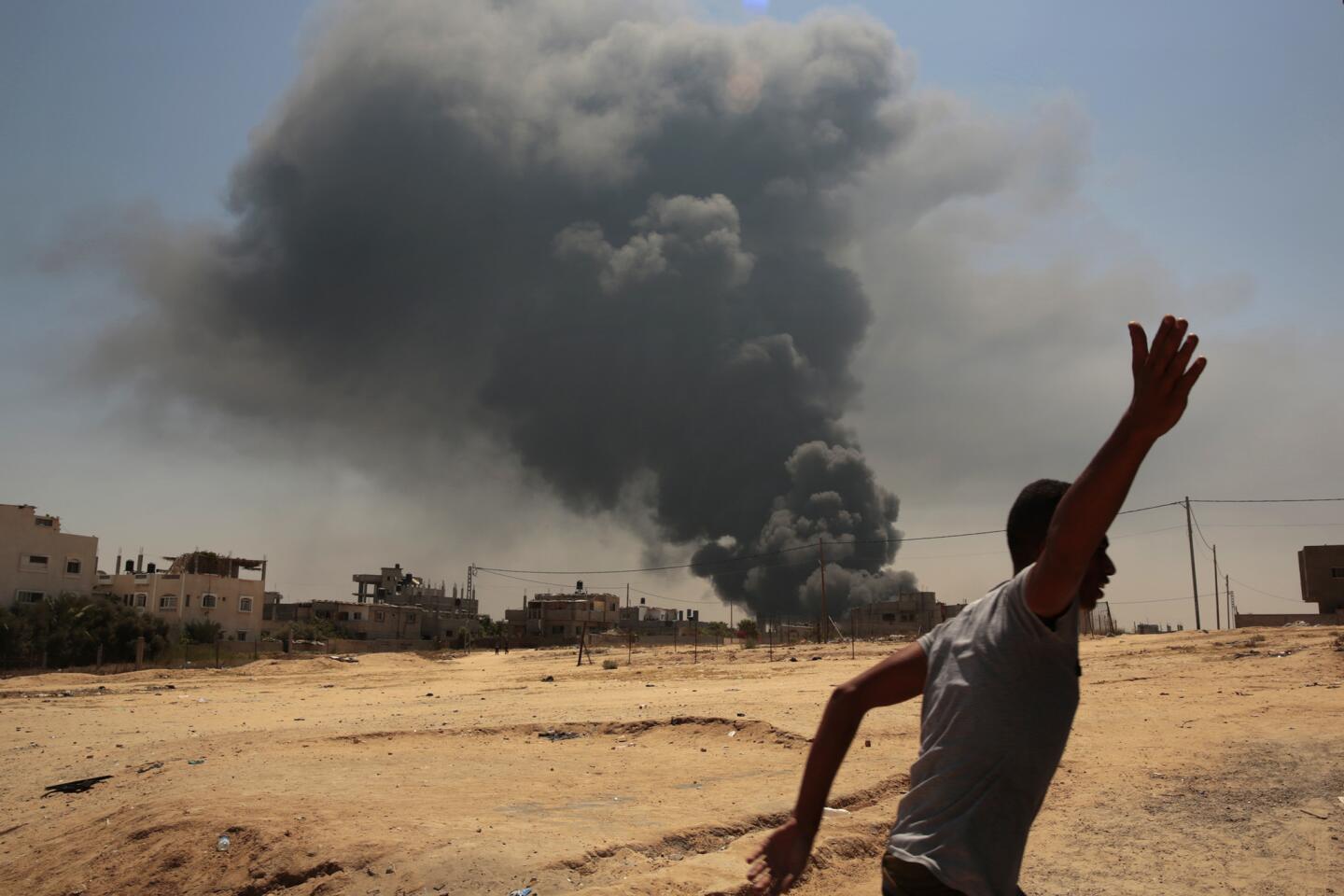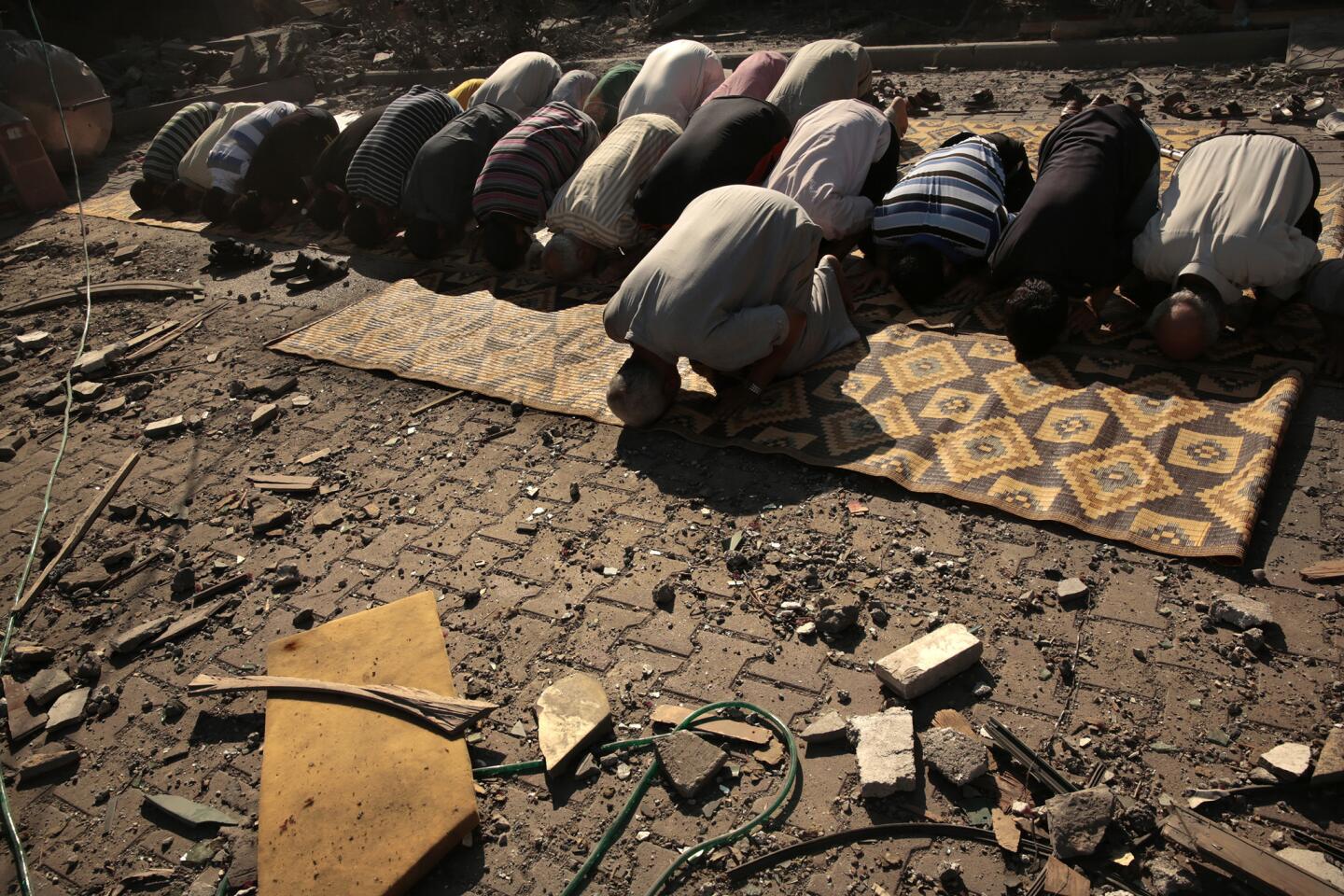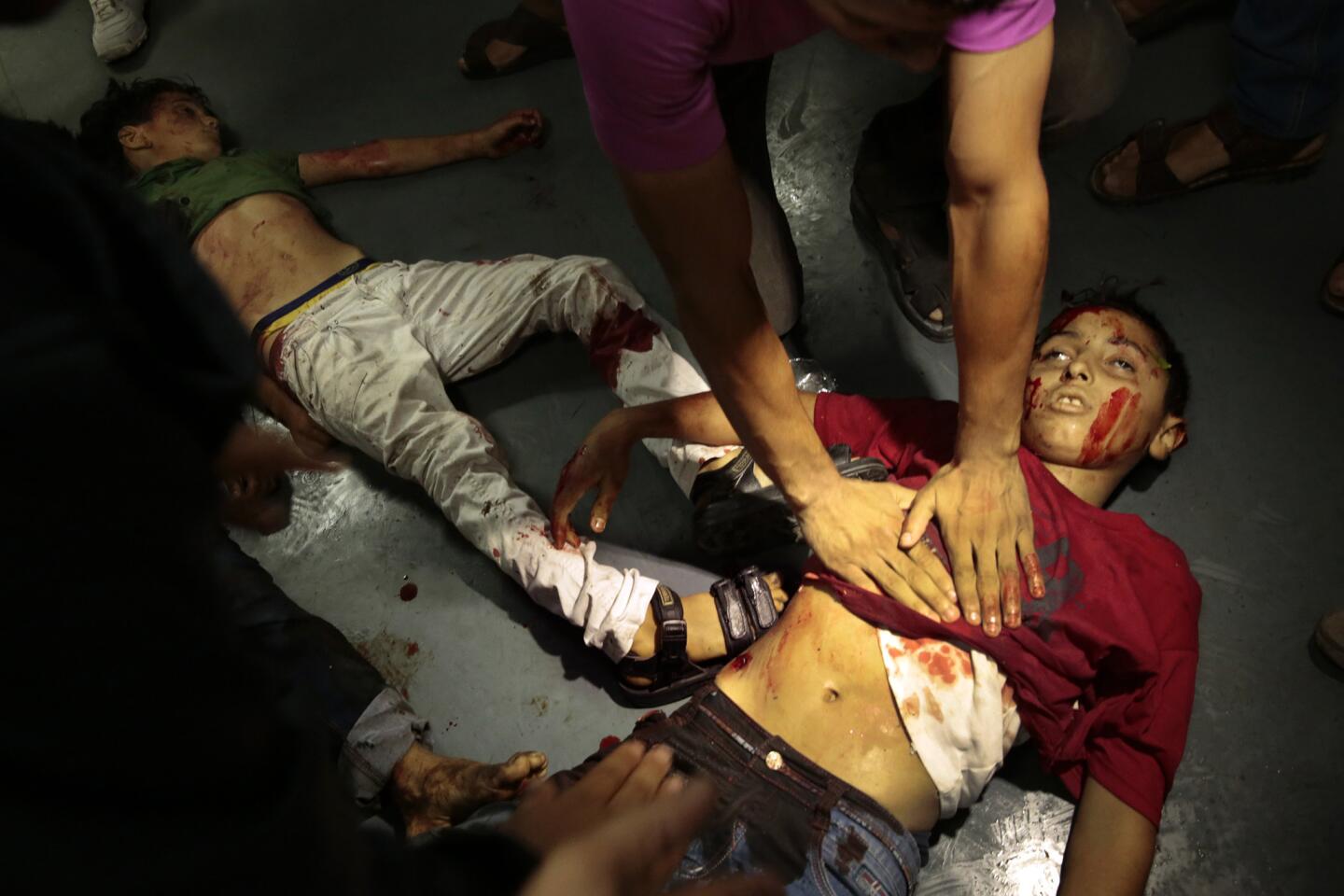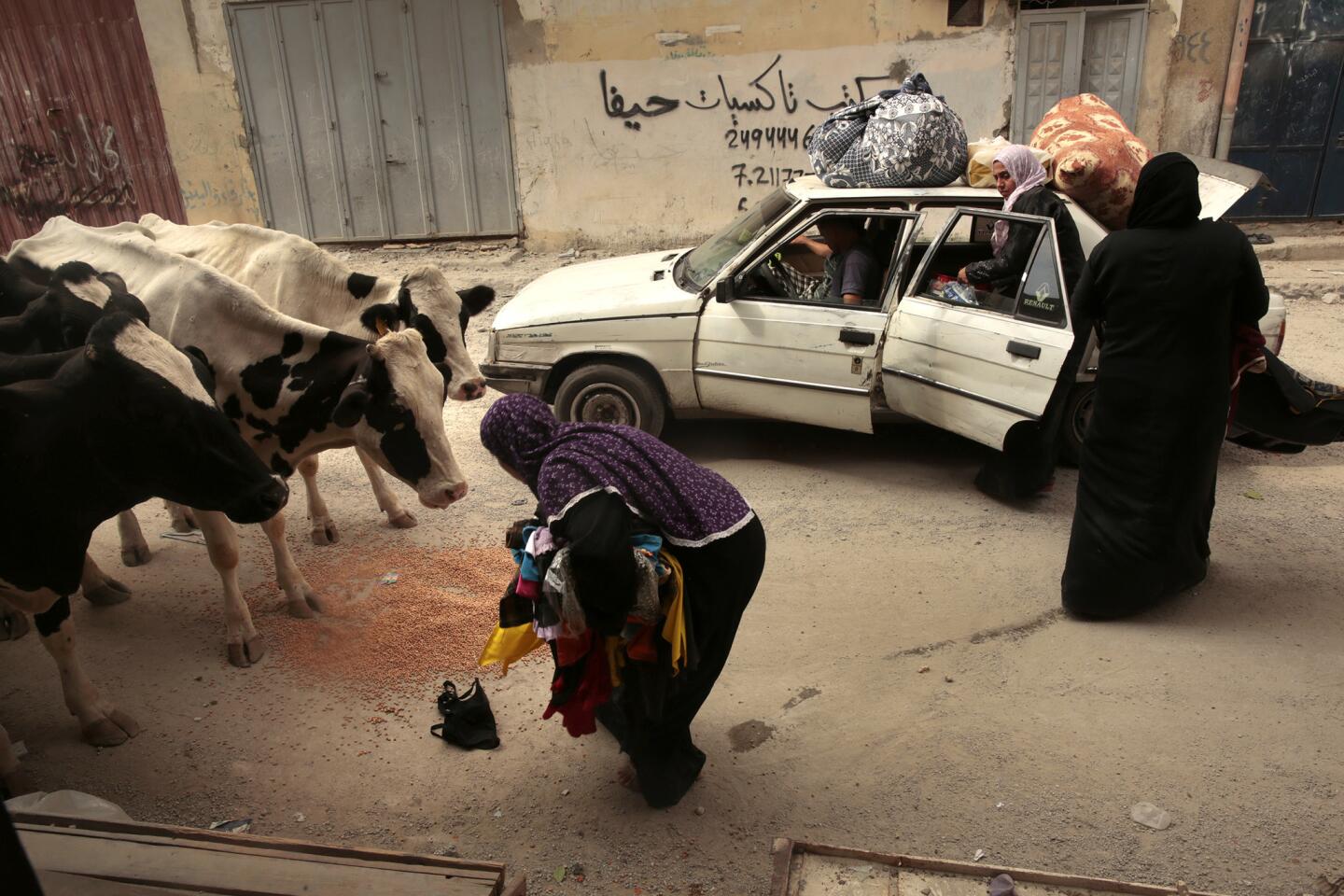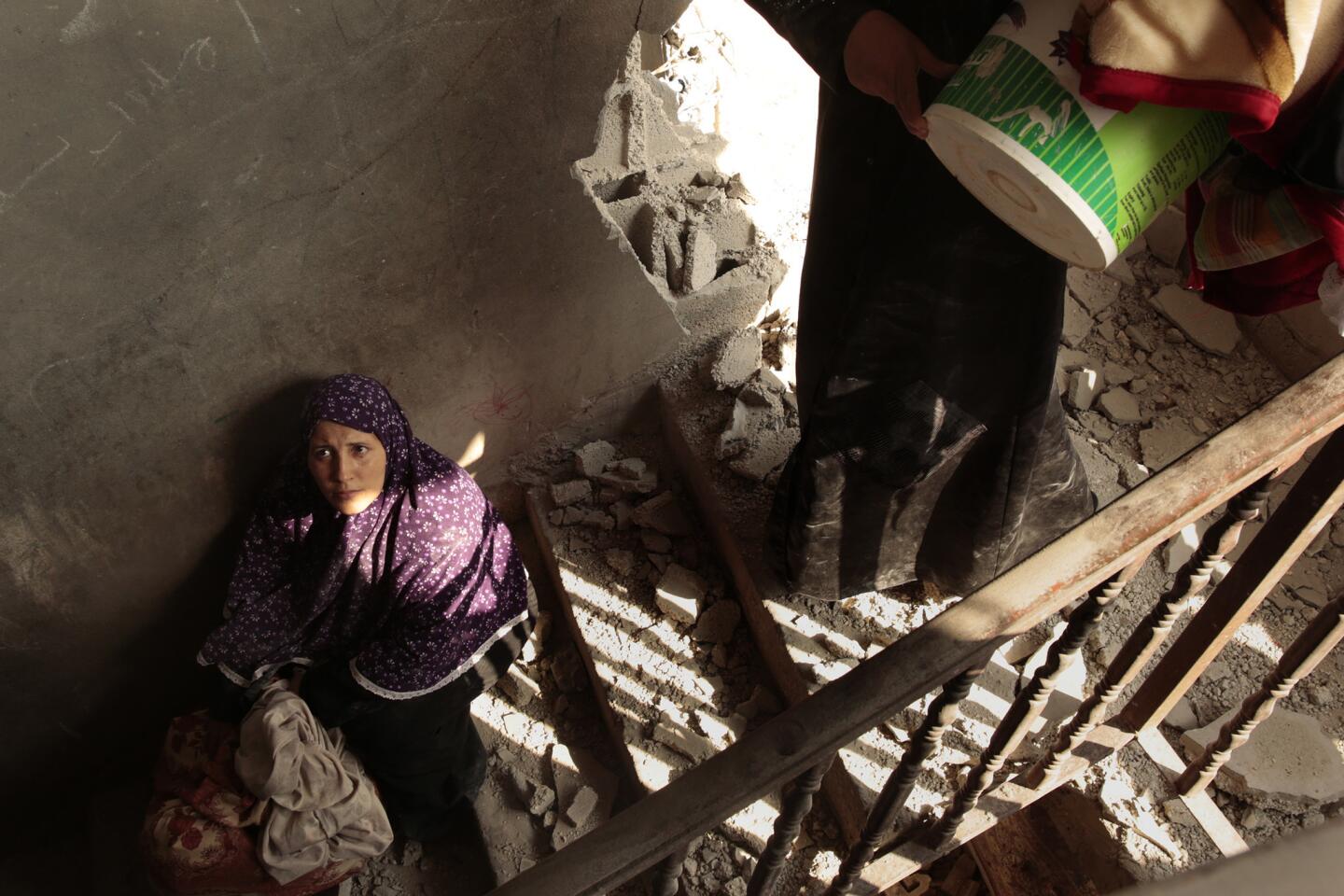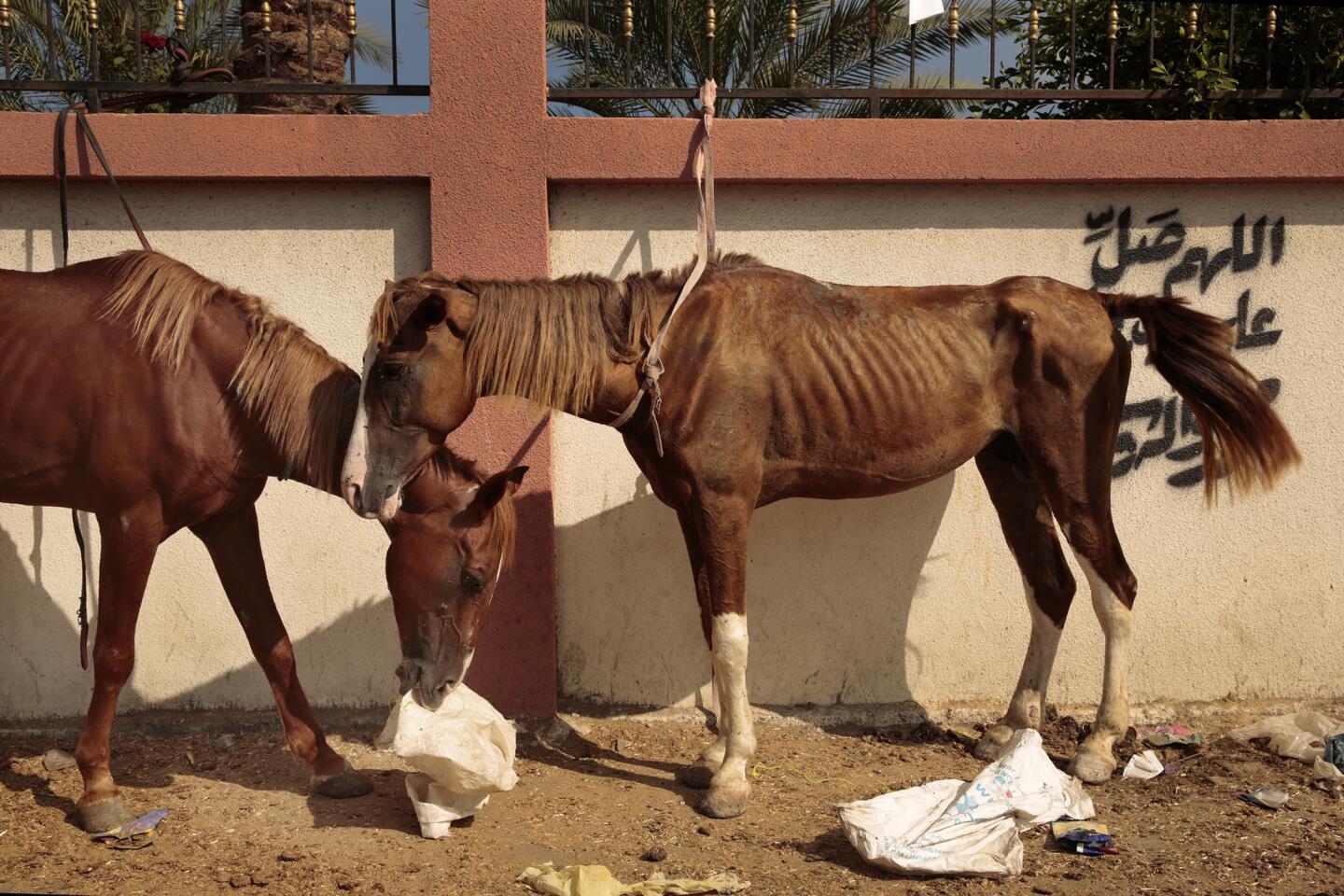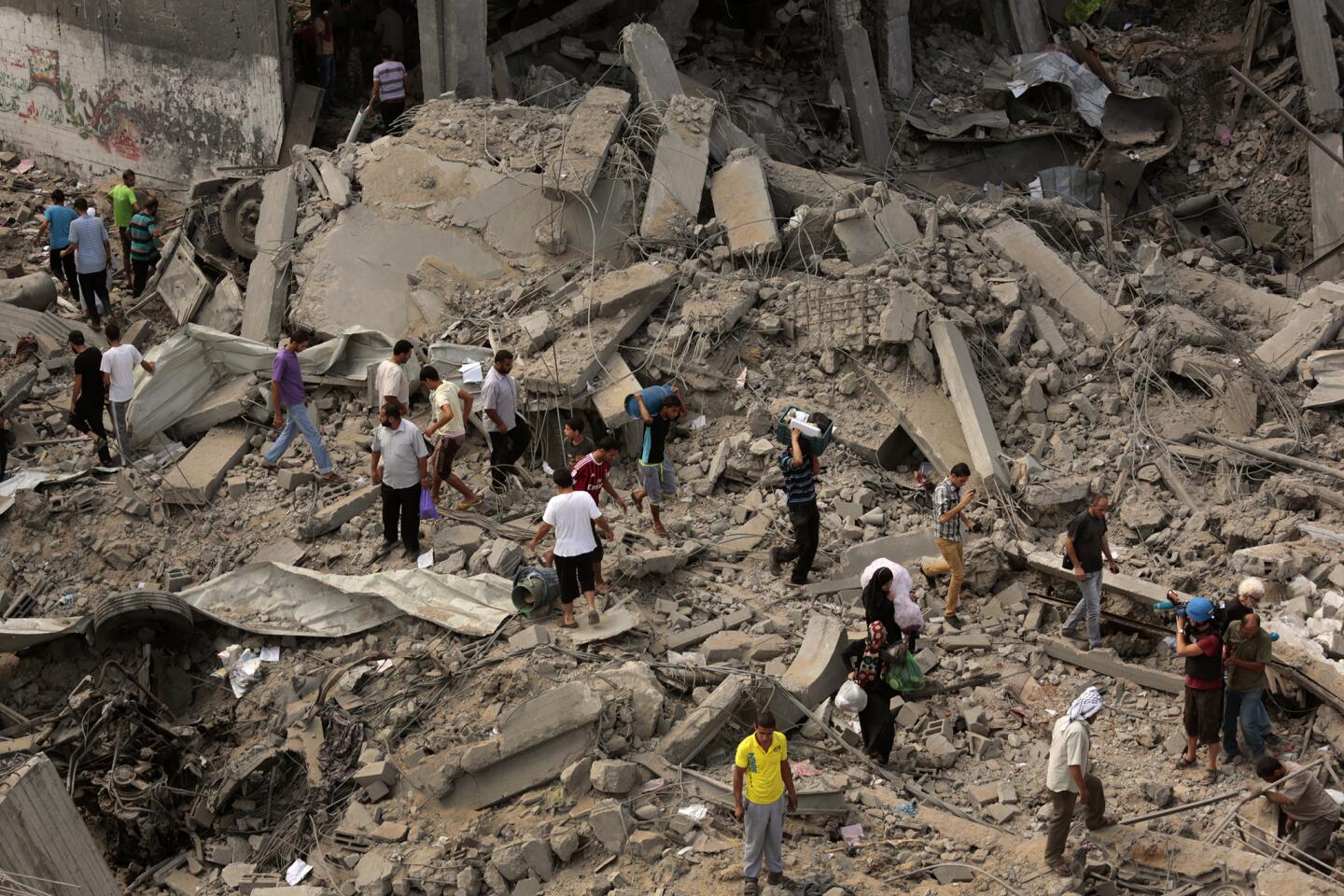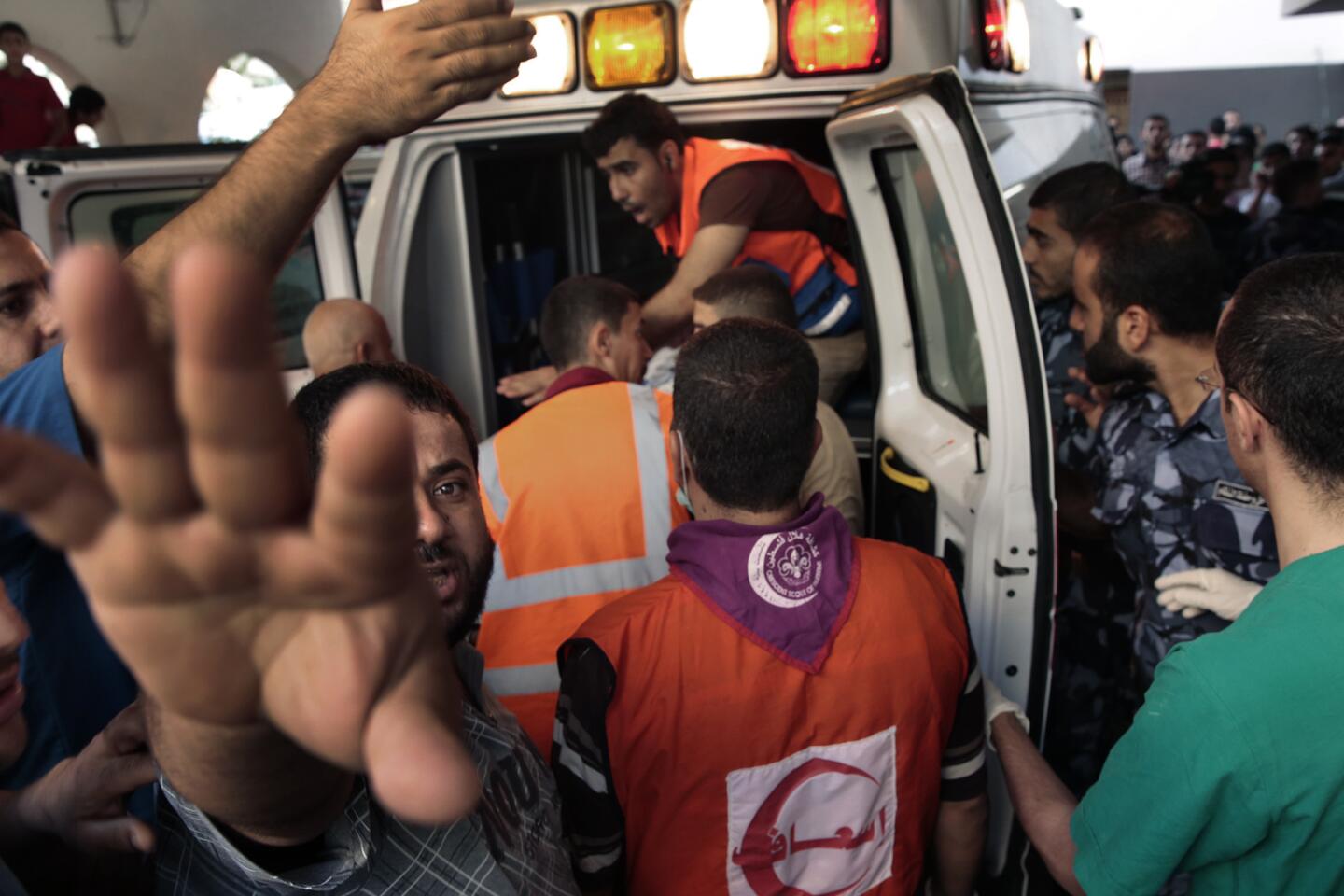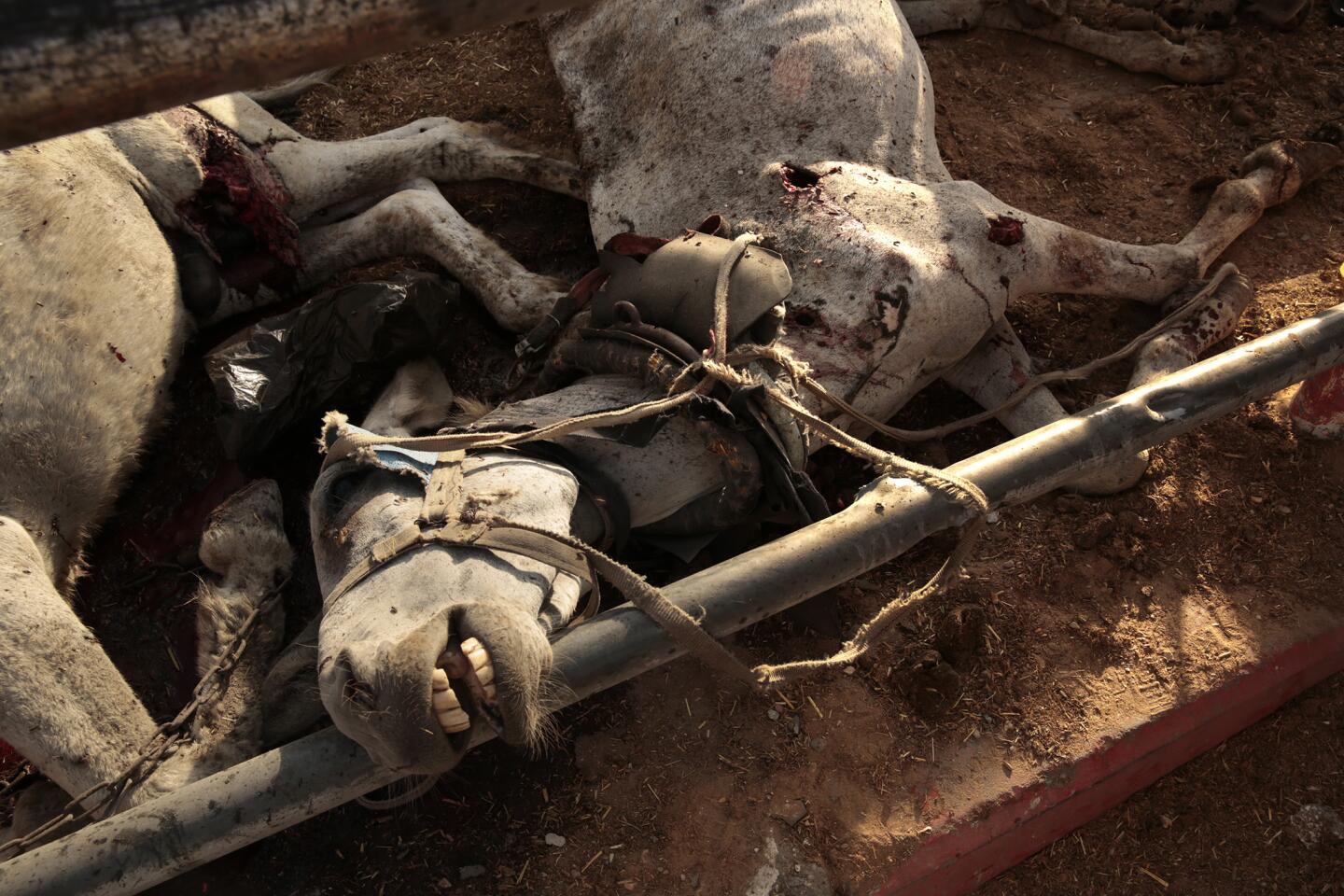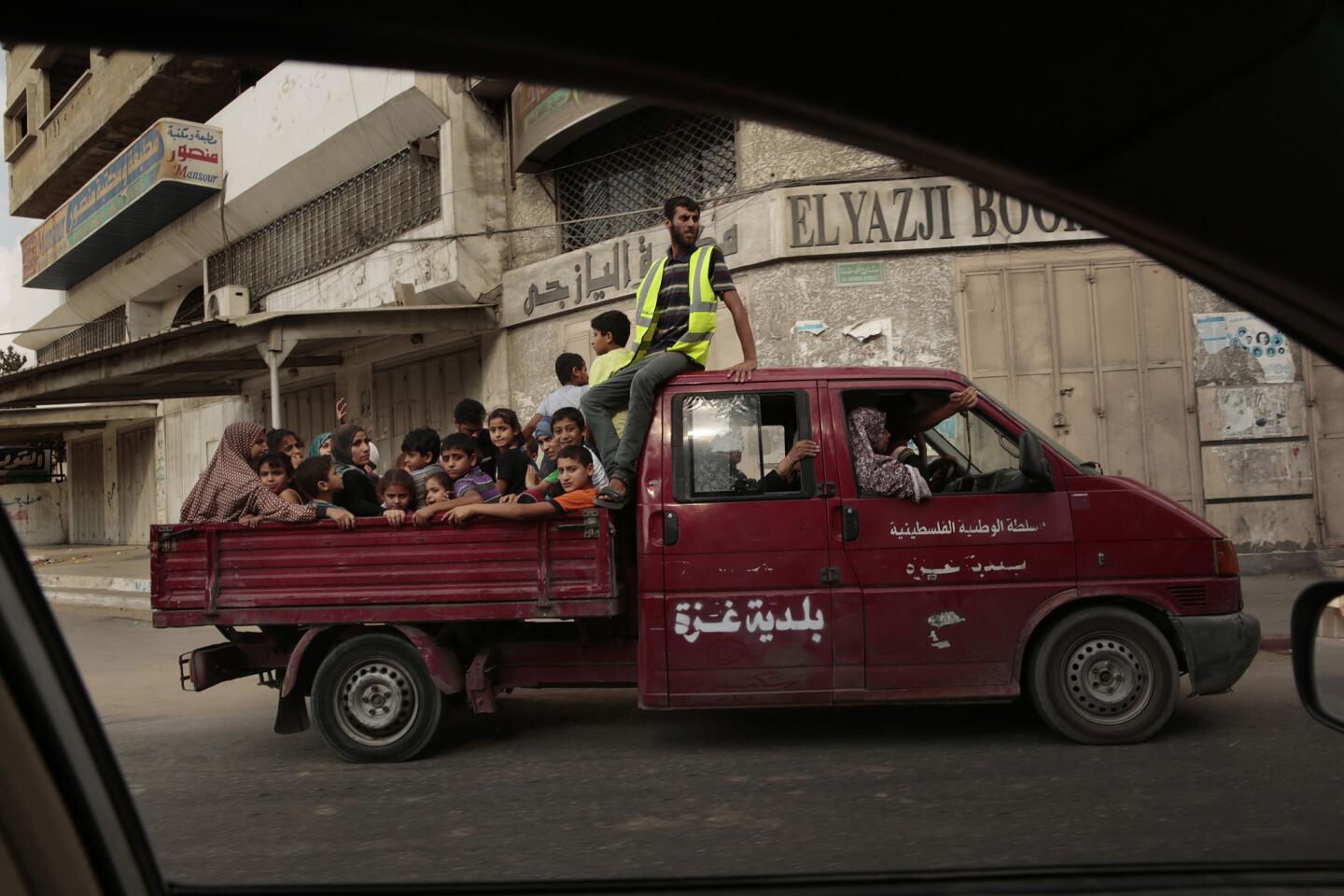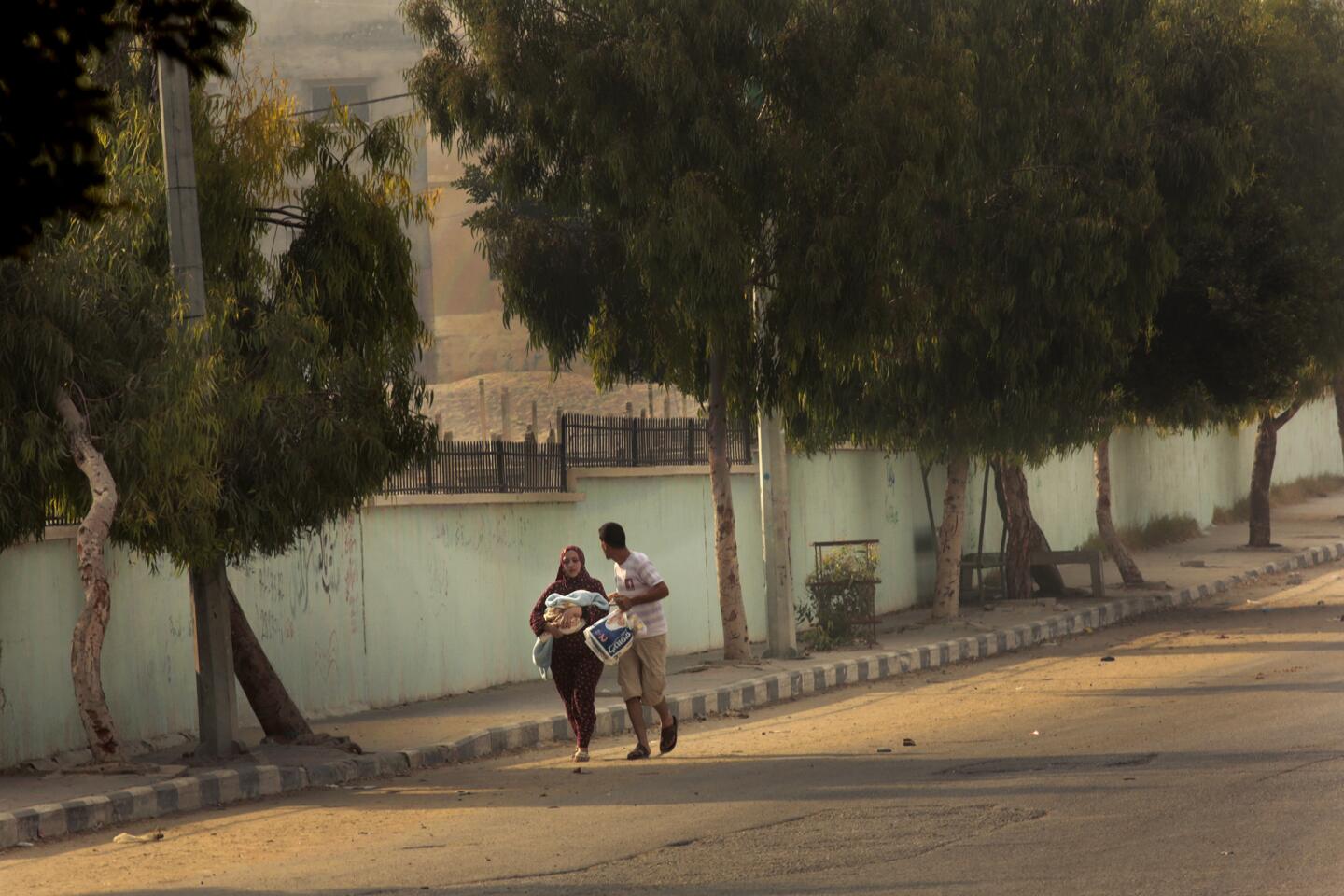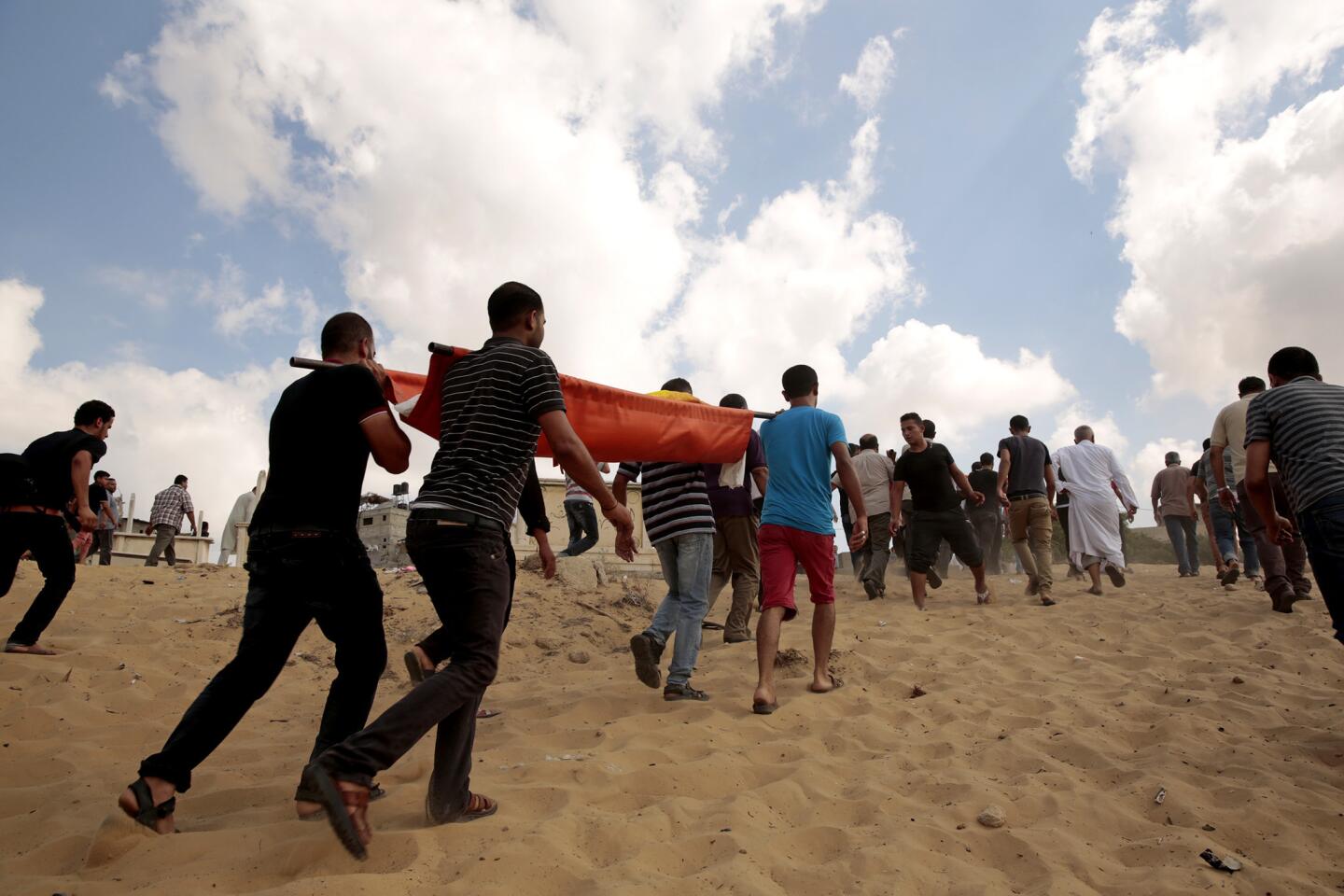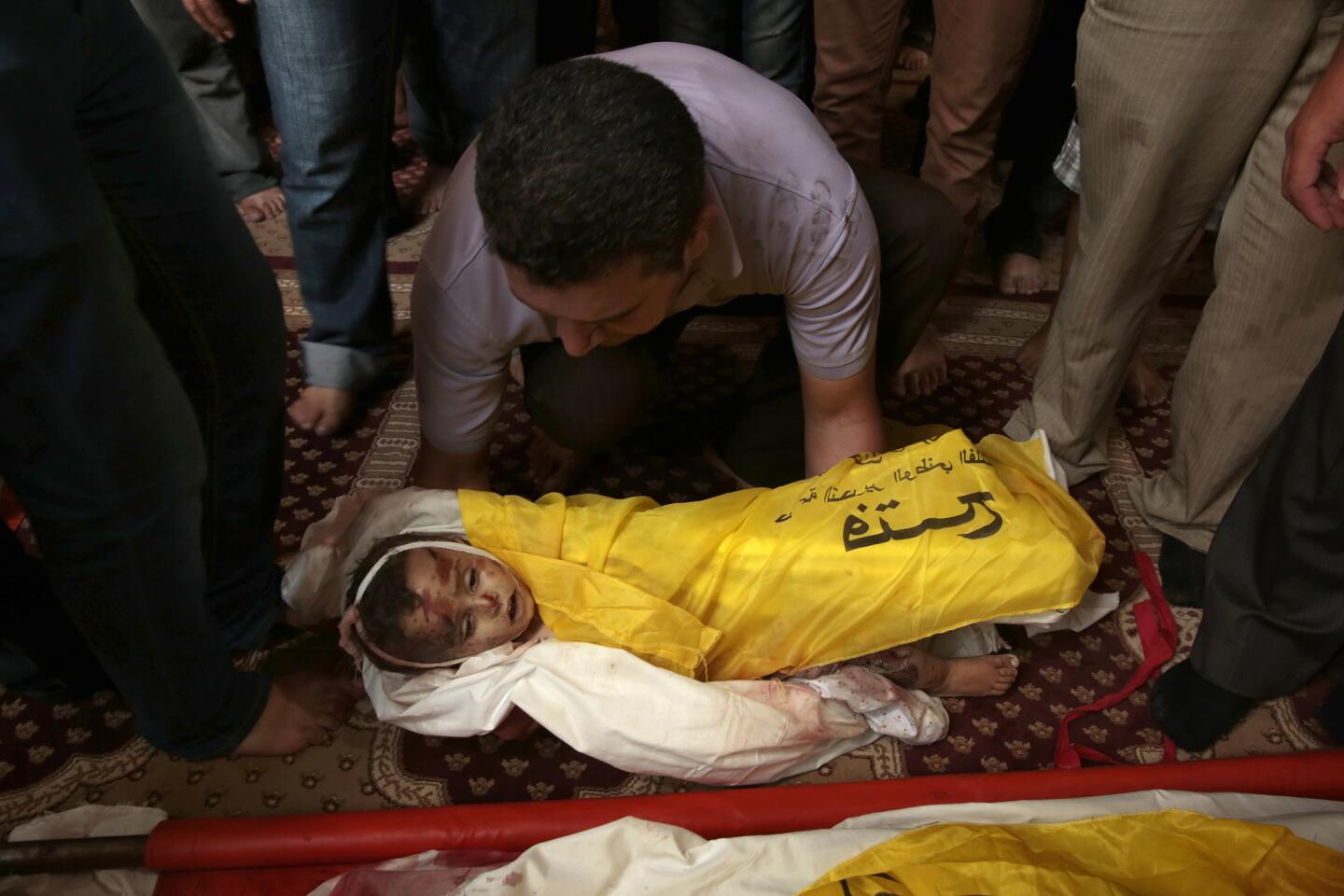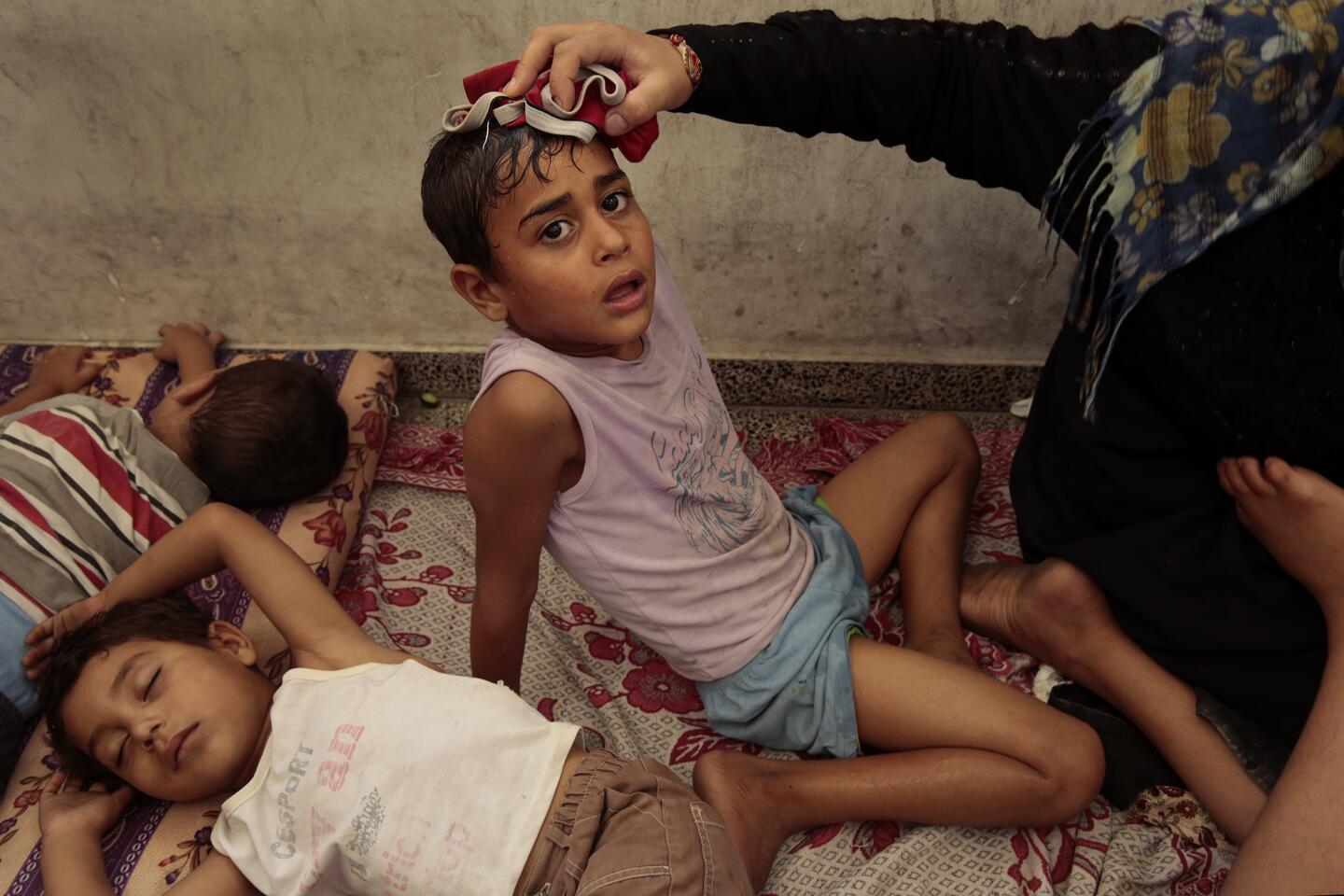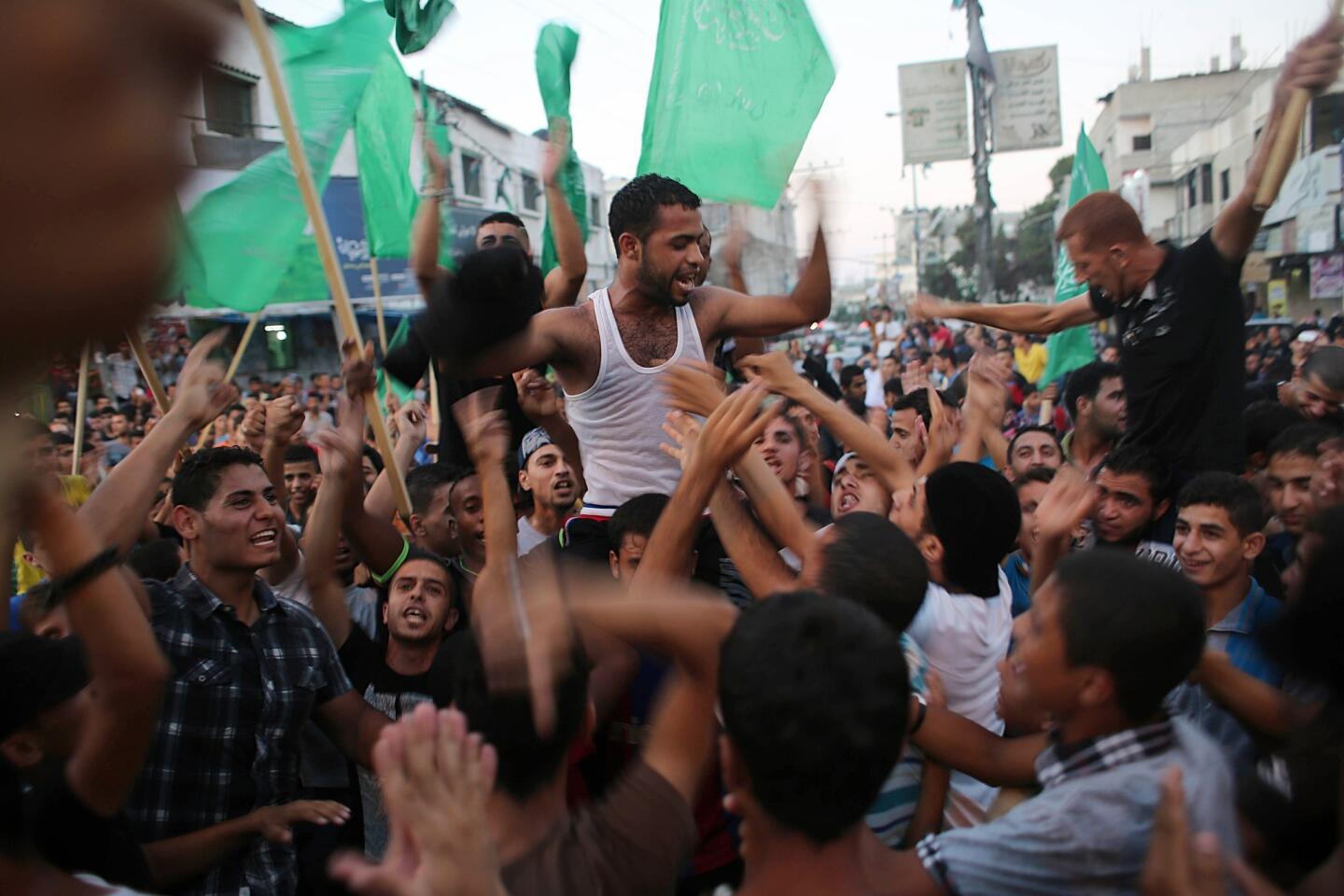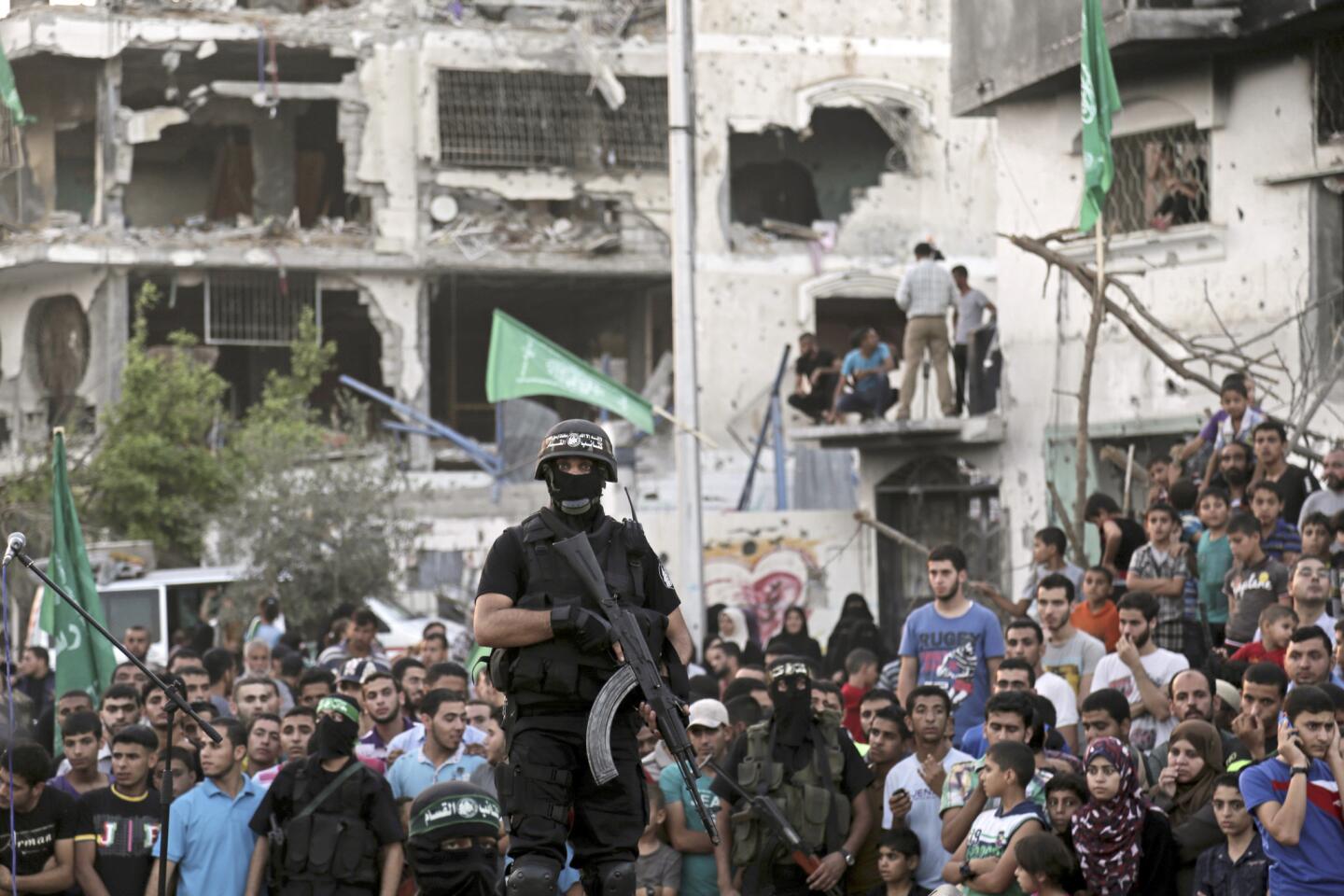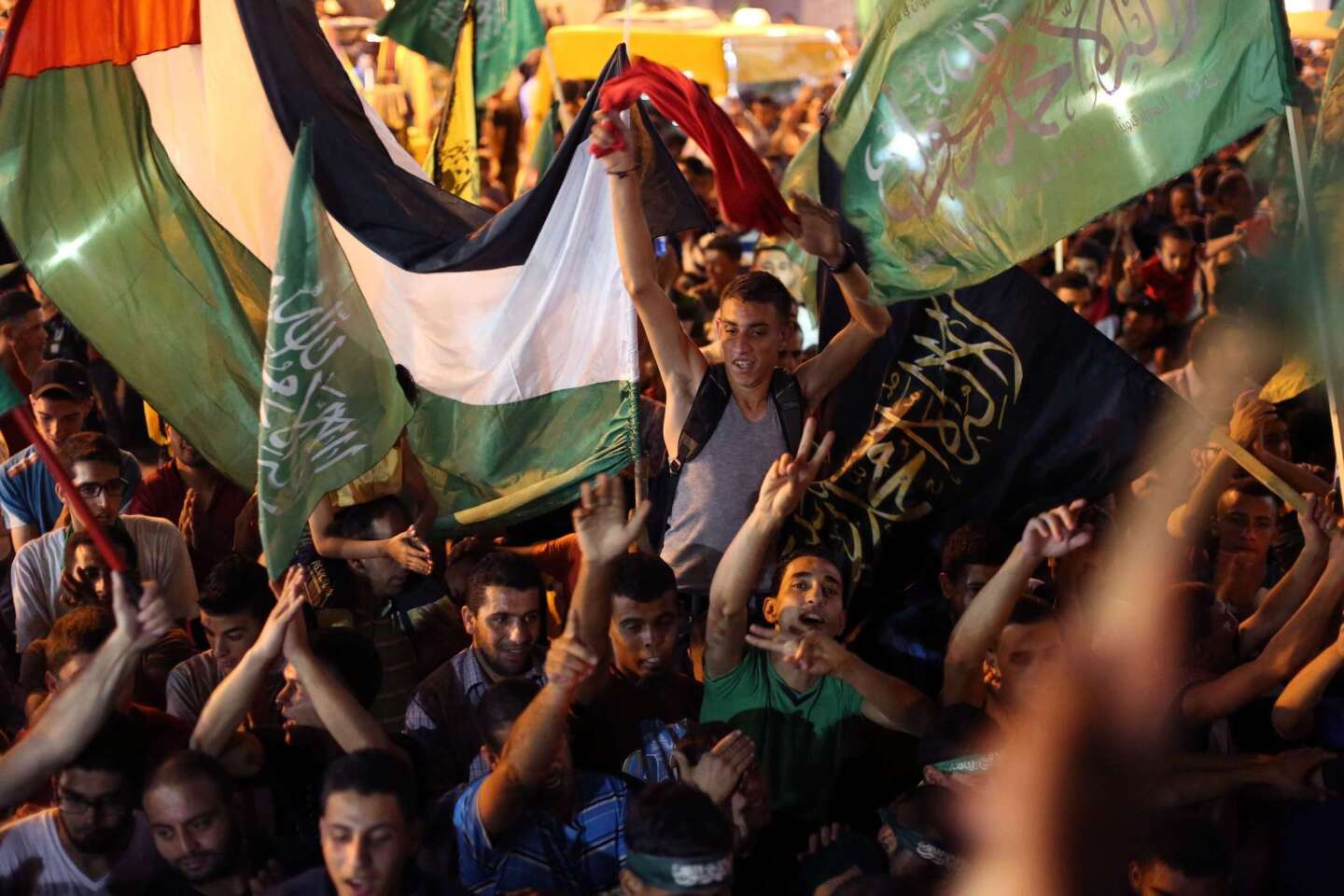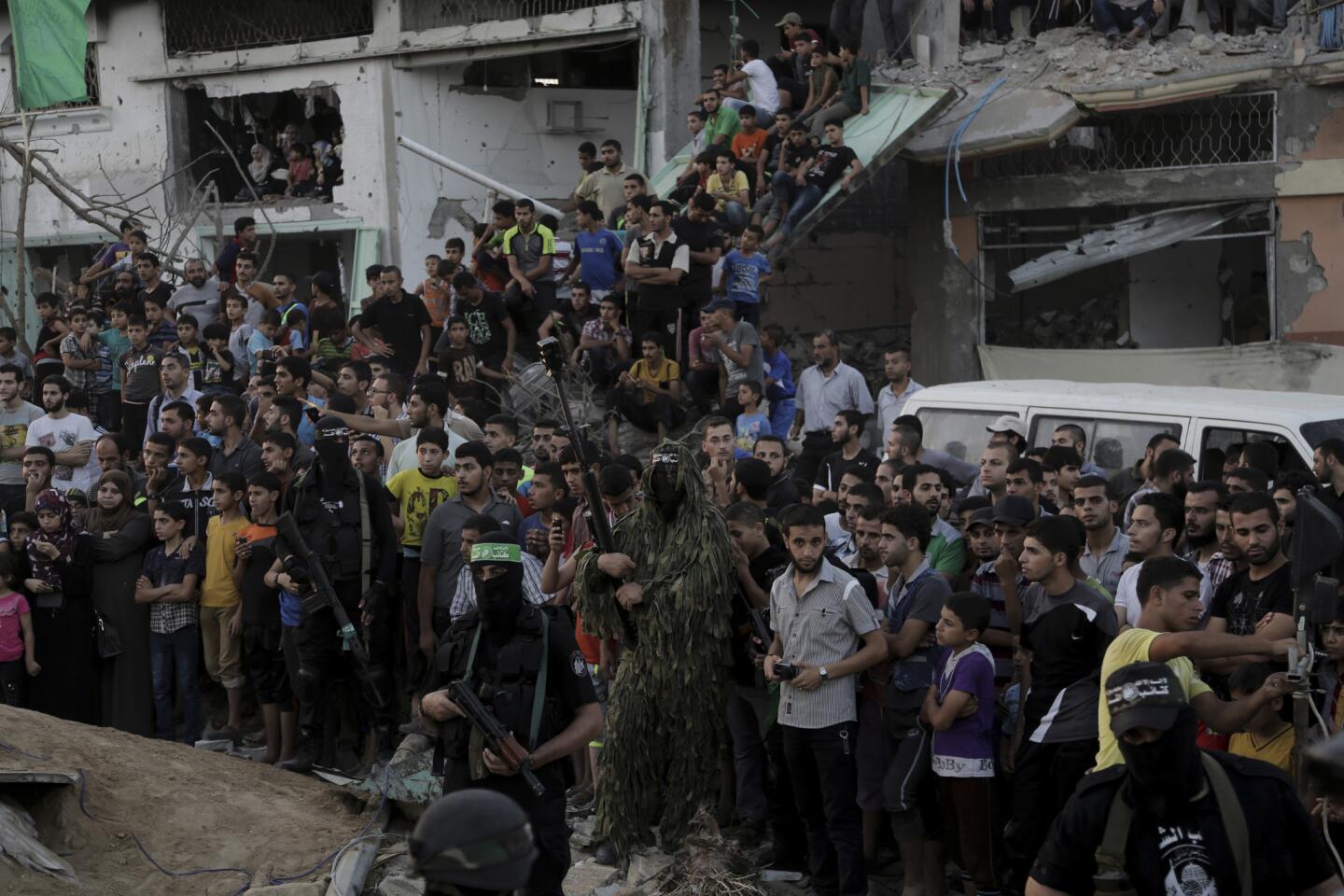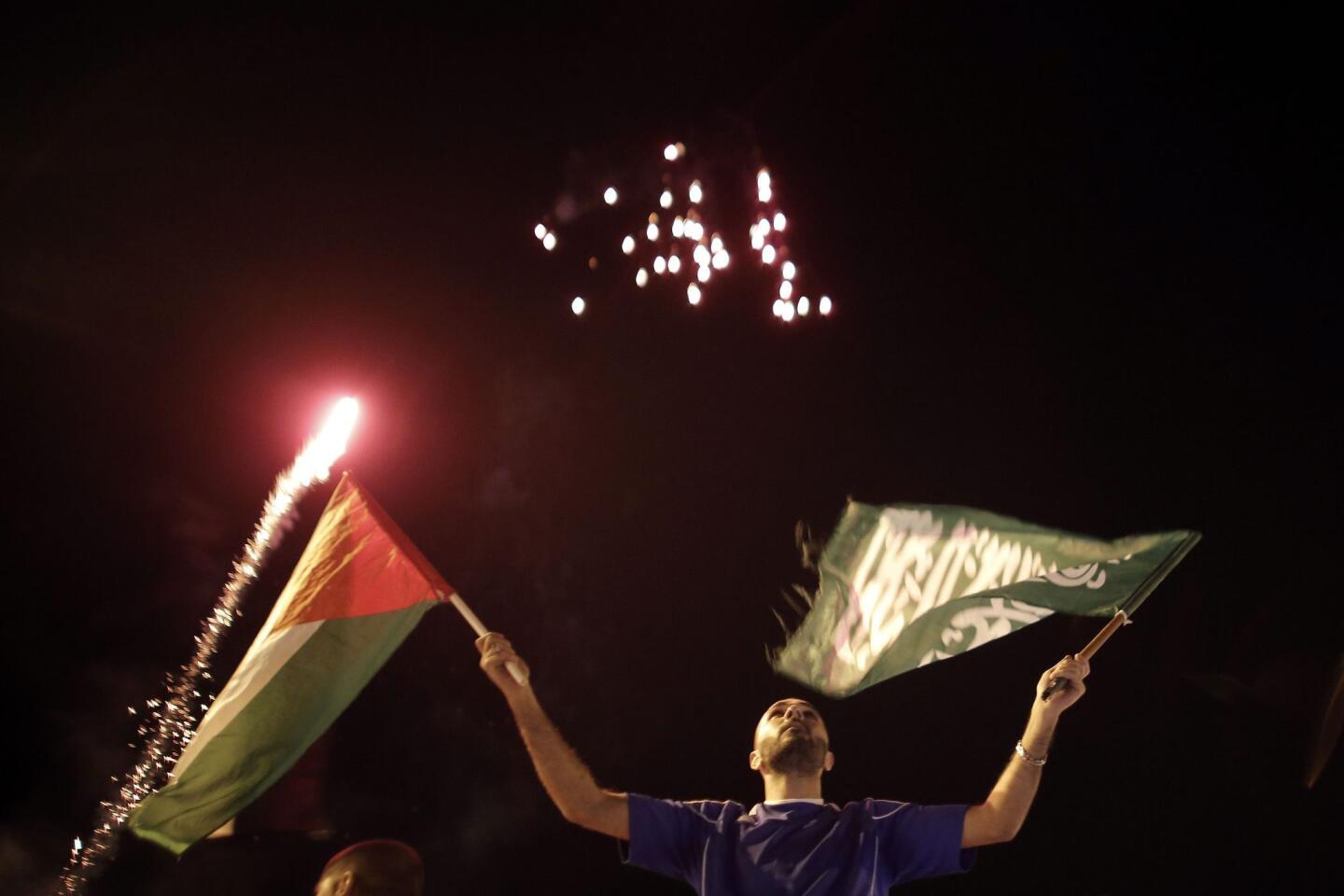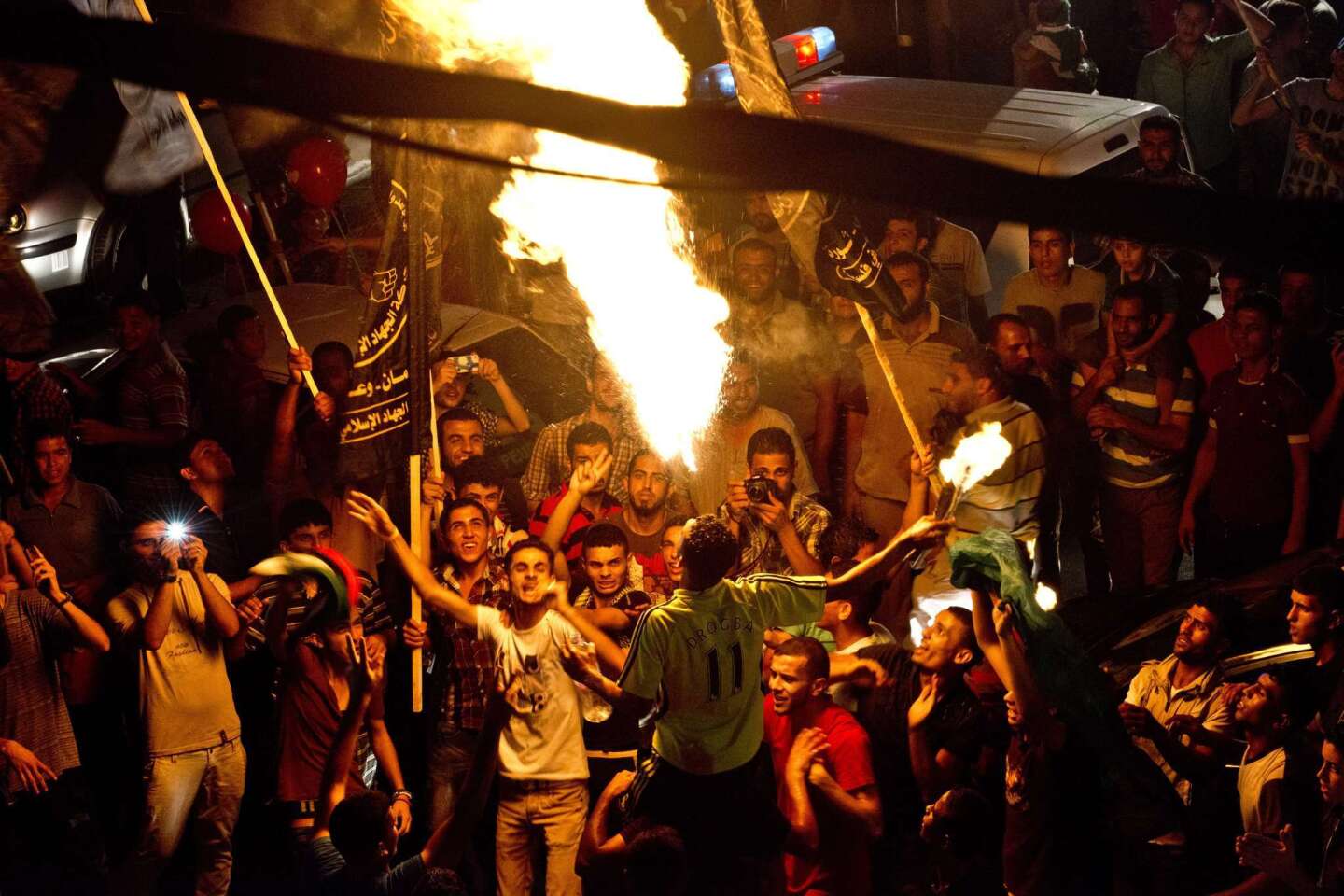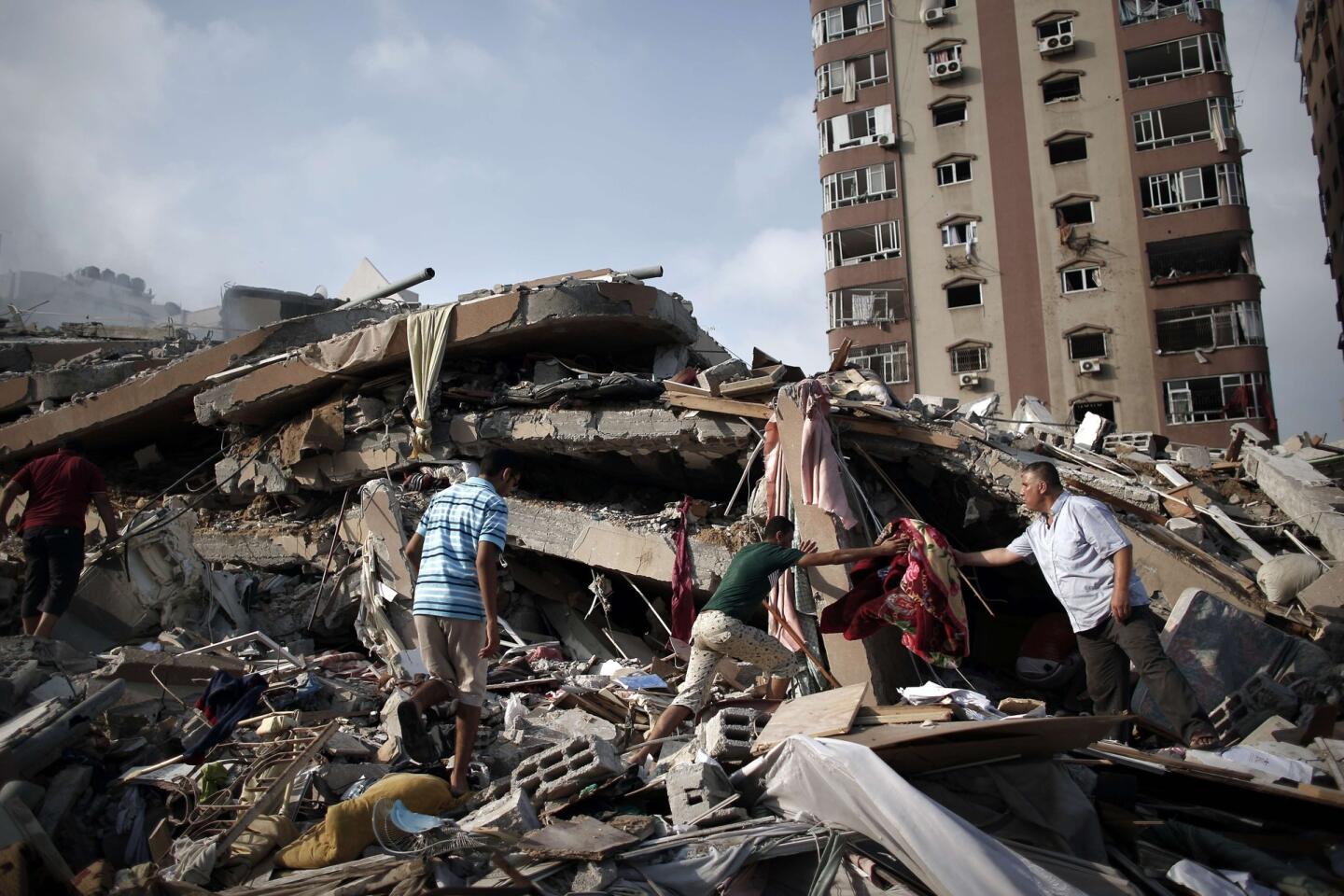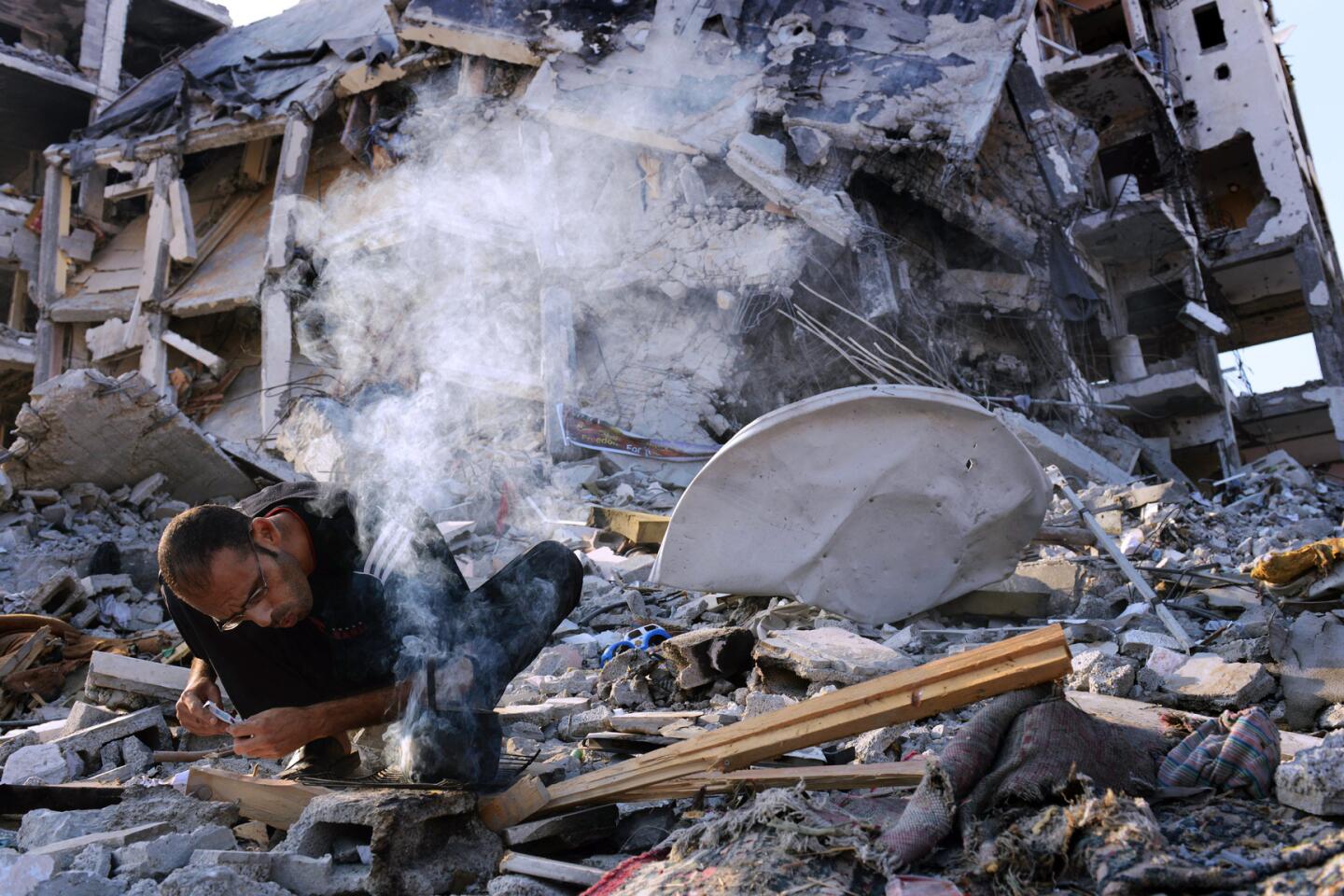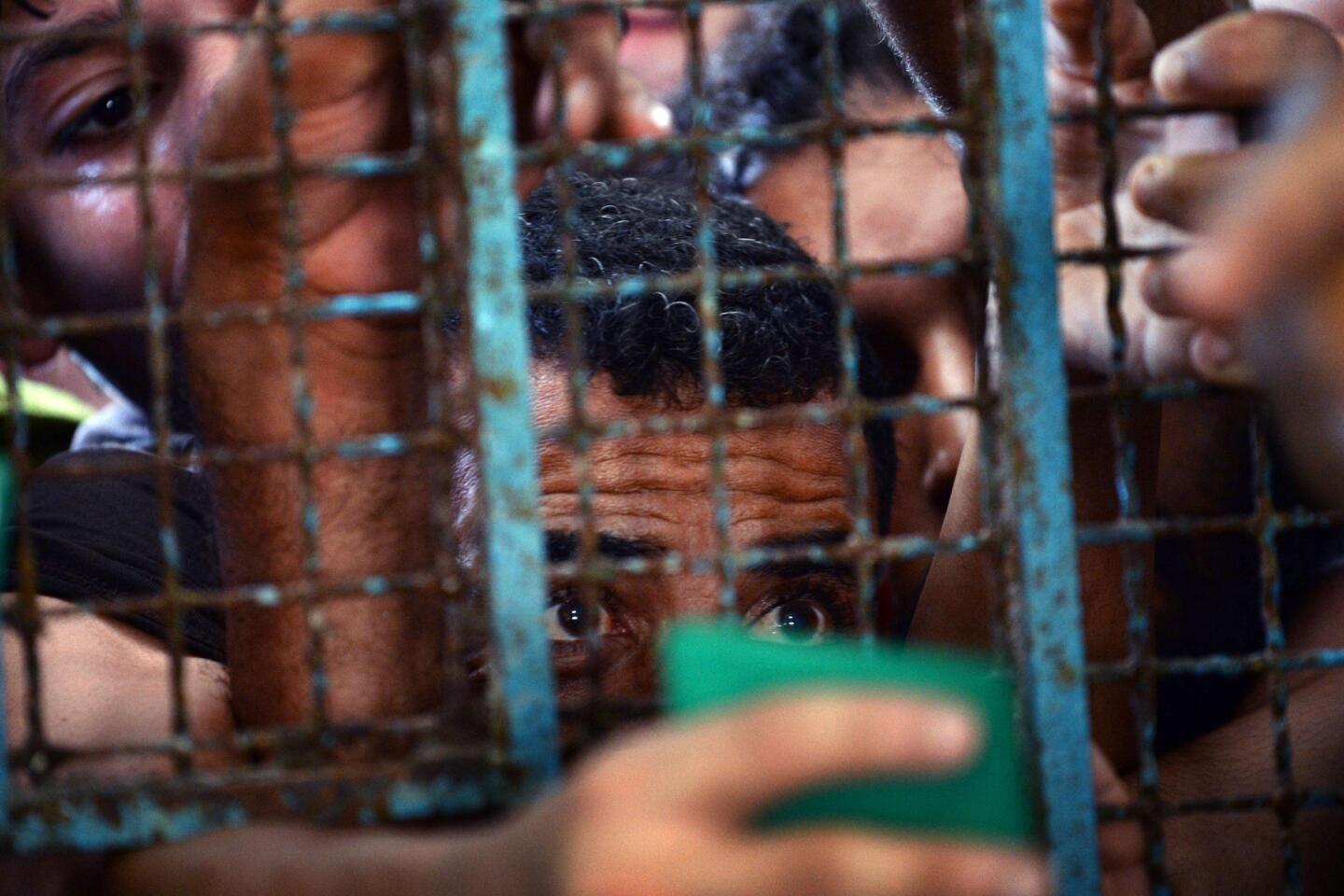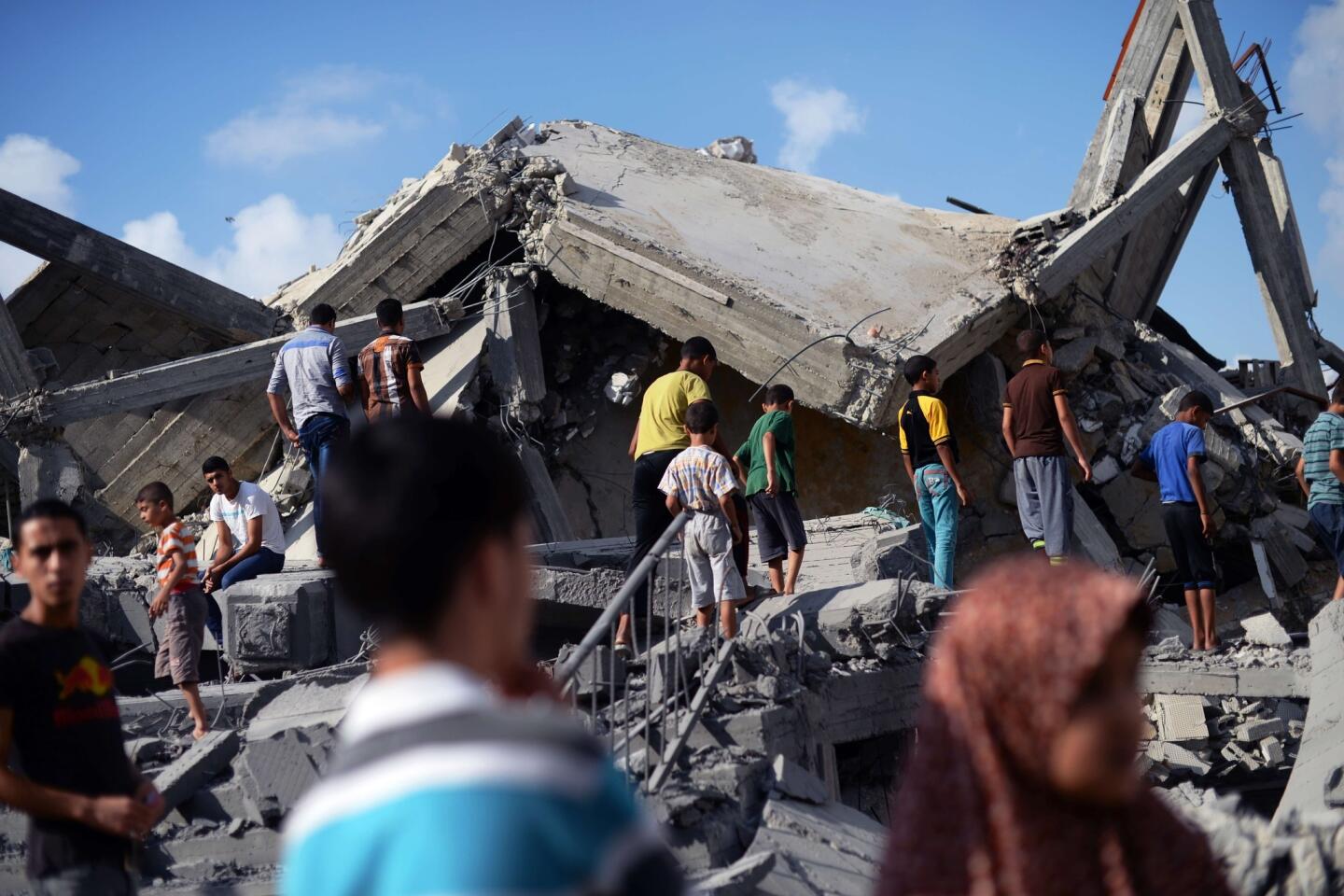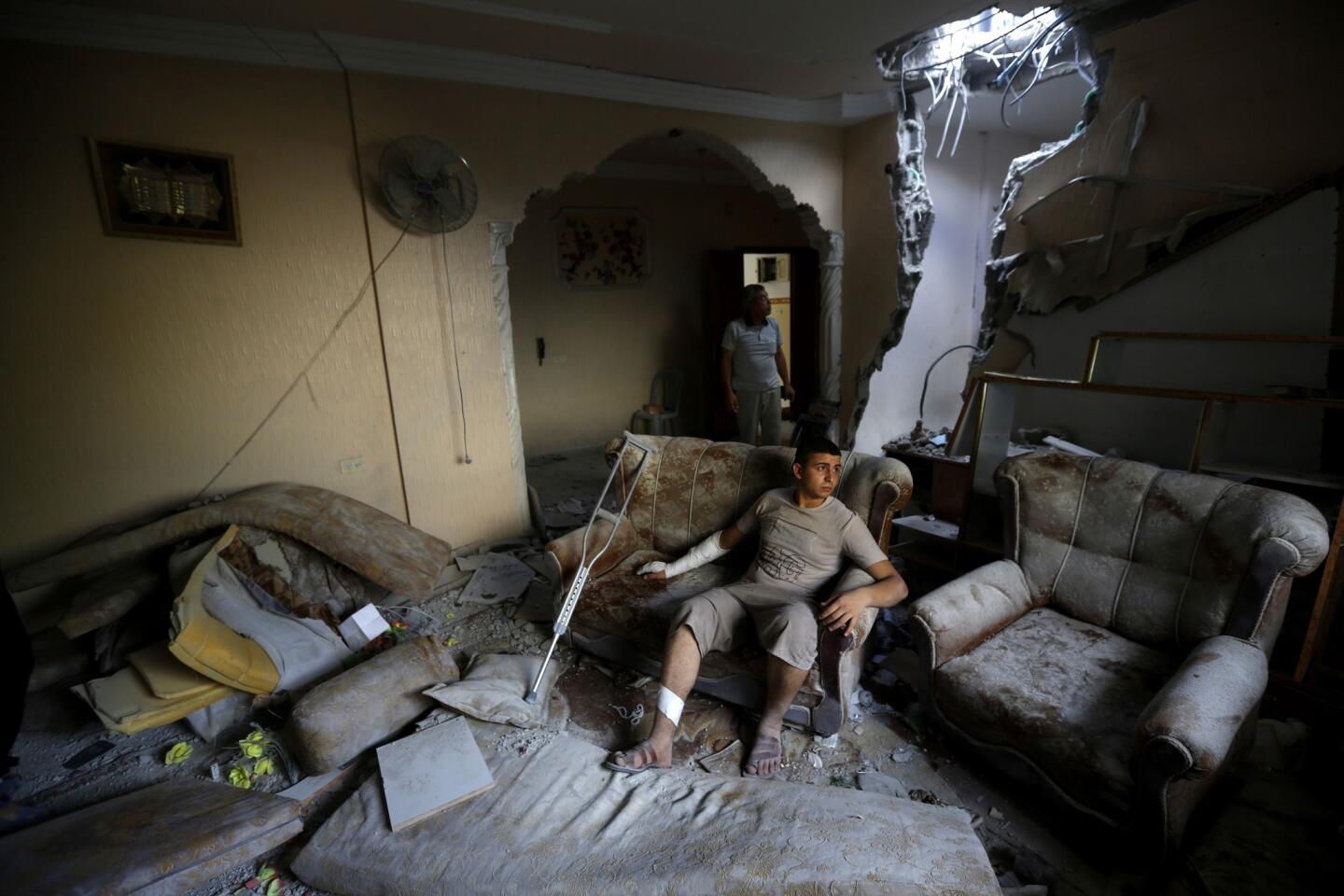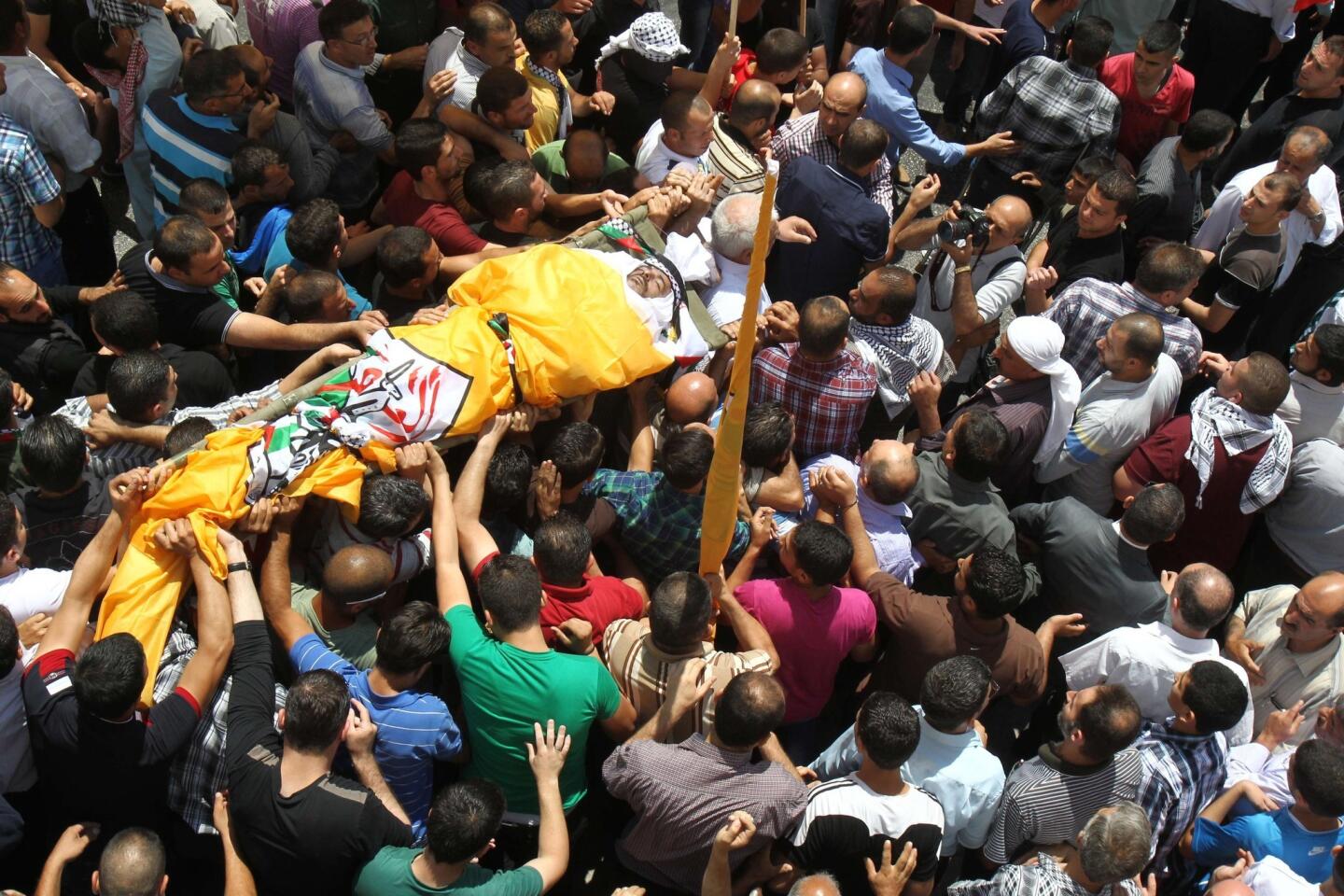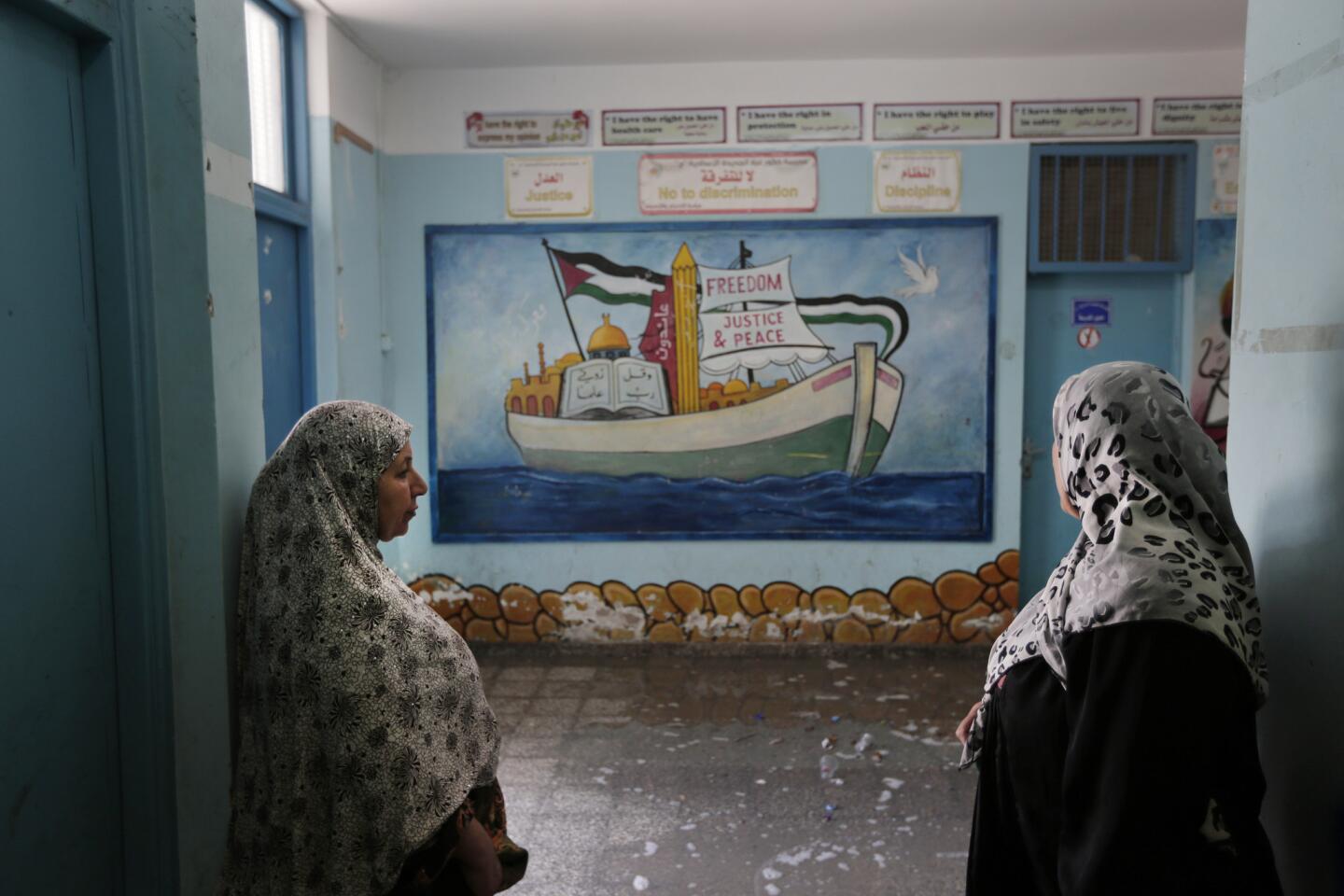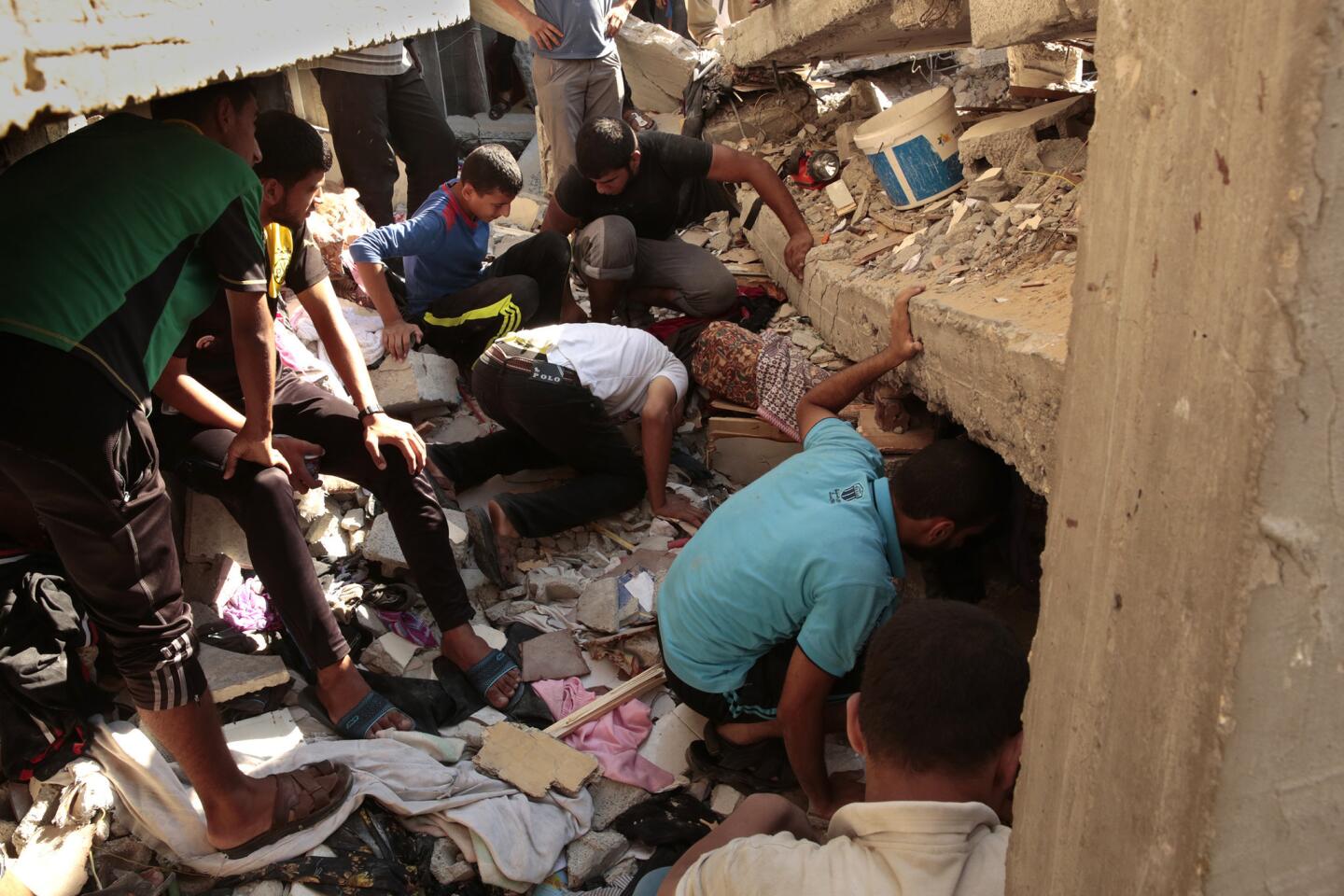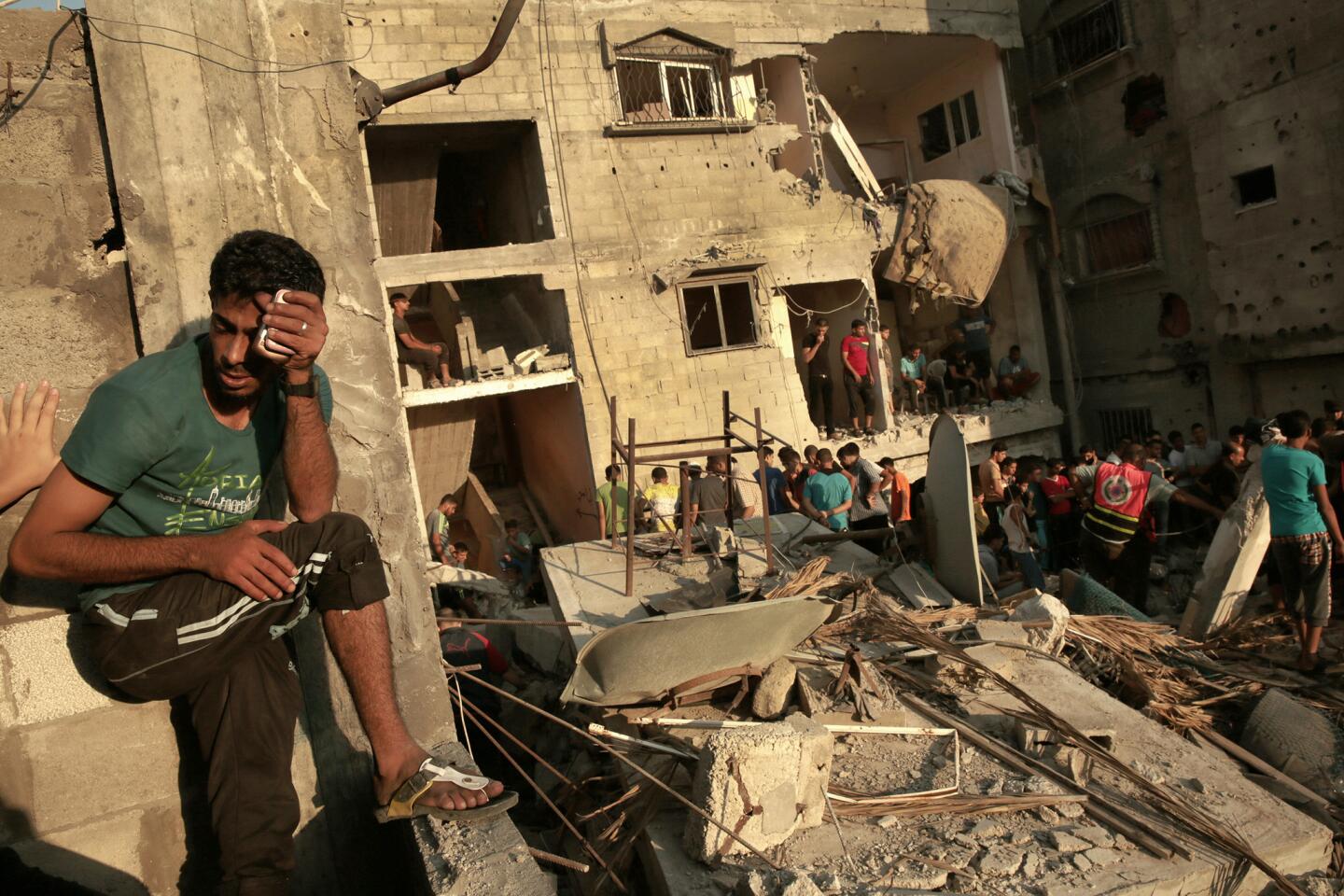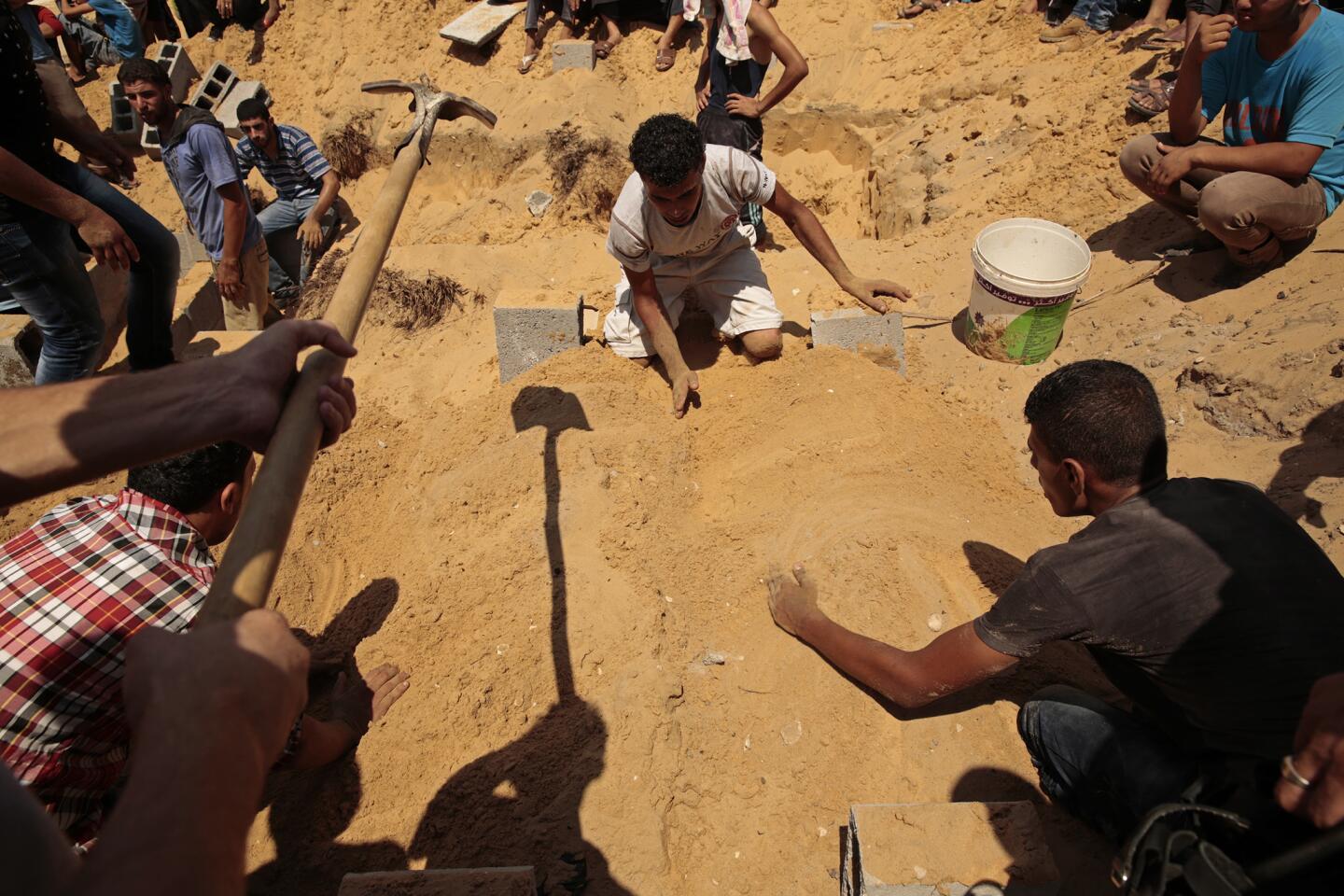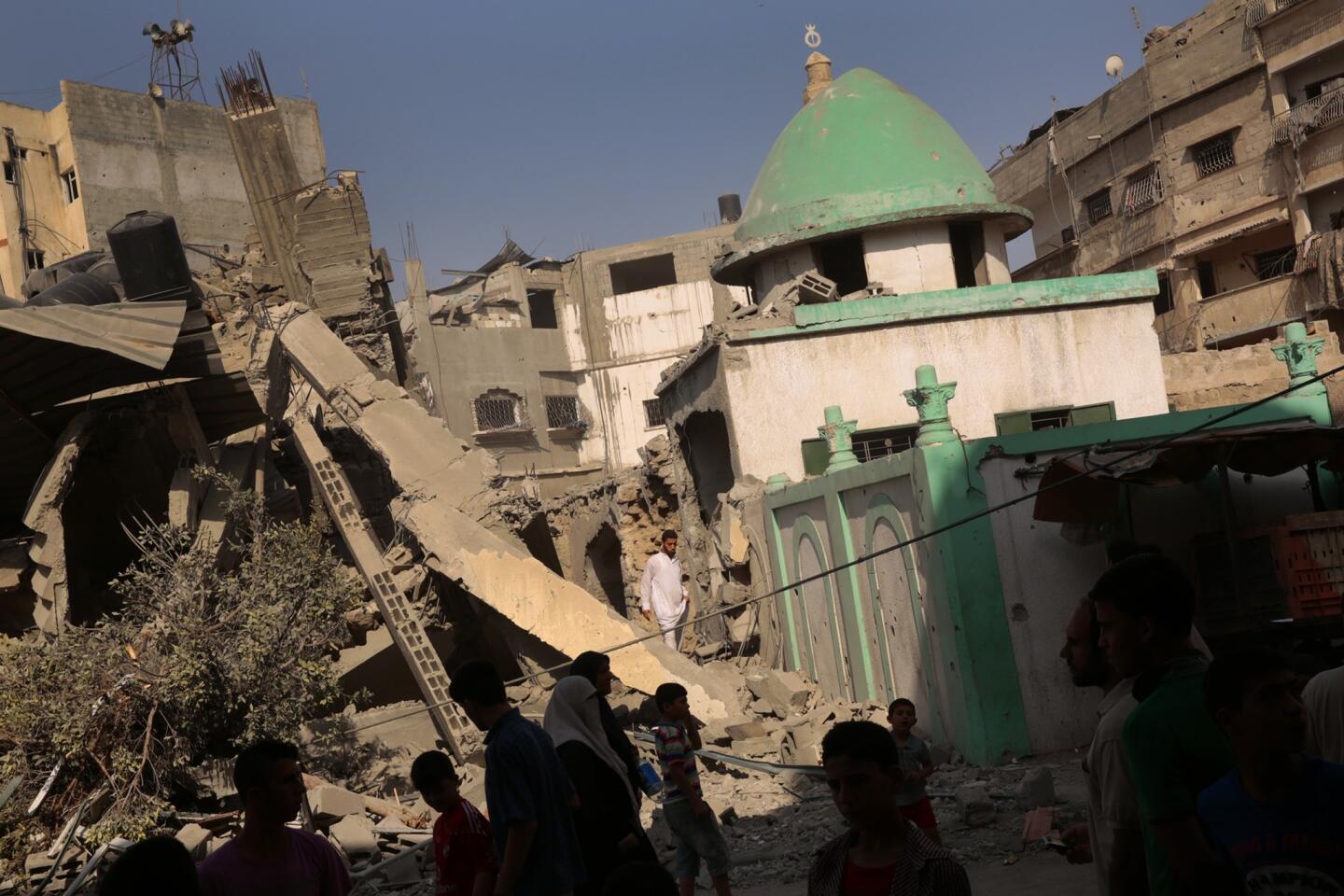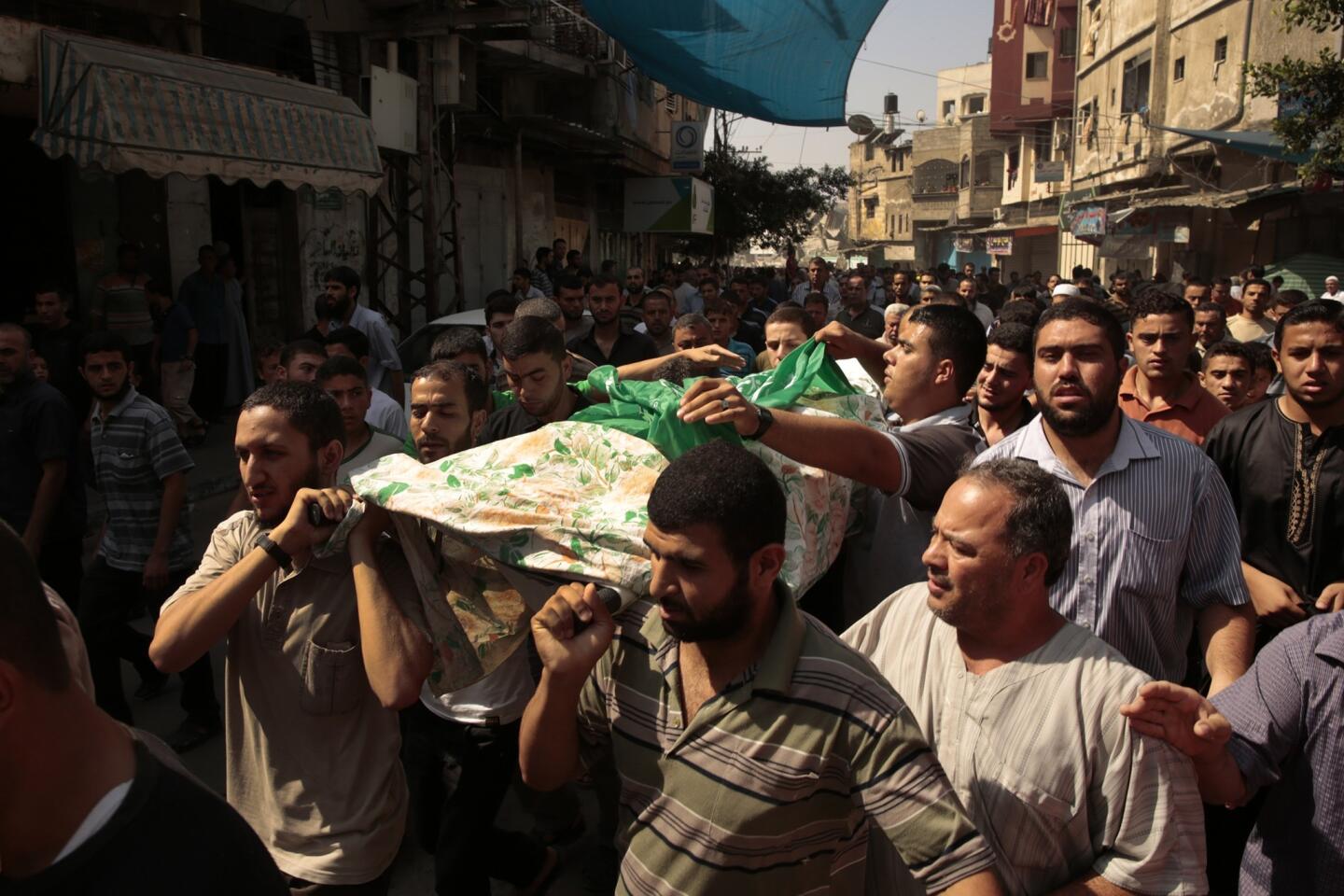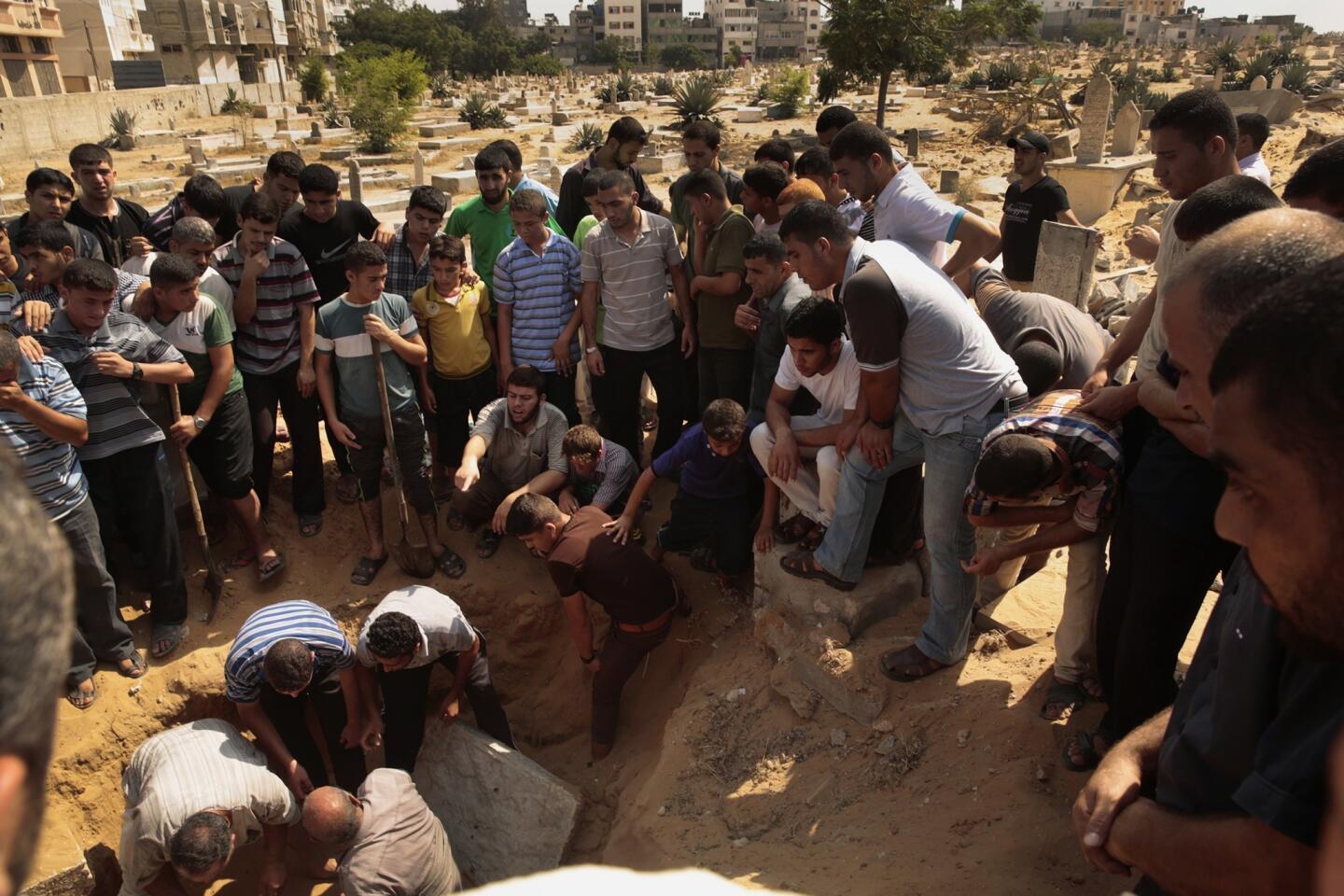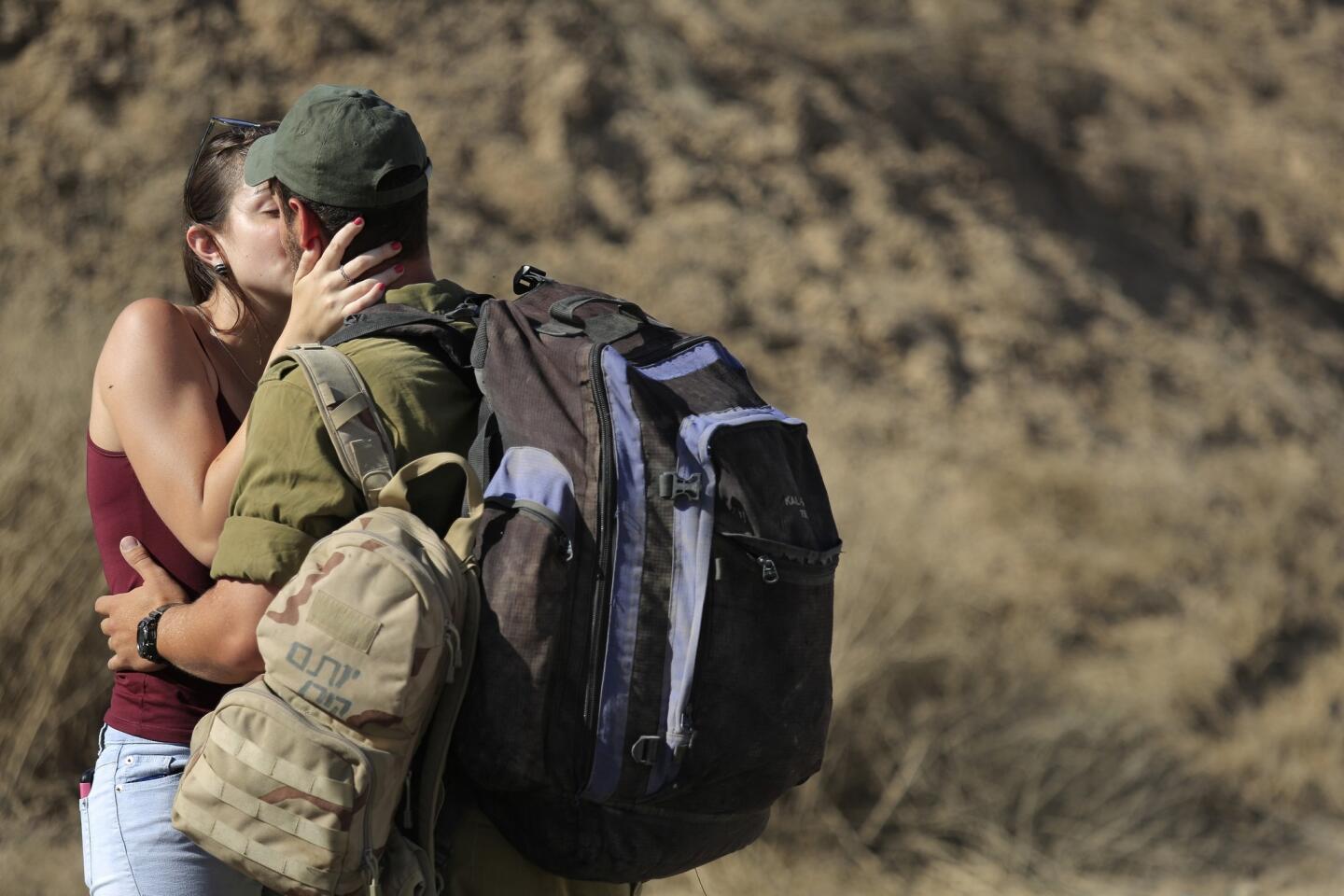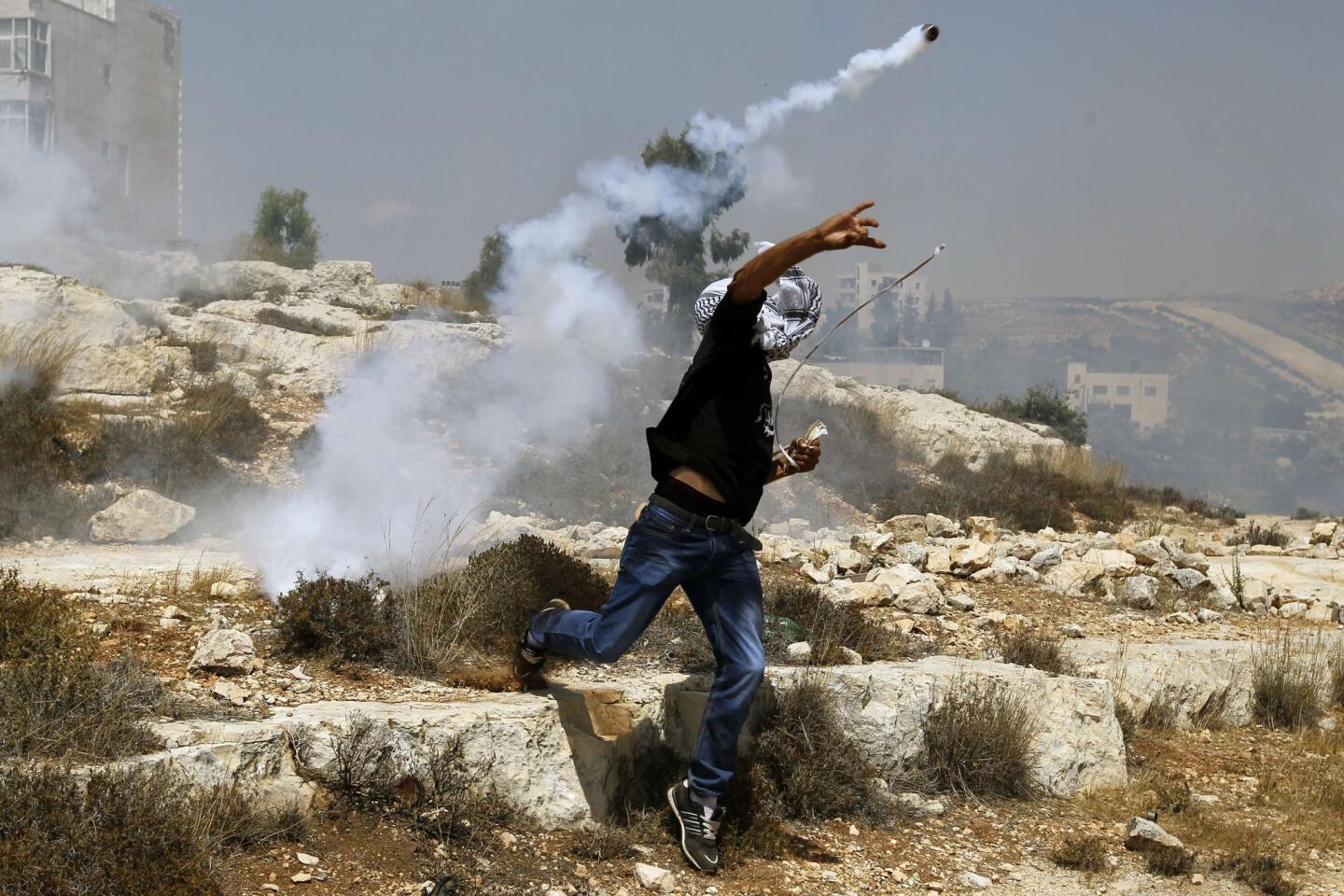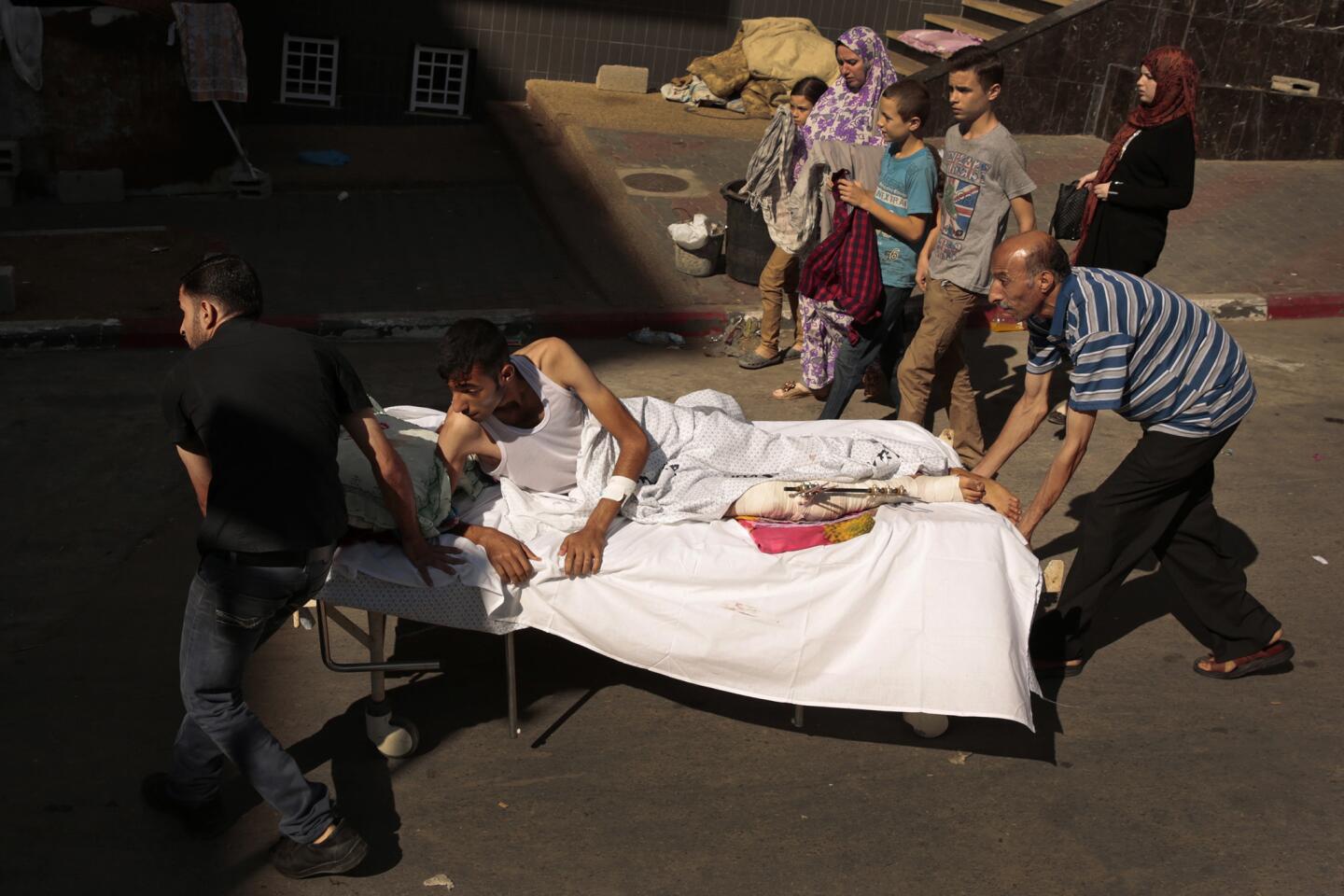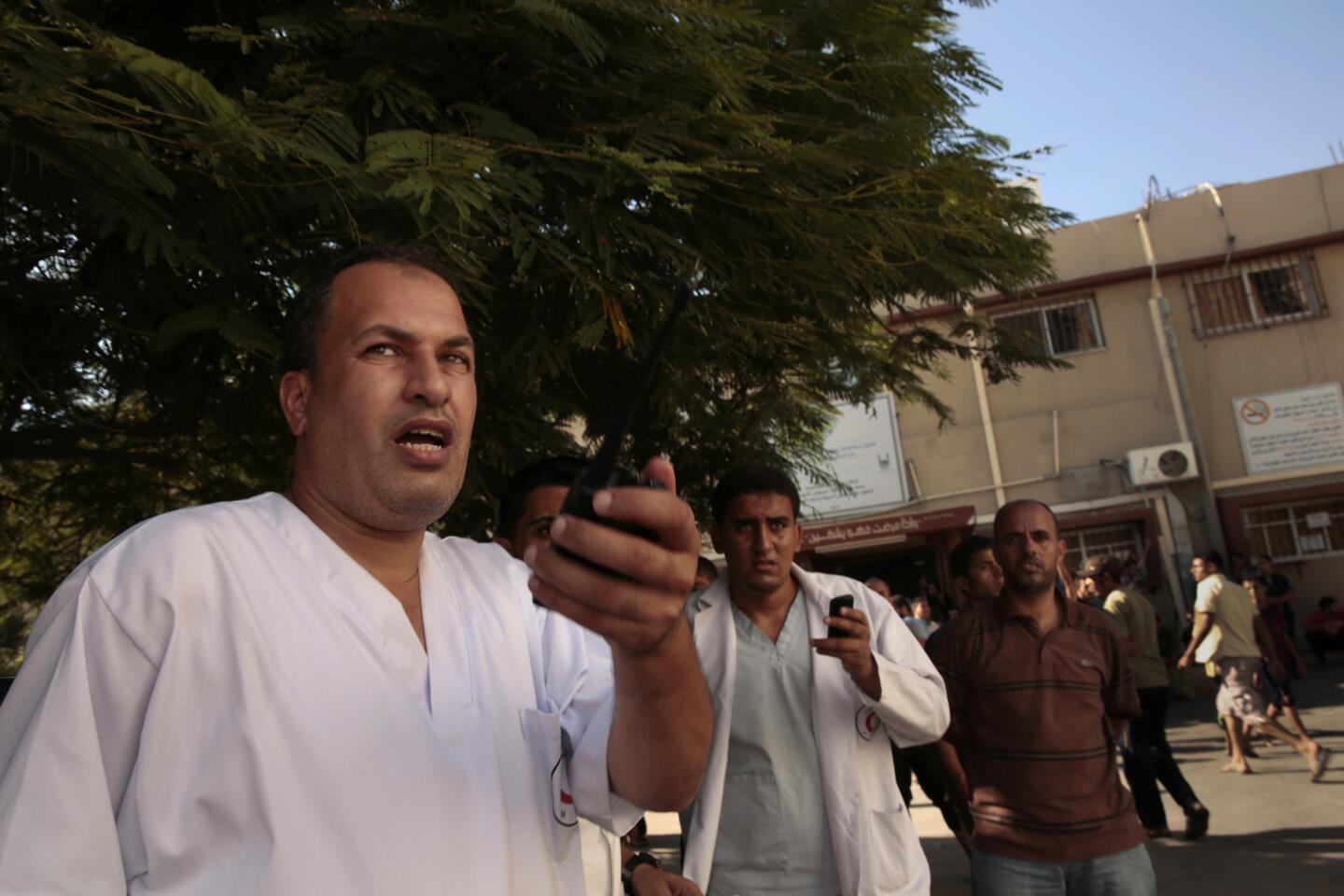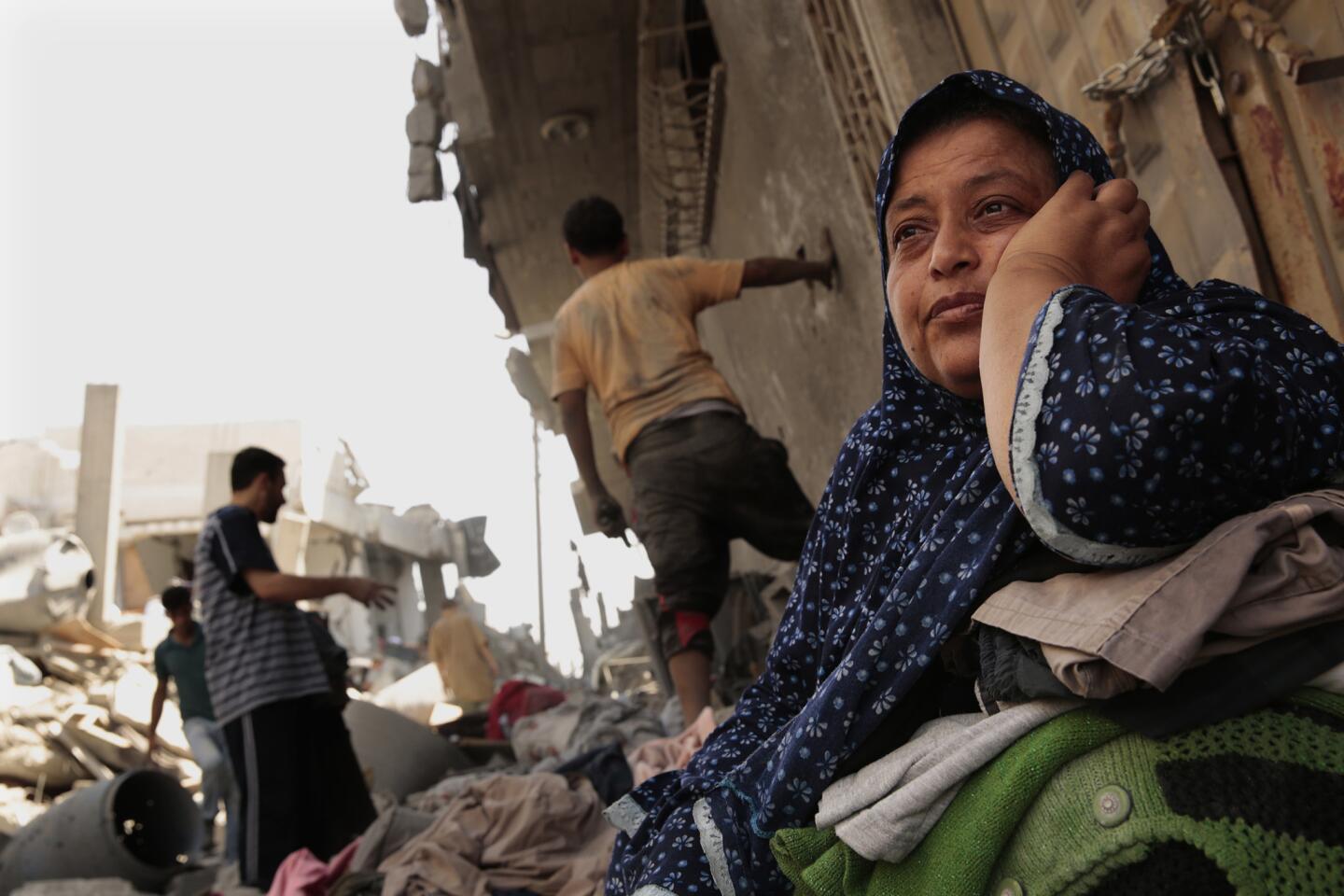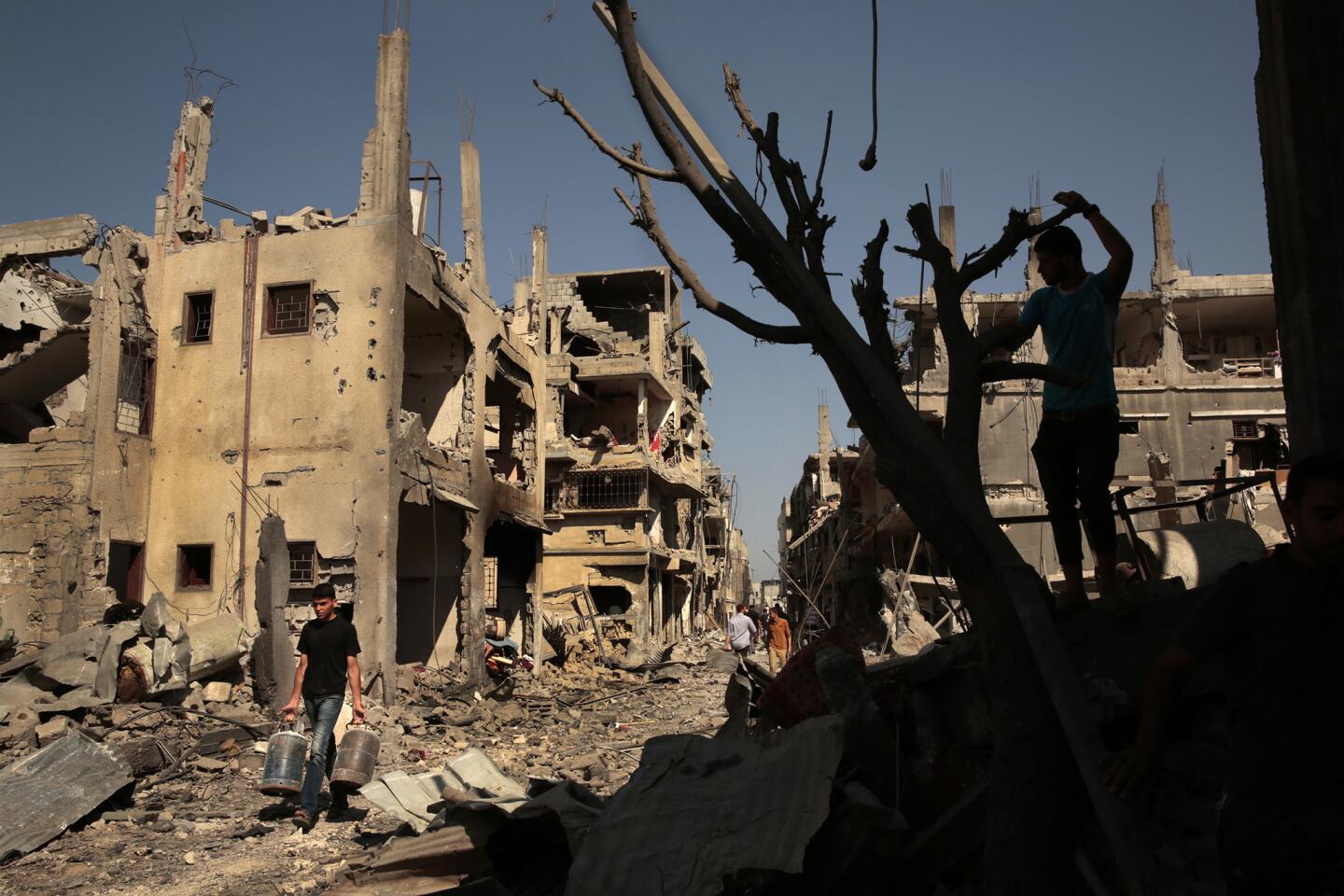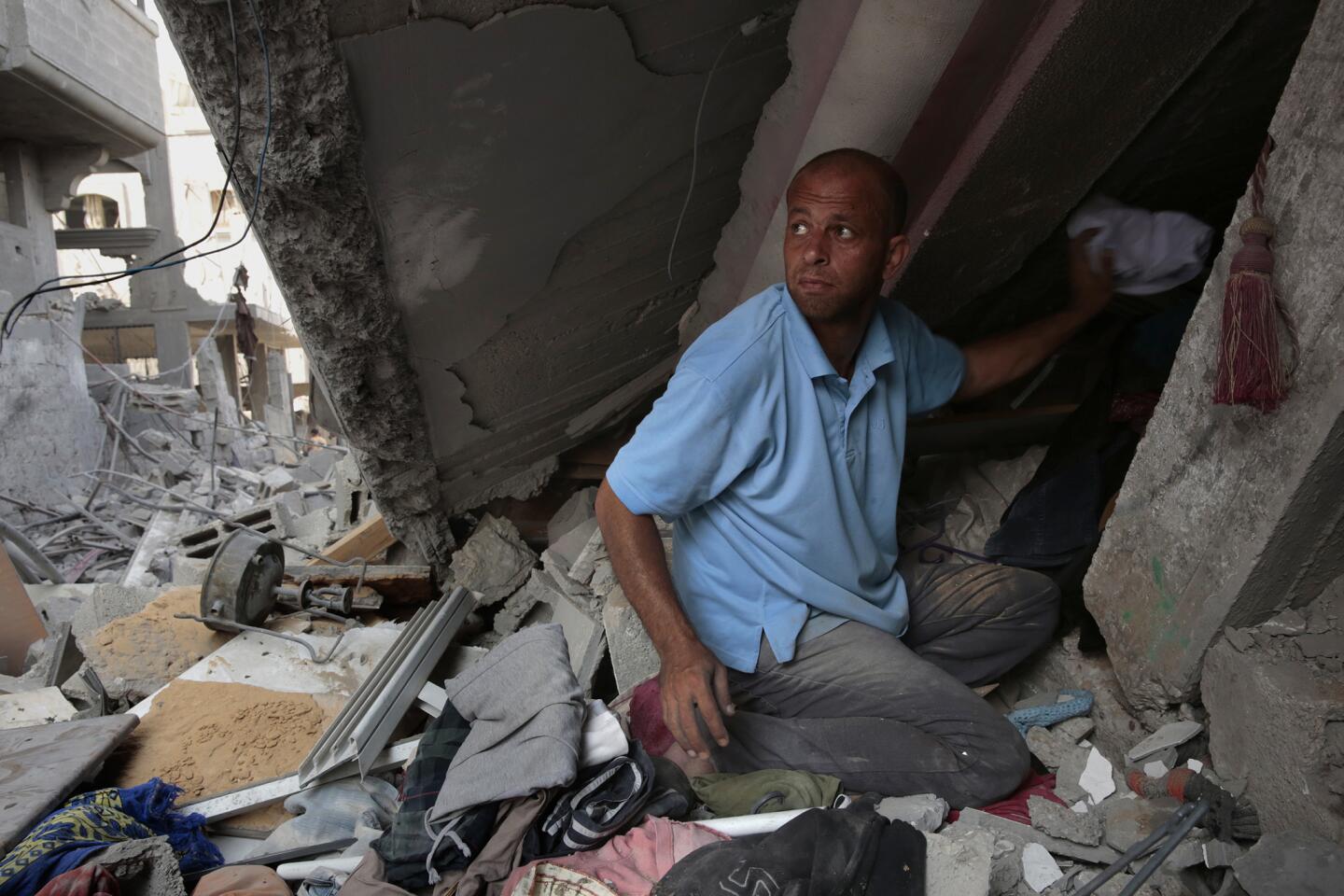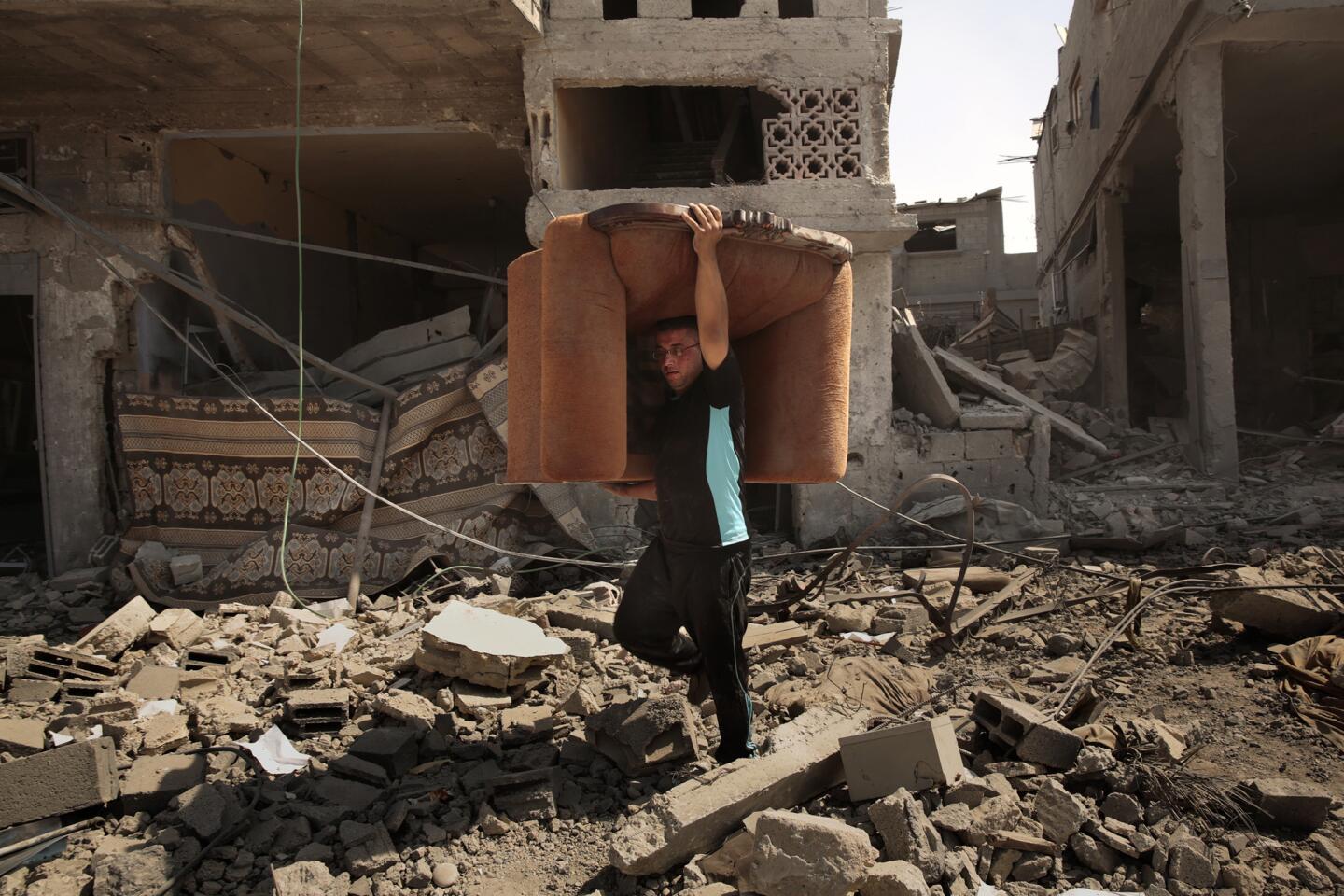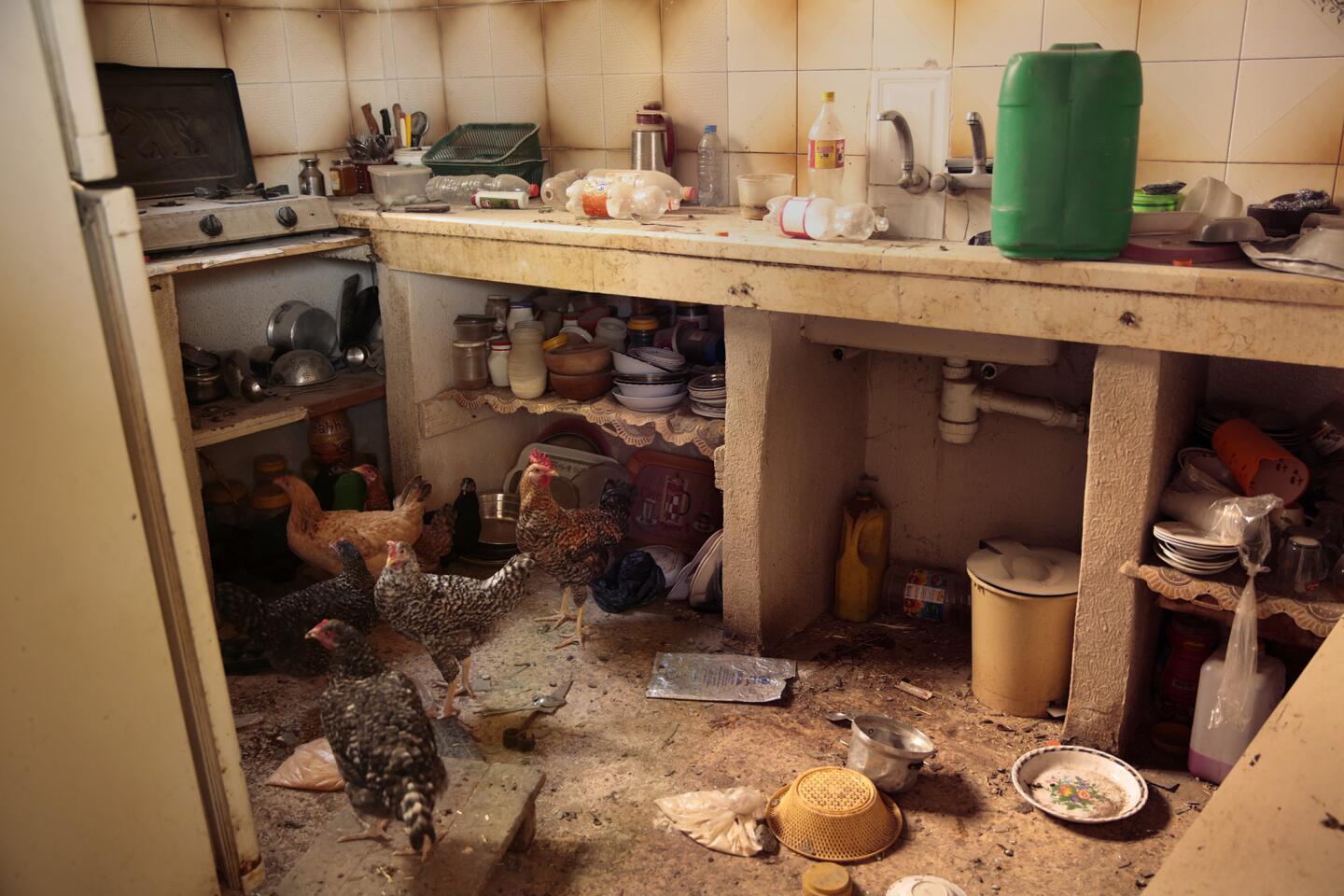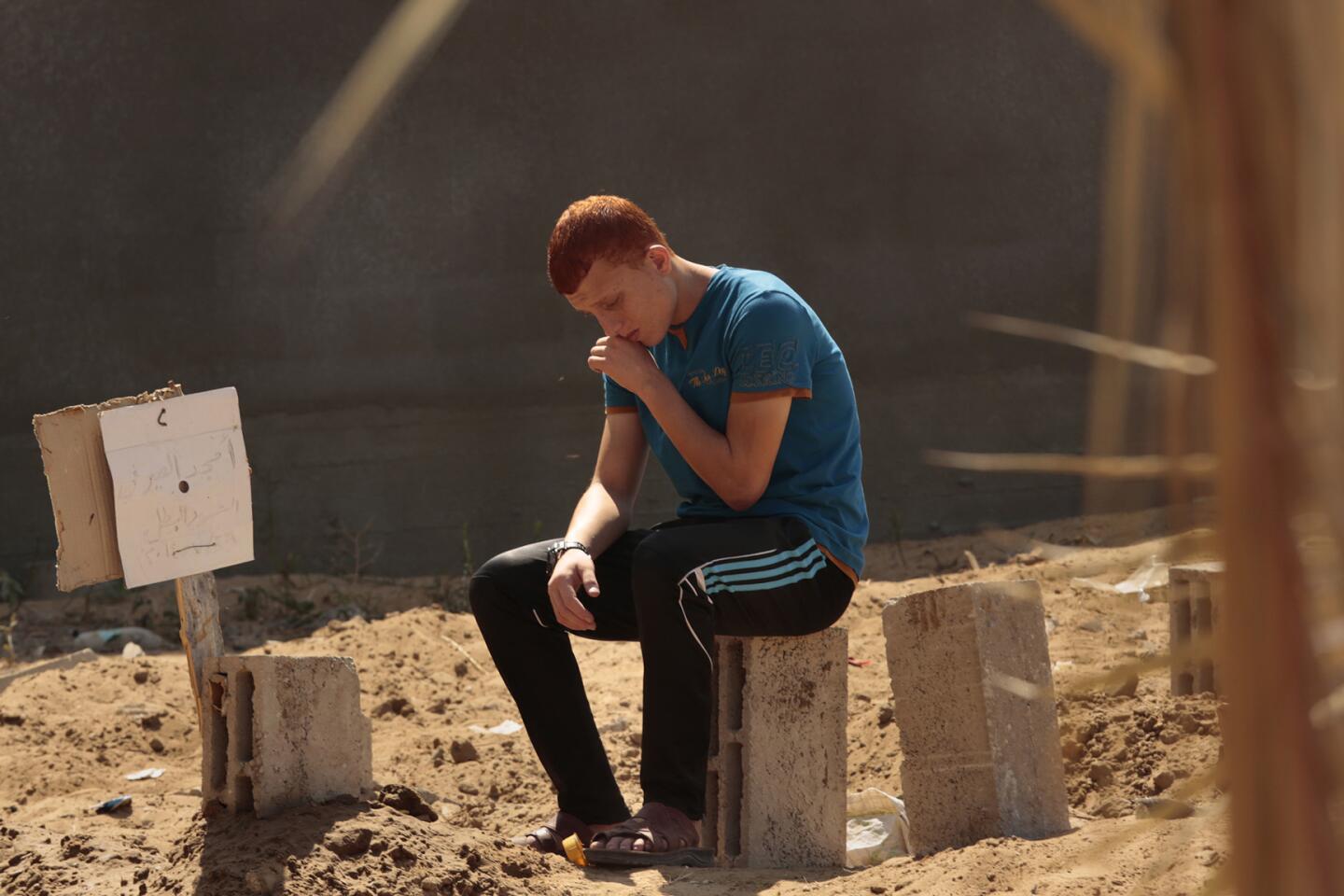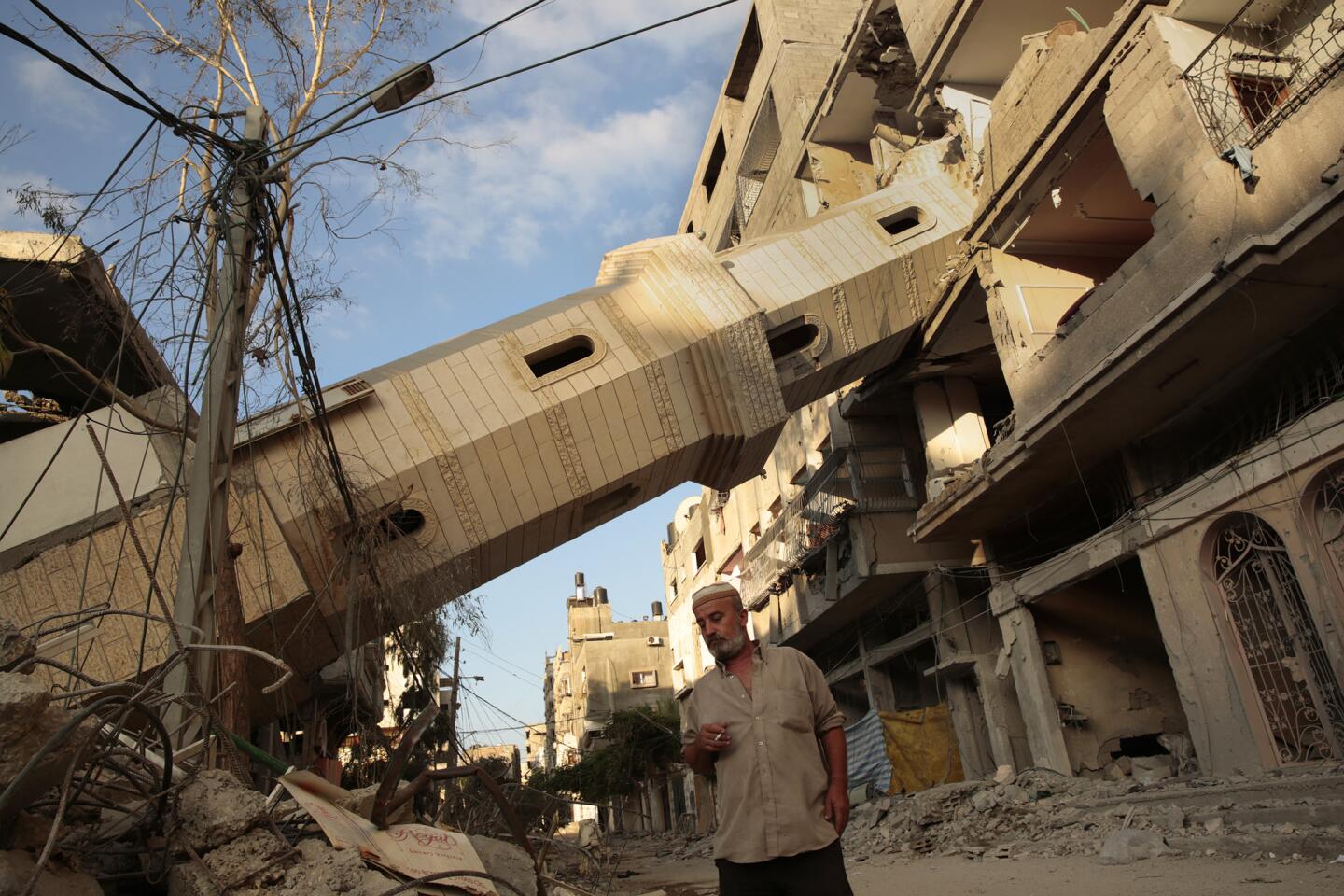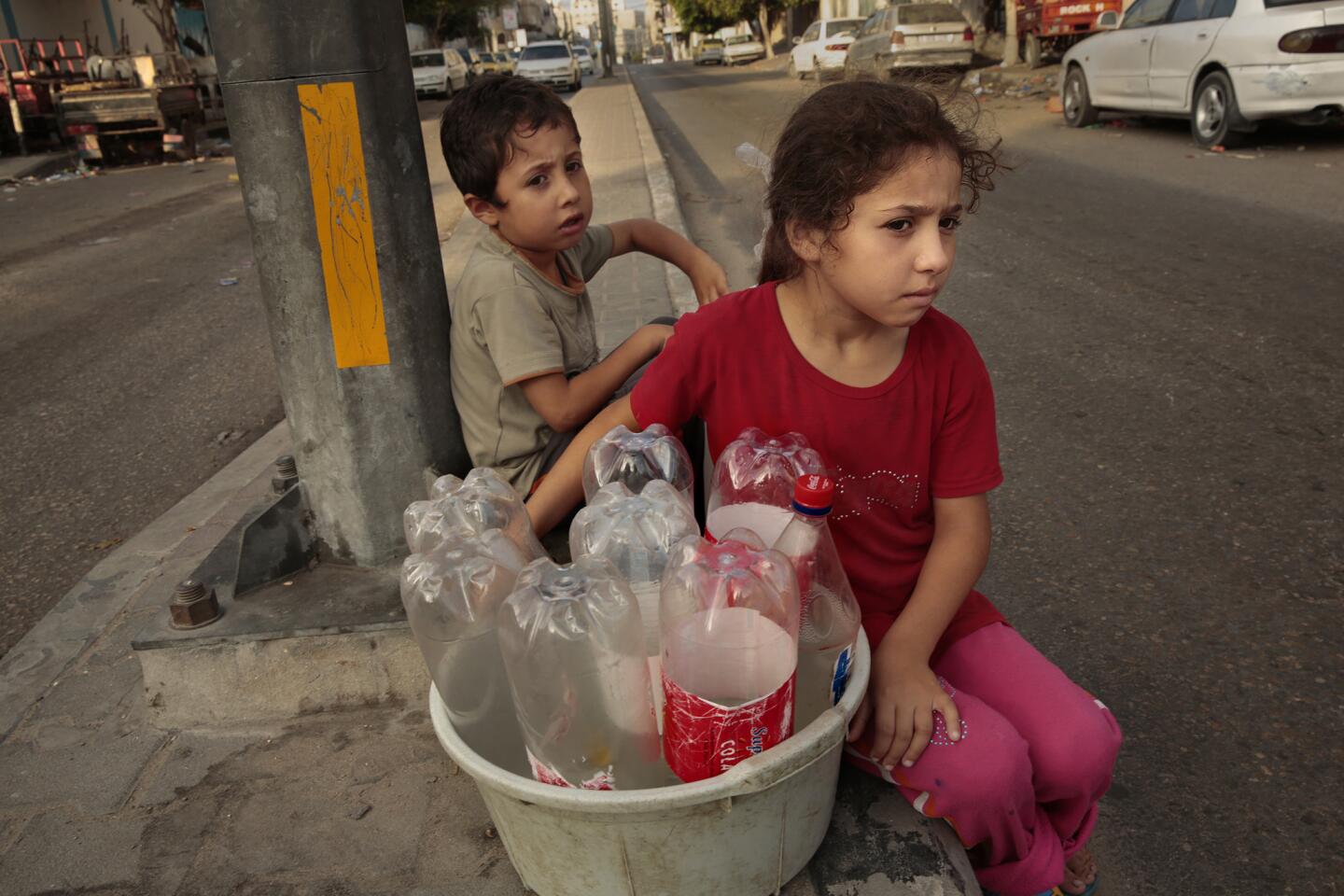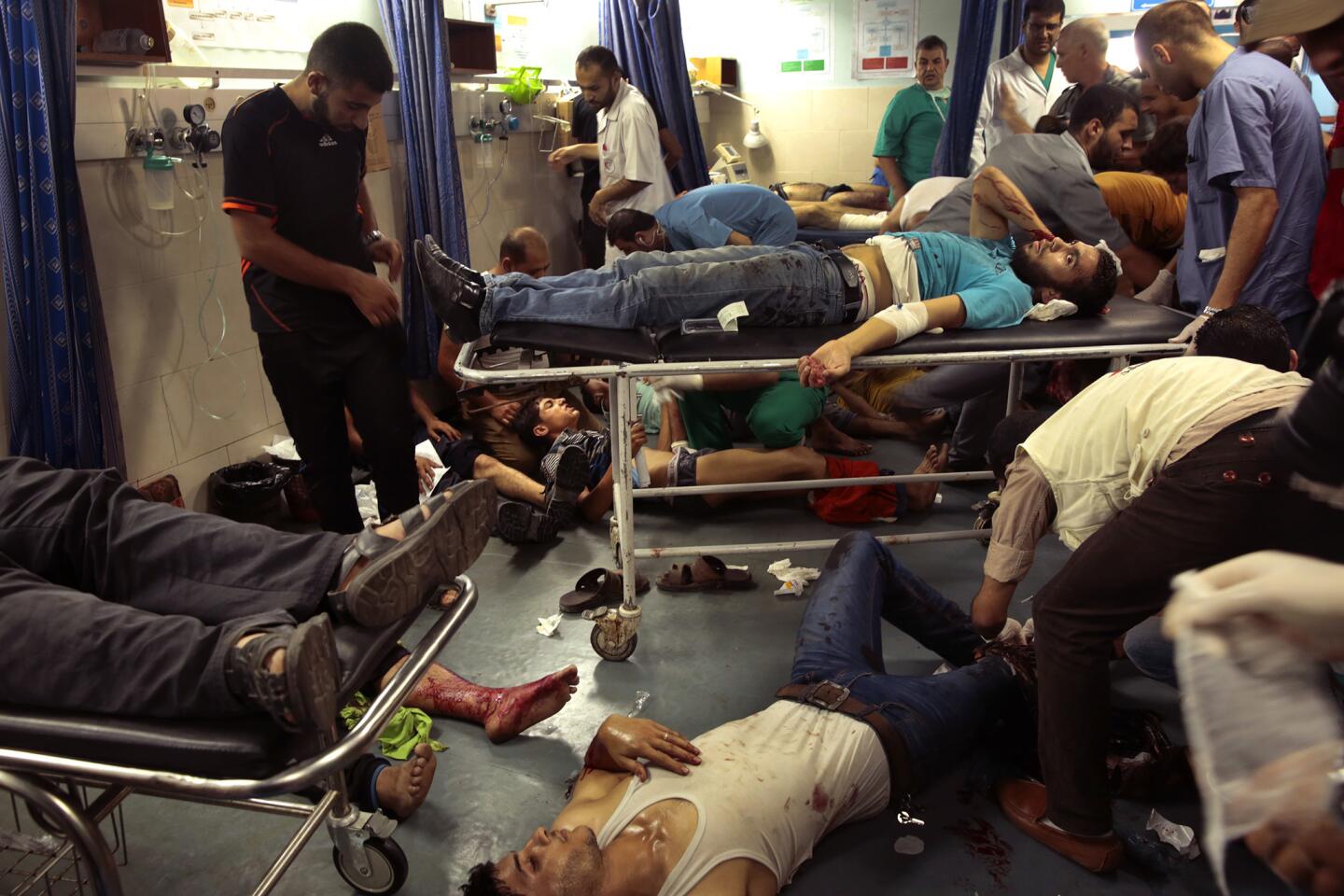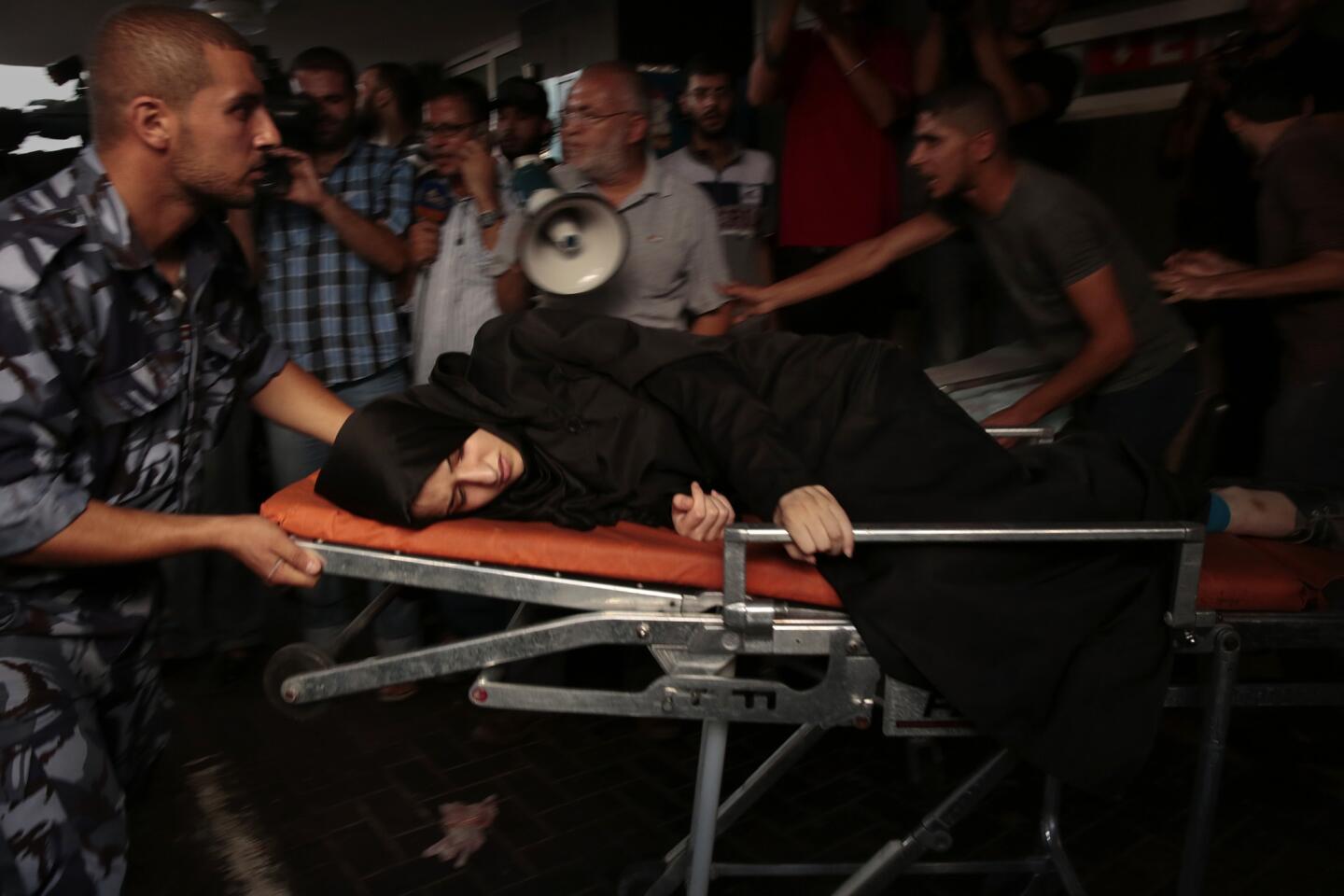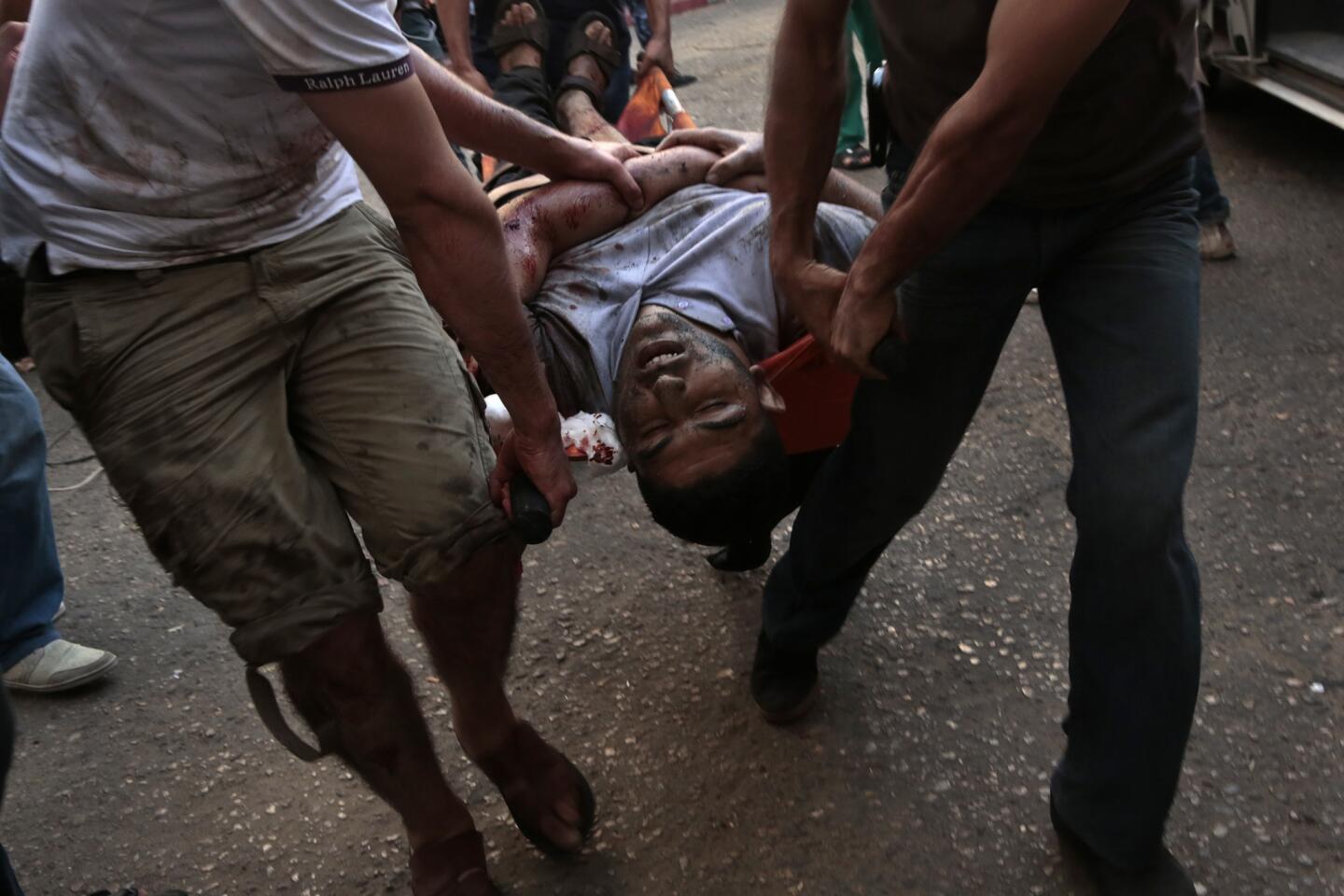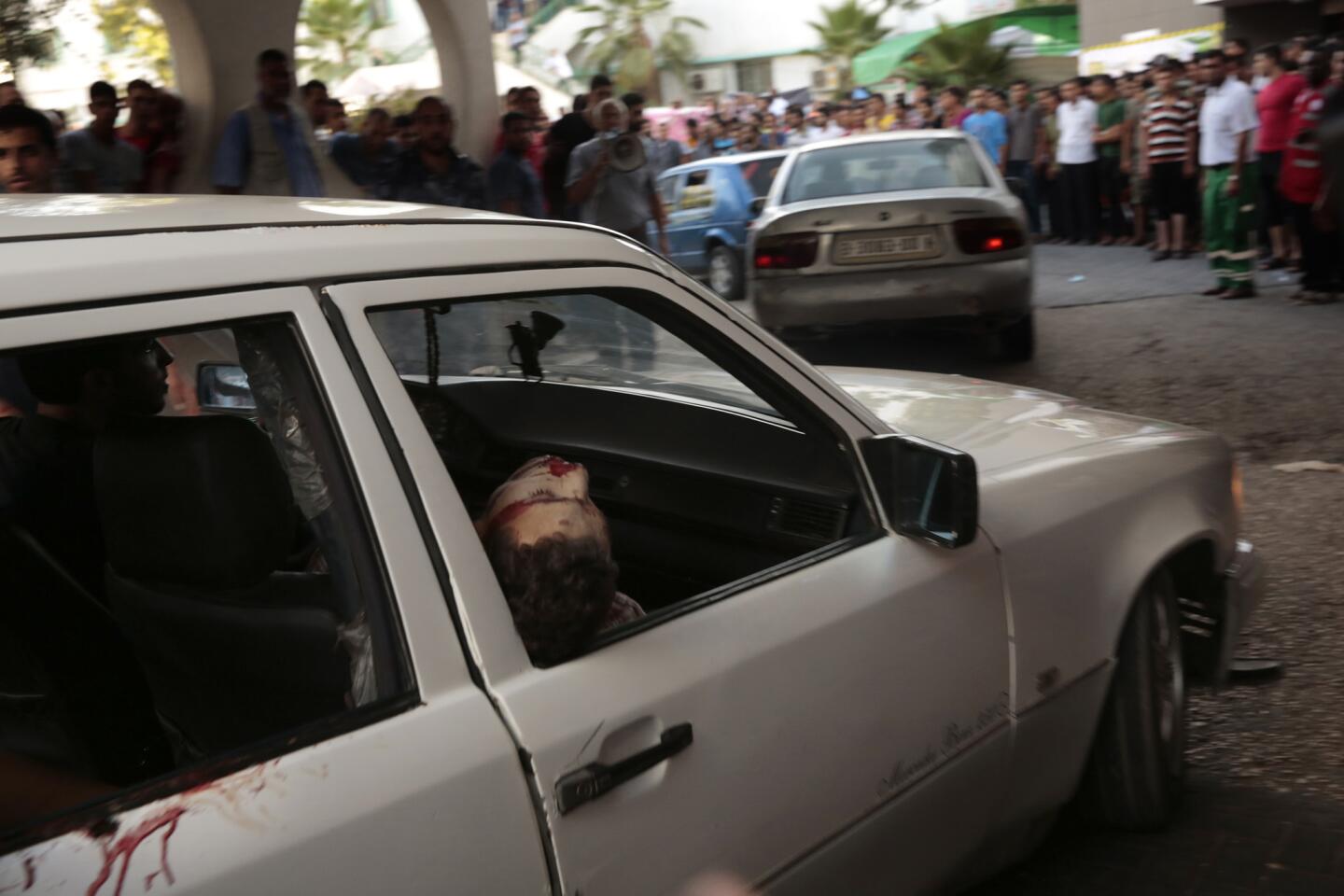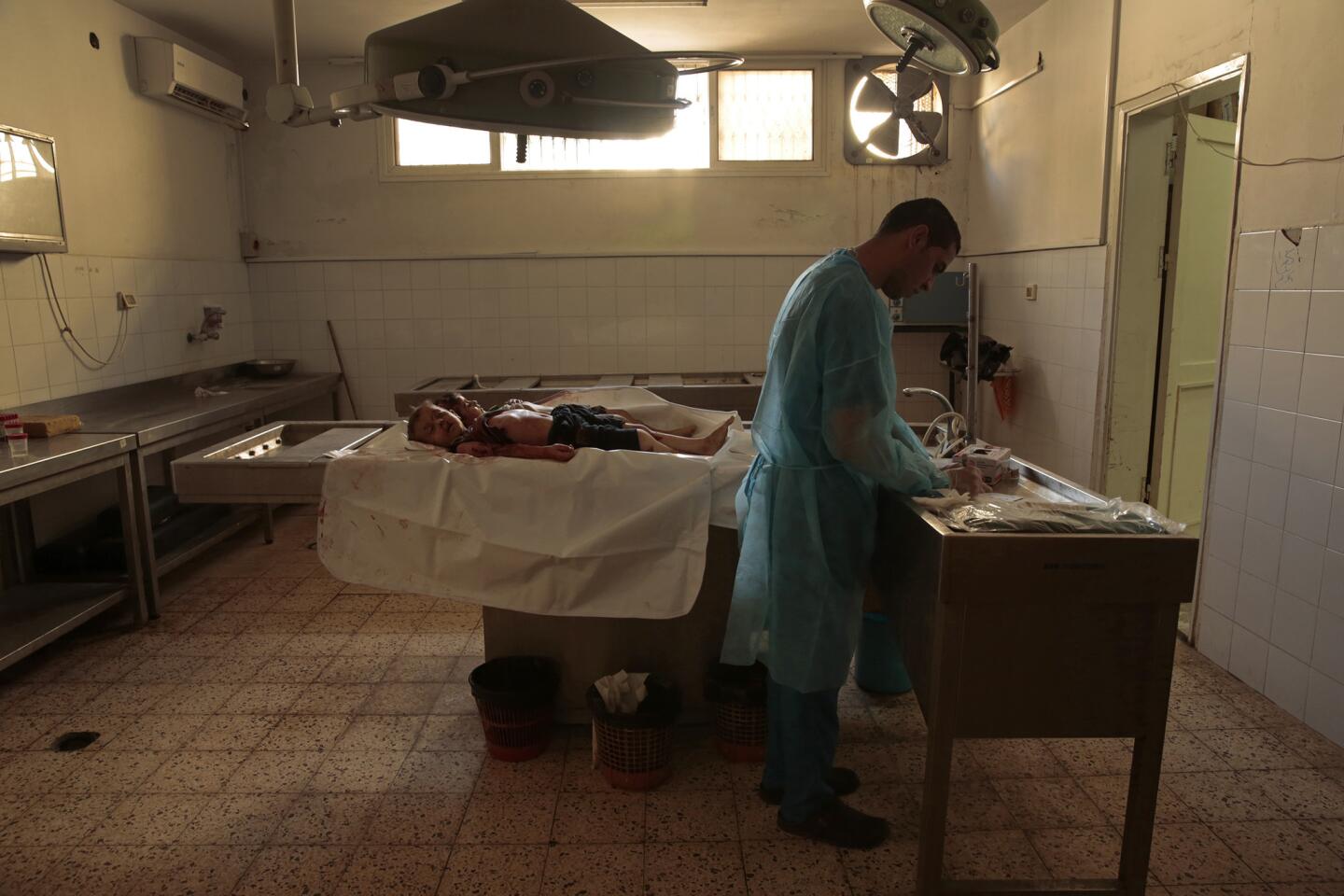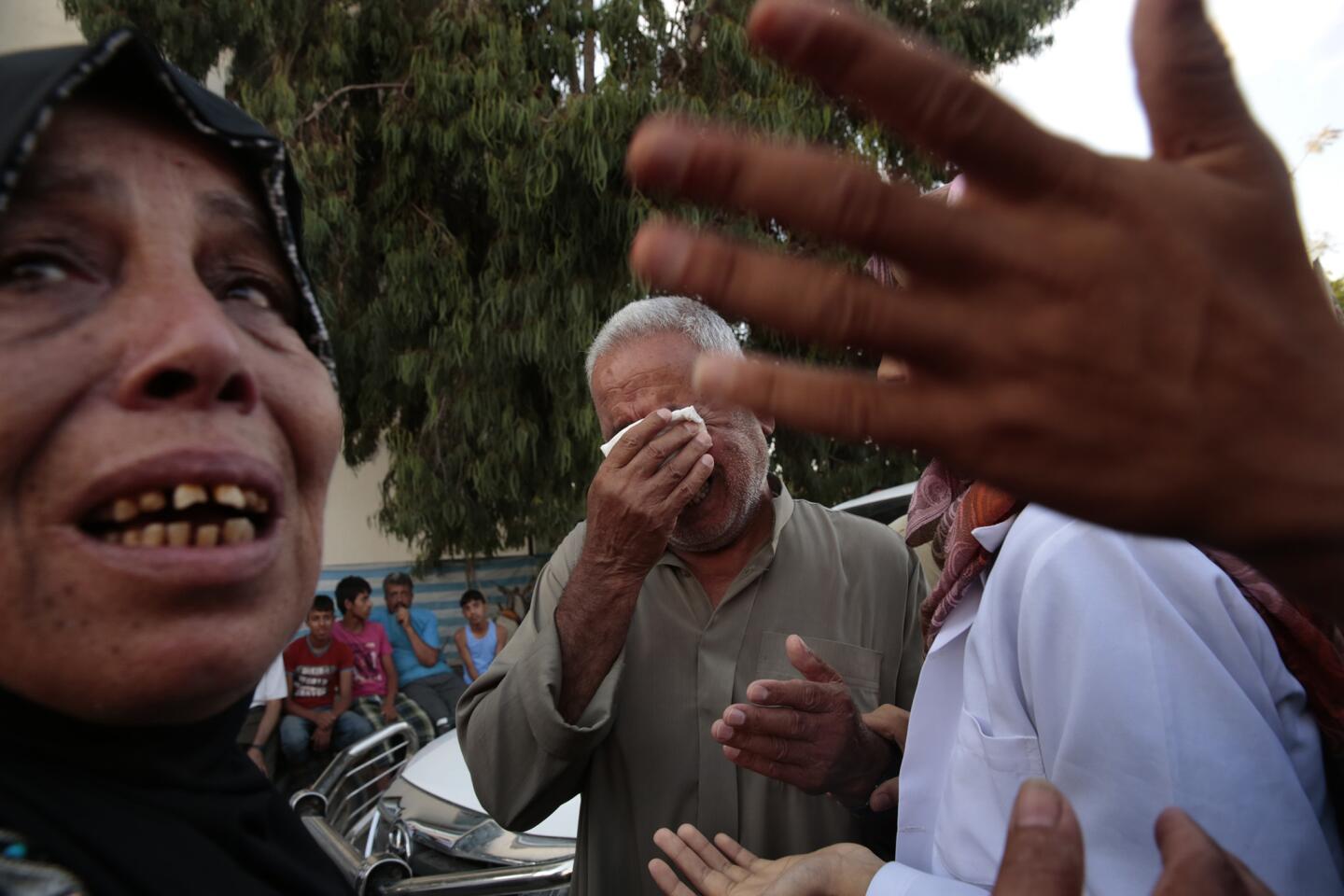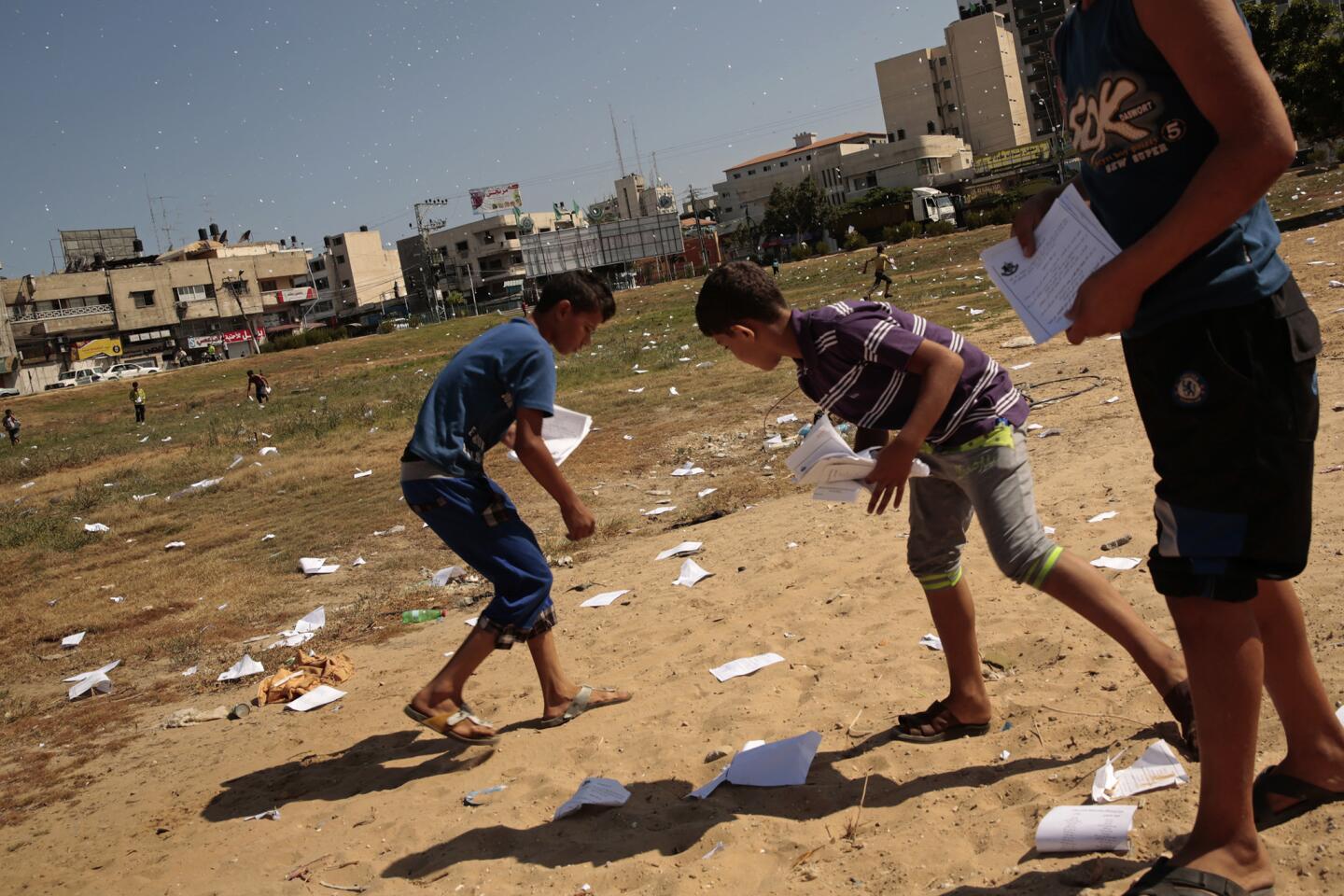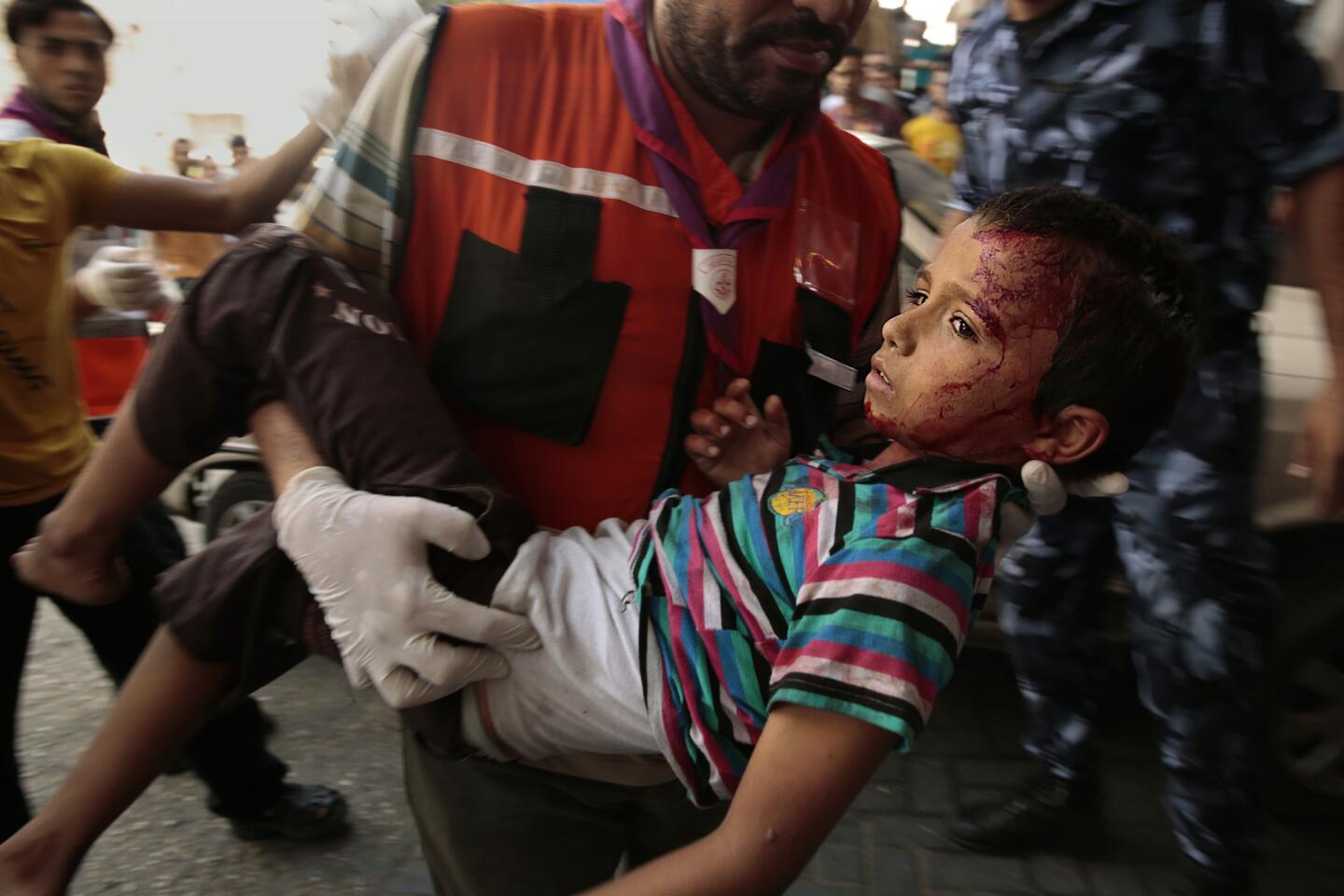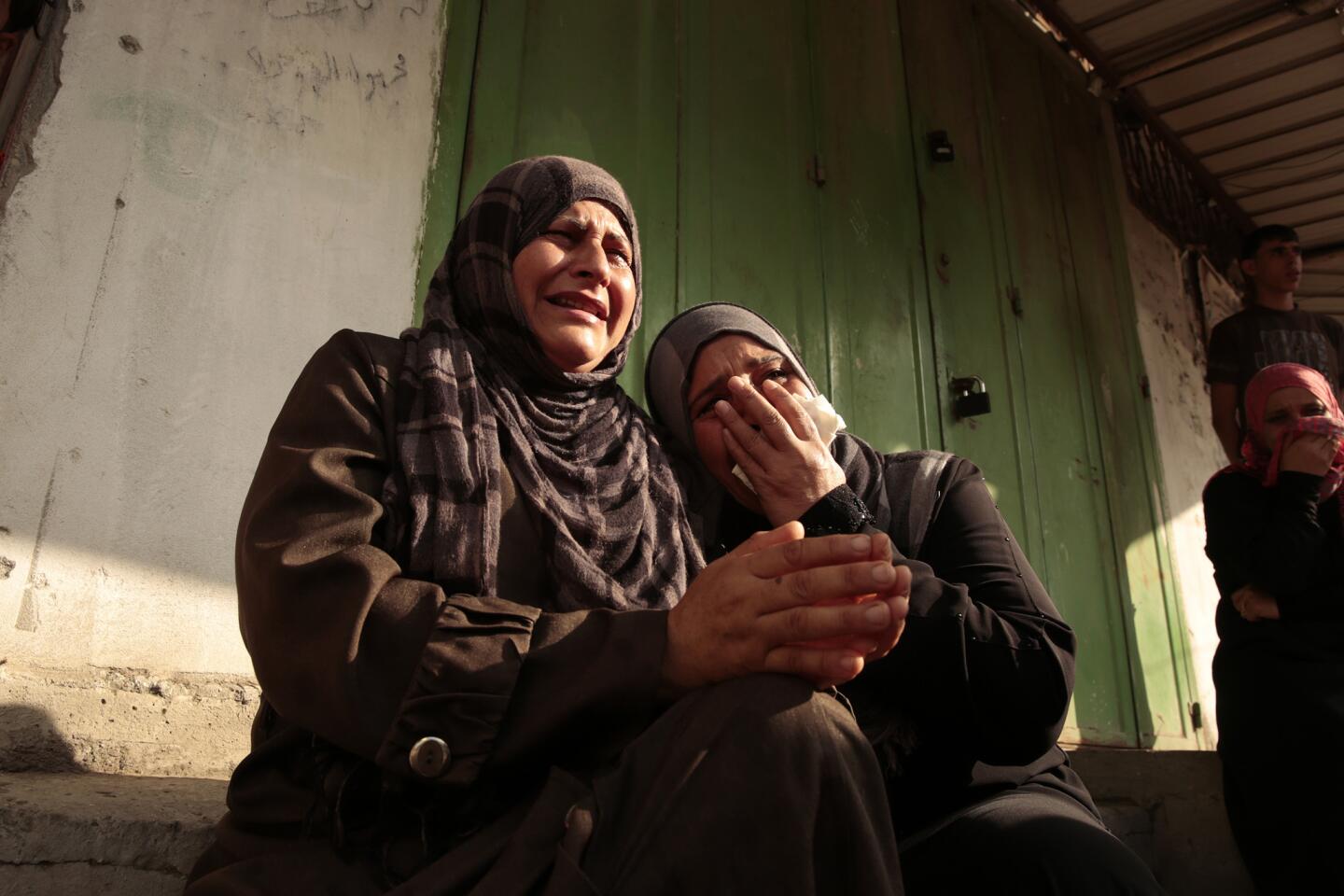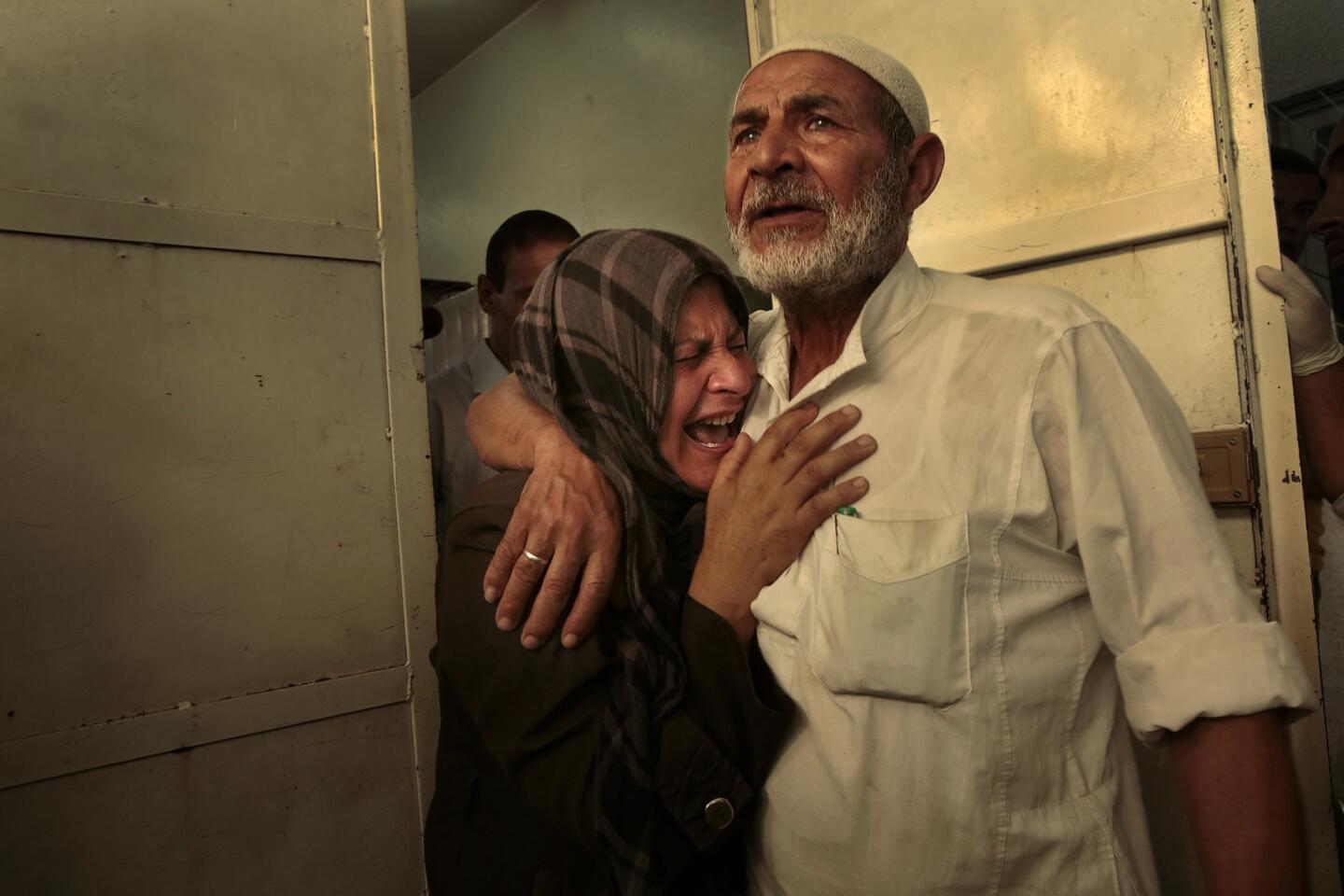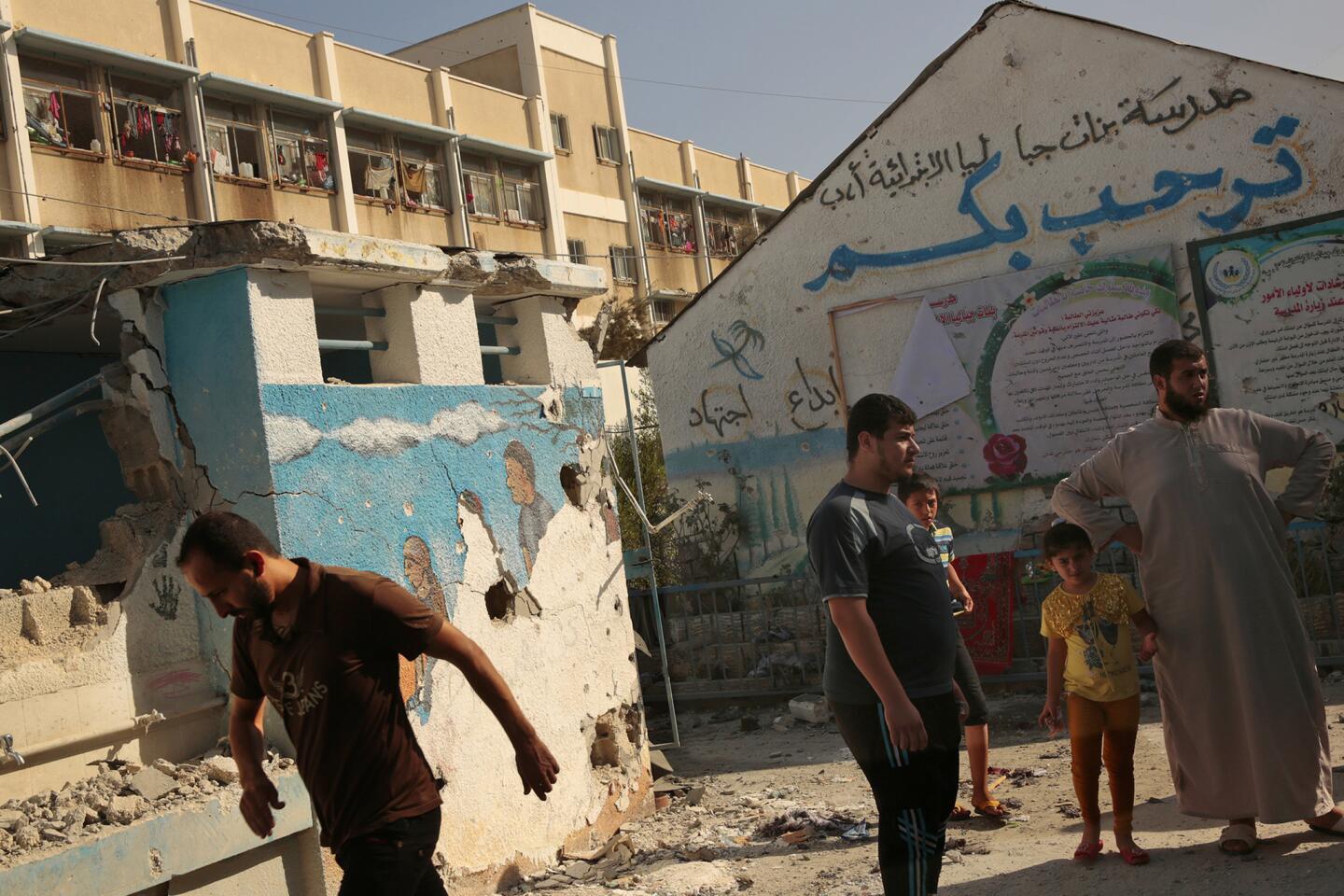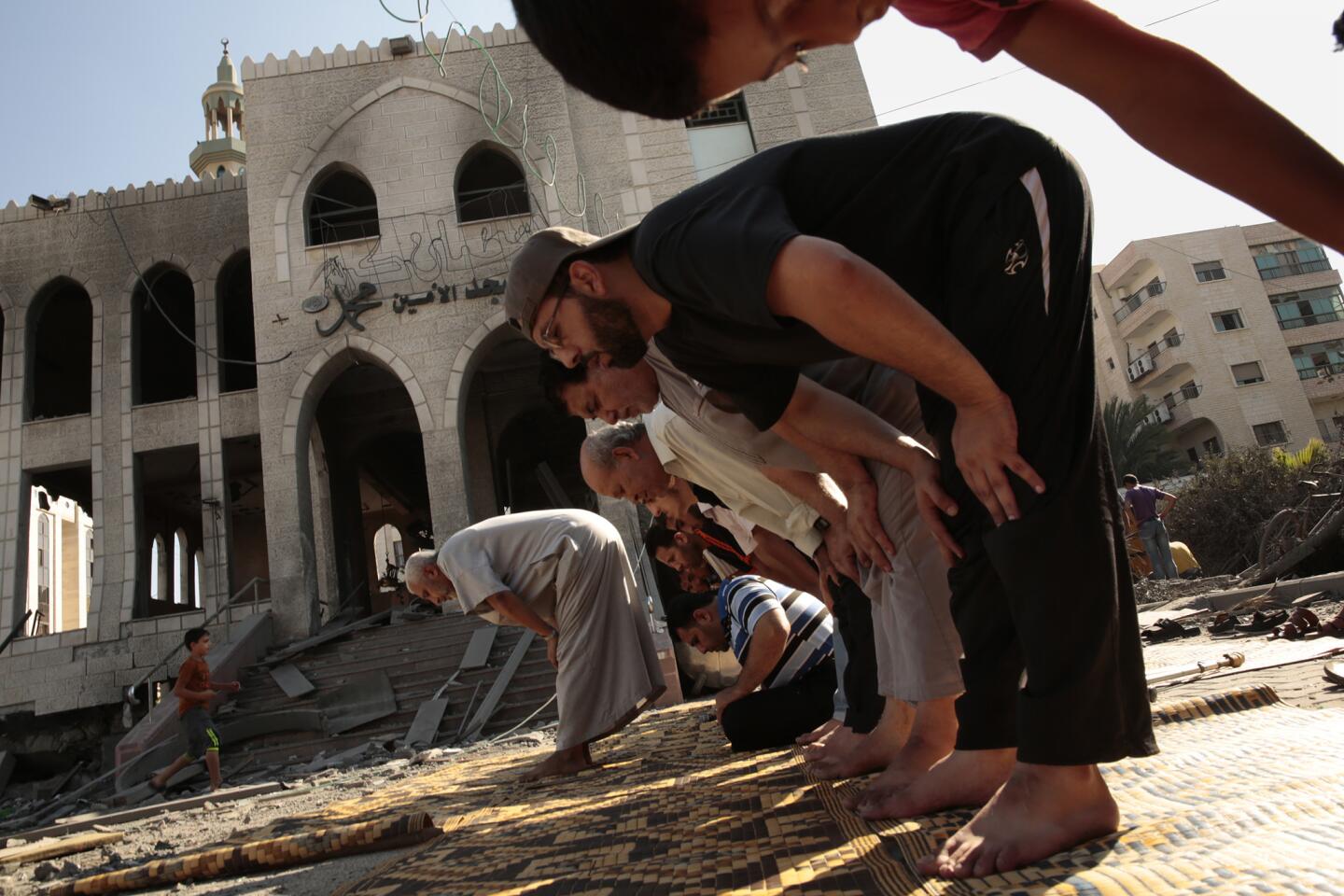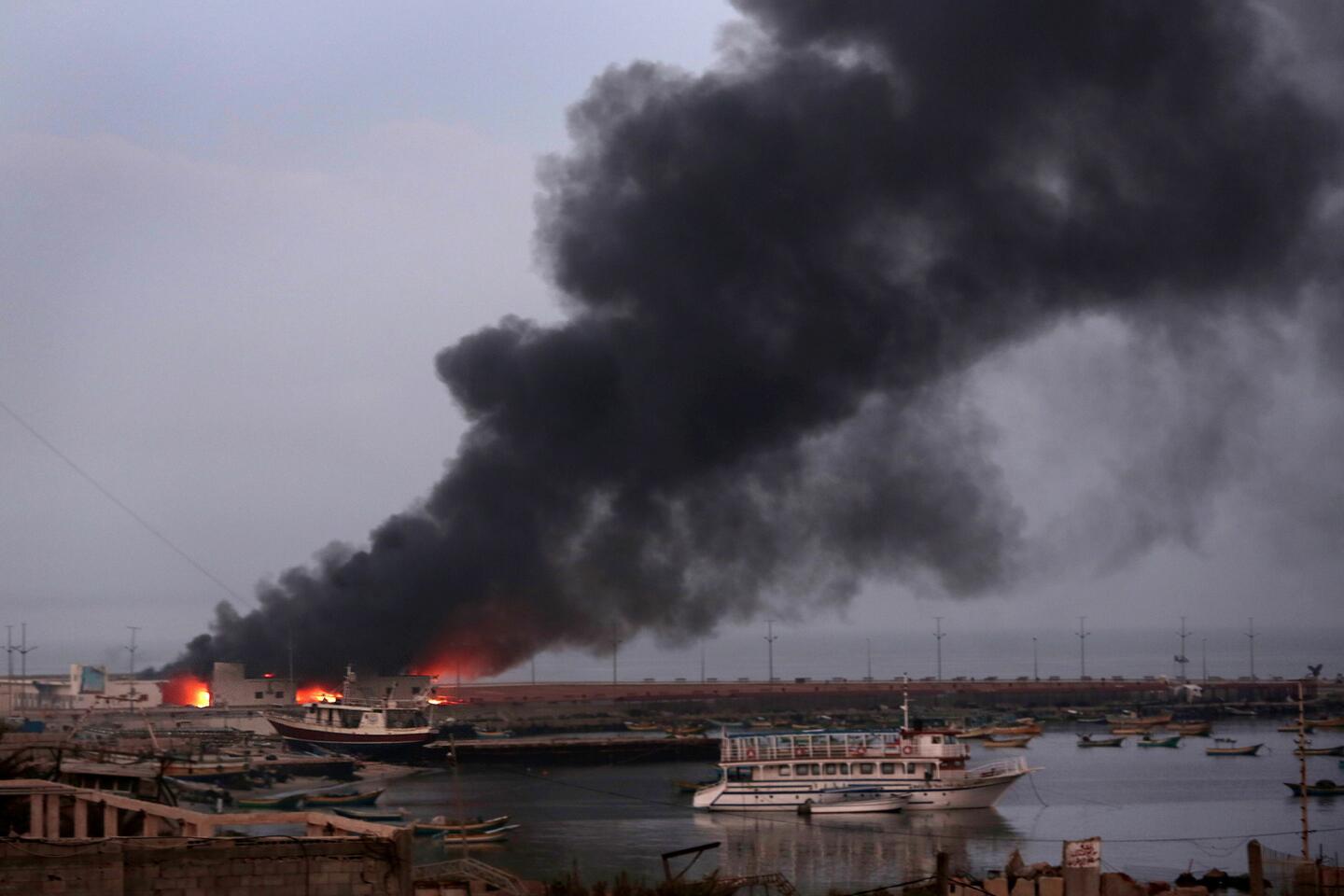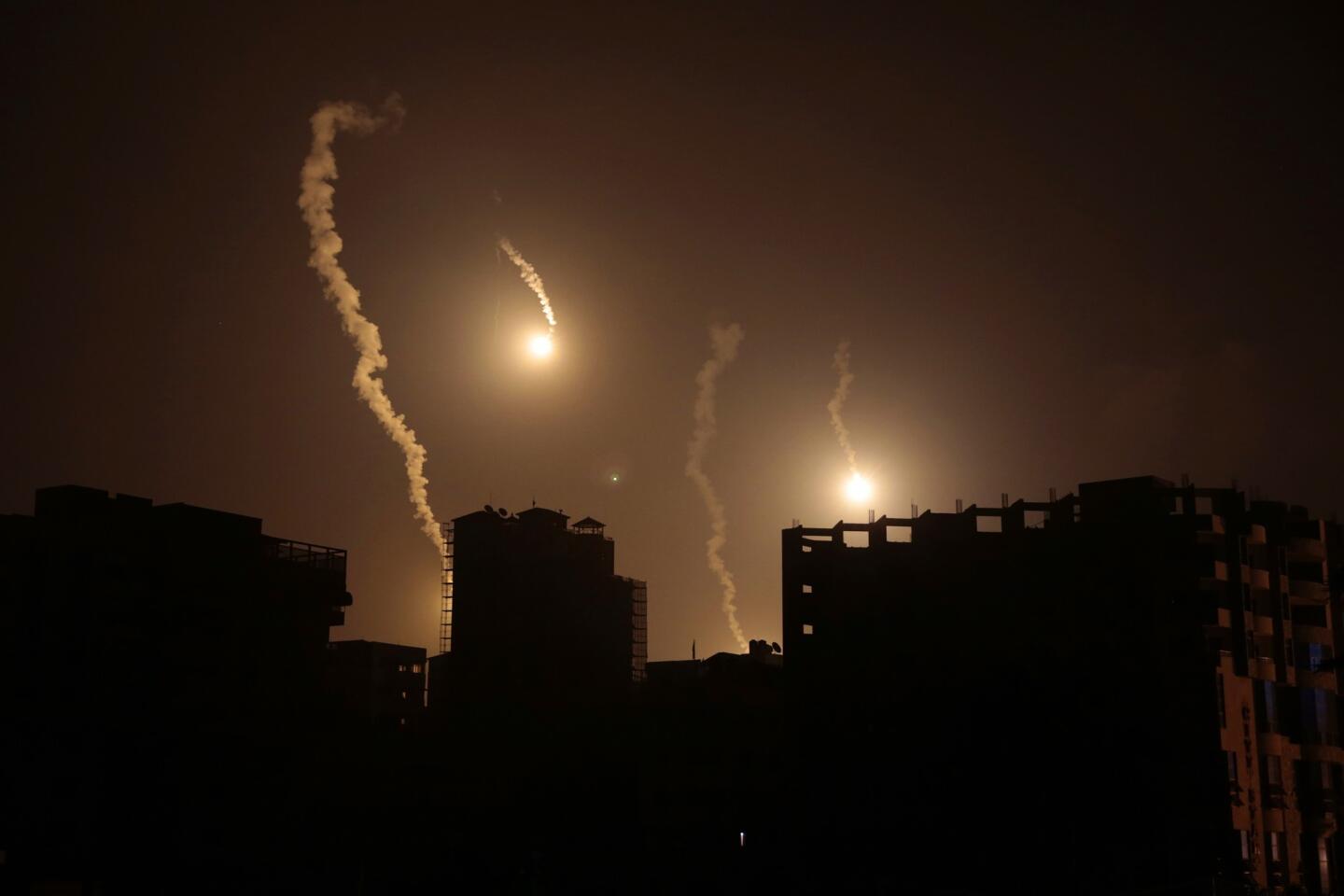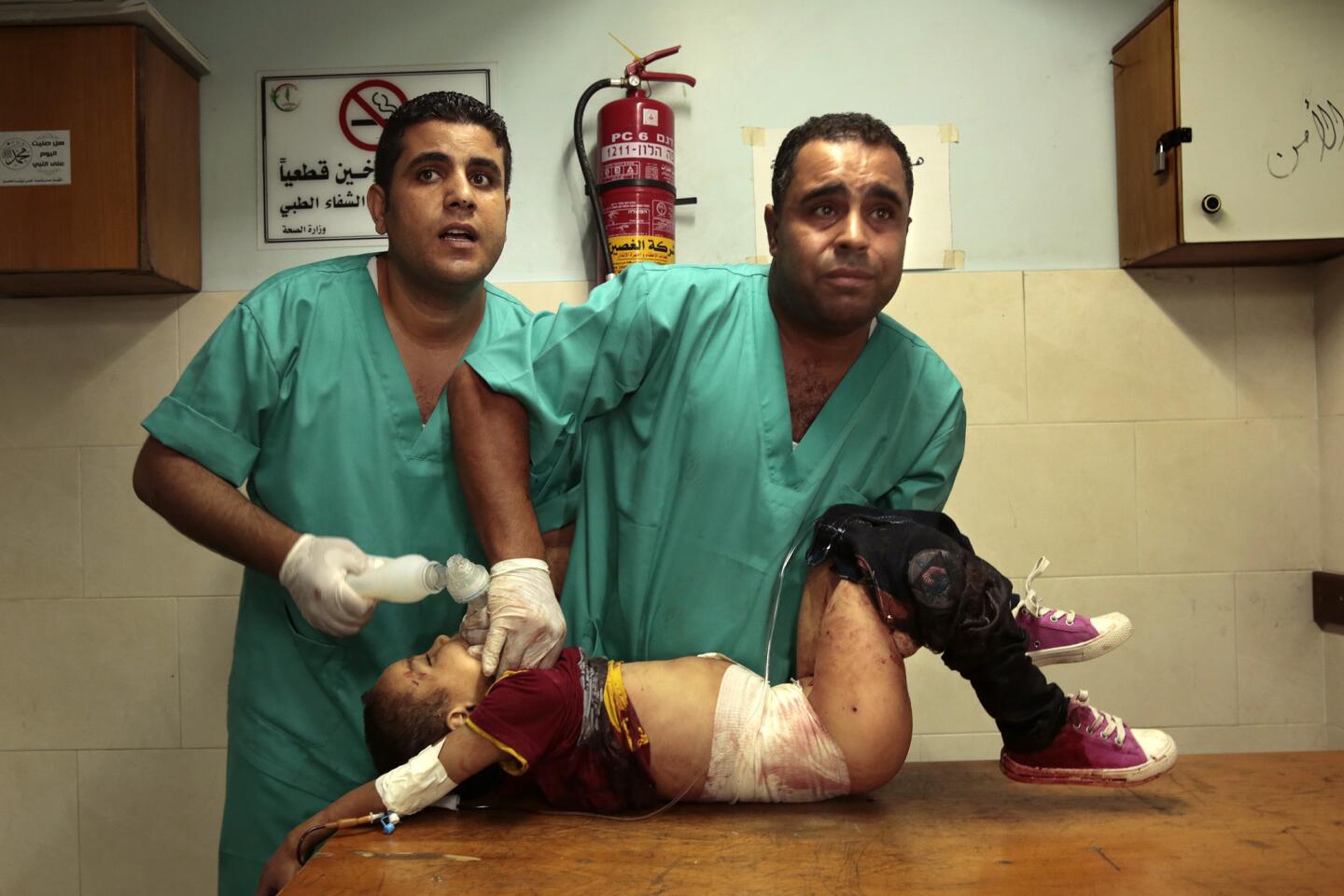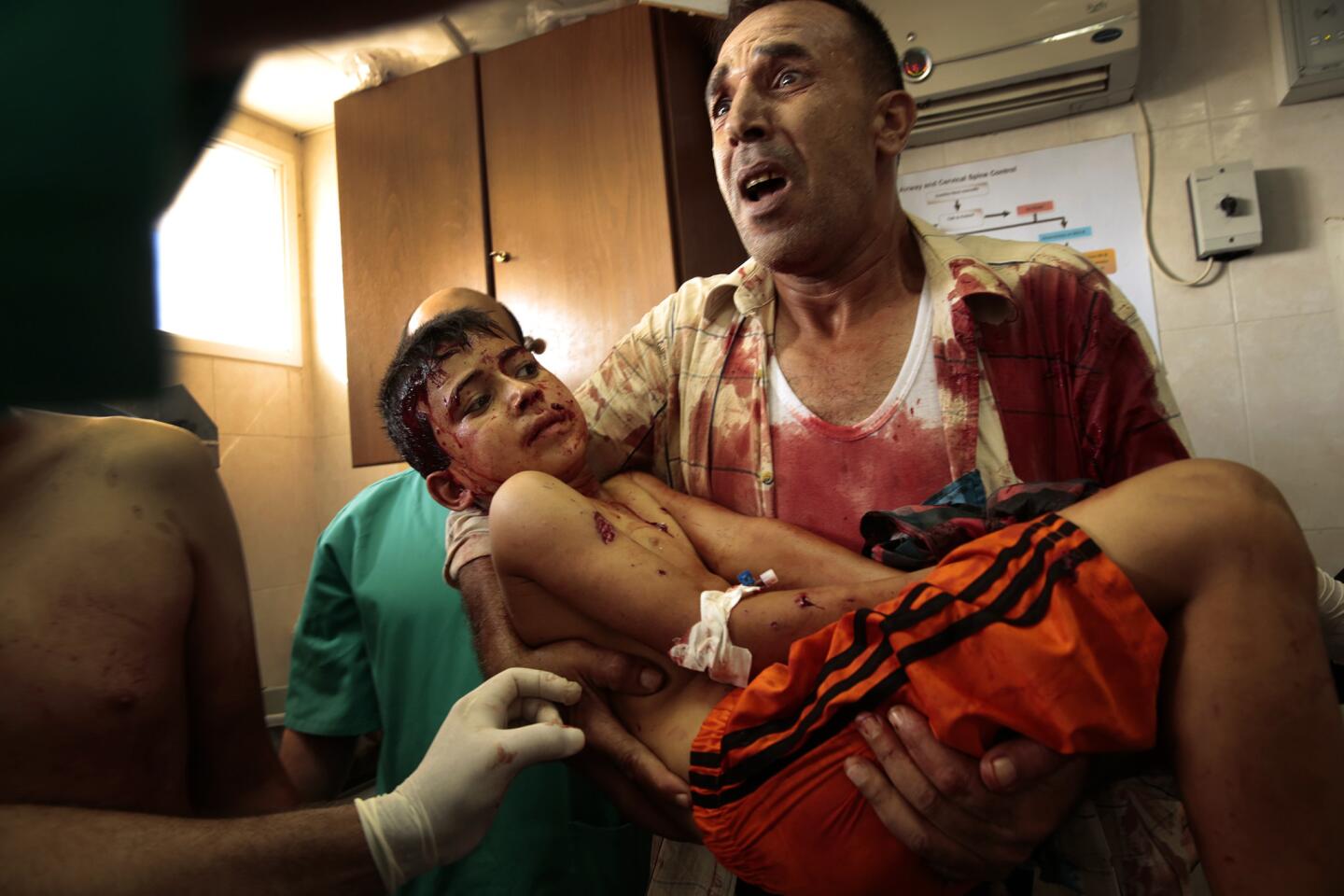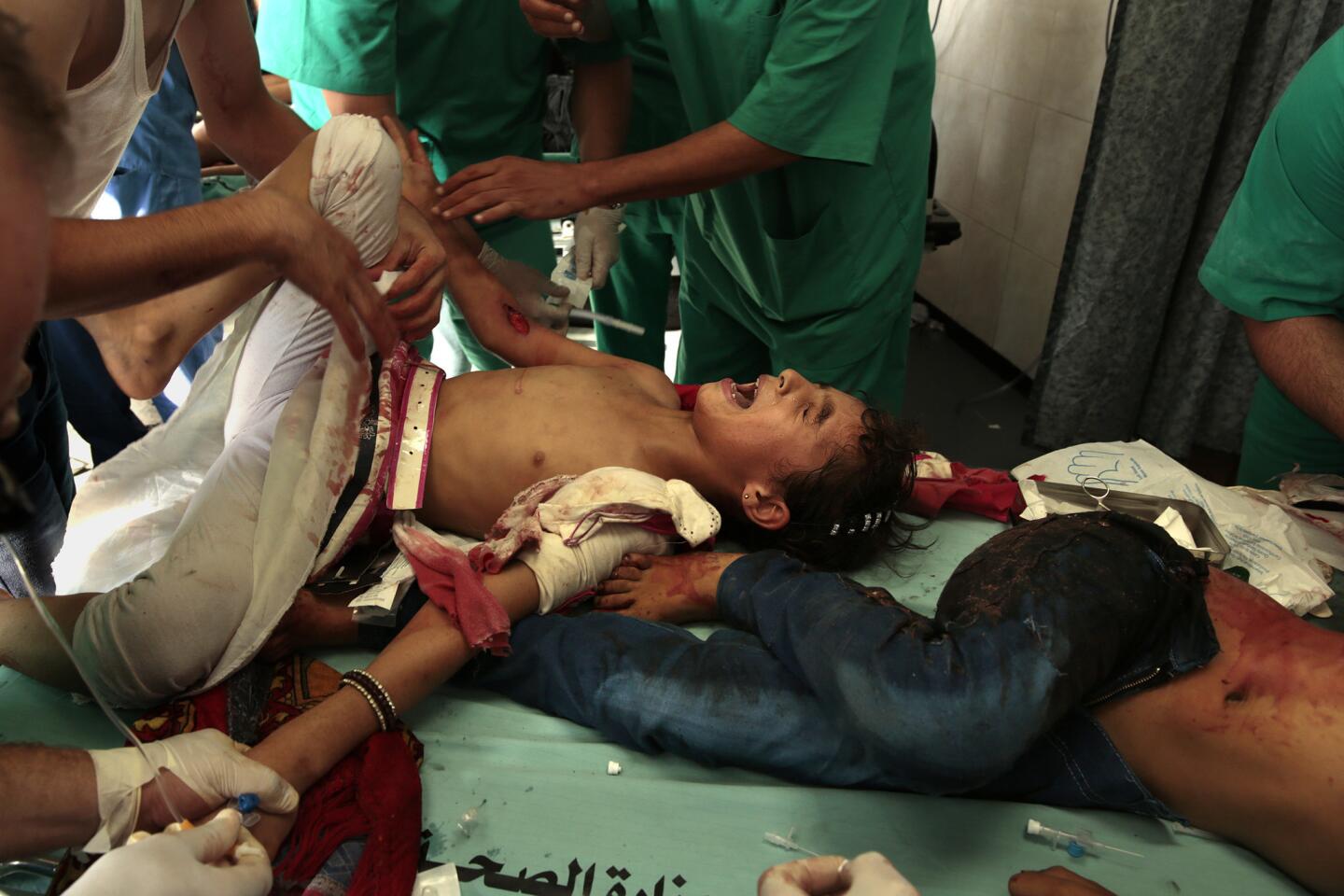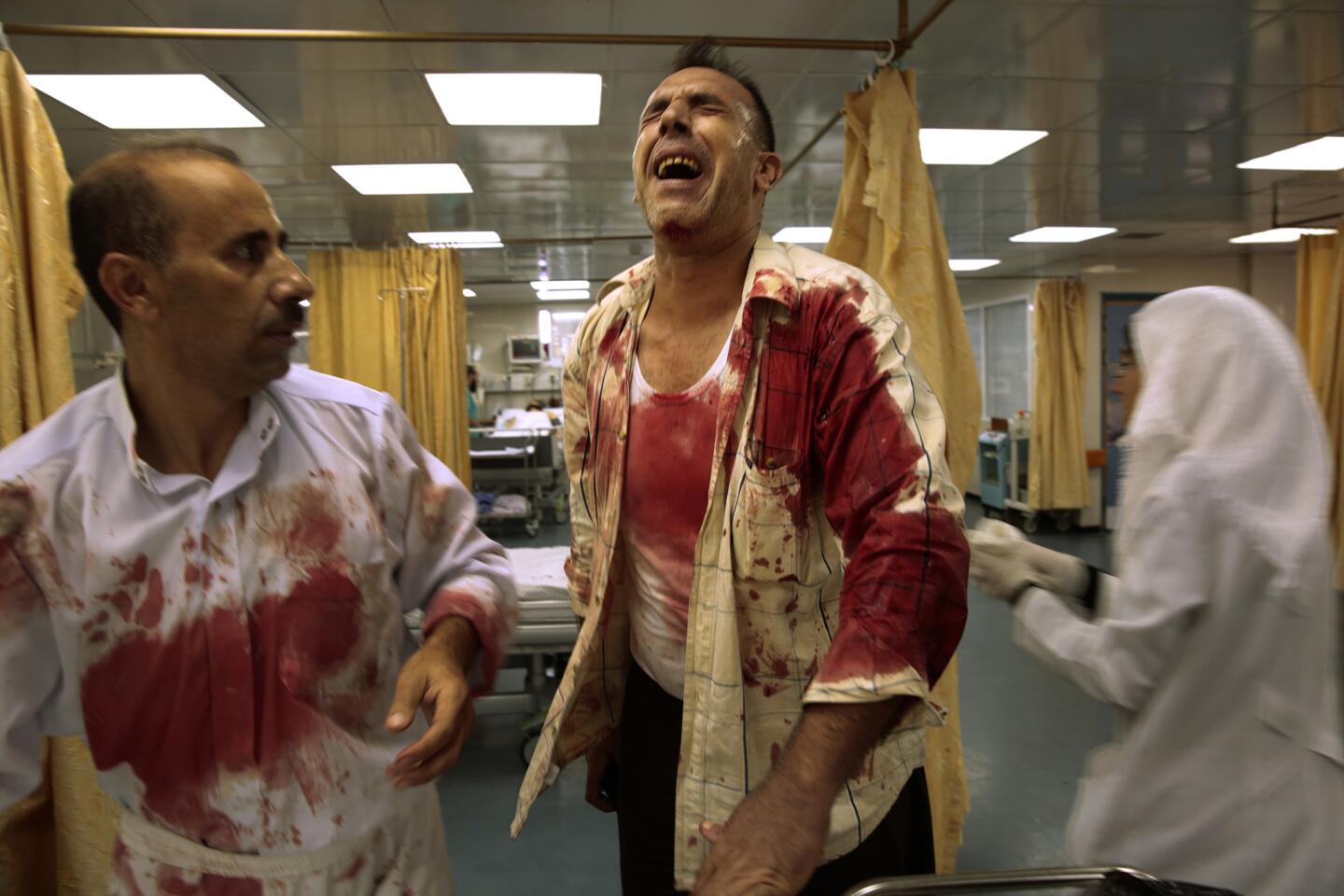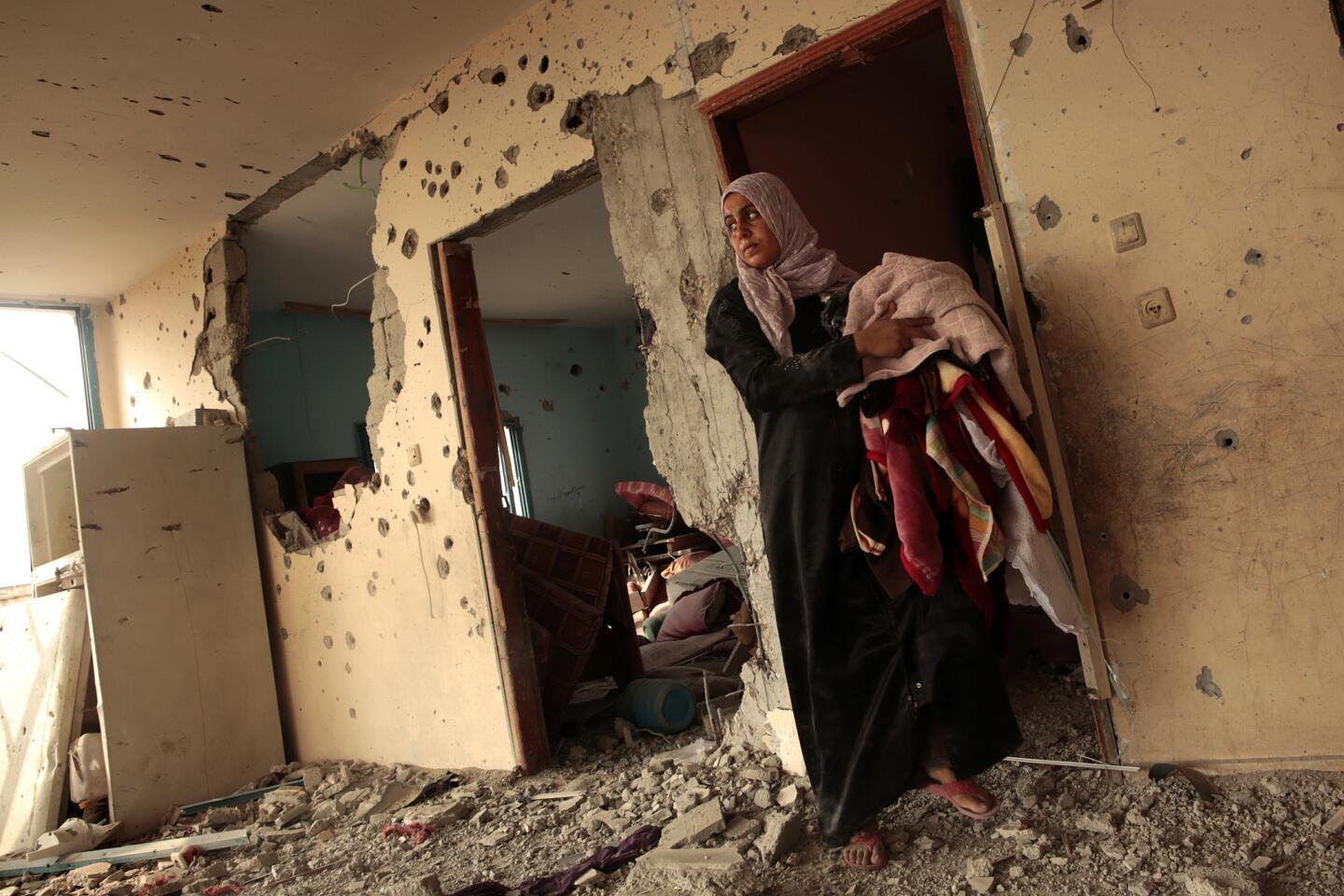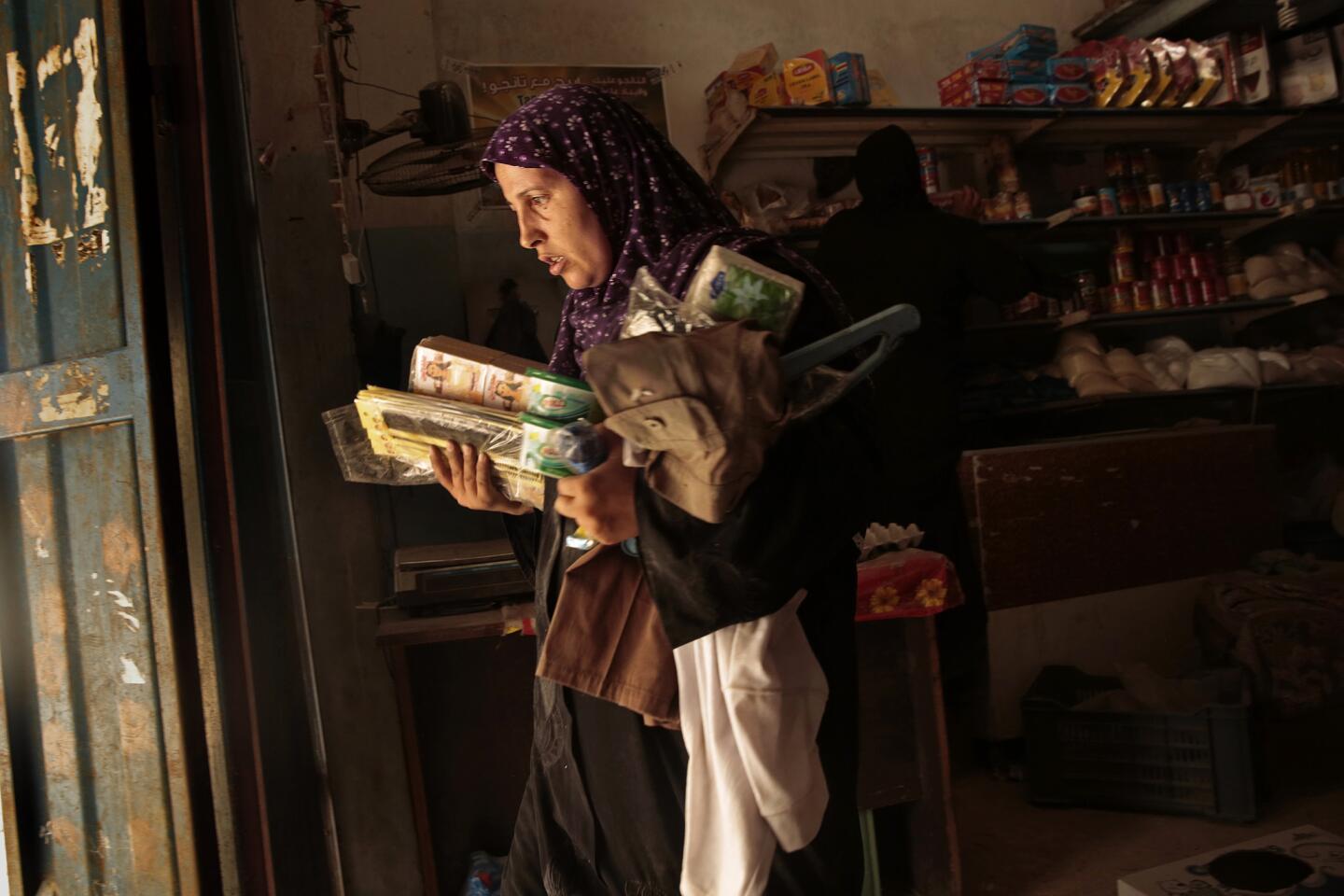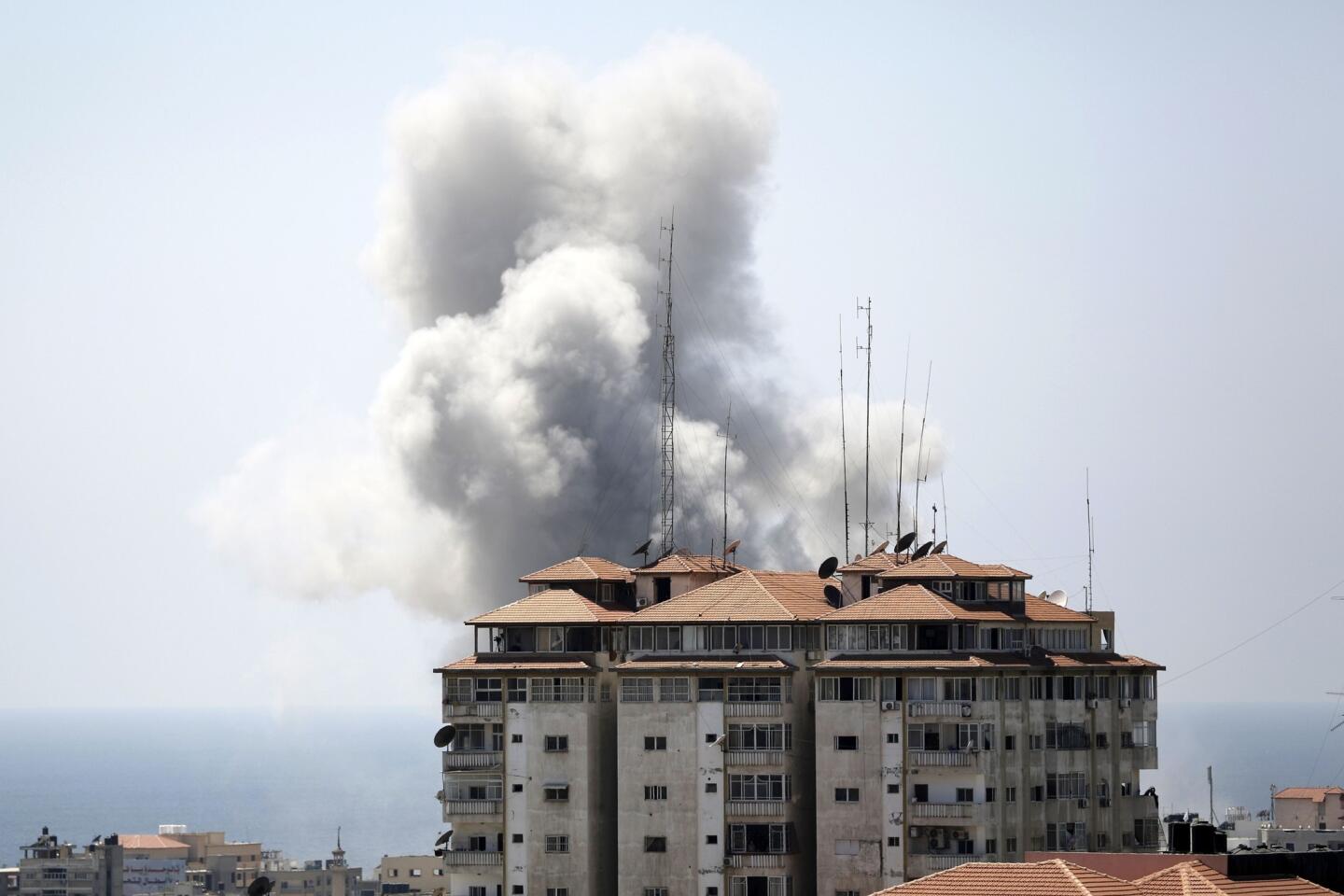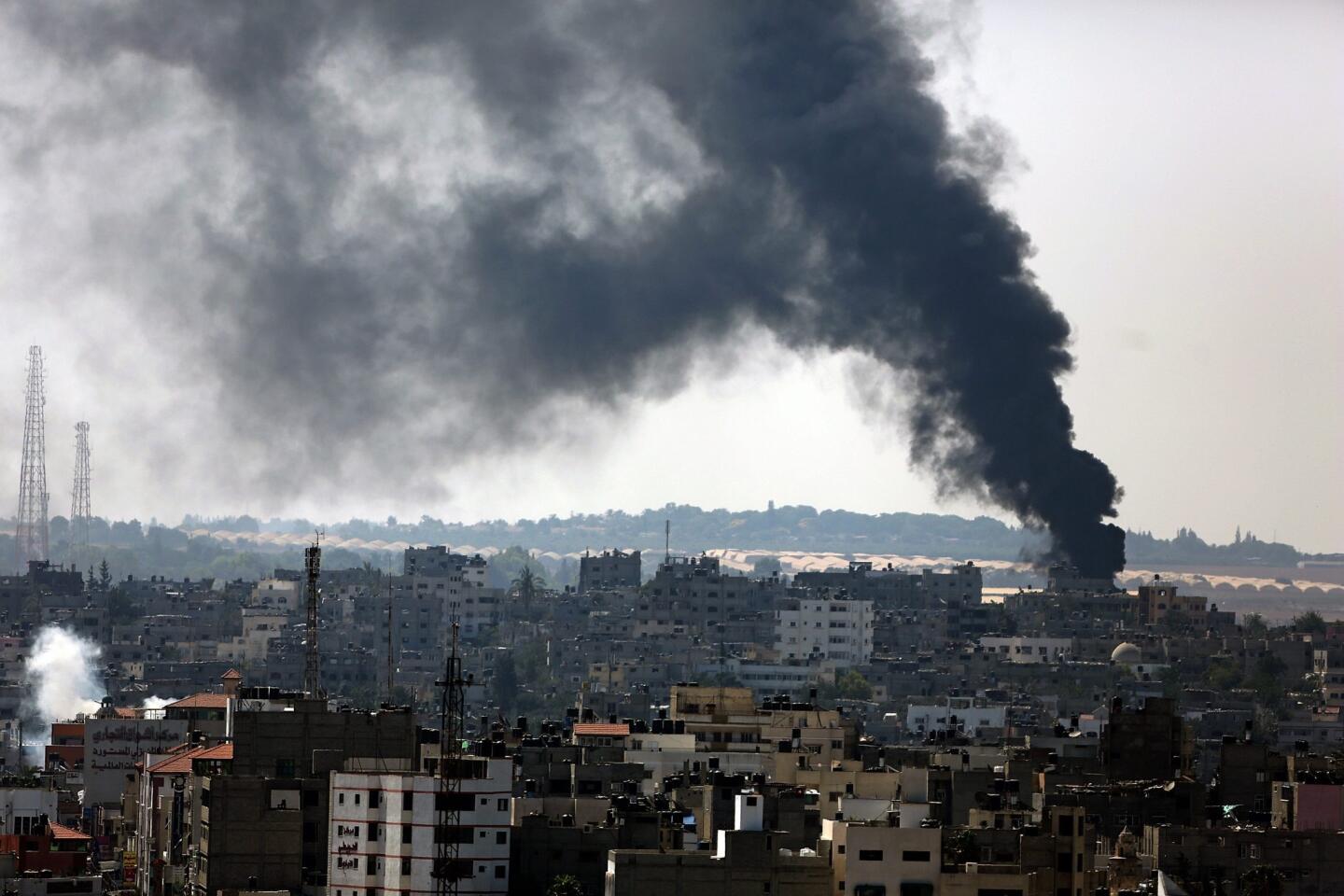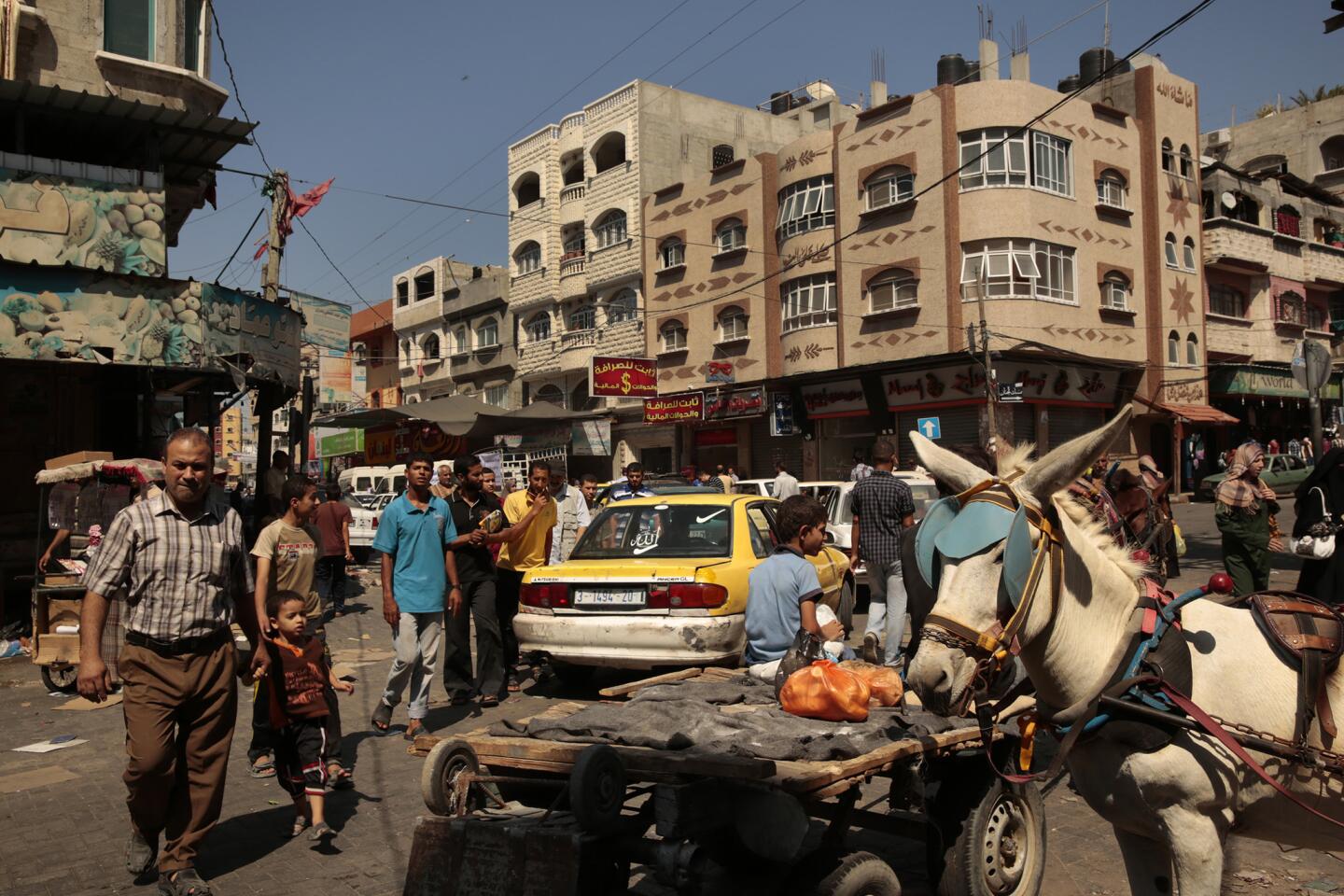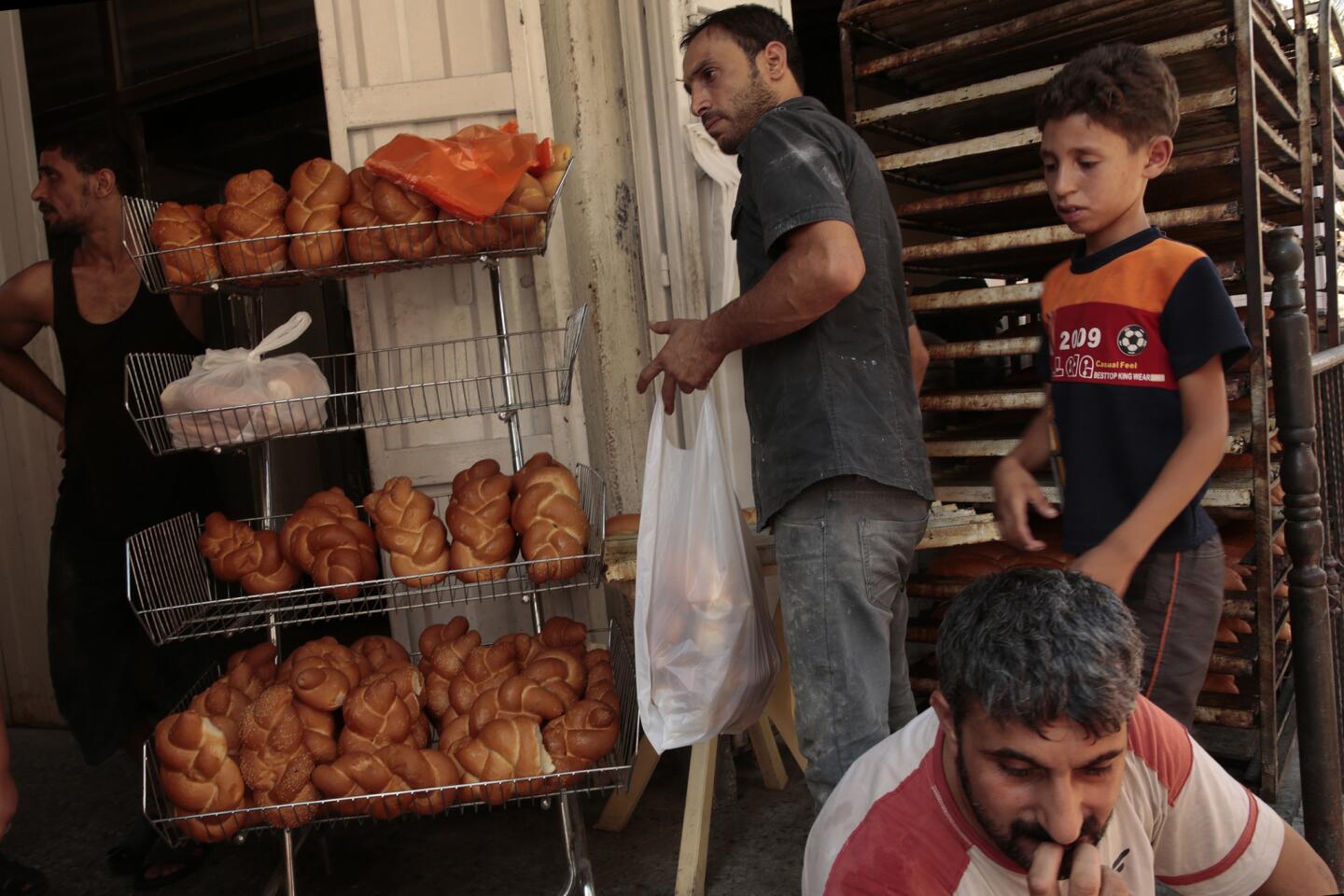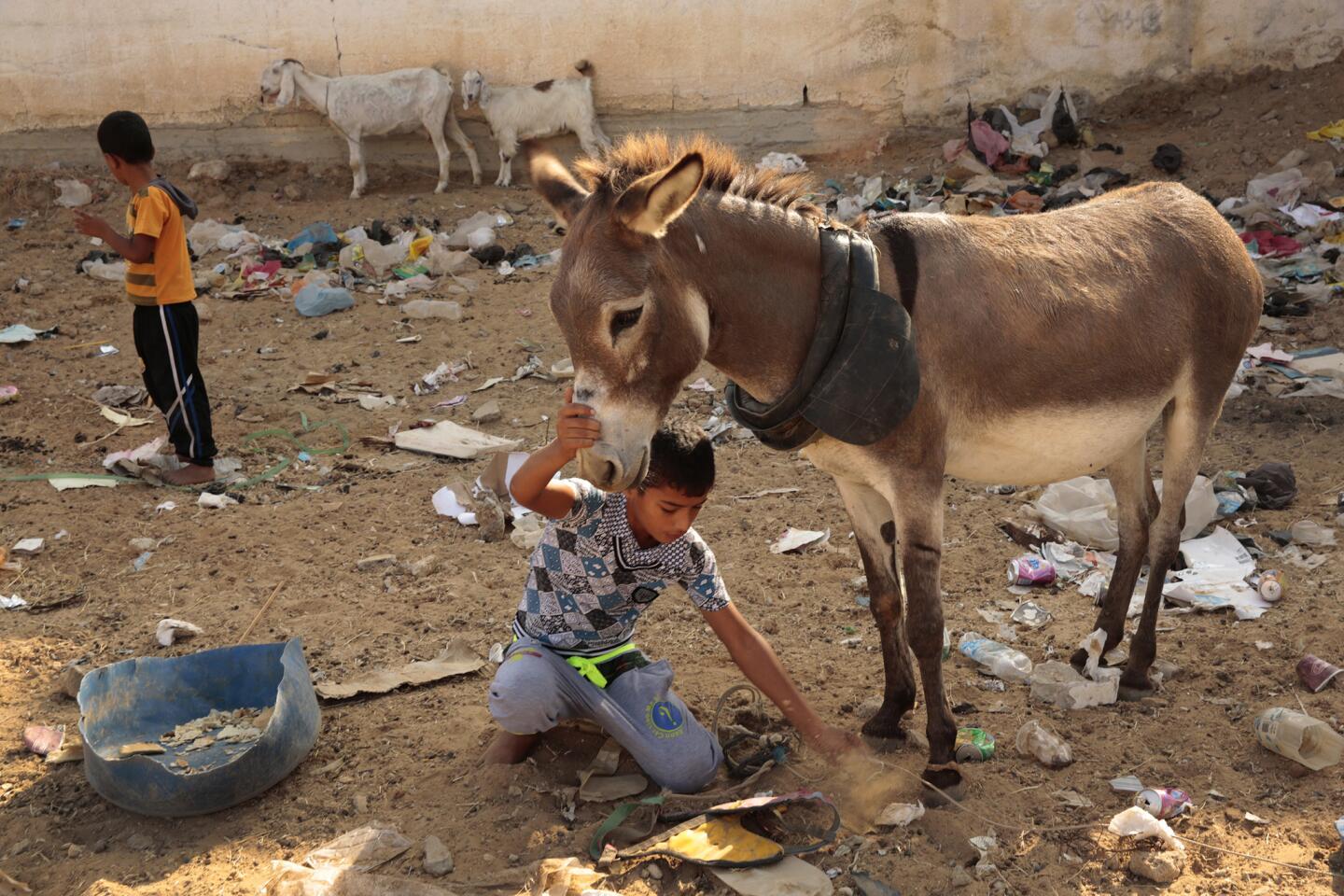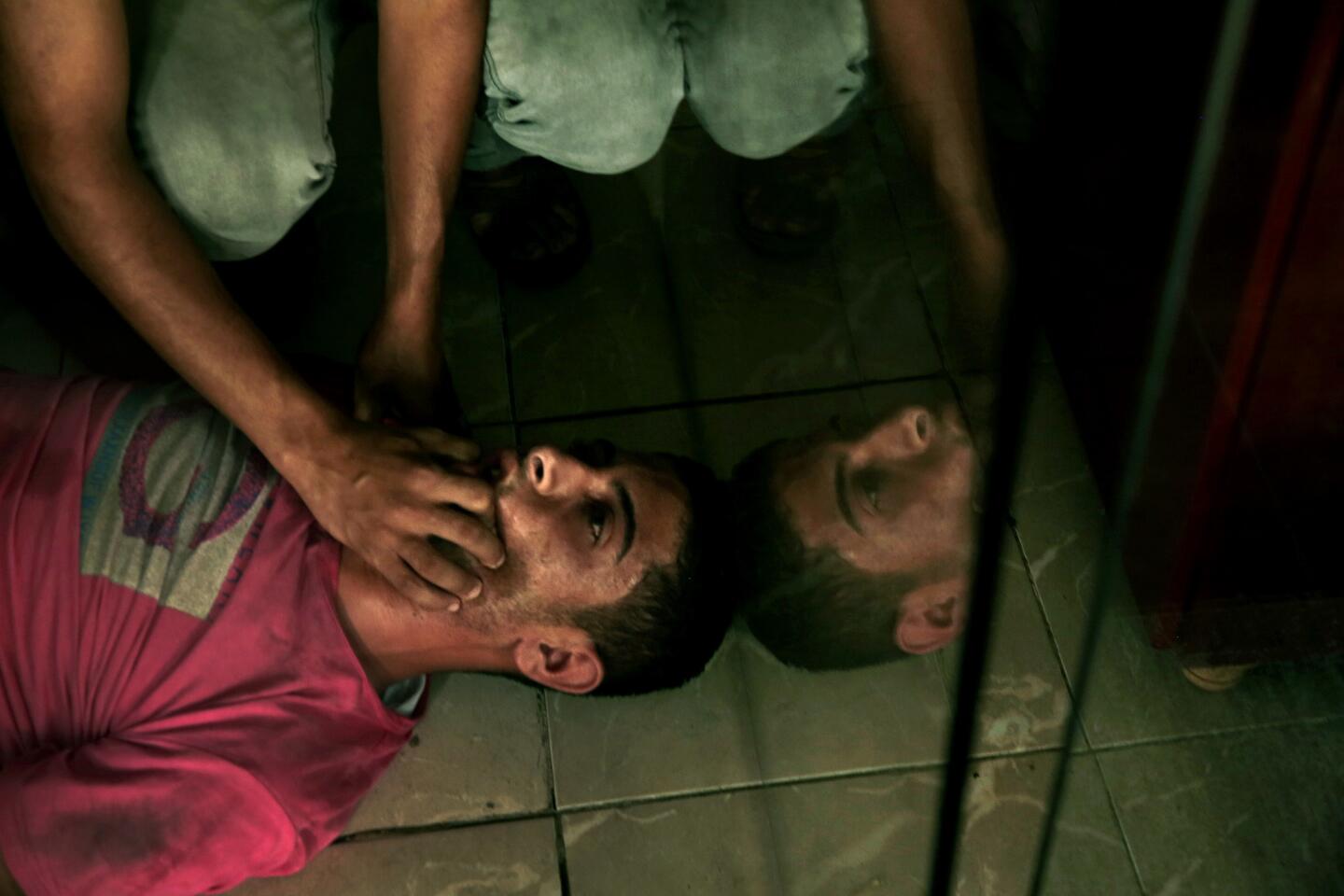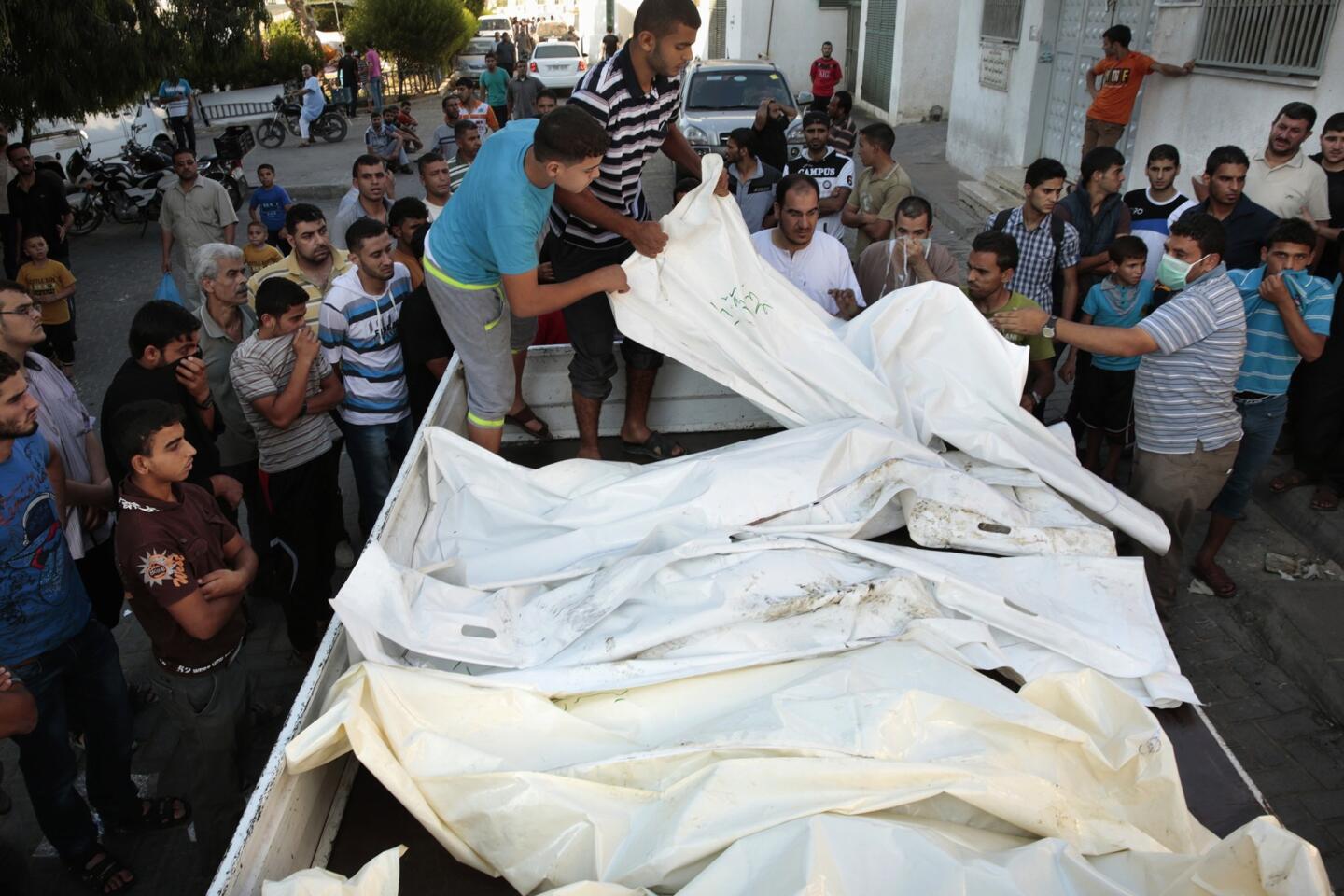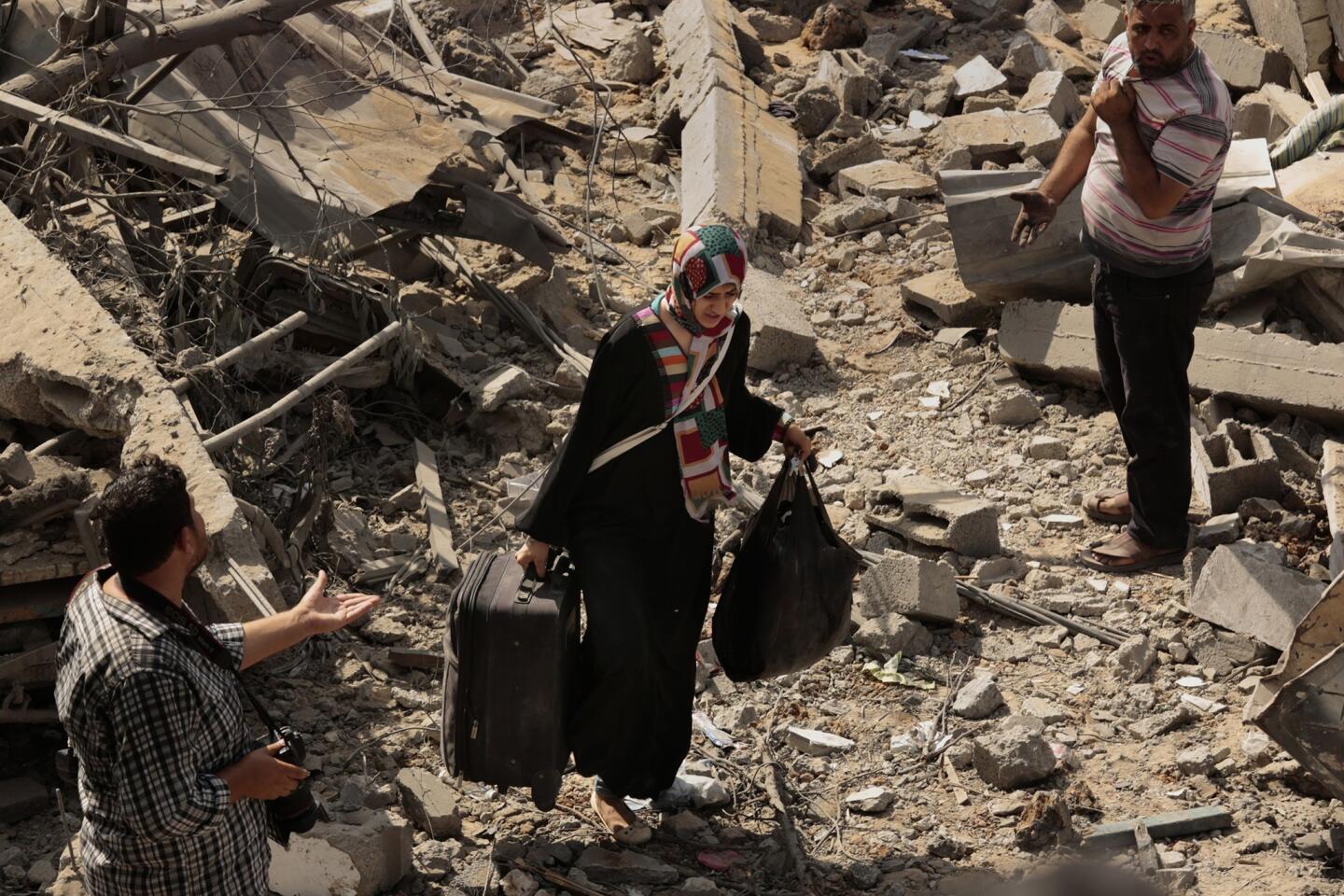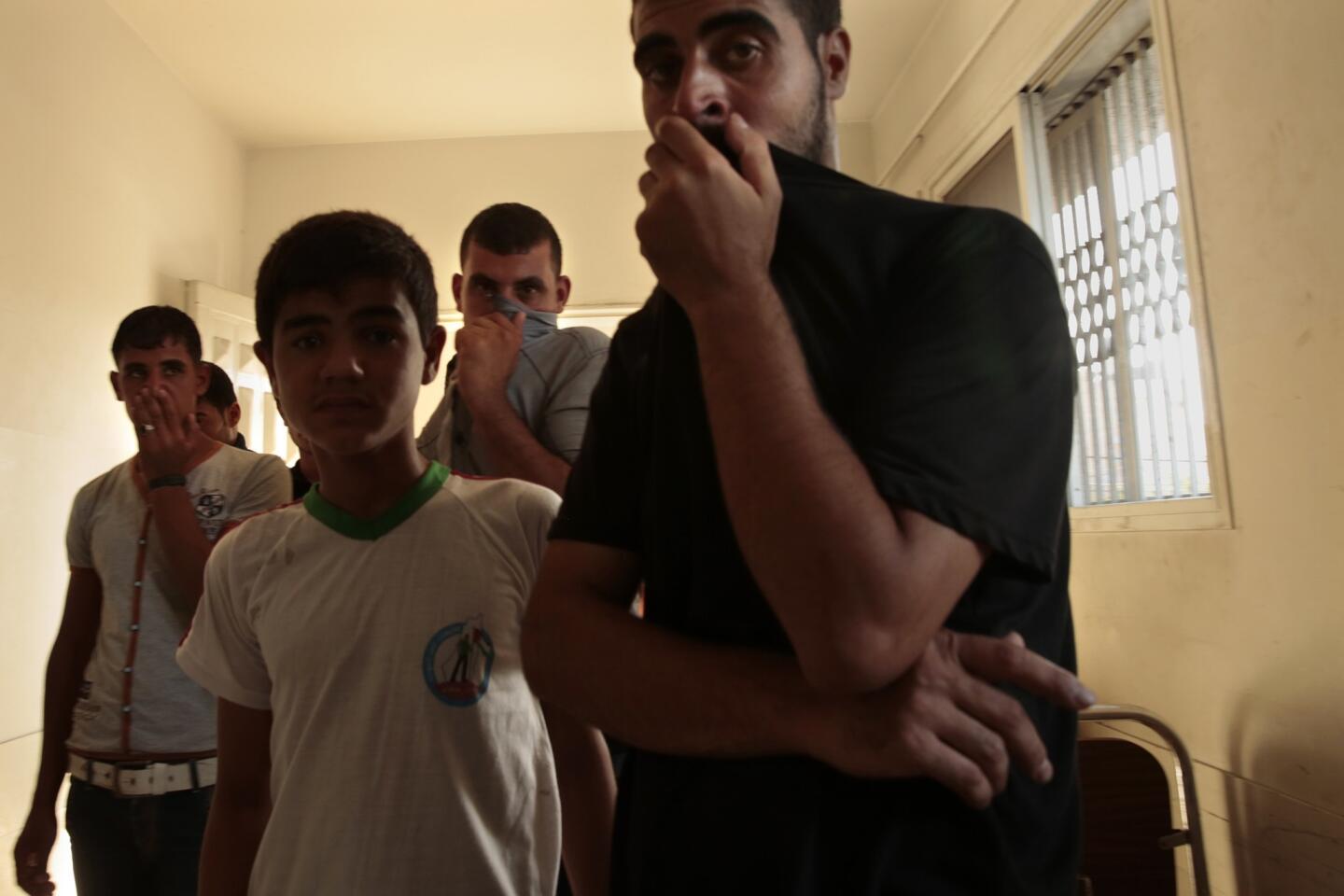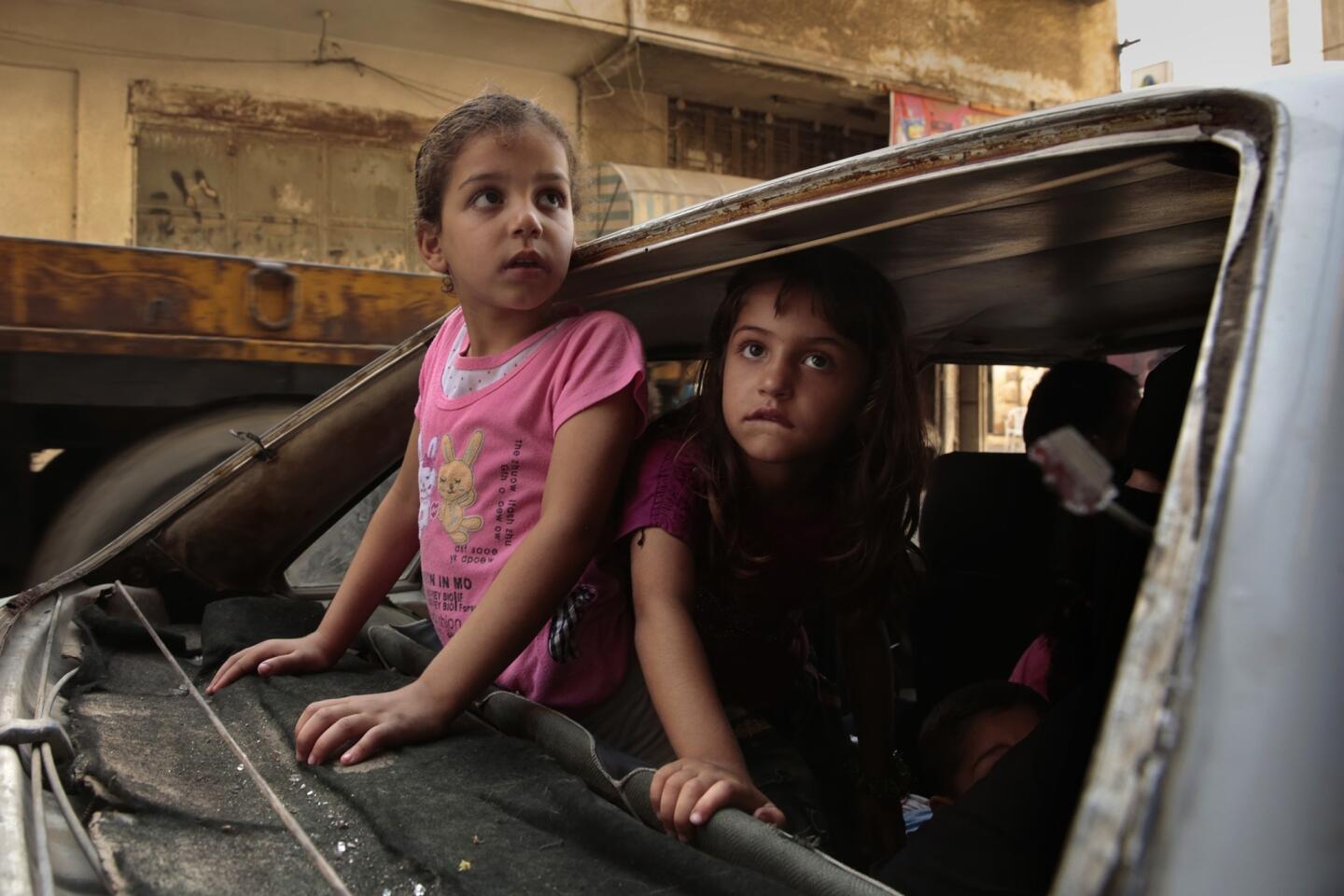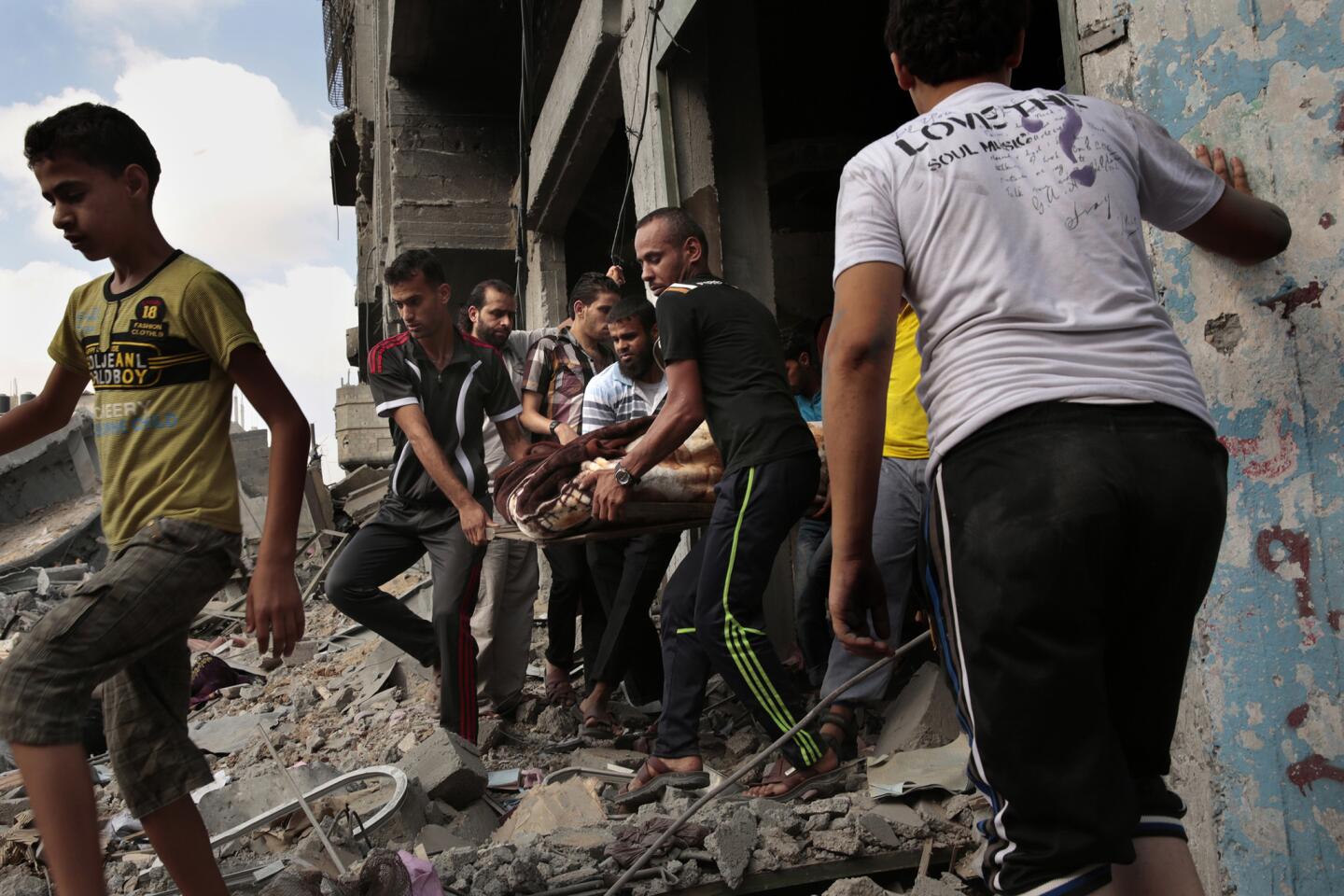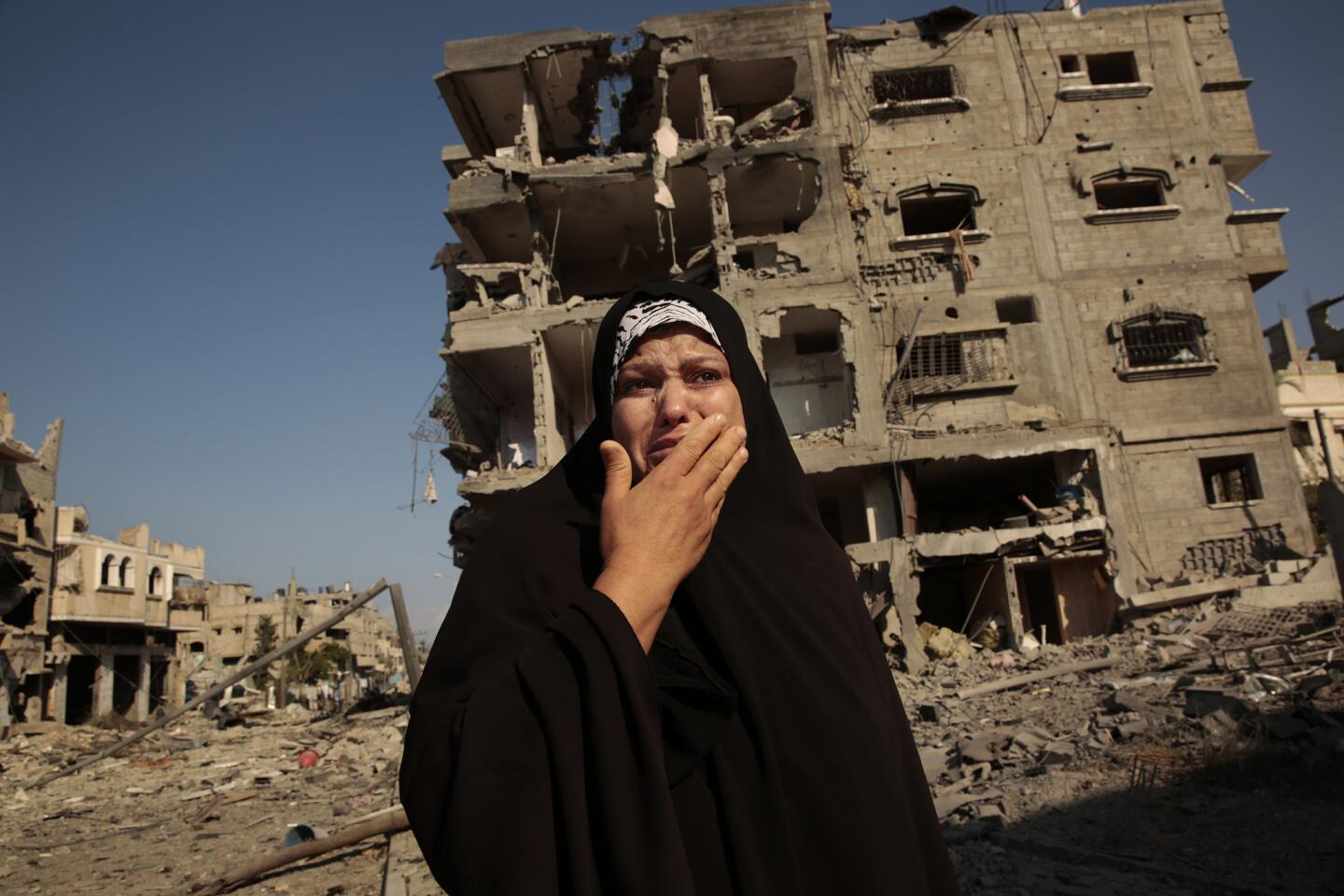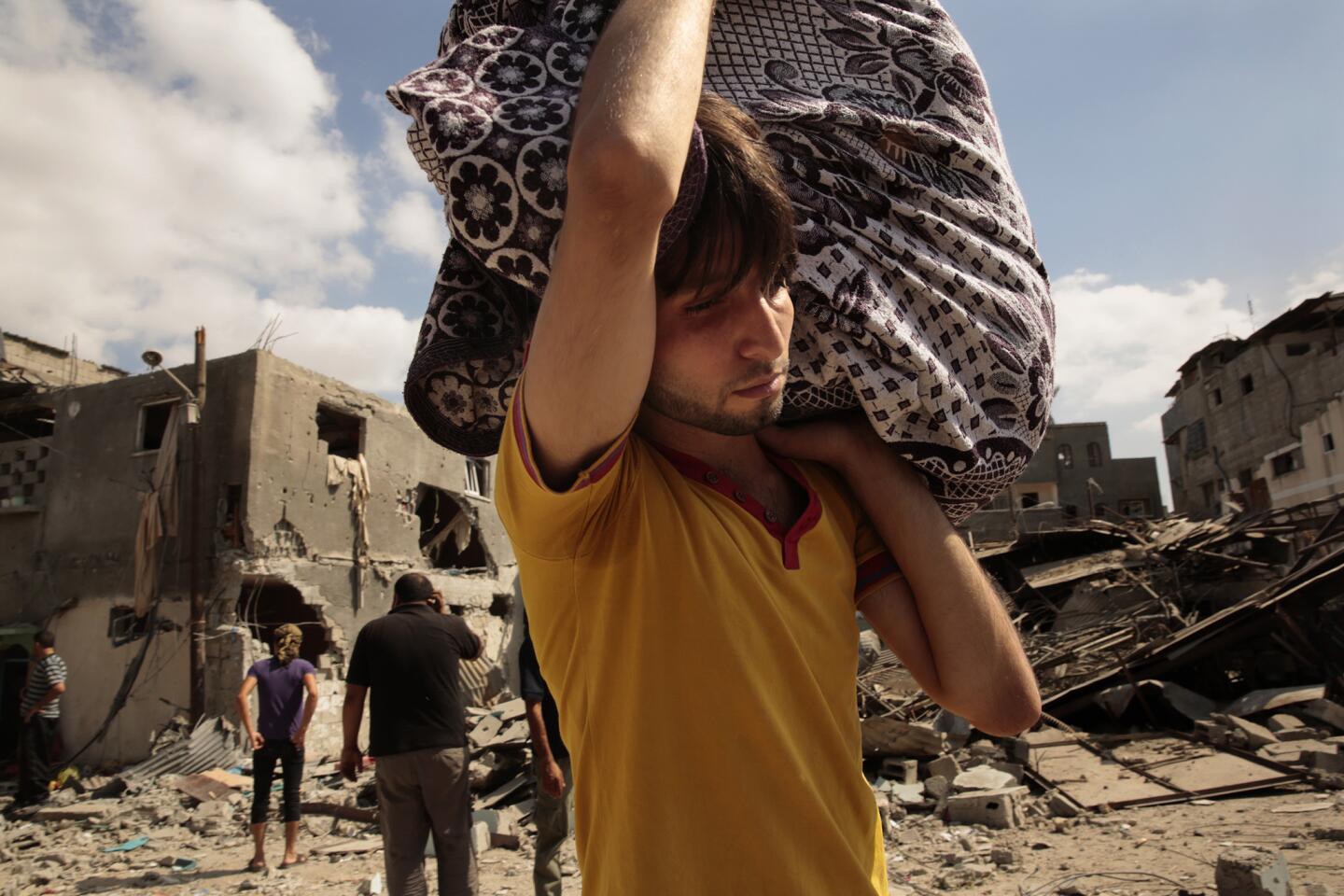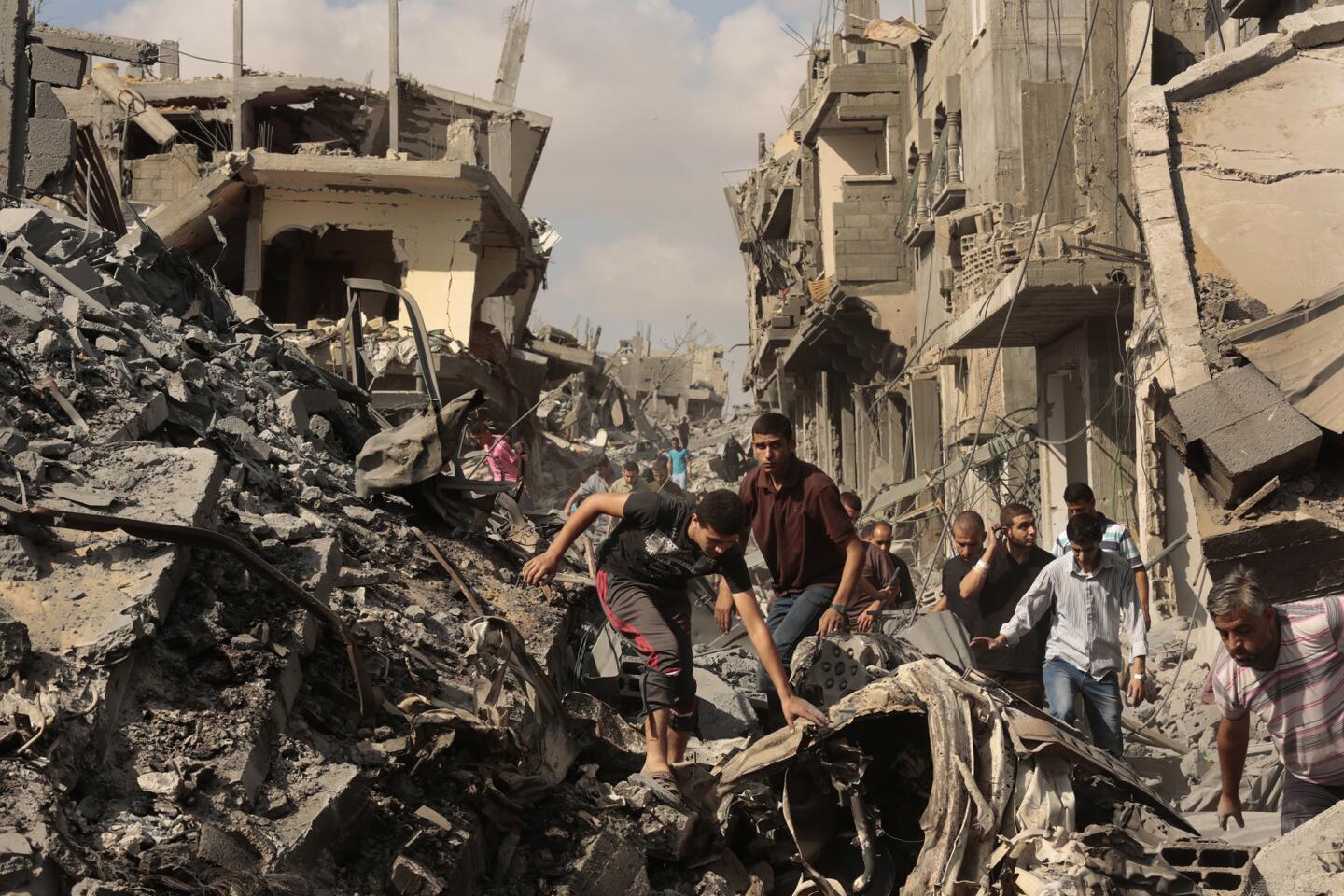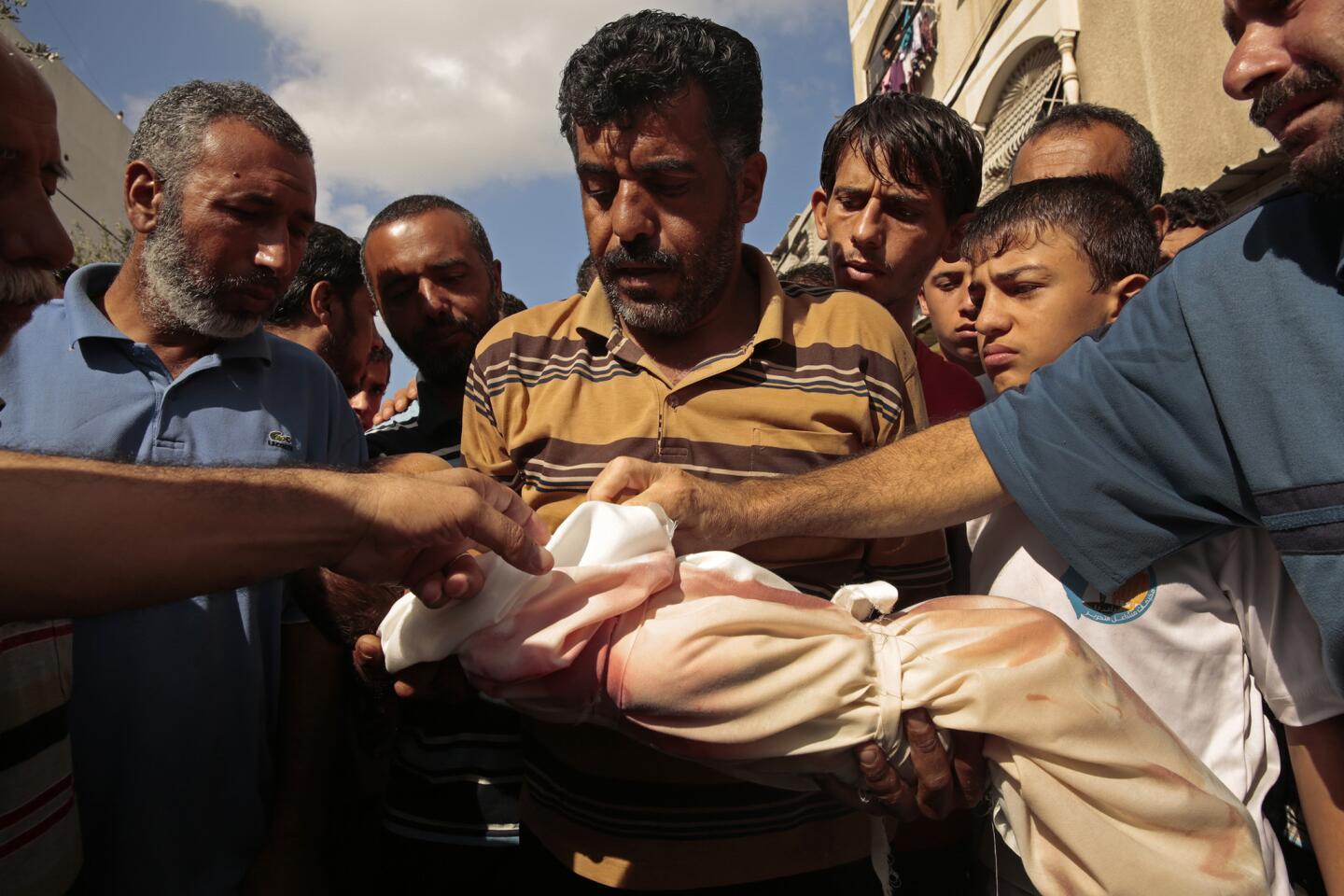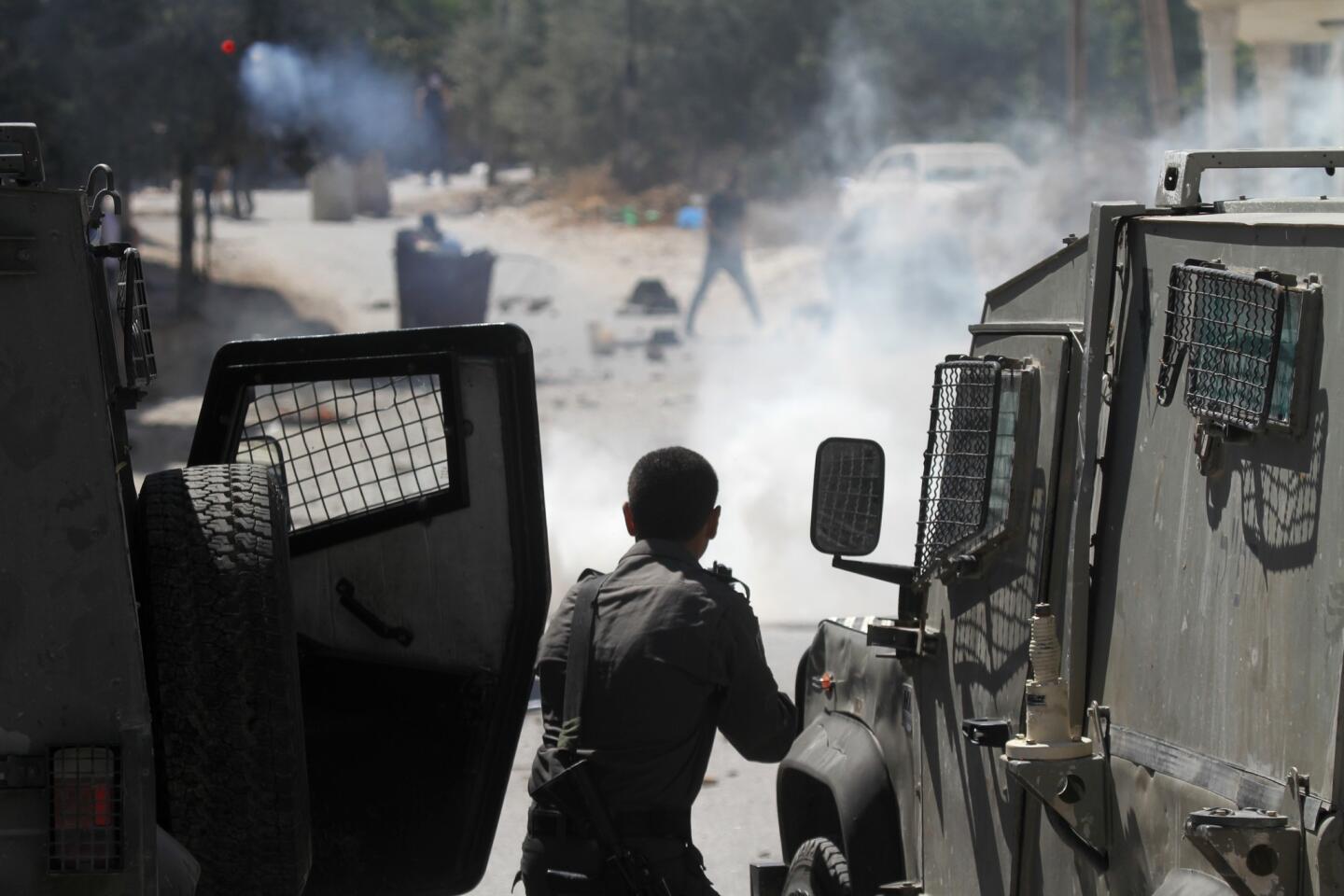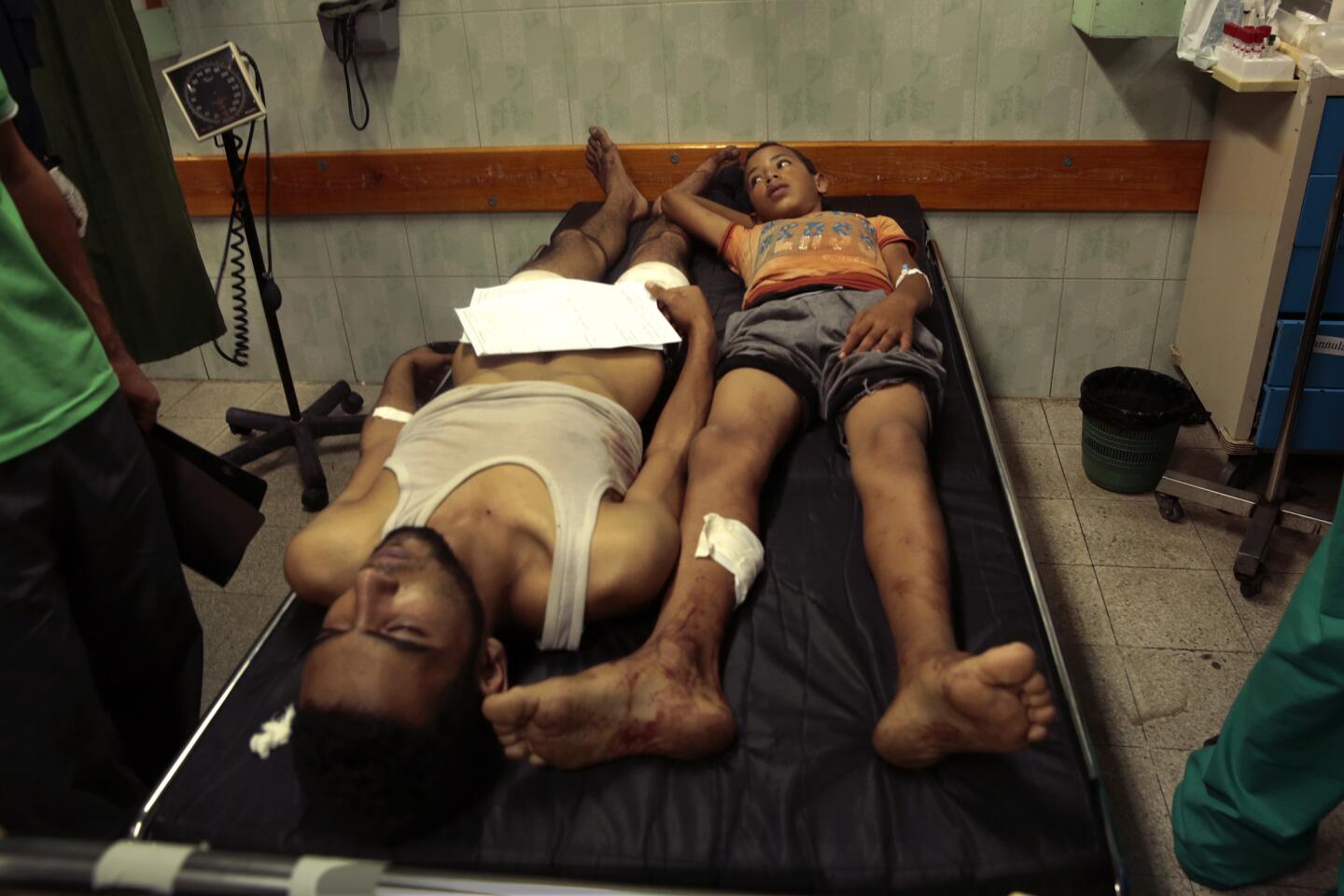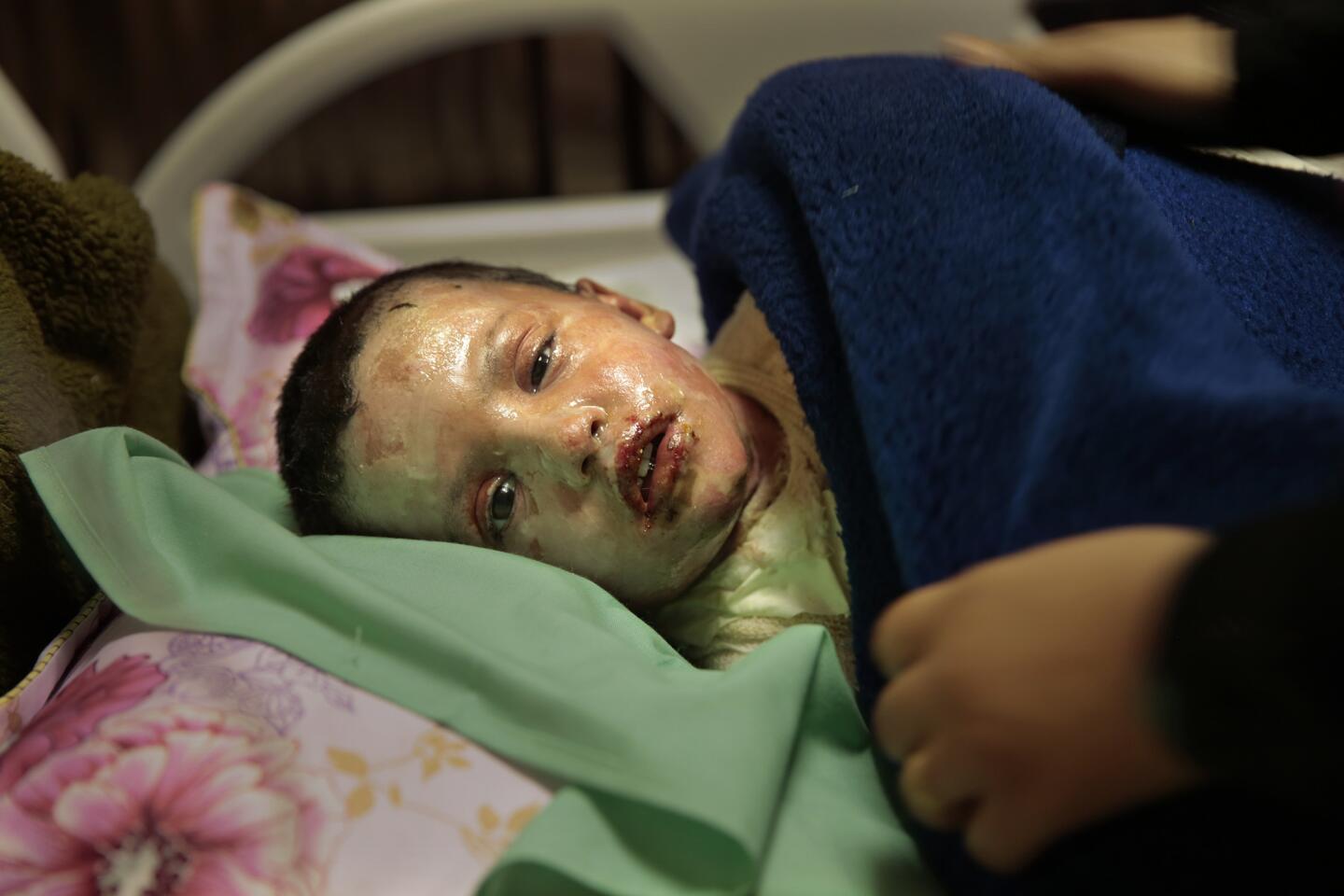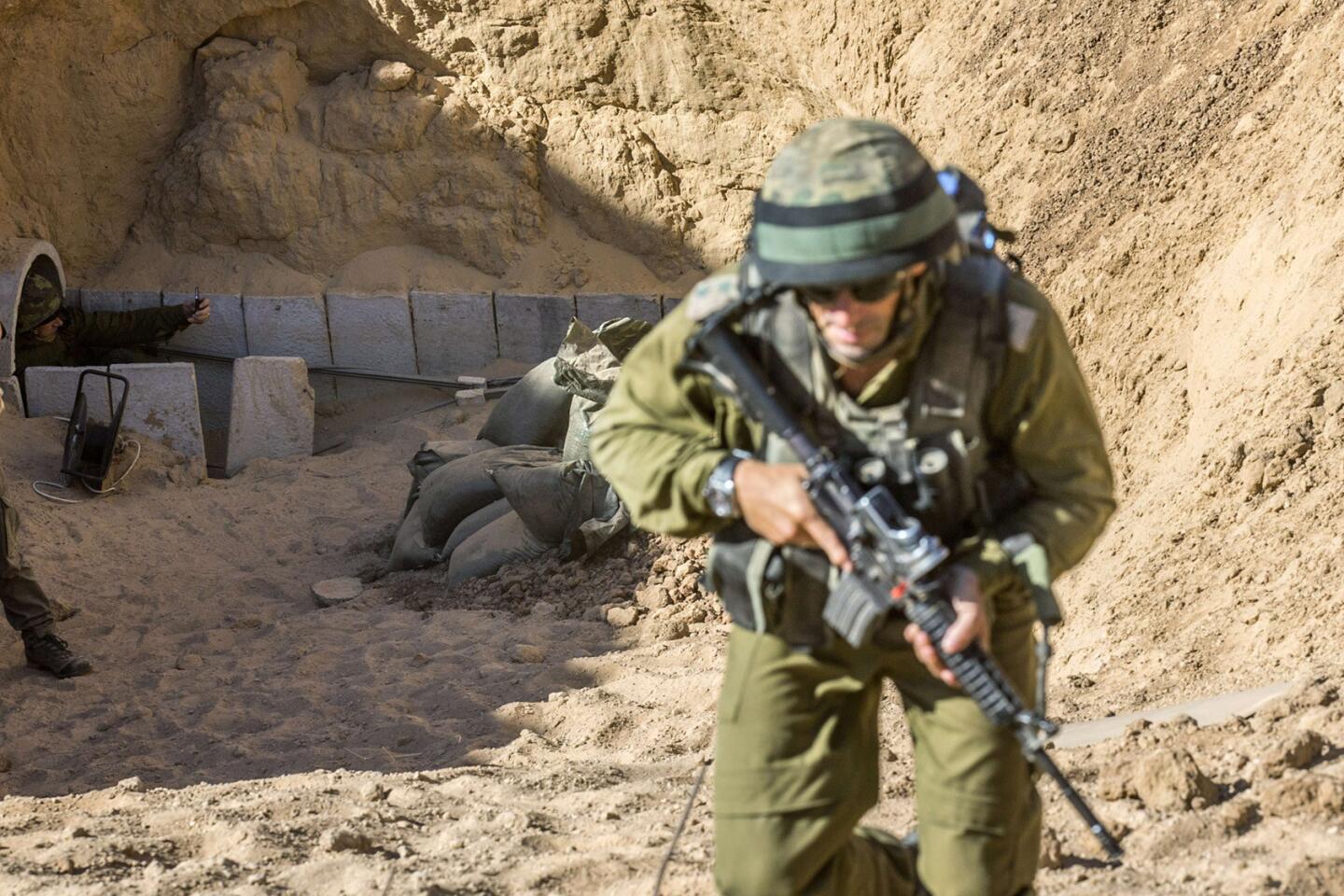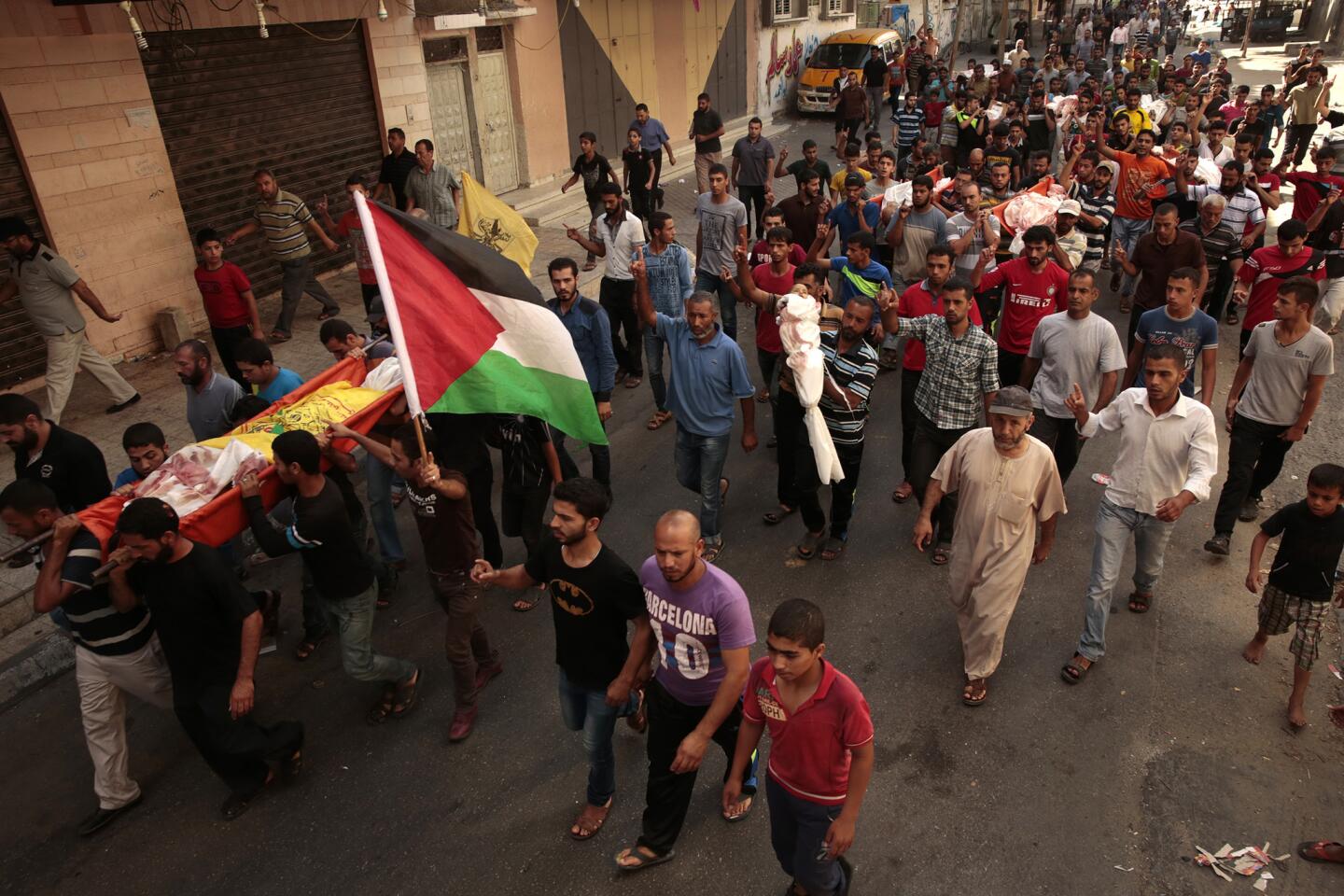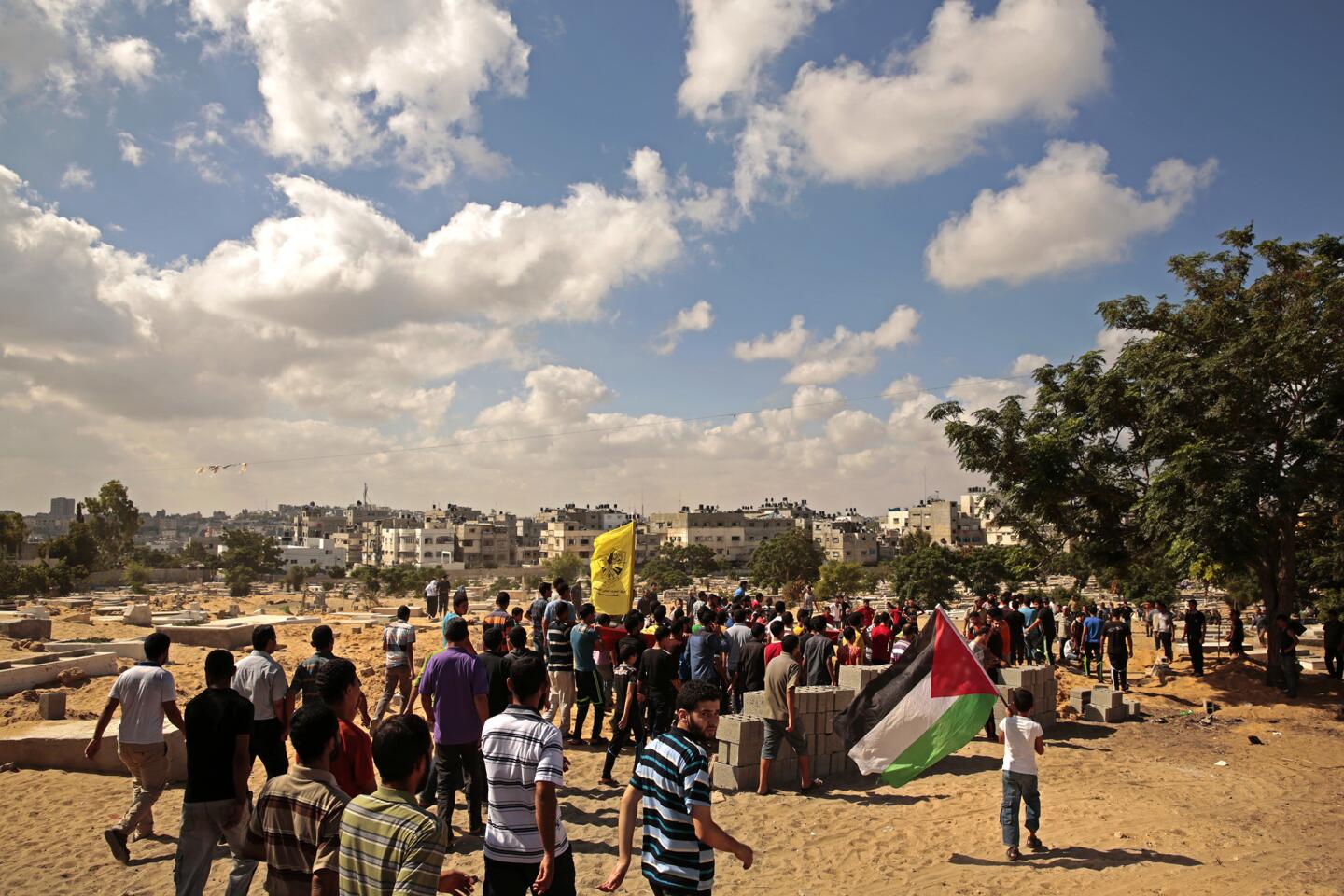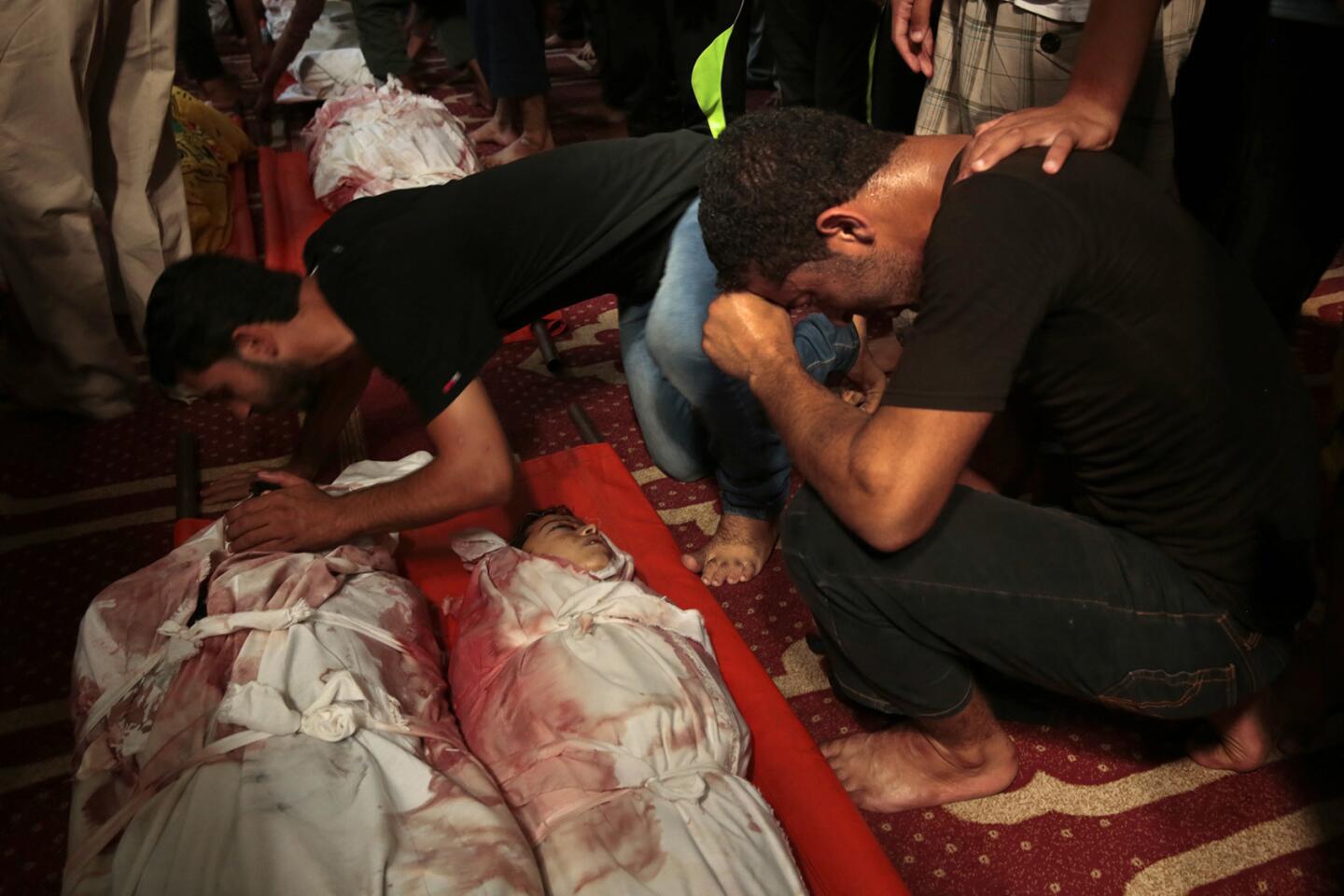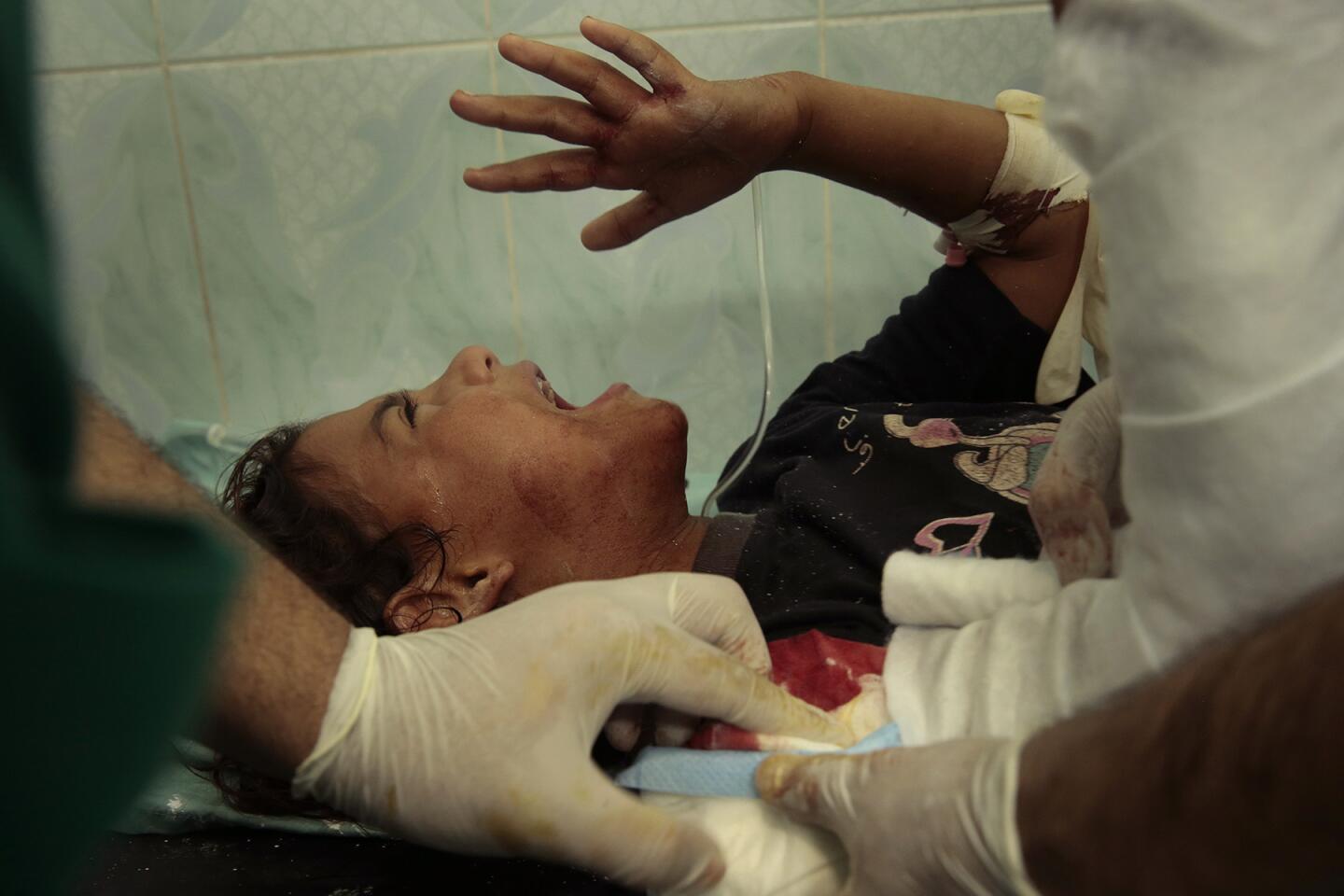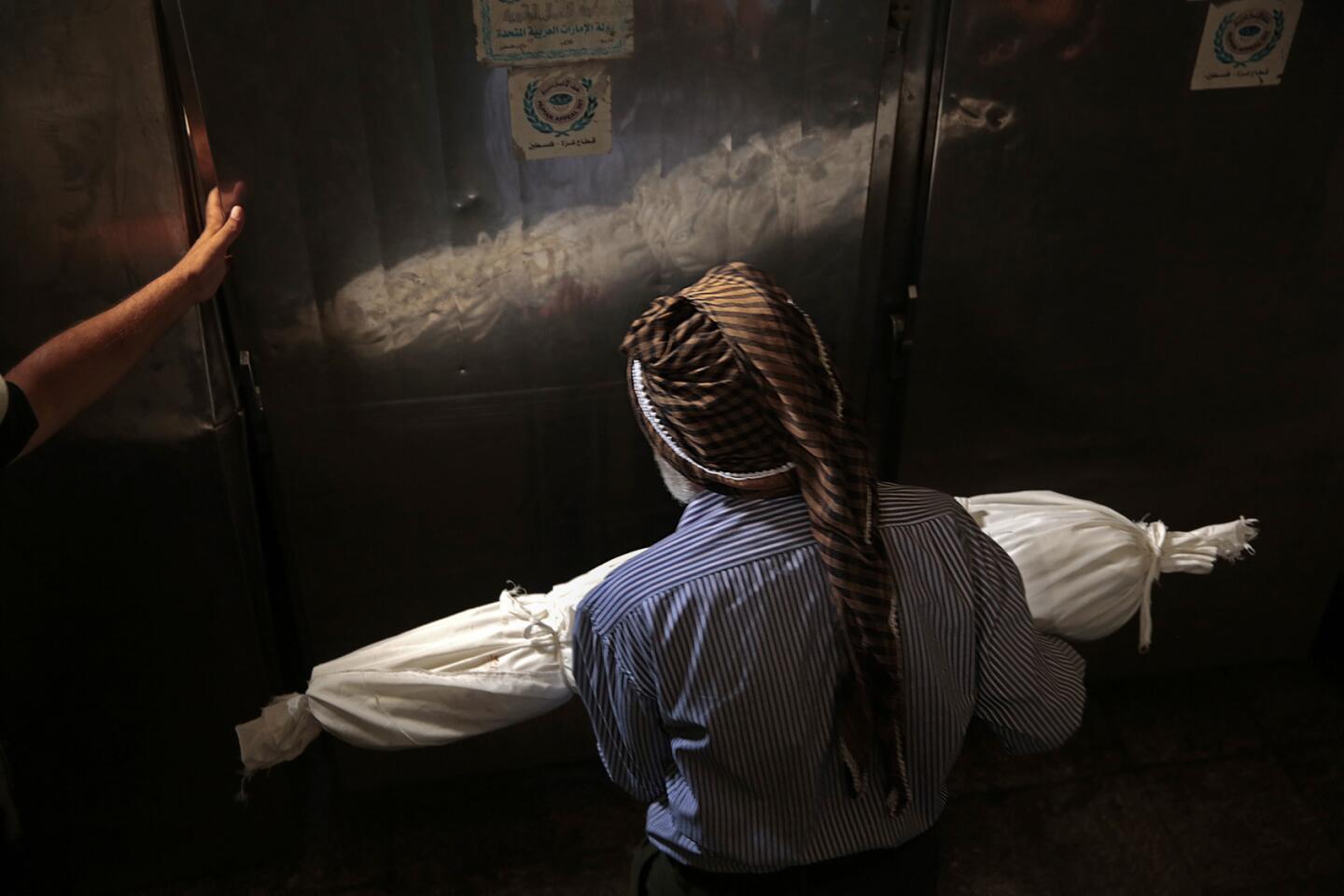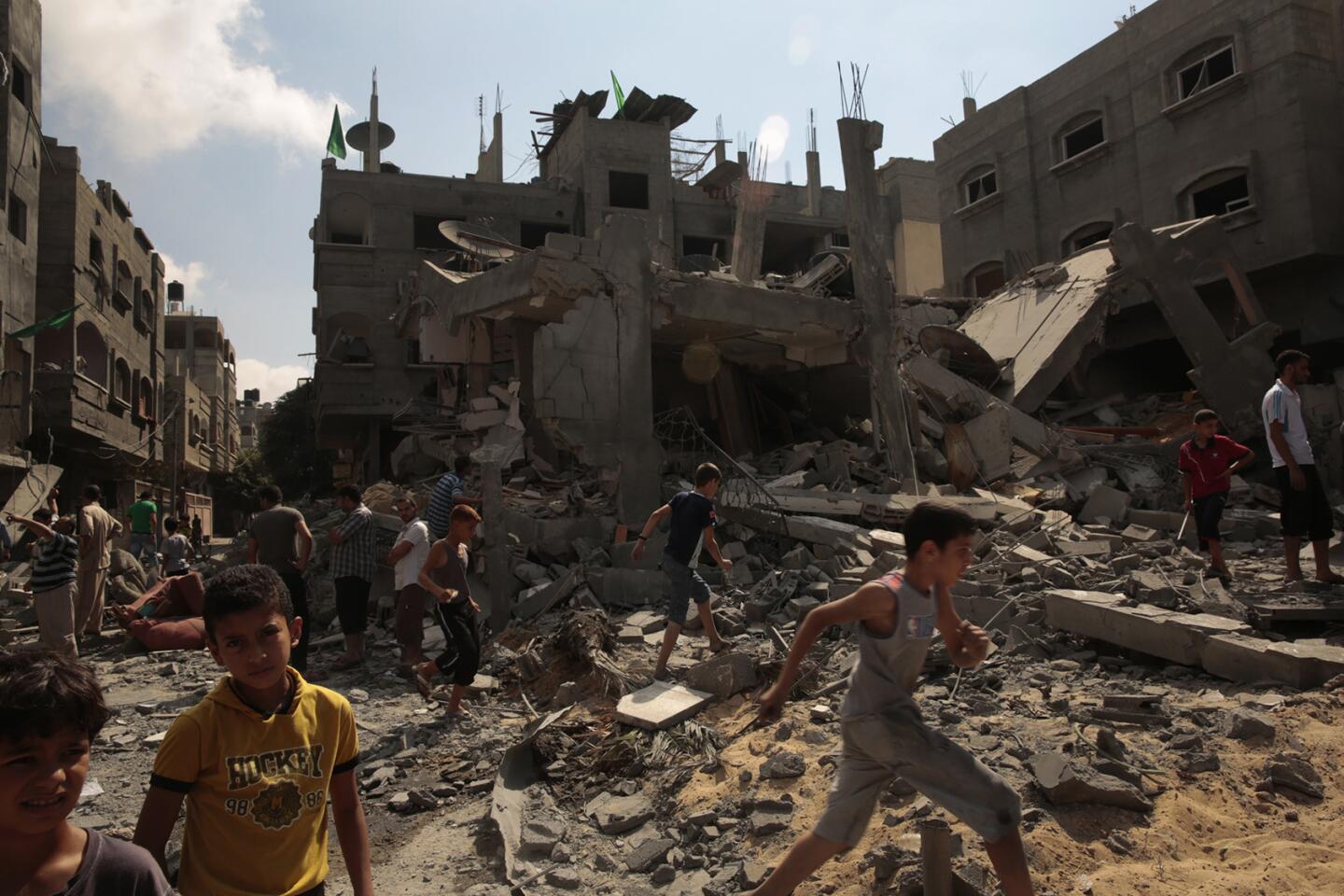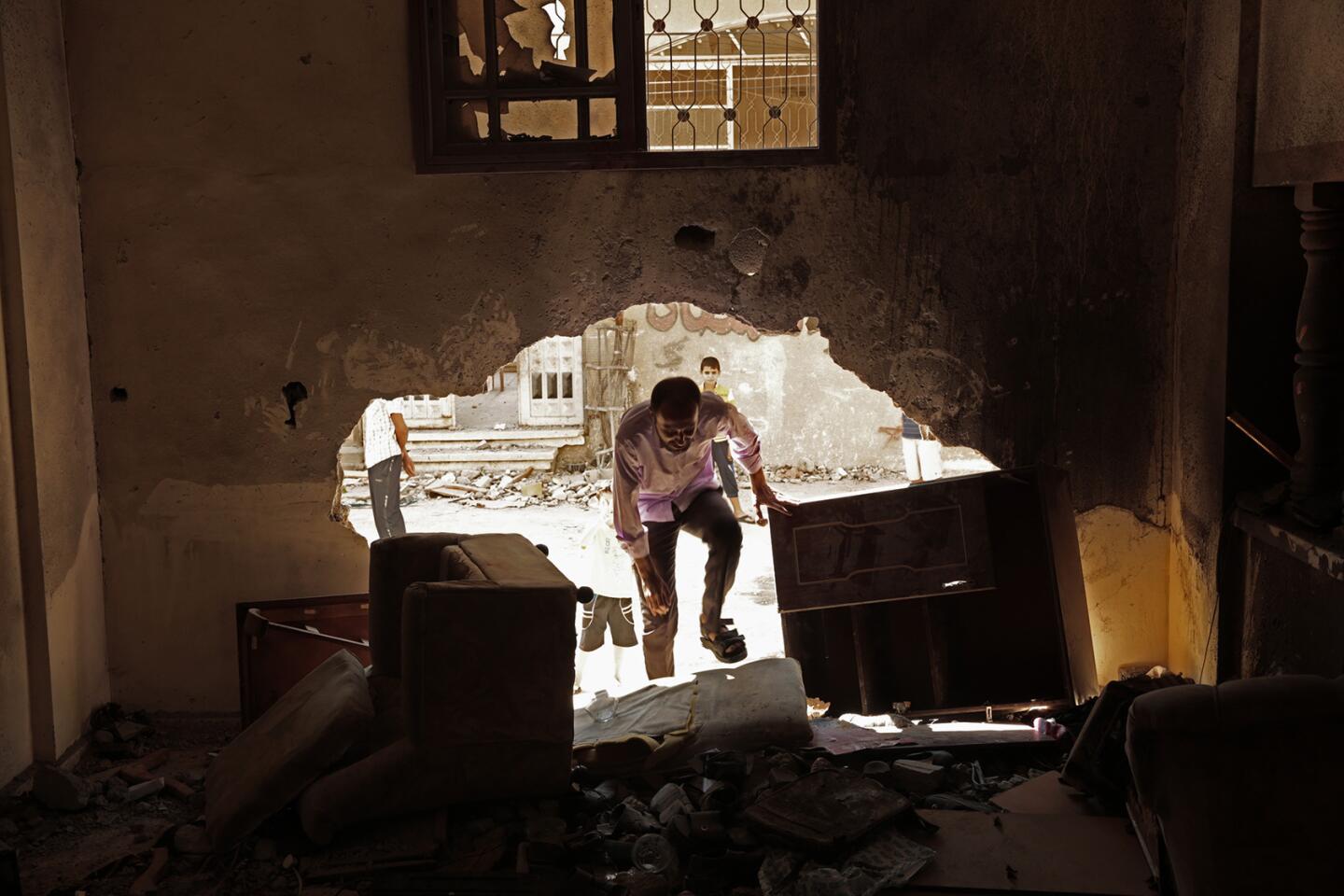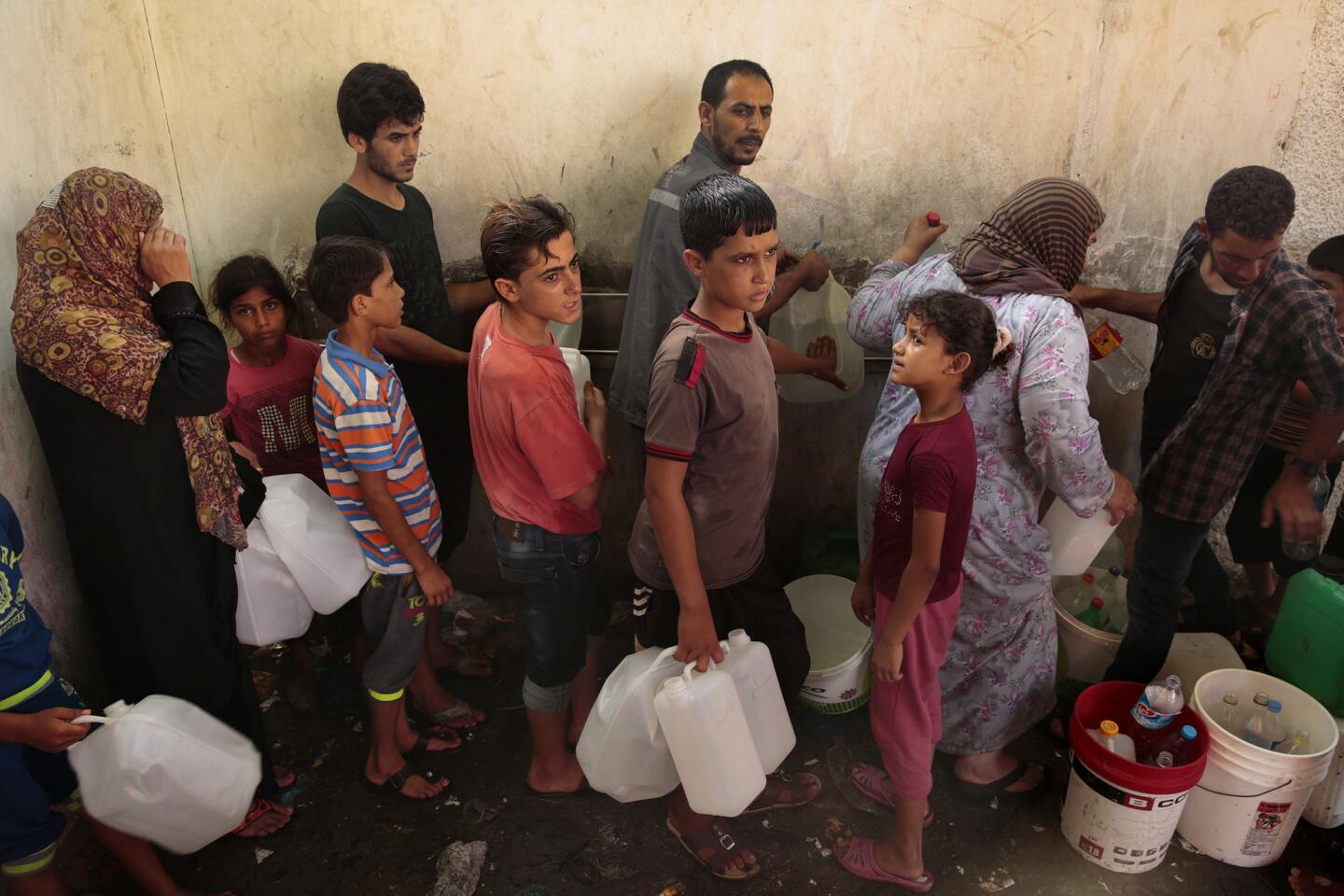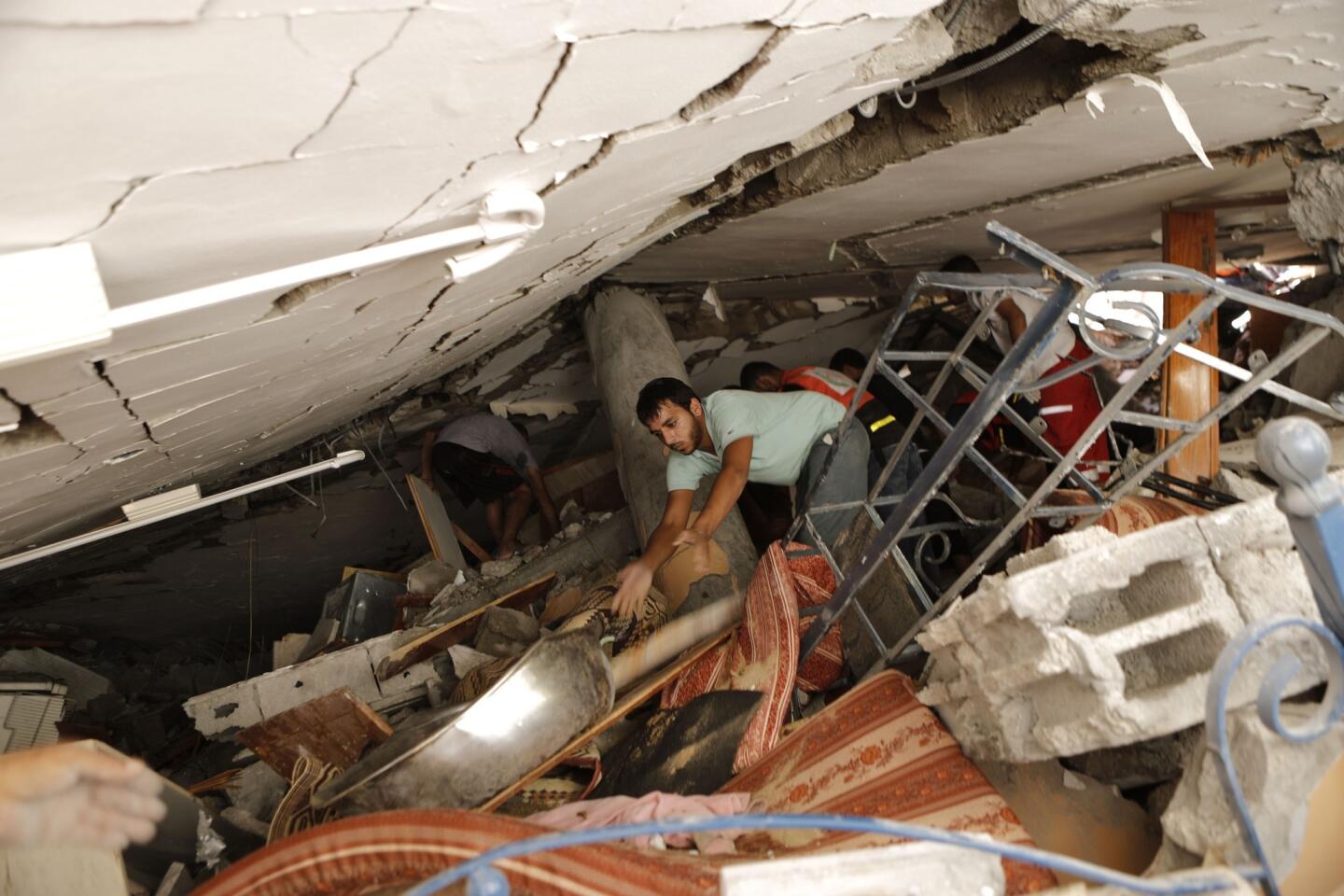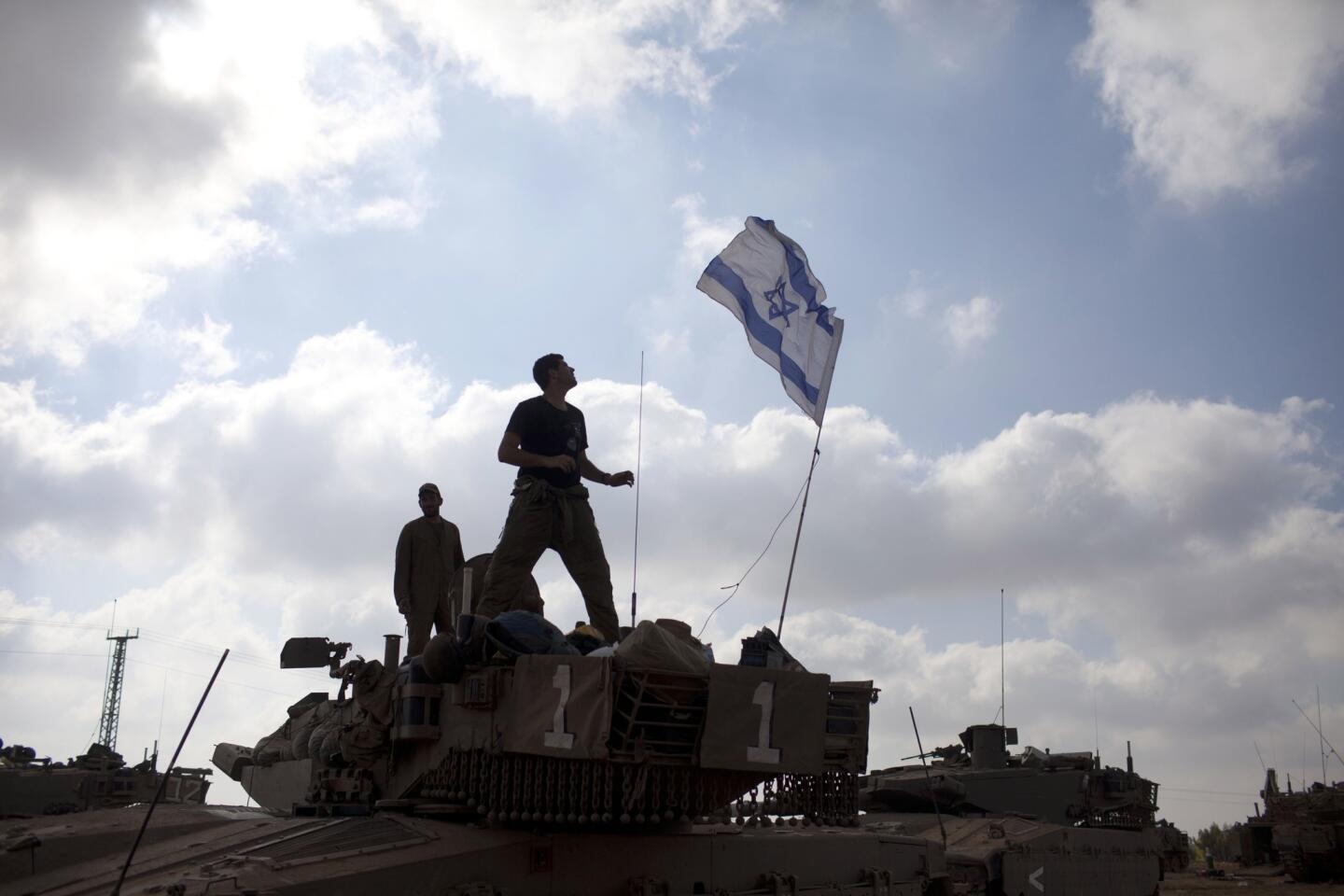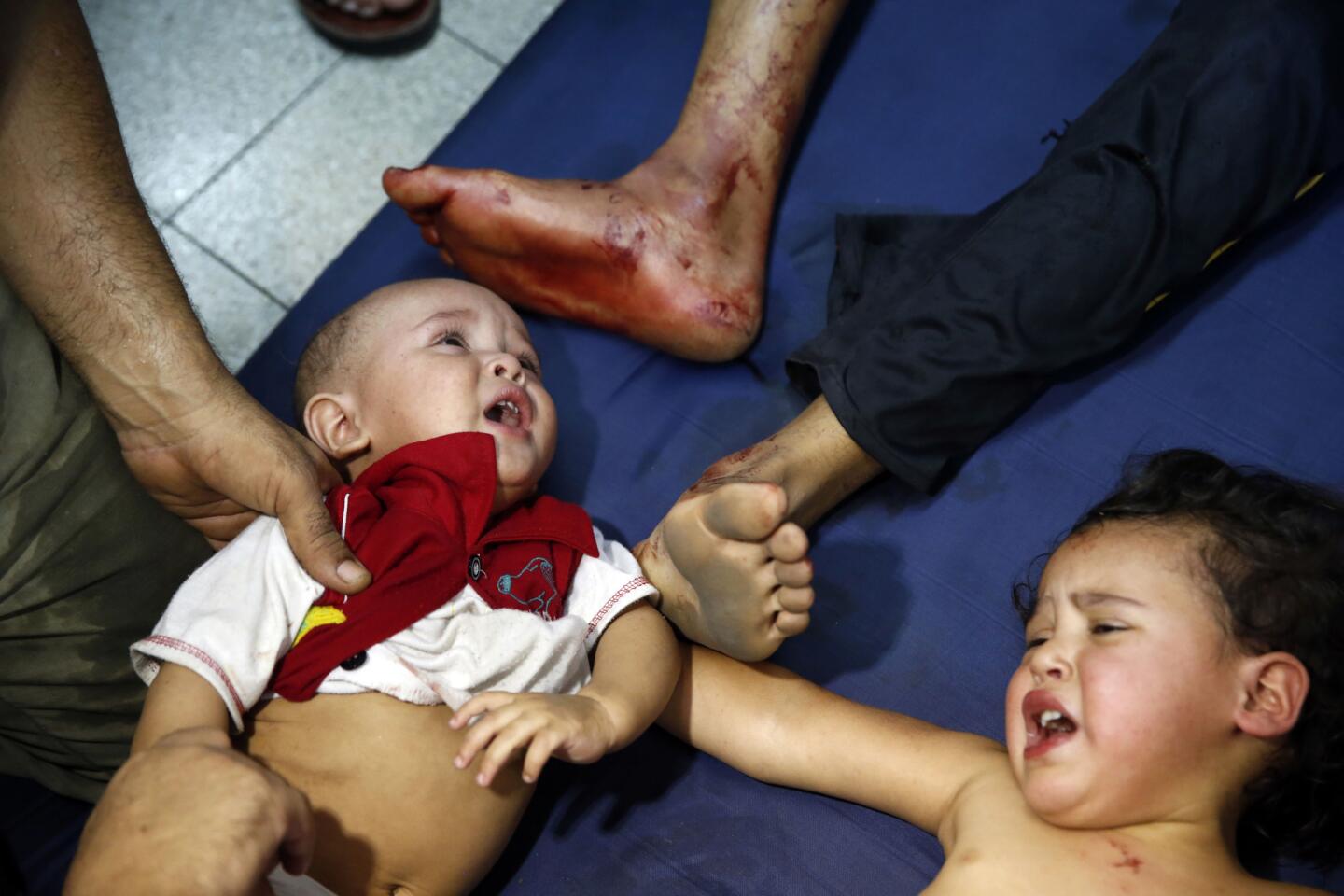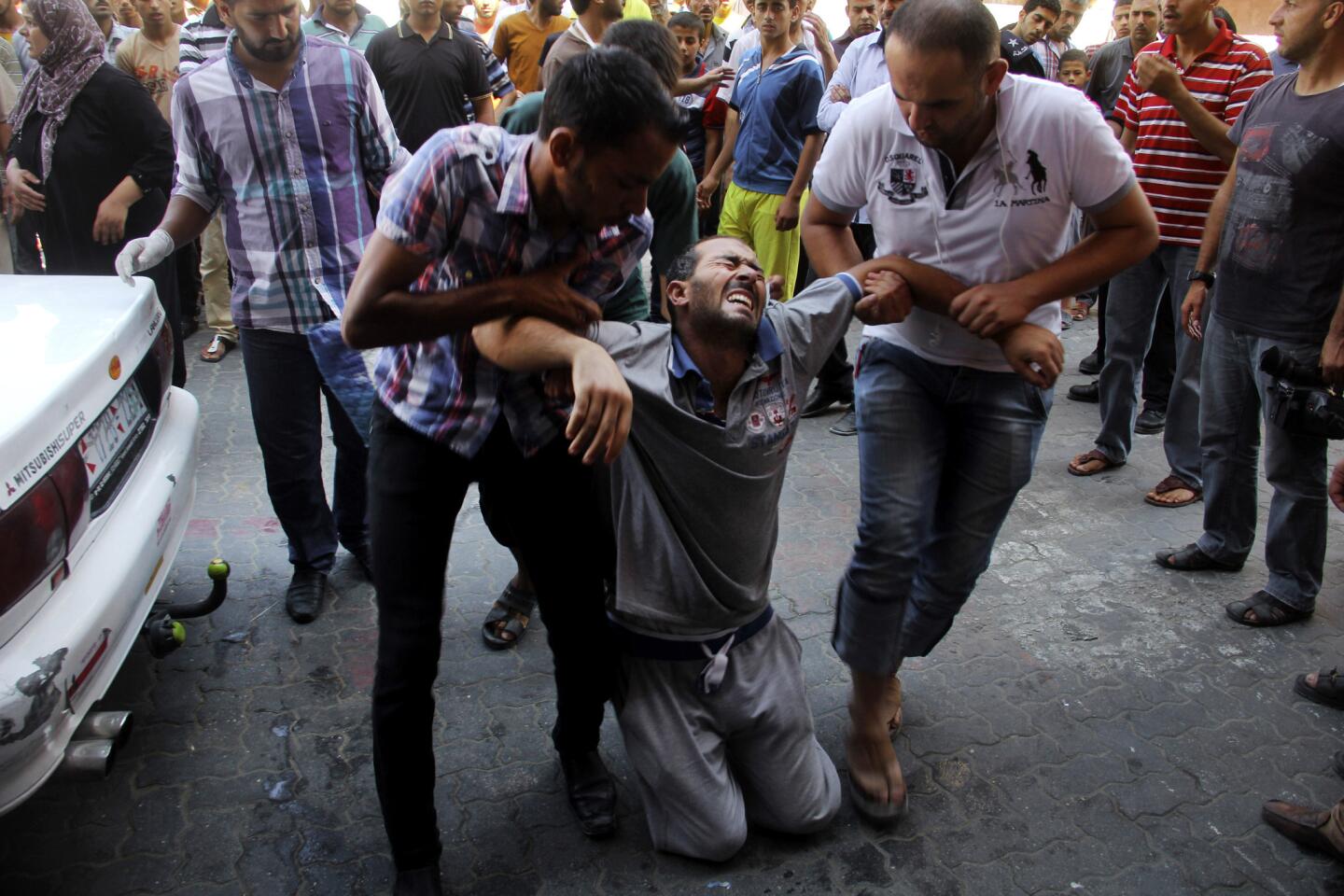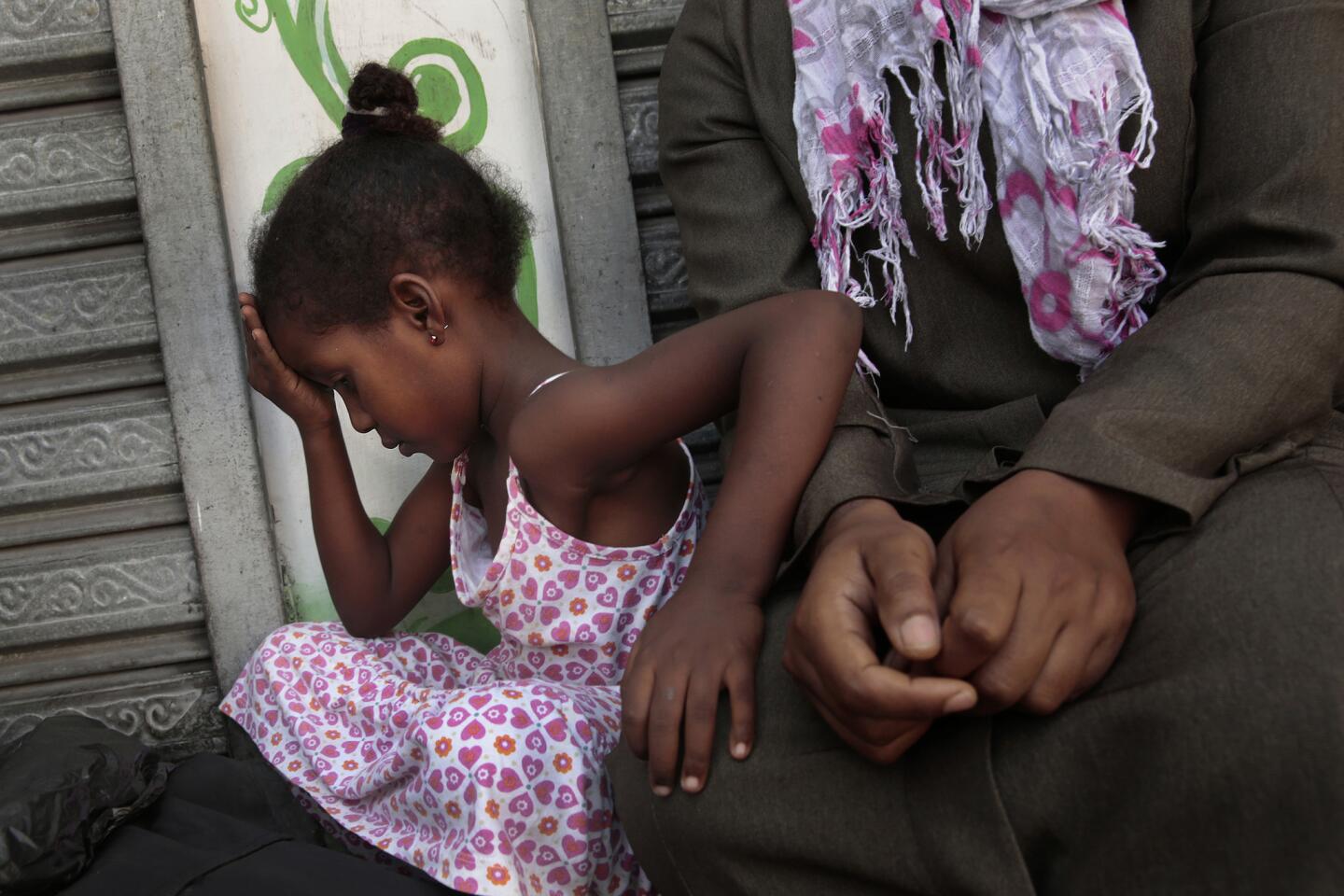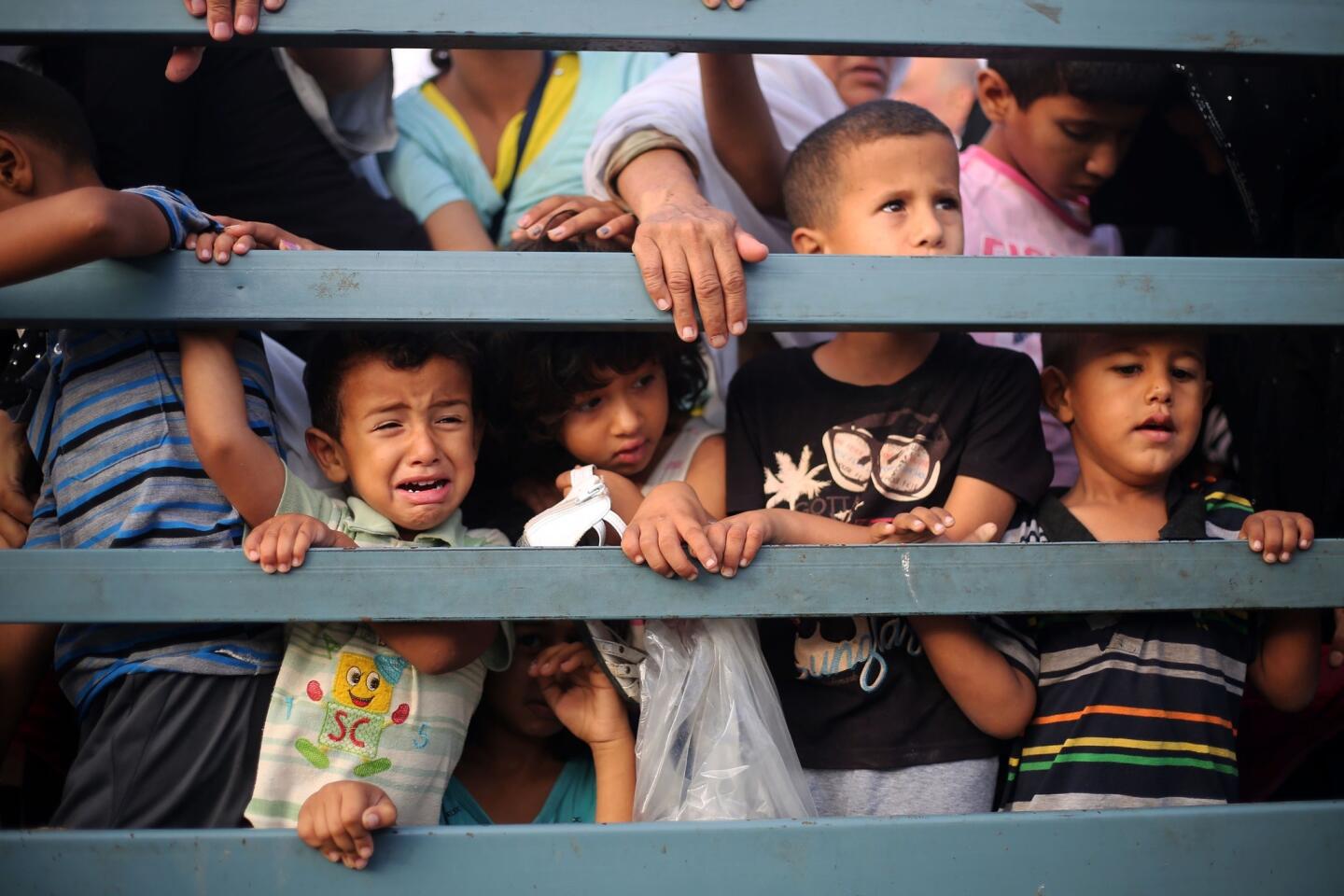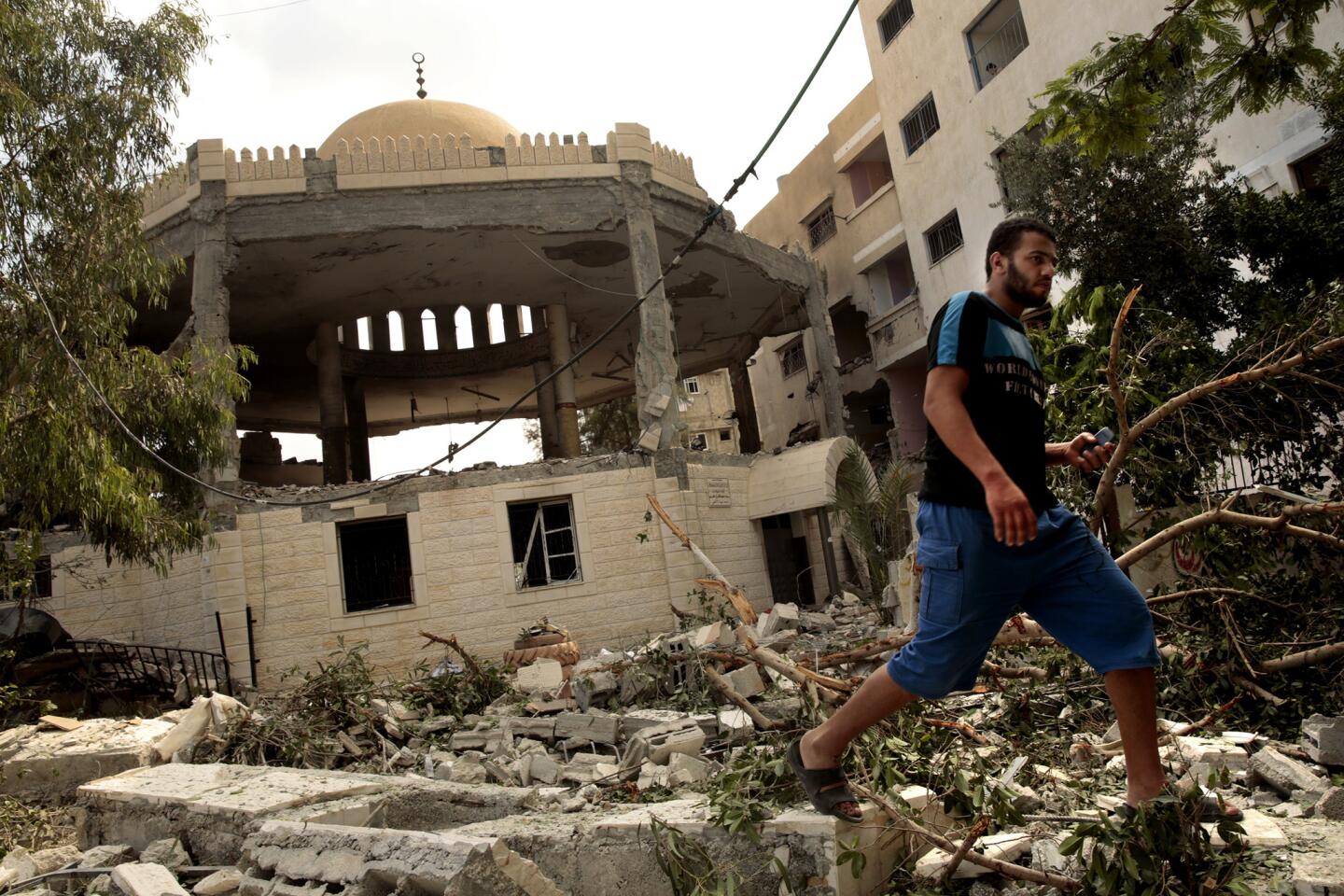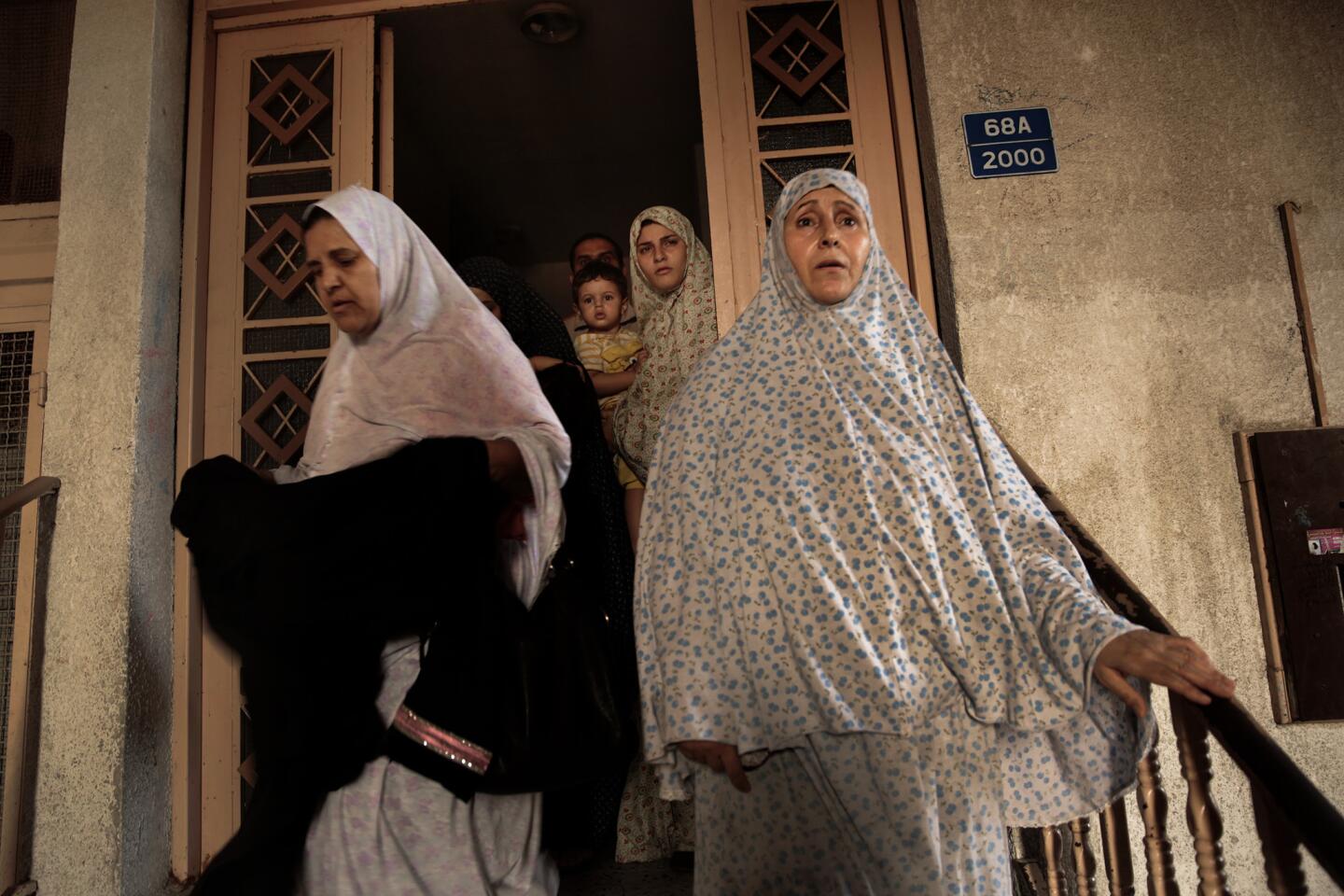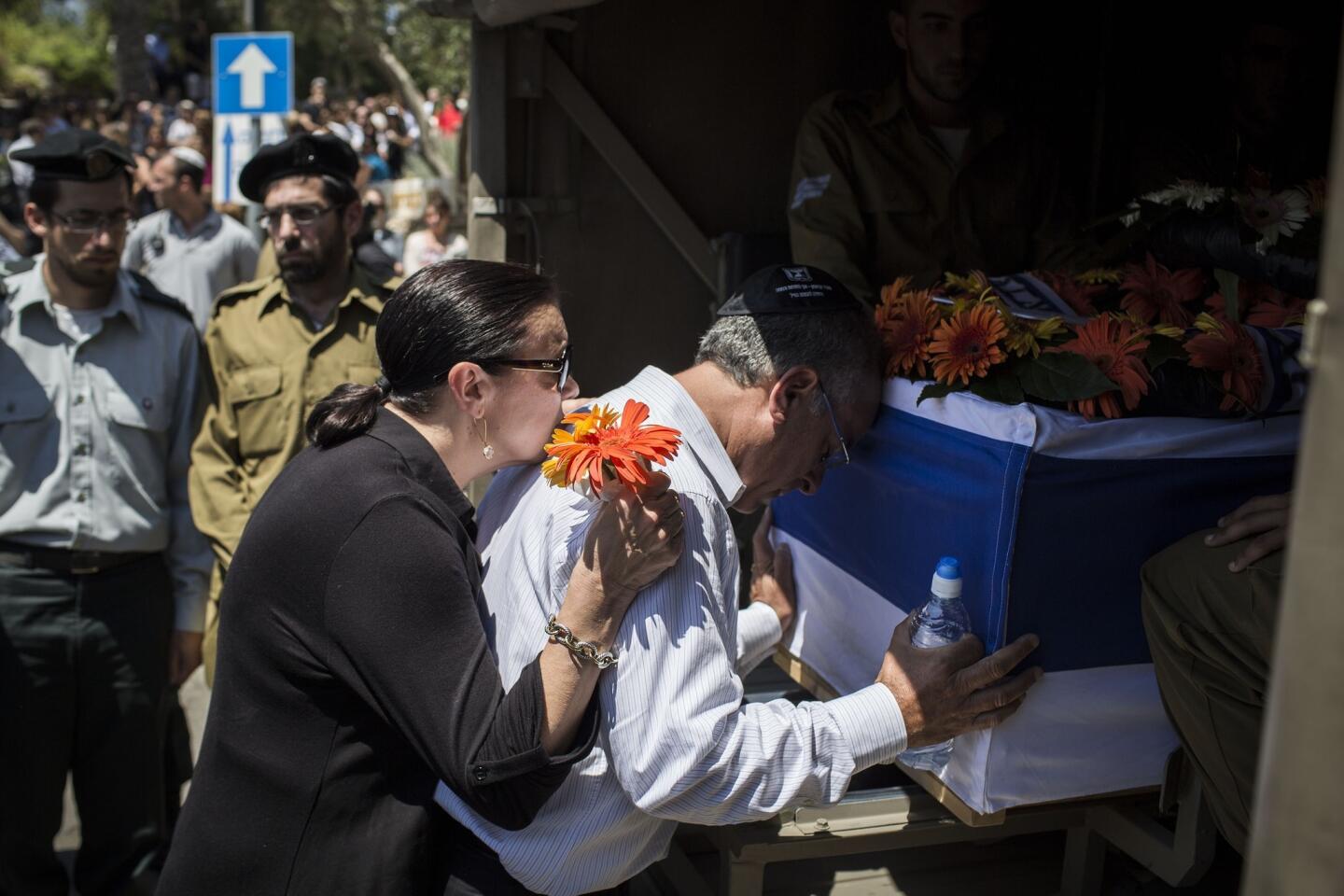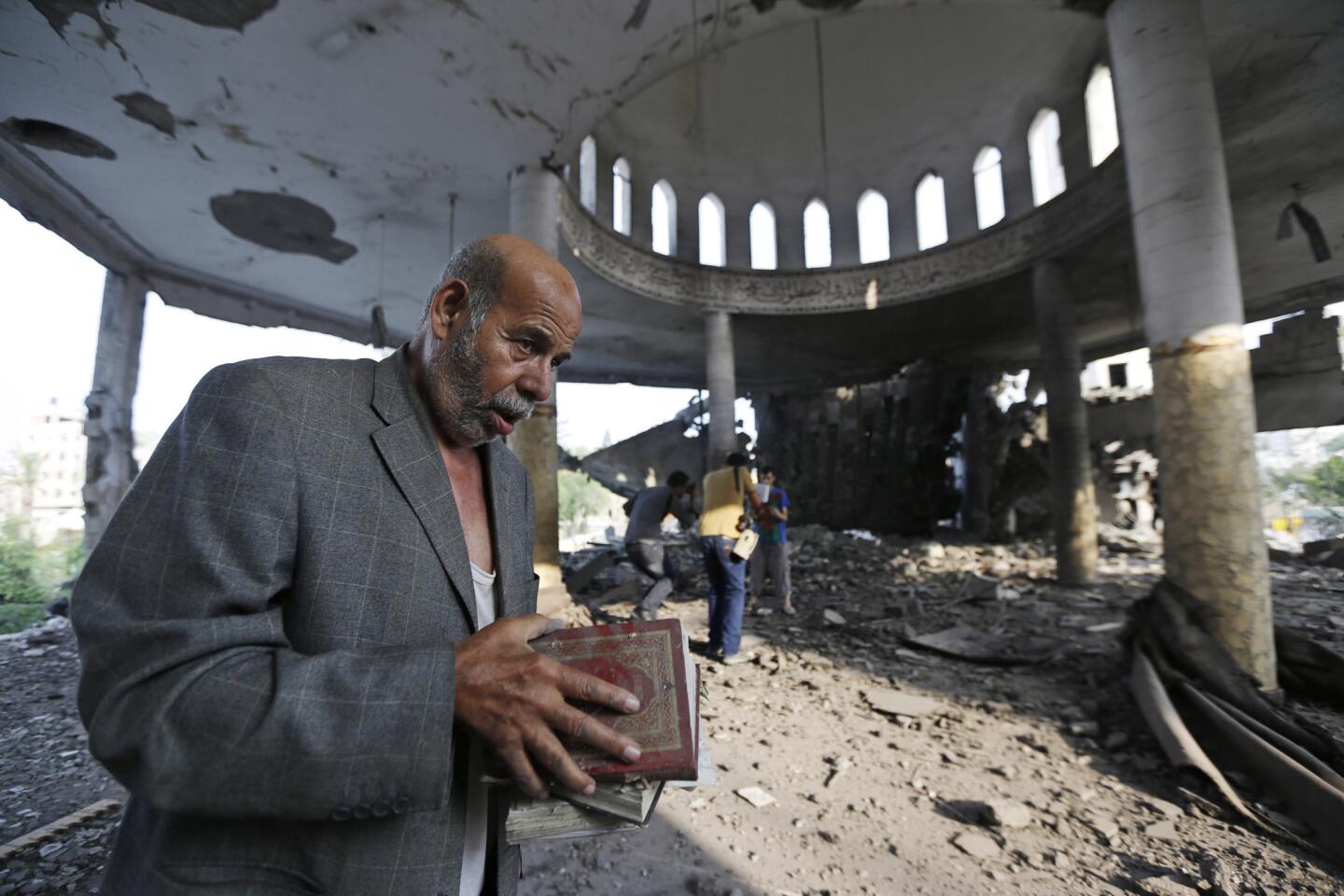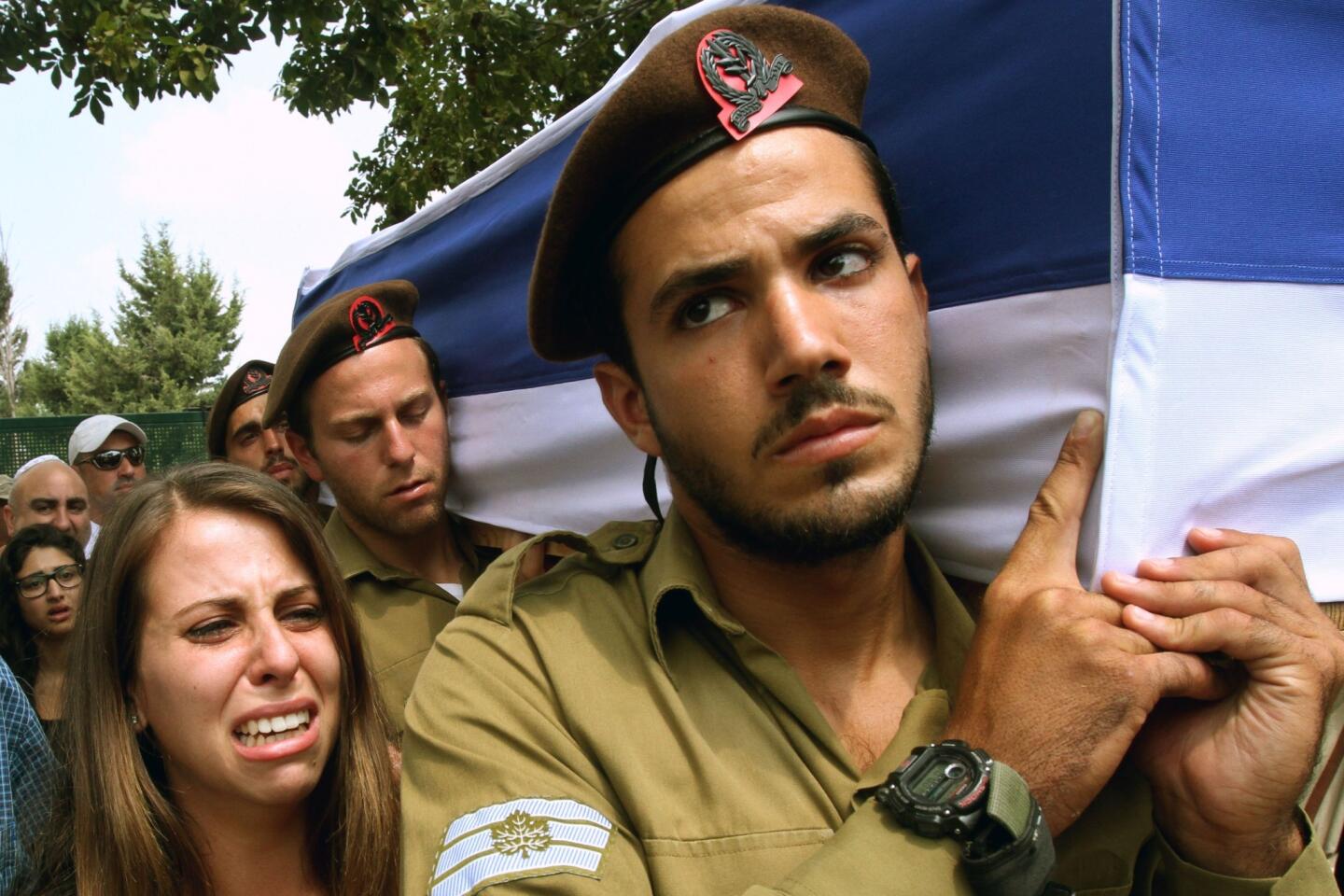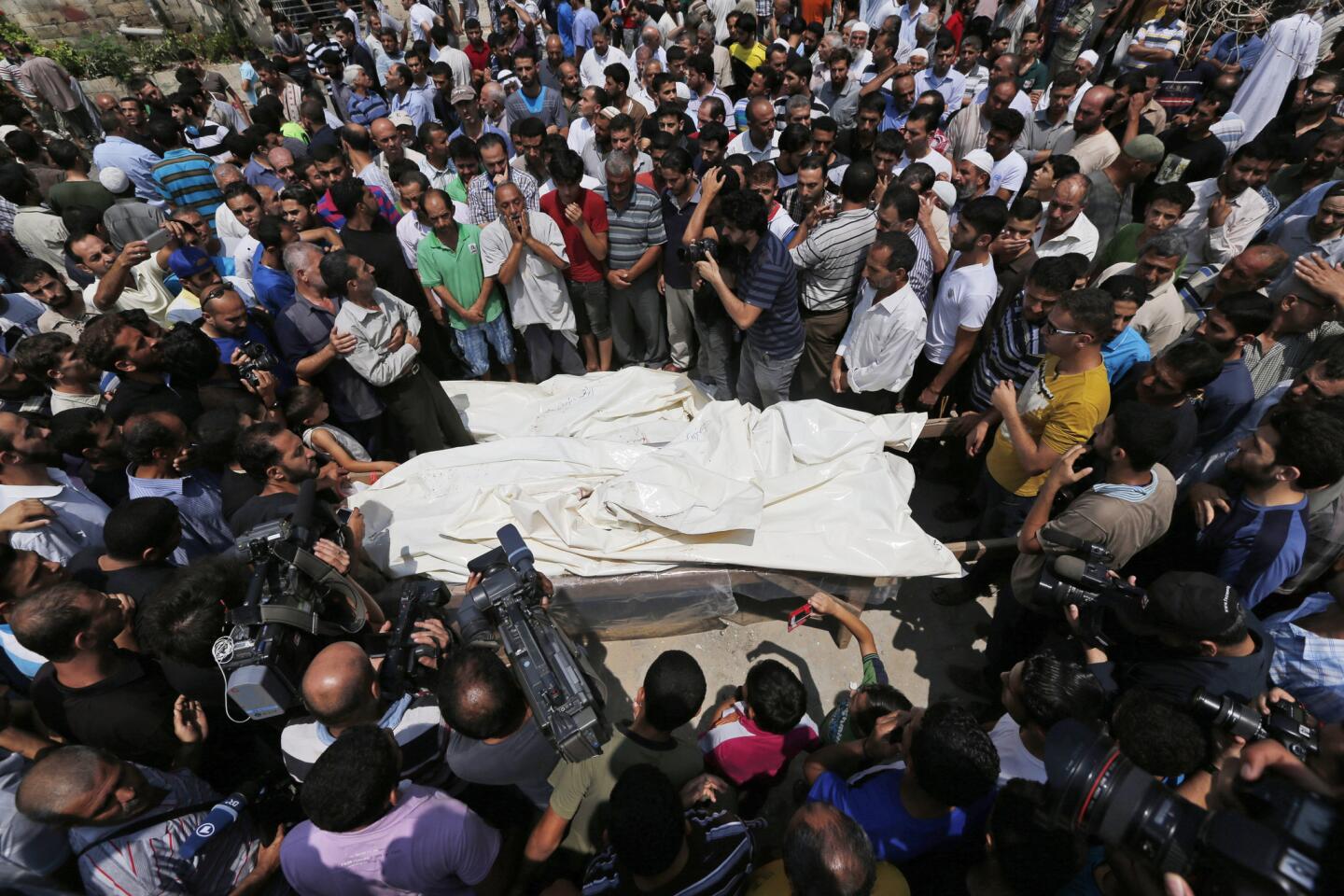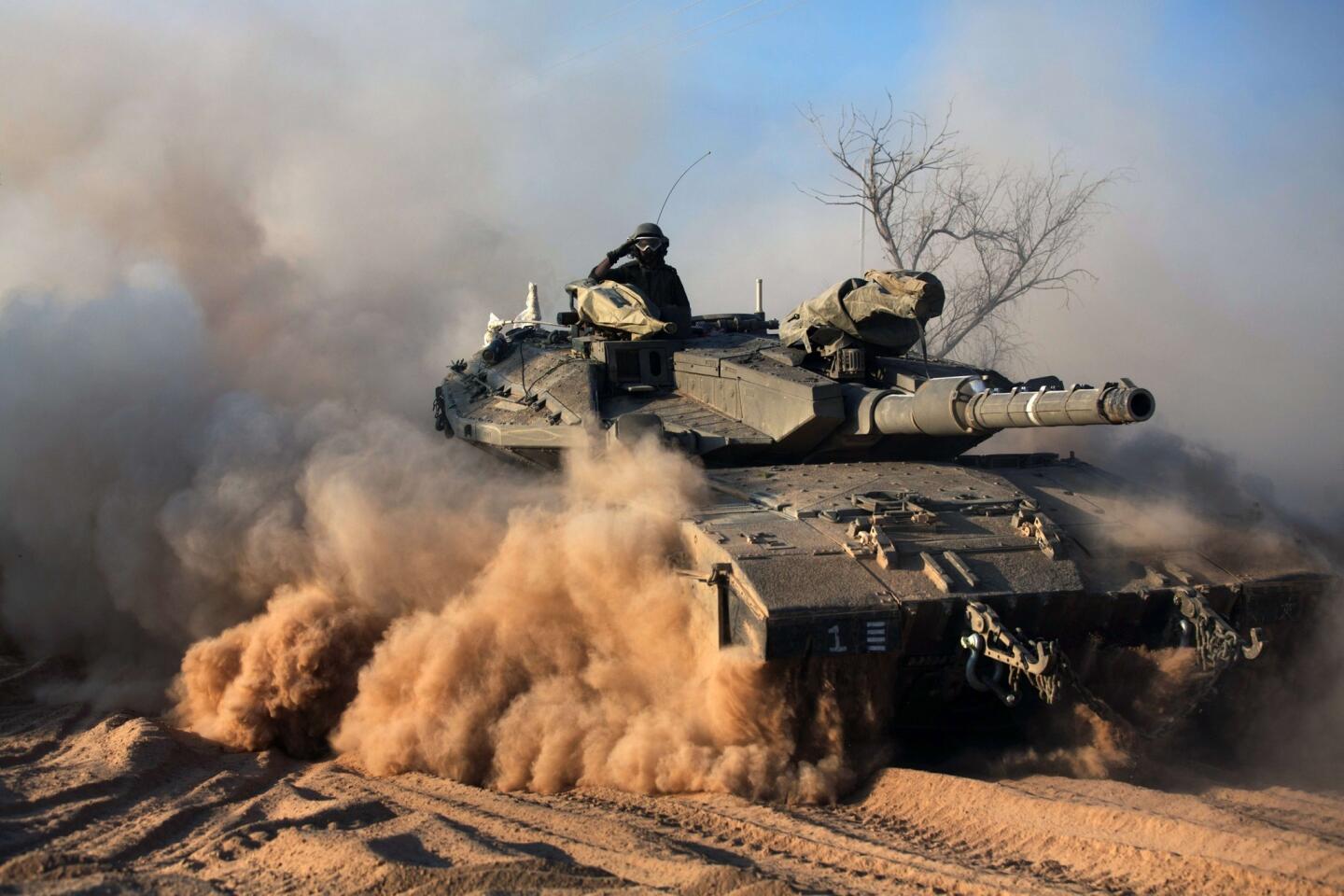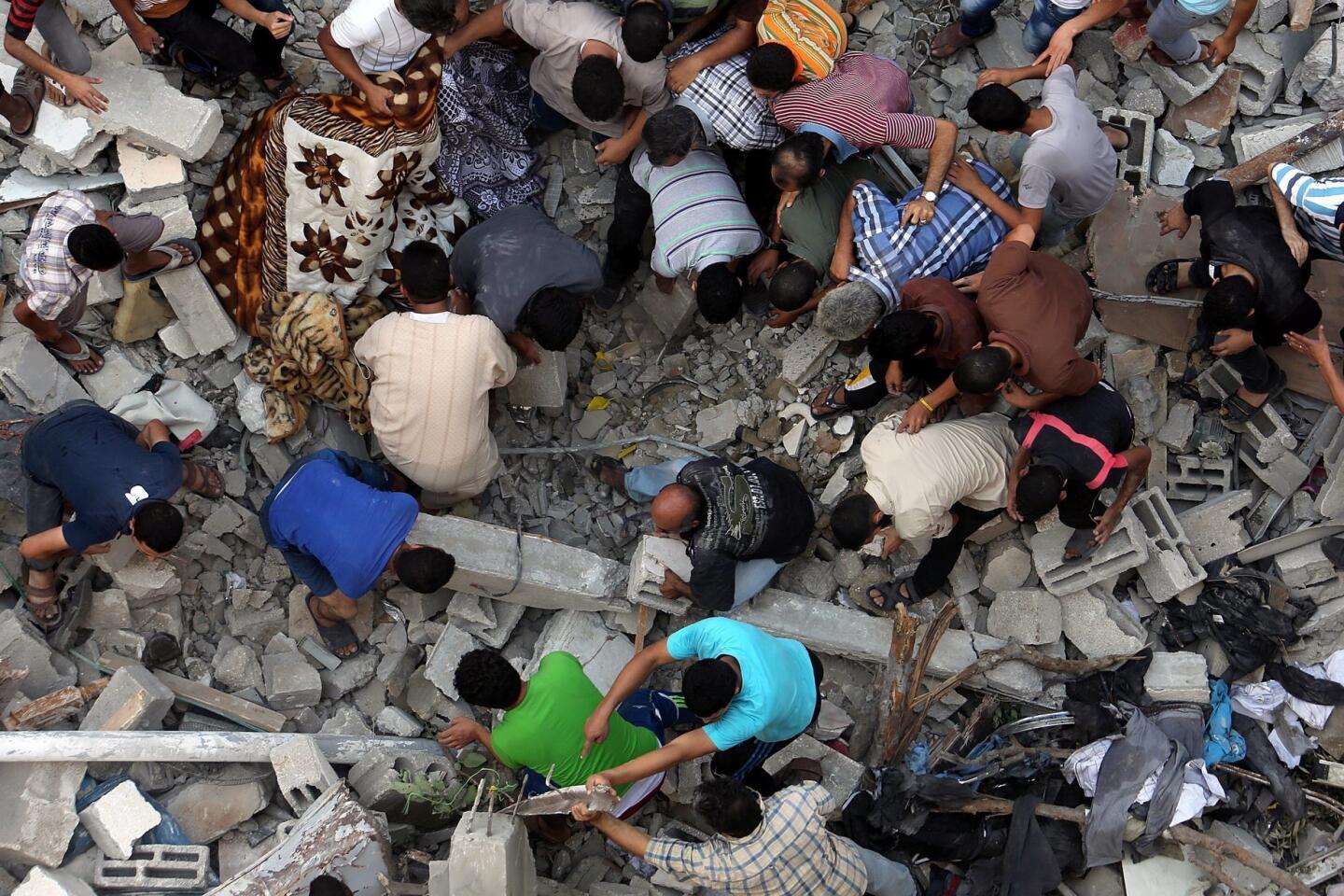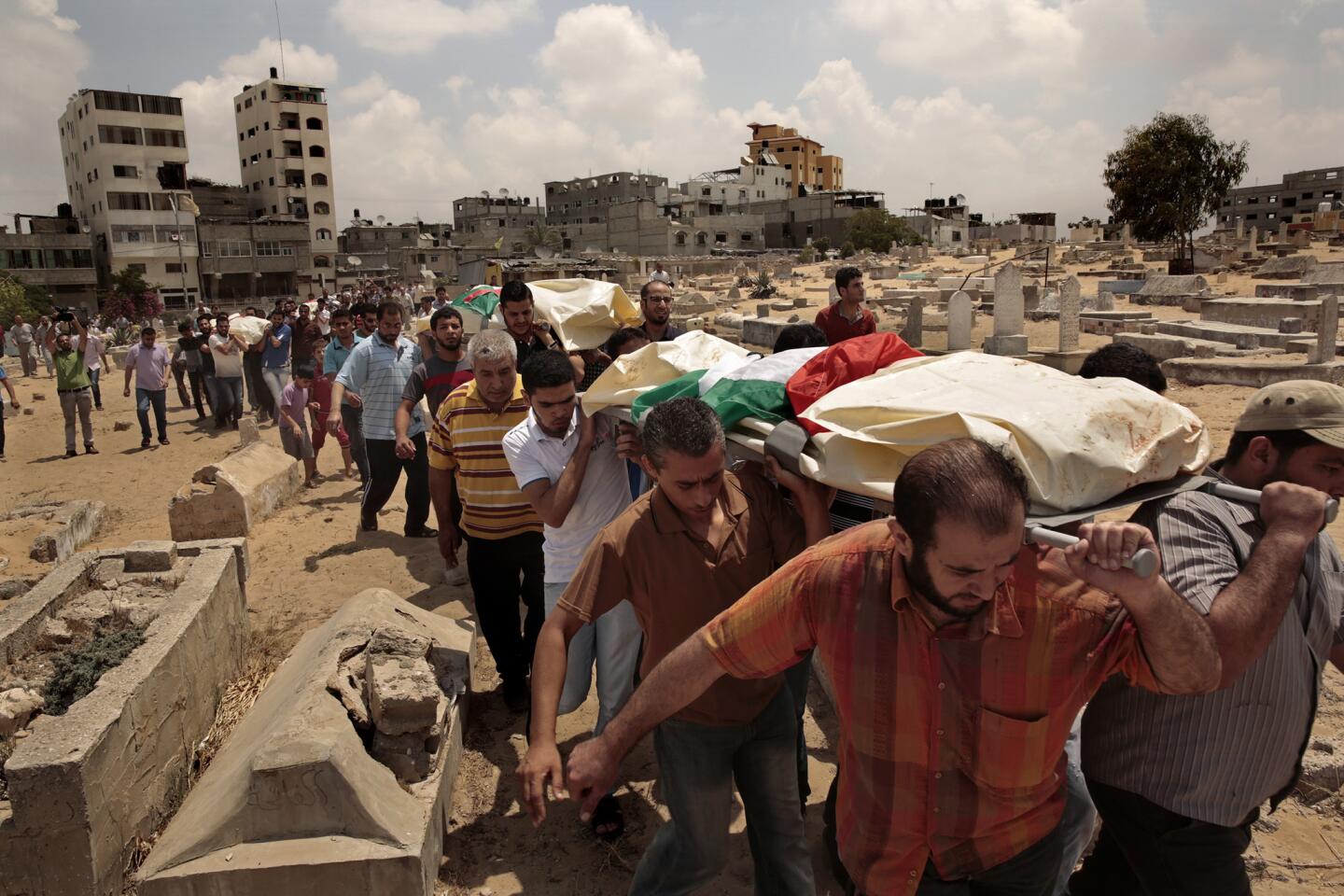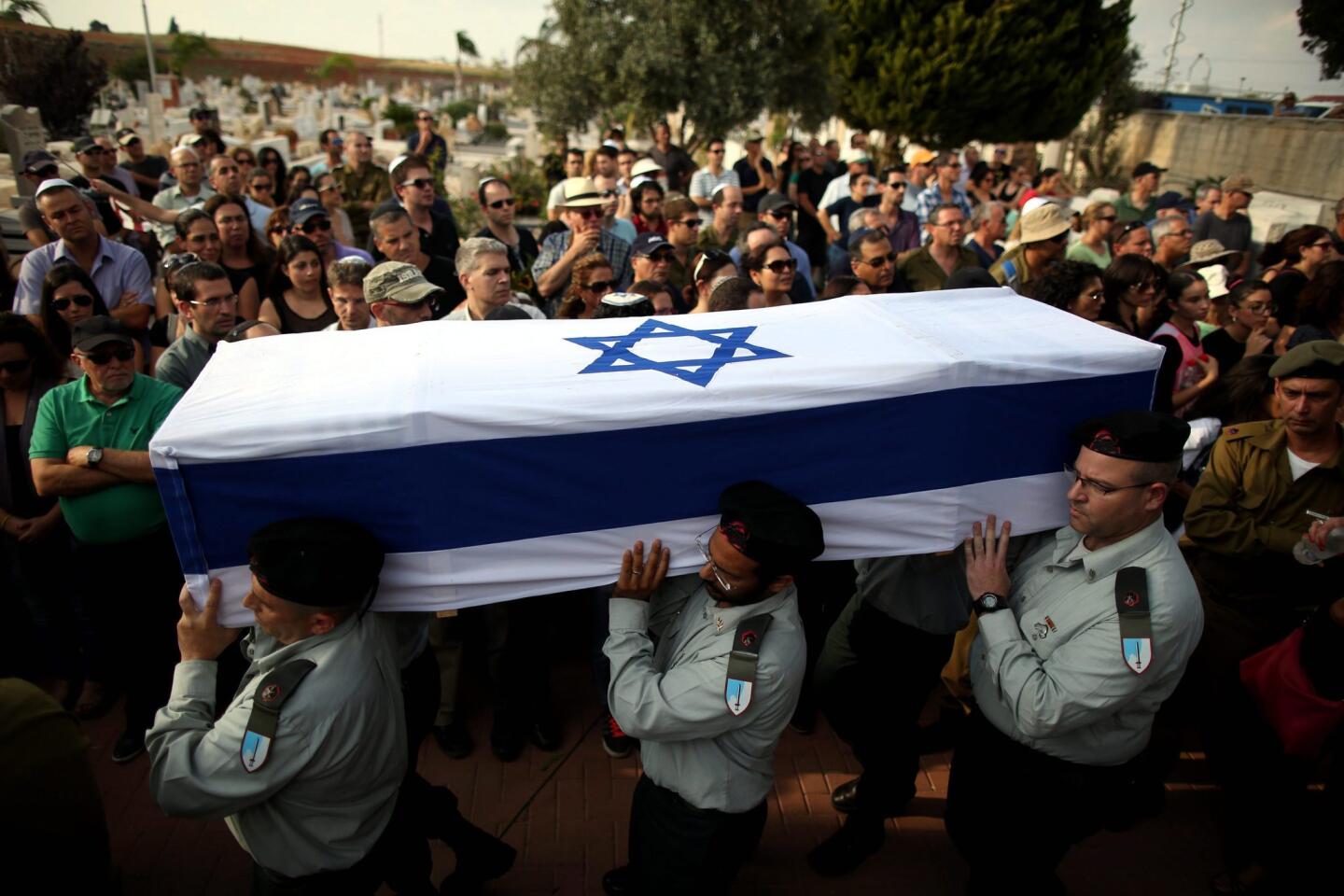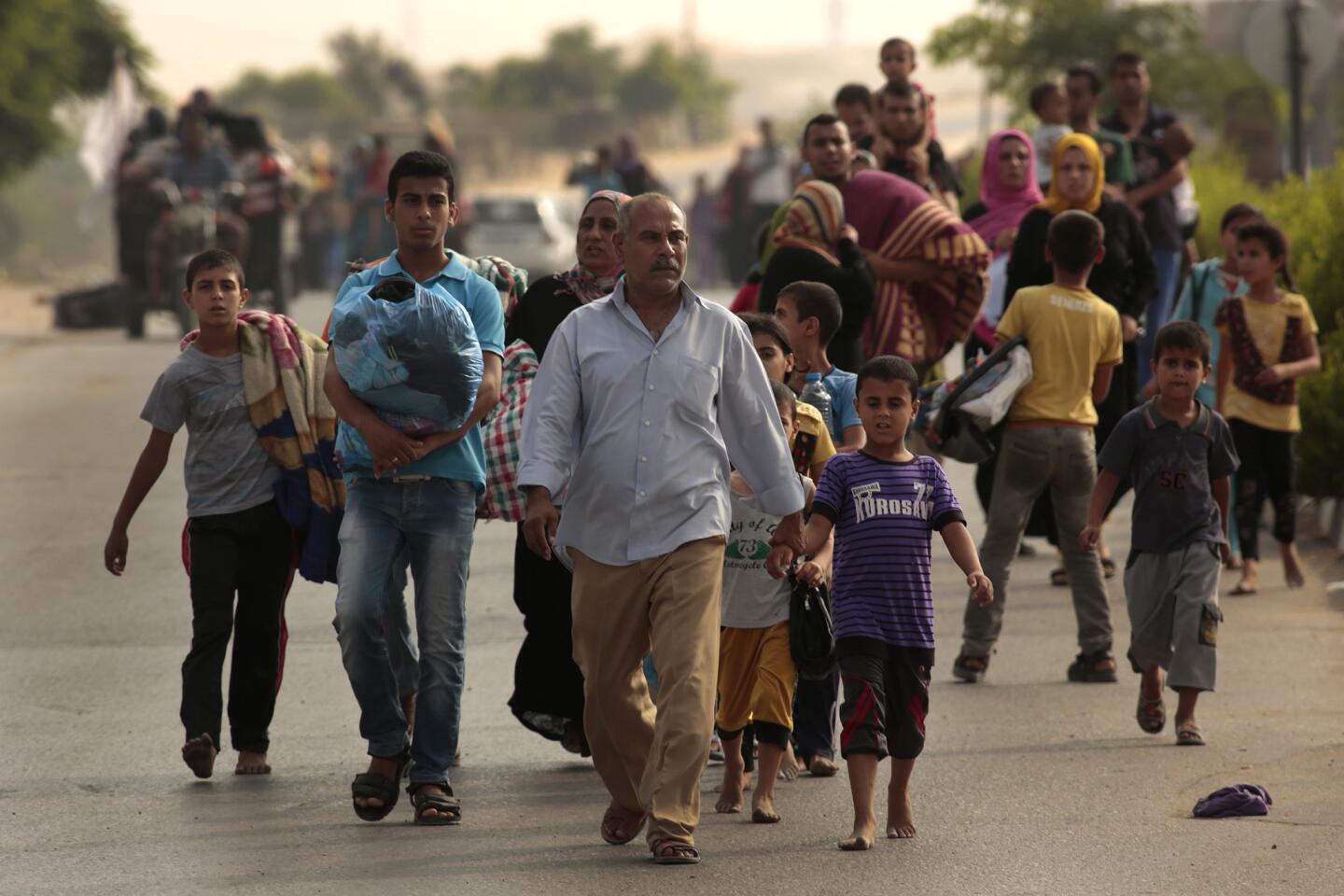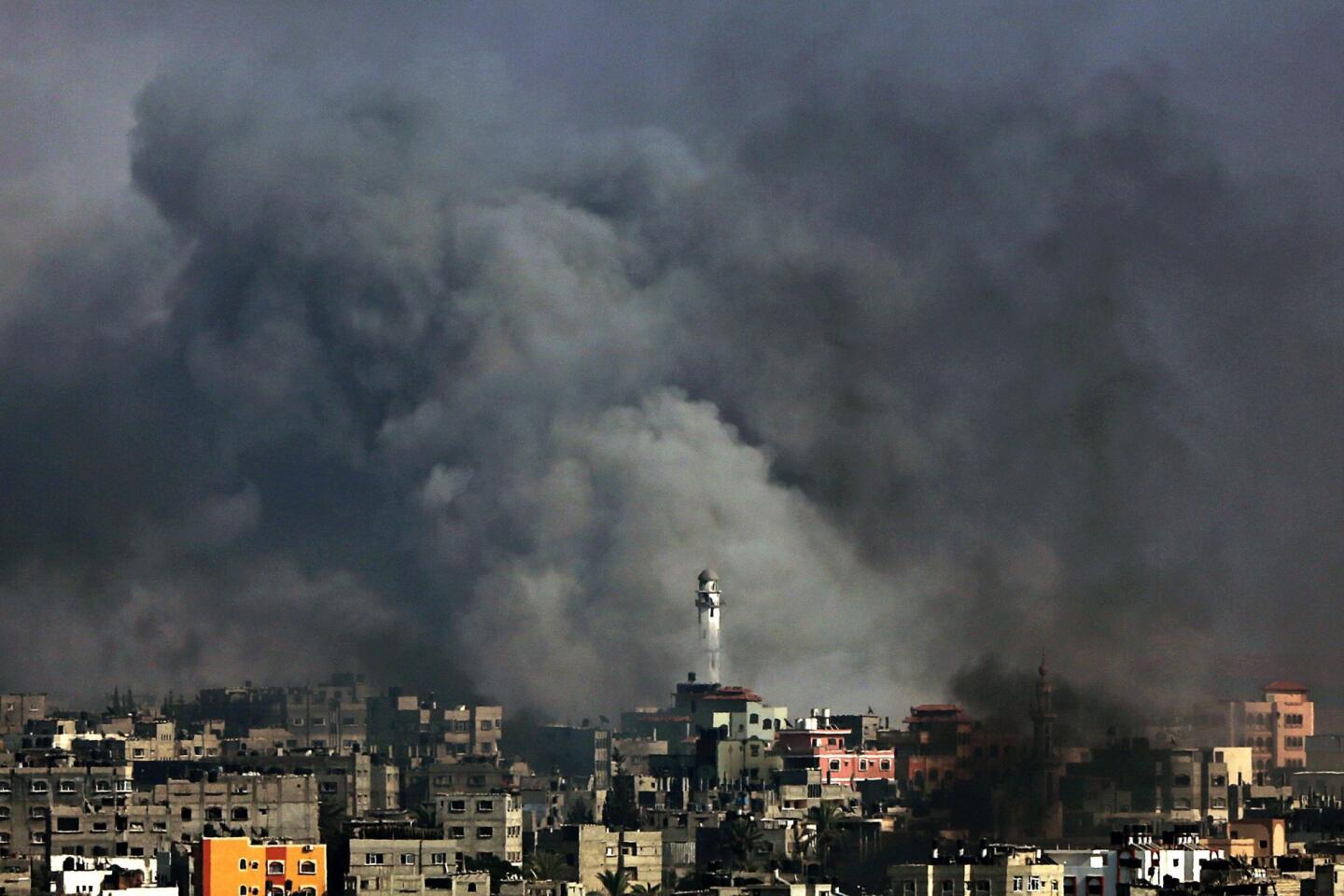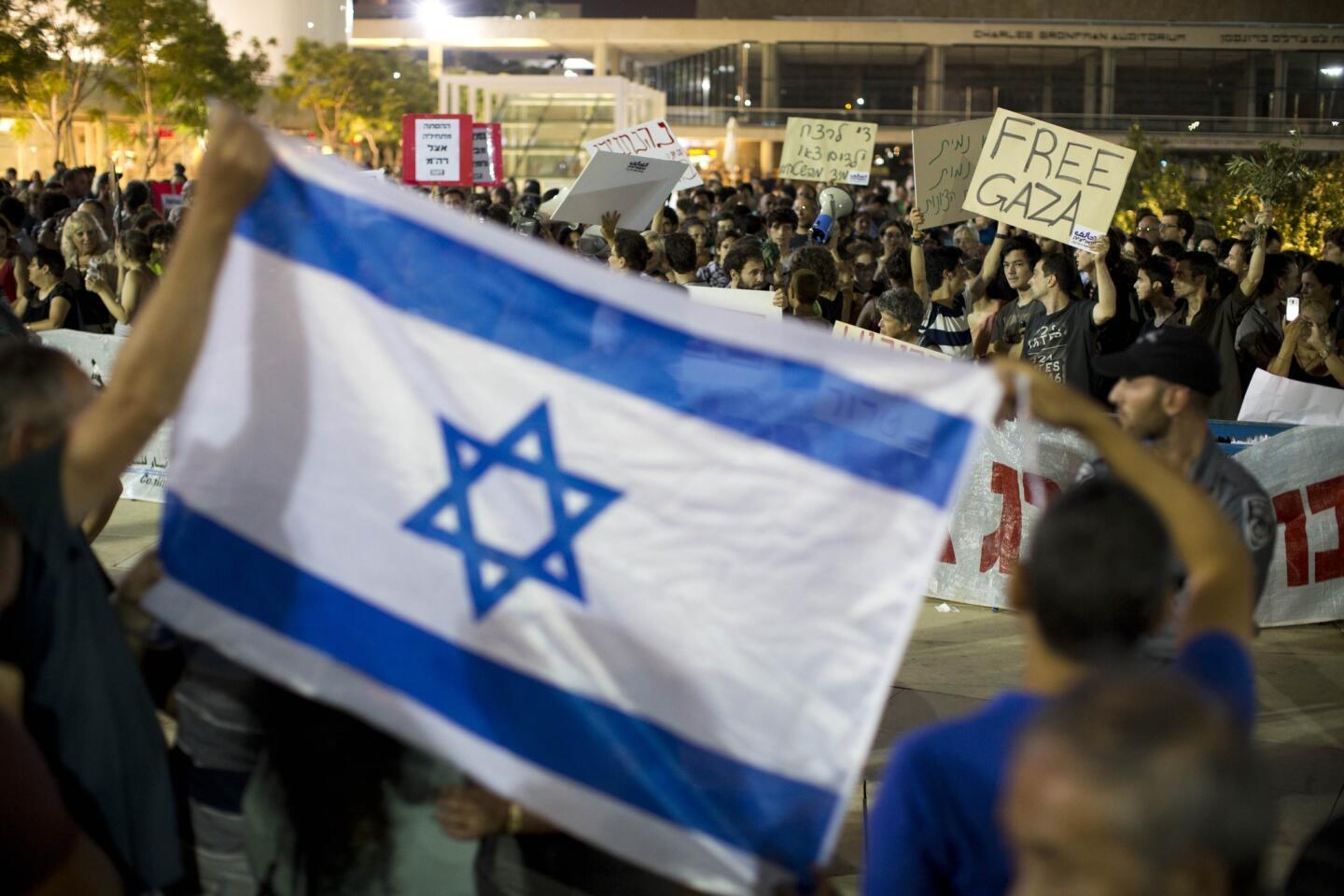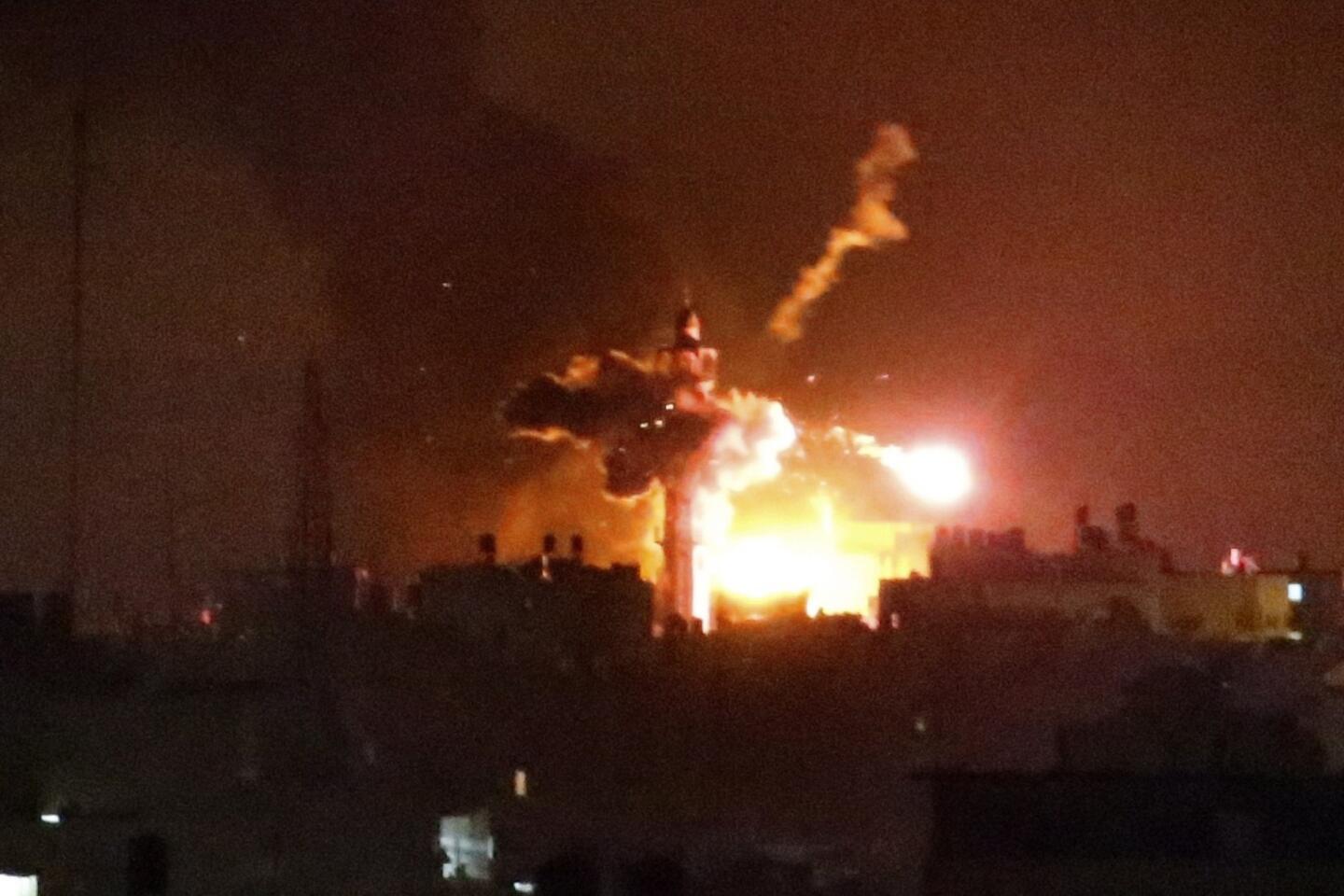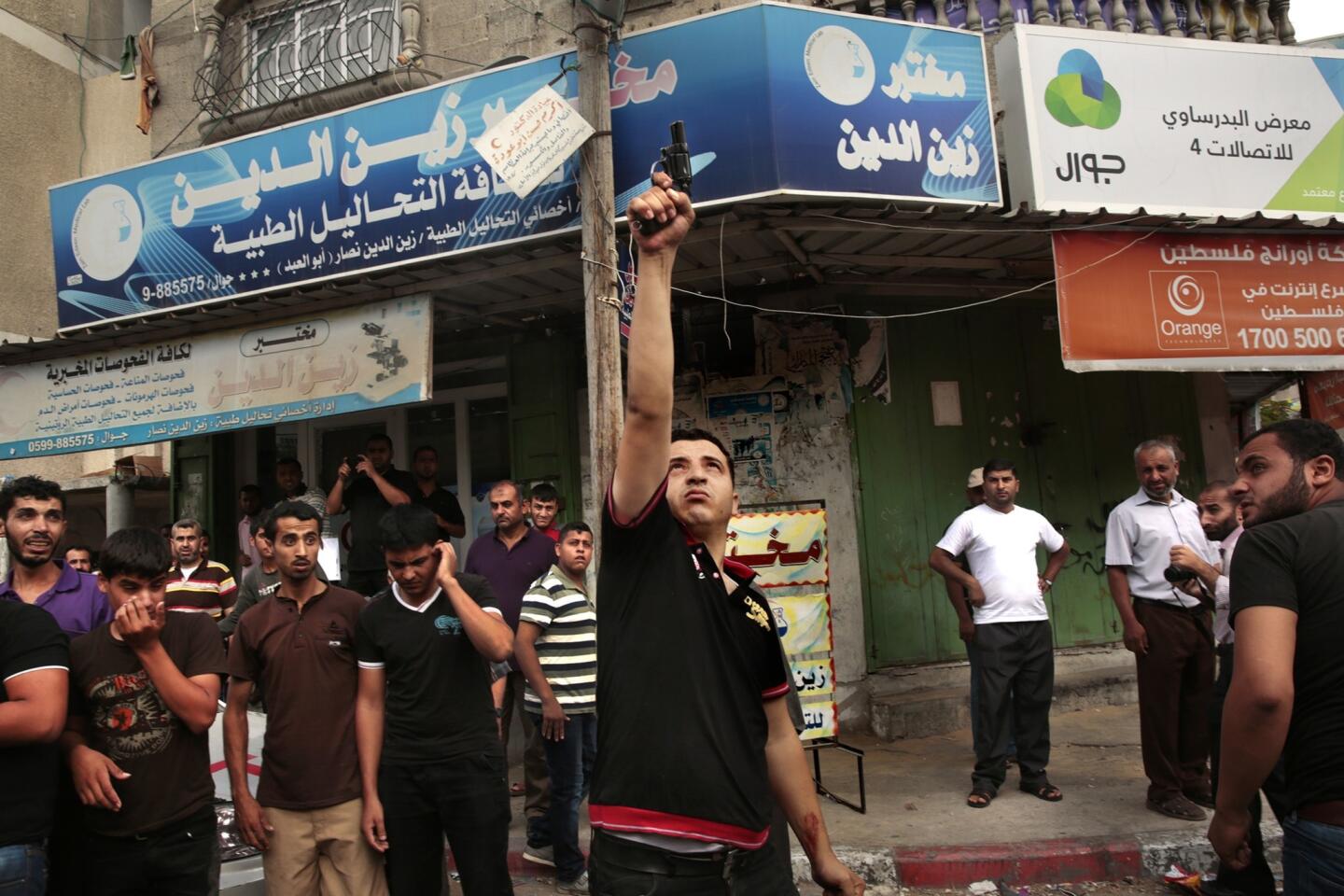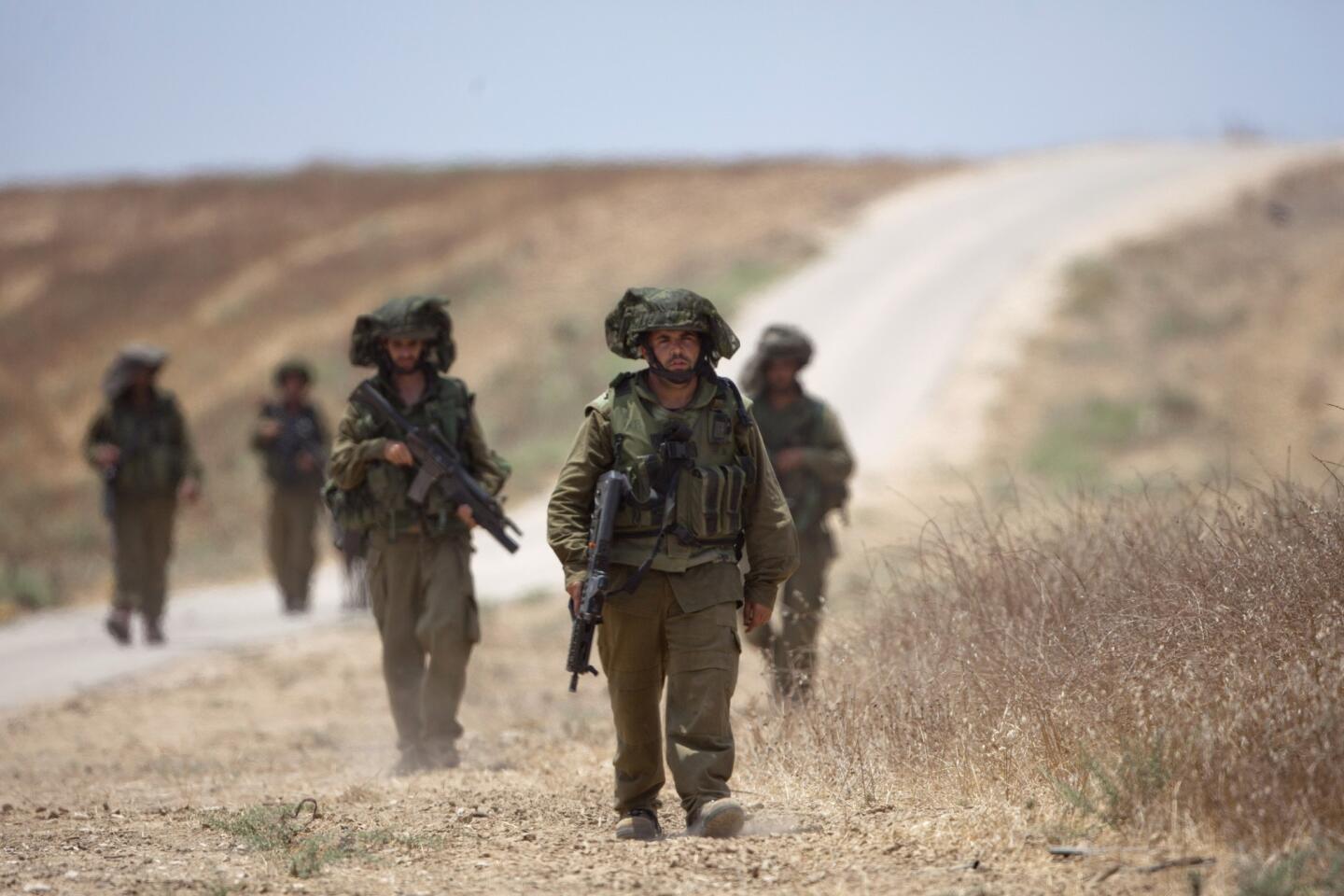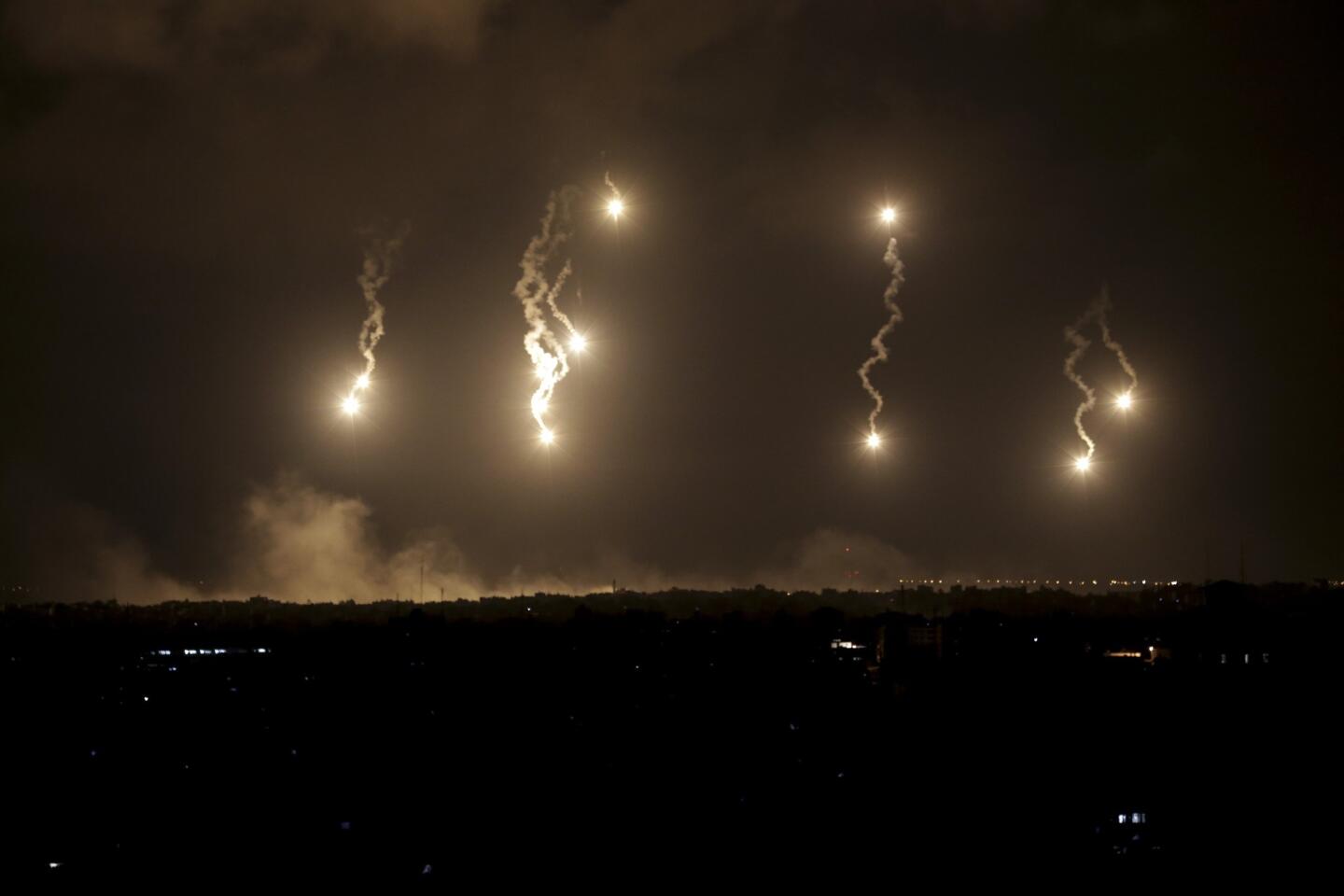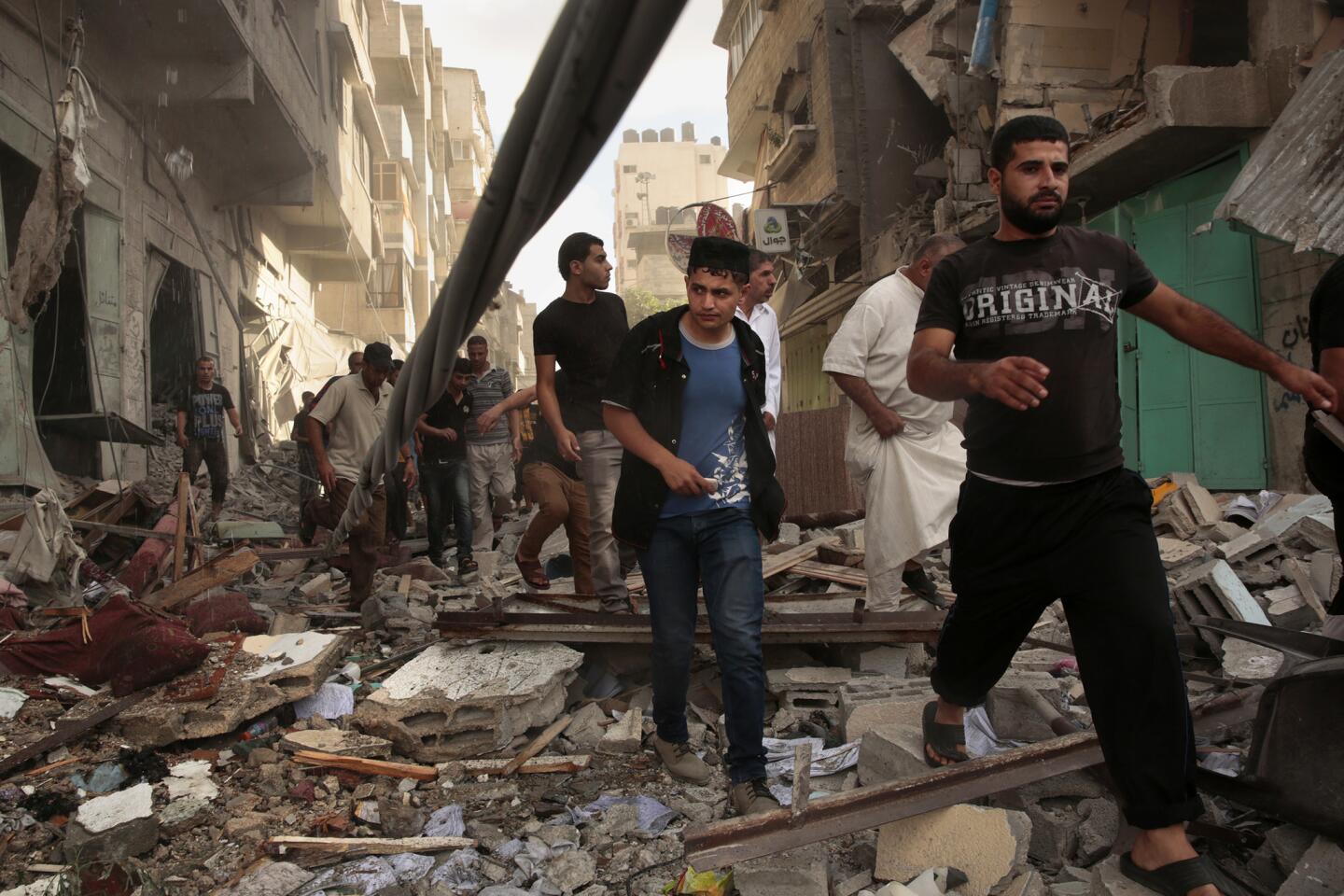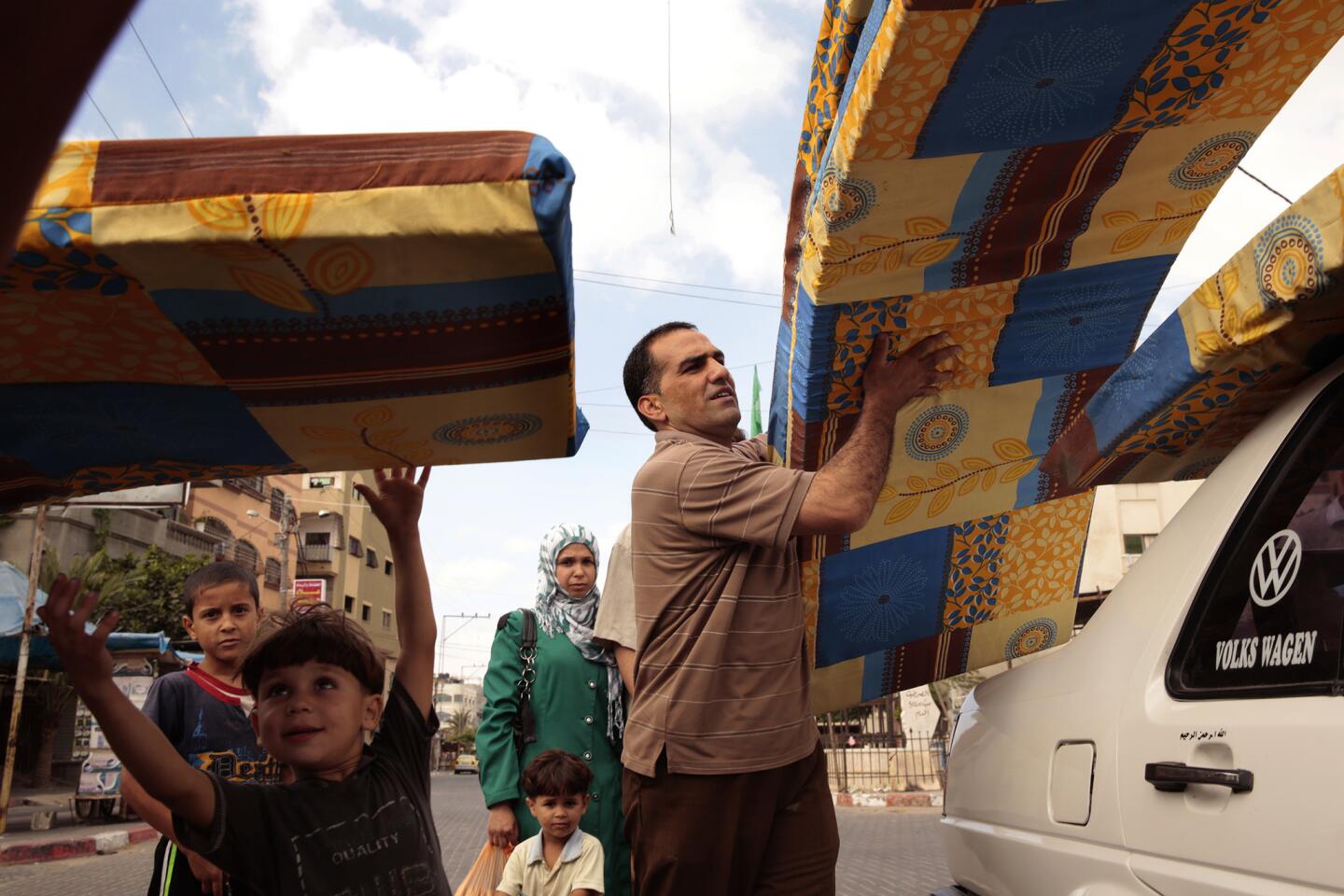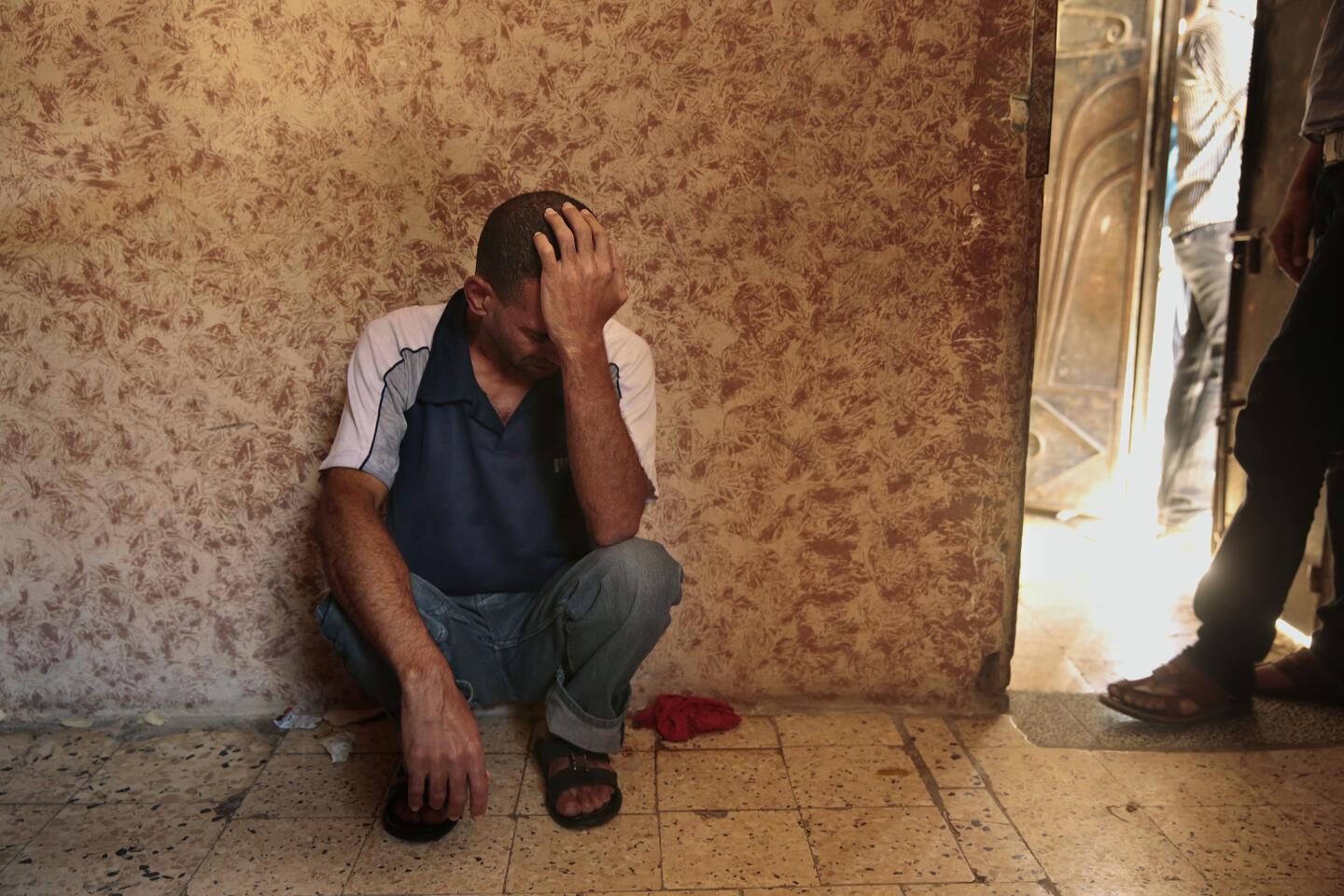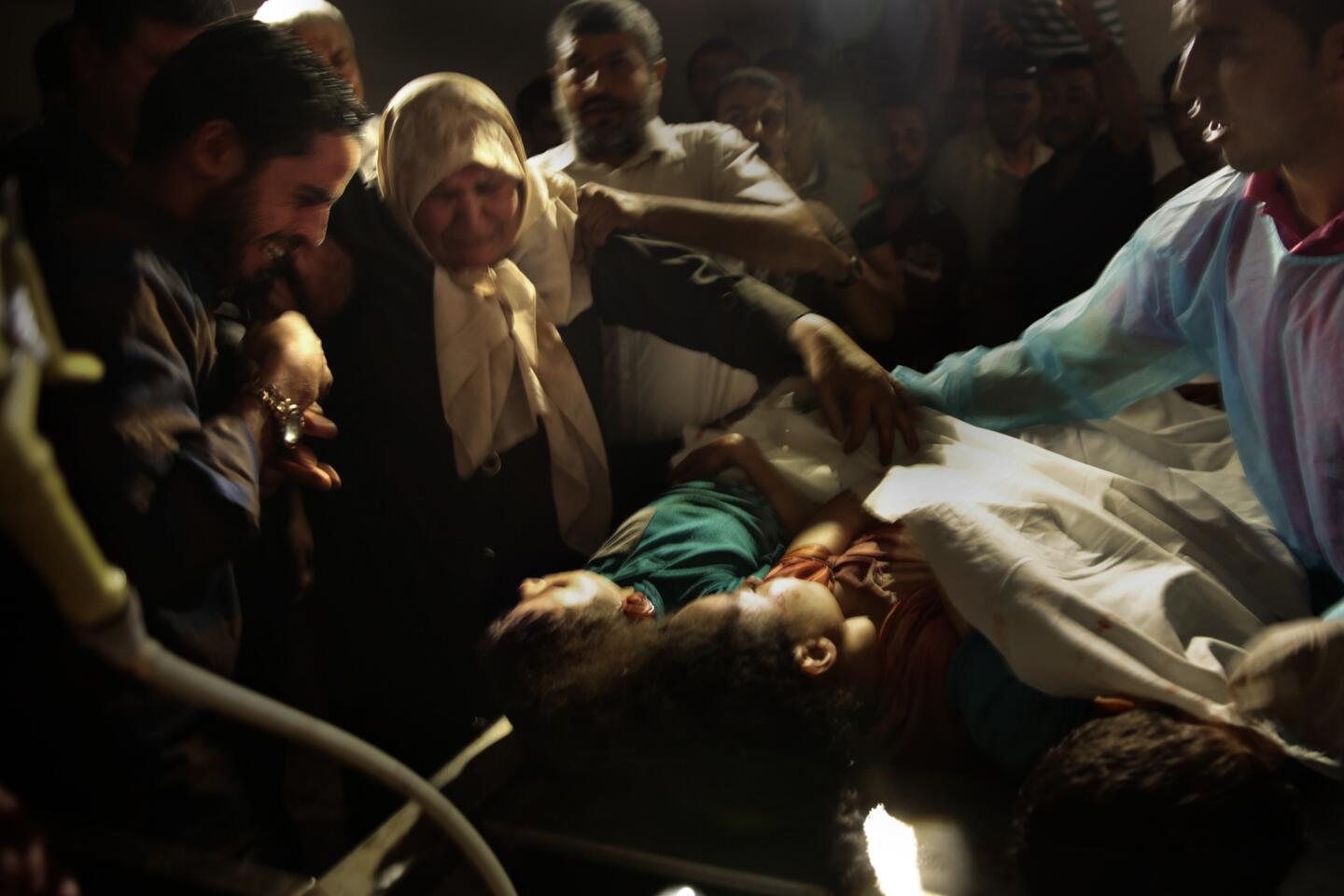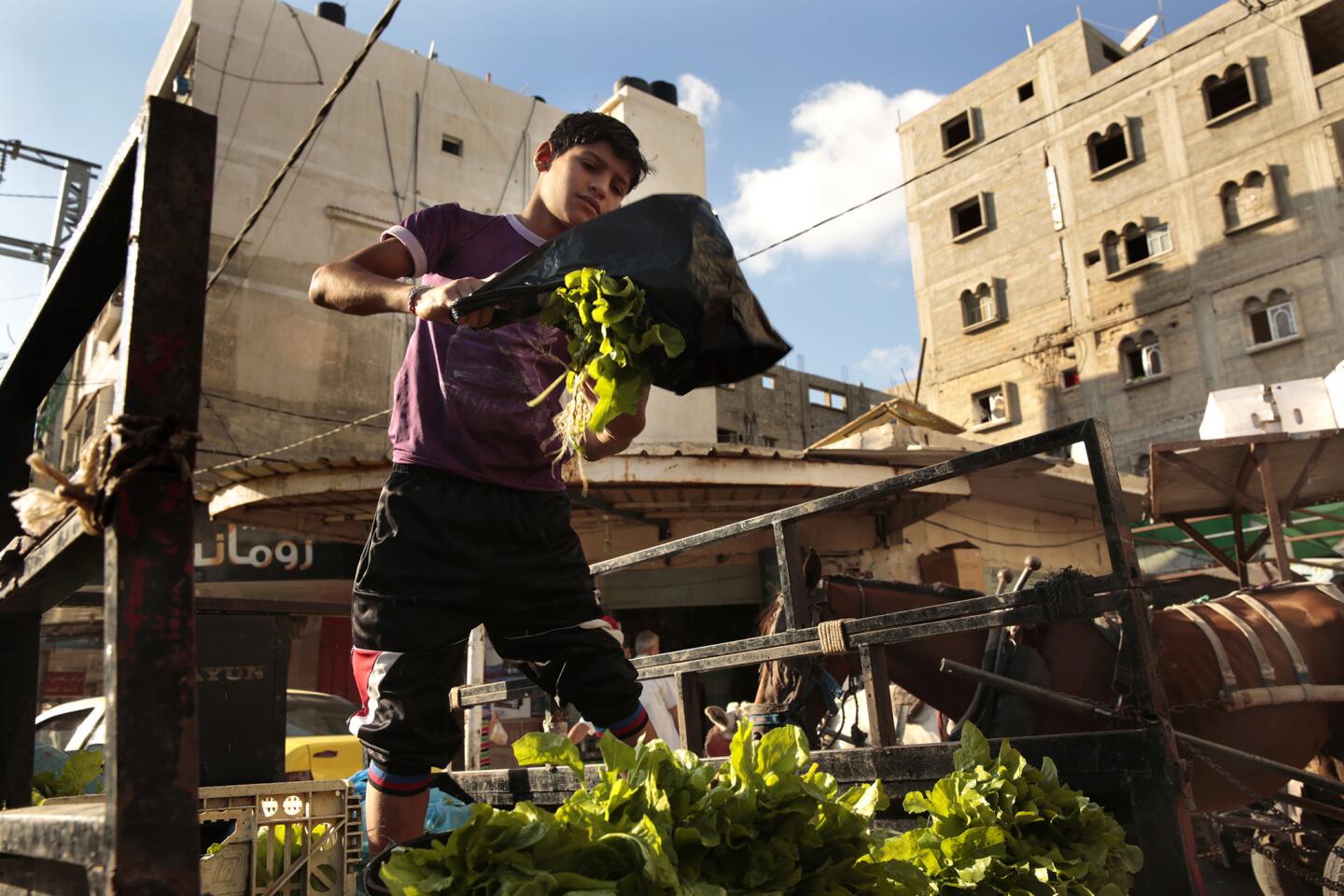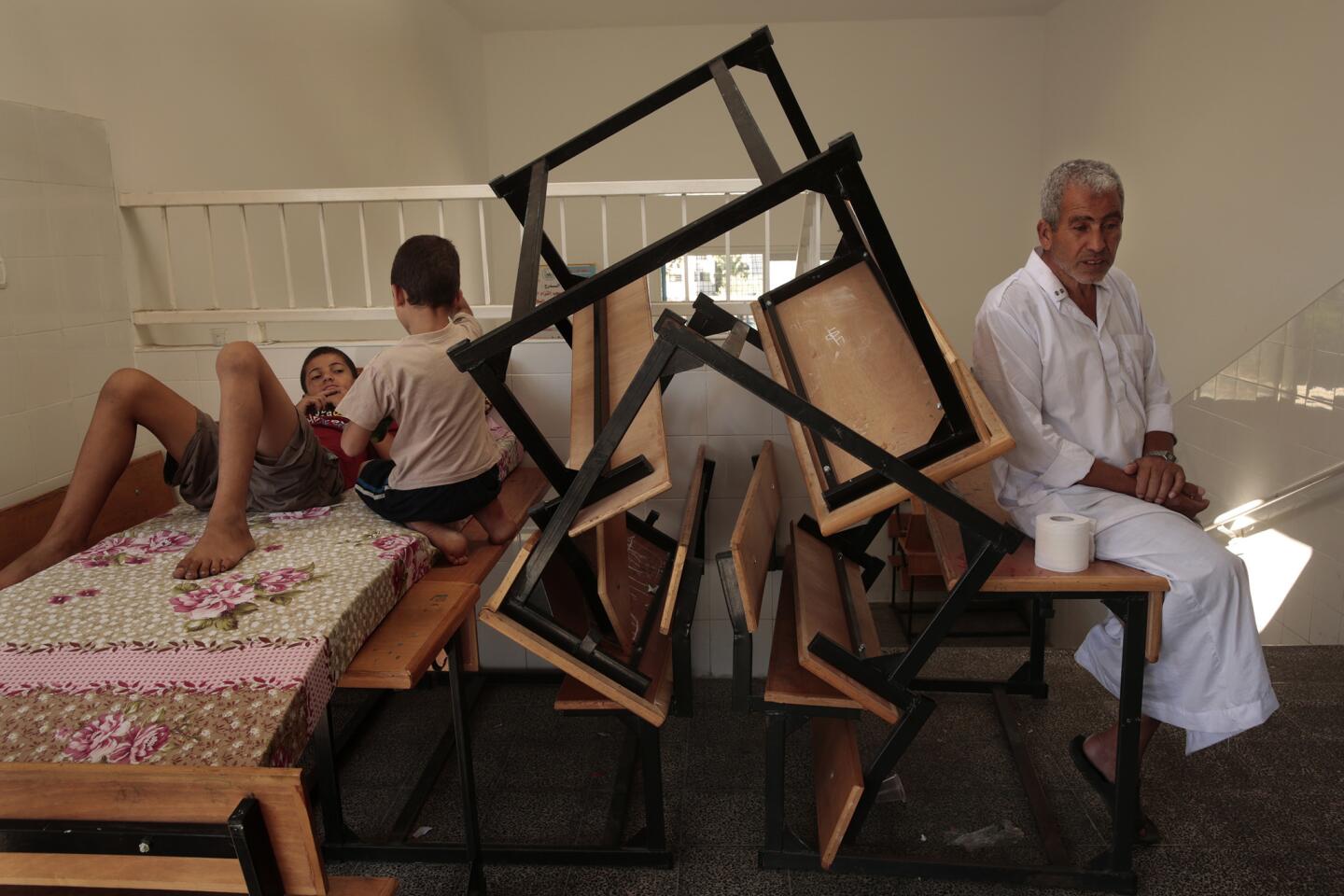Blasts strike major hospital, street in Gaza; both sides point fingers
Reporting from Gaza City — Deadly explosions slammed an urban street and a major hospital in the Gaza Strip on Monday, but Israel swiftly disavowed any responsibility for the blasts, one of which killed at least 10 people, most of them children, and the other hitting the grounds of Shifa Hospital, the most sophisticated medical facility in Gaza.
In texts and tweets, the Israeli military blamed “Gaza terrorists” for the explosions at Shifa and in a Gaza City refugee camp. Palestinian officials and witnesses said Israeli airstrikes caused the blasts.
Meanwhile, Israeli media reported that four people had been killed and four others injured by mortar shells that crashed on an Israeli community close to the Gaza Strip. The Israel Defense Forces said the four killed in the mortar attack were soldiers and that another soldier was killed in combat in Gaza.
Adding to Israeli anxiety, officials and media reports said at least five militants from Gaza managed to cross into Israel, probably via an infiltration tunnel originating in eastern Gaza. Residents of a kibbutz called Nahal Oz -- half-deserted due to previous rocket attacks -- were told to stay inside and lock their doors, and roads in the area were closed.
In addition, the Israeli military said Palestinian rockets were fired toward the northern city of Haifa, which was once out of rocket range from Gaza.
As dusk approached, there was an ominous portent of a violent night: The Israeli military sent out text messages and made phone calls to people living in three neighborhoods -- Shejaiya, Zeitoun and Jabaliya -- telling them to leave their homes and move toward the center of Gaza City. Many of those in Jabaliya had been taking shelter there after fleeing previous bombardment in their own neighborhoods.
Earlier, a fragile holiday lull in fighting in the Gaza Strip had been punctuated by Israeli airstrikes and rocket launches by Palestinian militants after a call by the U.N. Security Council for an unconditional humanitarian truce.
As the violence flared, hopes faded for a speedy halt to the fighting. Israeli Prime Minister Benjamin Netanyahu declared after a meeting of Israel’s Cabinet that “we must be prepared for a prolonged campaign.”
On the 21st day of the conflict, the Cabinet met to weigh military and political moves. Until the latest incidents, a relative calm had lasted most of the day in Gaza, coinciding with the start of the Eid al-Fitr, one of the most important festivals of the Muslim calendar, marking the end of the holy month of Ramadan.
The United States and other mediators had hoped to forge a durable cease-fire prior to the three-day holiday, but efforts over the past week failed to bring the two sides together. Hamas has insisted on a lifting of a years-long blockade on Gaza enforced by Israel and Egypt; Israel demands that its troops be allowed to continue destroying Hamas-dug tunnels while a truce is in effect.
Across Gaza, Eid commemorations were muted by the death and destruction visited on the crowded coastal strip during the last three weeks. With more than 1,000 people, mainly civilians, dead and entire neighborhoods lying in ruins, a normally festive time was marked by fear and anxiety.
At a school-turned-refugee center in Beit Lahiya in northern Gaza, displaced Palestinian families overflowed classrooms and open-air corridors. Clothes hung from window sills and railings; bedding and mattresses were stacked high.
Sixteen members of the Zani clan were squeezed into a single classroom with several other families. They had fled their homes in northern Gaza, where Israeli troops were conducting intensive searches for Palestinian militants’ “attack” tunnels, meant to funnel assailants into Israel, and rocket-launching sites.
“Today we woke up at 6 a.m., not because the kids were playing, but because we heard shelling,” said a young mother, Amani. Her children, she said, asked why Eid was not being celebrated as usual with sweets, big meals and new clothing.
“I told them Eid had been postponed because there were a lot of martyrs,” she said. “A lot of people here have lost family members -- we can’t celebrate when they are grieving.”
Even before the early-evening strikes, what had been a quiet day by recent standards led to deaths and injuries. Israeli shelling in the north of Gaza killed two people, including a 4-year-old boy, local health officials said. The crackle of gunfire and the thud of explosions could be heard in the area.
The Israeli military said mortar rounds were fired at its forces in several locations within Gaza, and that at least 12 projectiles were directed at Israel on Monday. In south-central Gaza, heavy exchanges of fire were reported between Israeli forces and Hamas militants in the vicinity of Khan Younis.
Meanwhile, Palestinian rescue workers pulled several more bodies from the rubble in Khuza, a village east of Khan Younis that has been a focus of the clashes in recent days. The deaths raised the Palestinian death toll to at least 1,044, the Health Ministry said.
On the Israeli side, strained relations with the White House appeared to be affecting cease-fire talks and Netanyahu’s coalition. In a phone call with the Israeli leader on Sunday, President Obama reportedly used unusually blunt language to urge an immediate cessation of hostilities.
The tenor of that conversation, together with a growing international outcry over Palestinian civilian casualties, brought an angry reaction from some in Israel.
“The last time we listened to the U.S. and allowed Hamas to participate in elections, Hamas took over the entire Gaza Strip and we got a terror entity there,” lawmaker Zeev Elkin, chairman of the Knesset’s foreign affairs and defense committee, told the news website Ynet.
Netanyahu also had a tense-sounding exchange by phone on Monday with U.N. Secretary-General Ban Ki-moon, who has played an active role in mediation efforts. The prime minister’s office said Netanyahu told the secretary-general that the U.N. cease-fire call takes into account “the needs of a murderous terror organization that attacks Israeli civilians, but offers no answers to Israel’s security needs.”
Staff writer Zavis reported from Gaza City and special correspondent Sobelman from Jerusalem. Staff writer Laura King in Cairo contributed to this report.
Follow the current fighting in the Gaza Strip on Twitter at @alexzavis
Follow @laurakingLAT on Twitter for news from the Middle East
More to Read
Sign up for Essential California
The most important California stories and recommendations in your inbox every morning.
You may occasionally receive promotional content from the Los Angeles Times.
